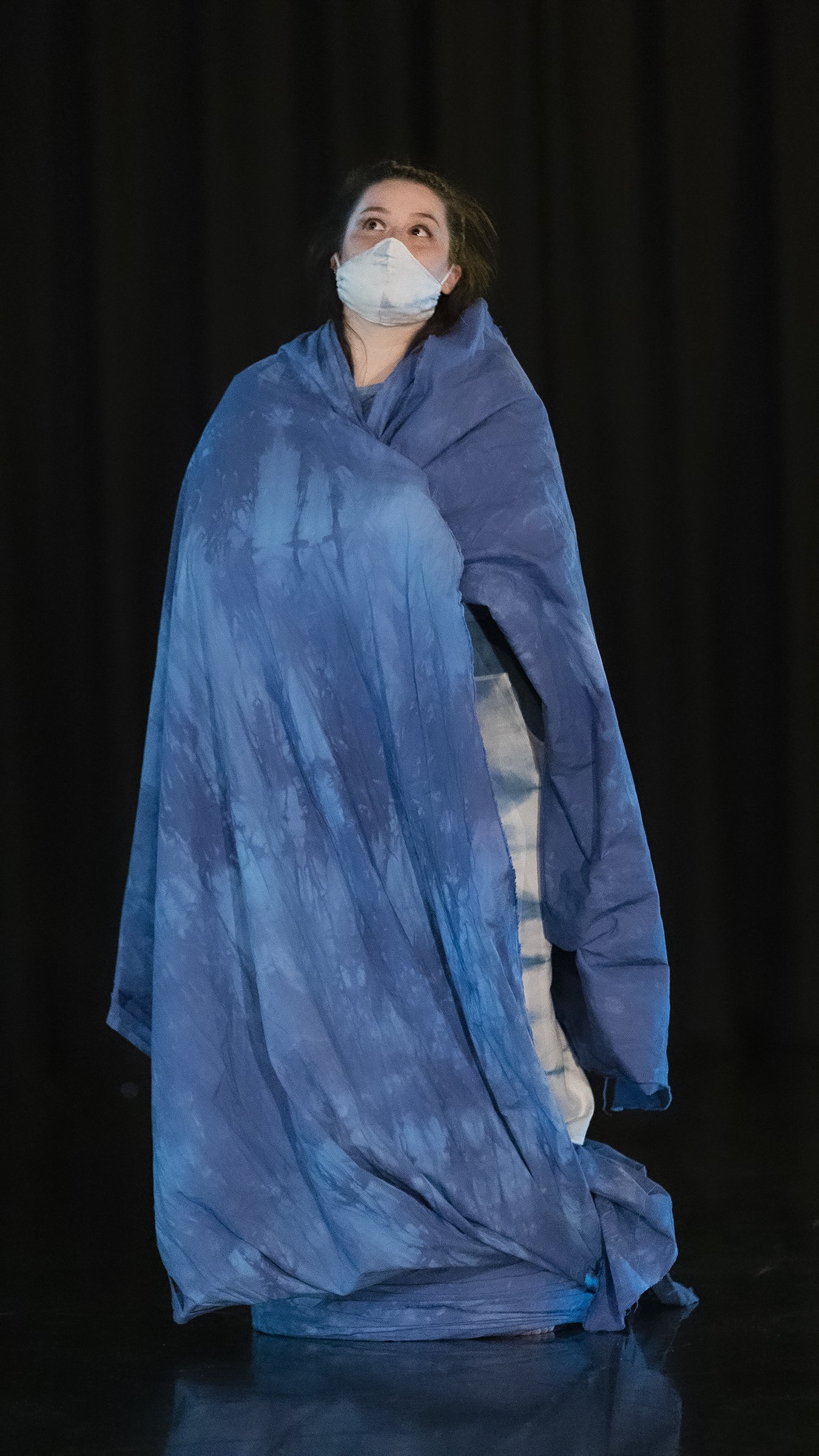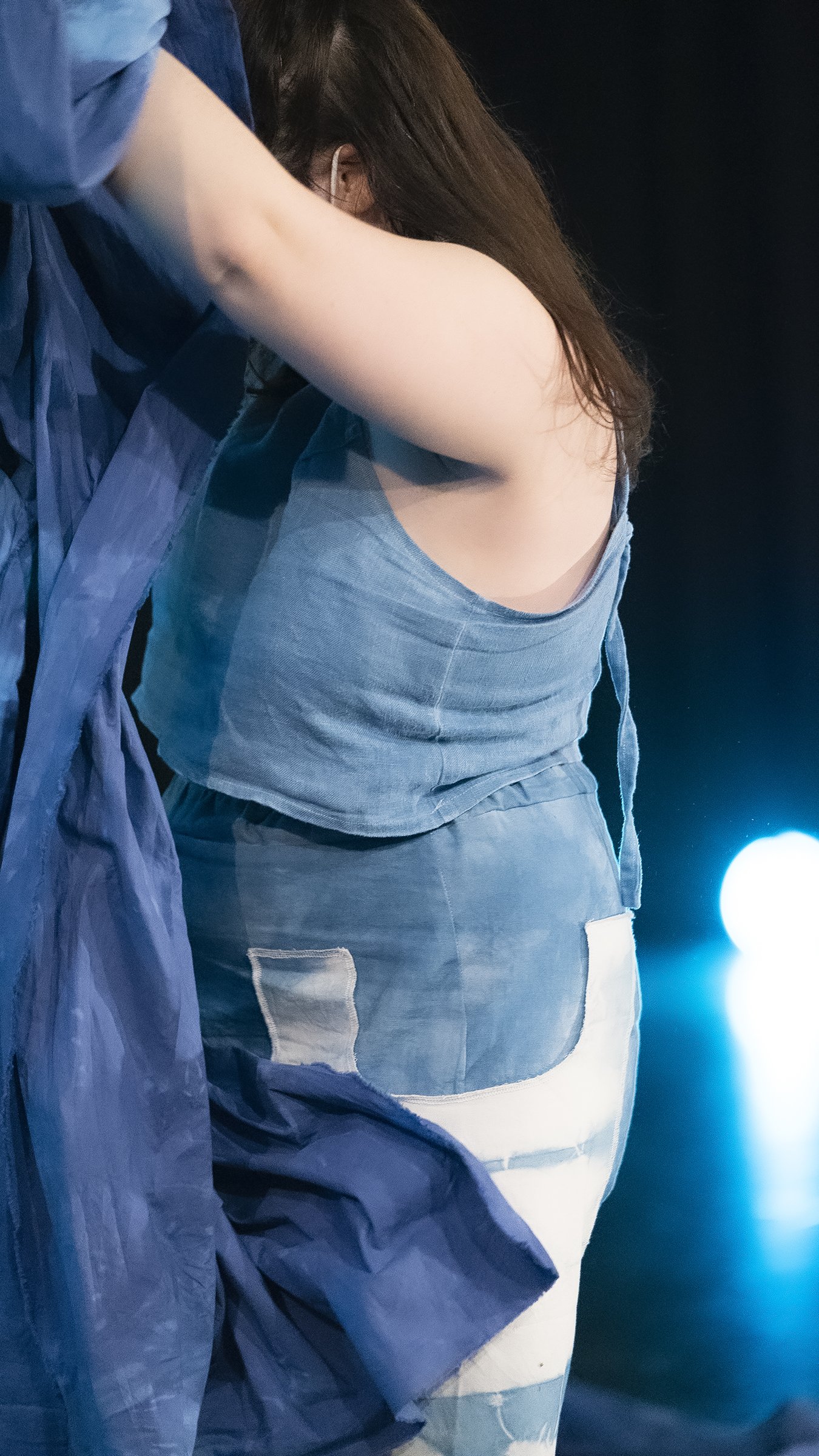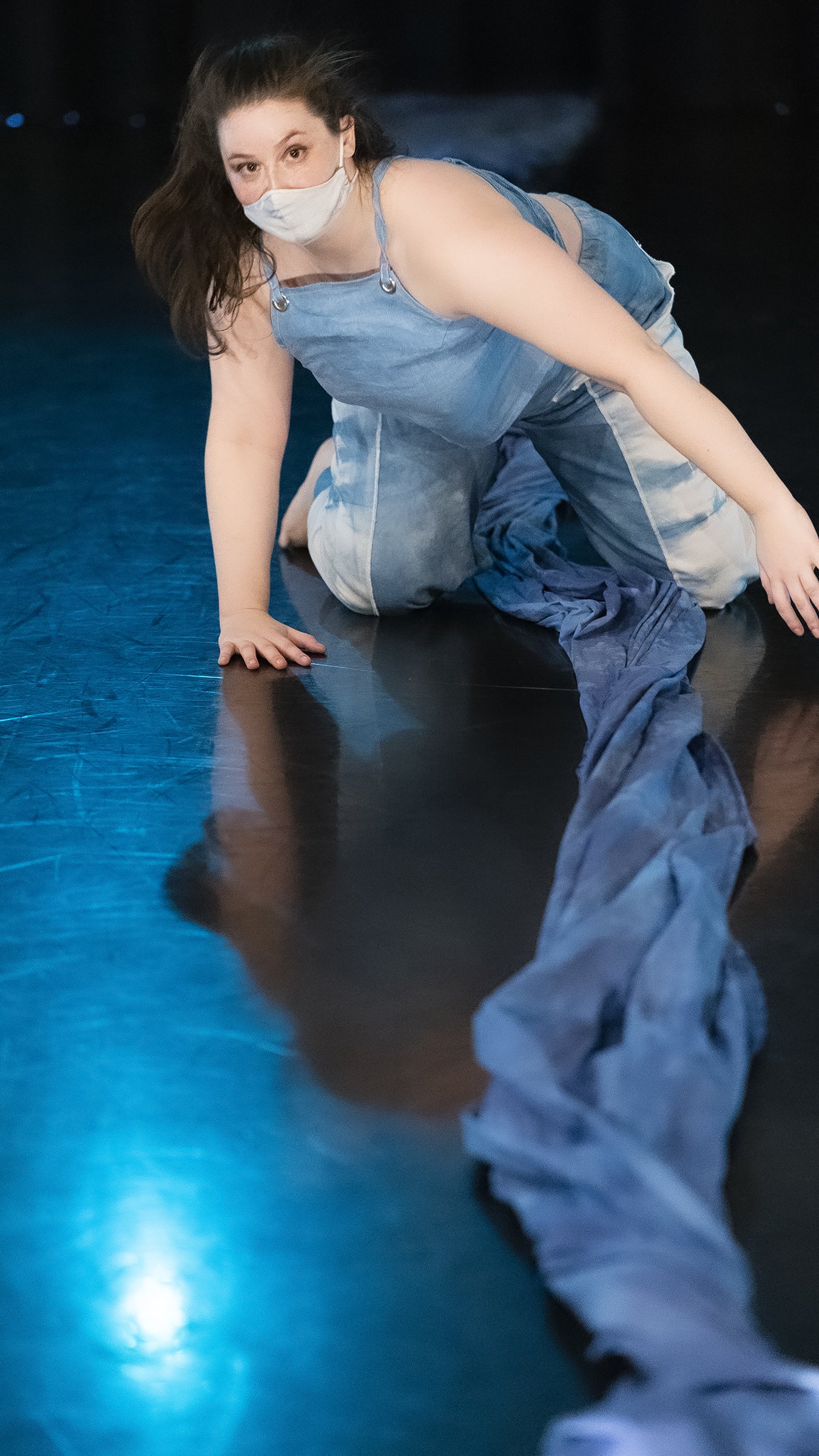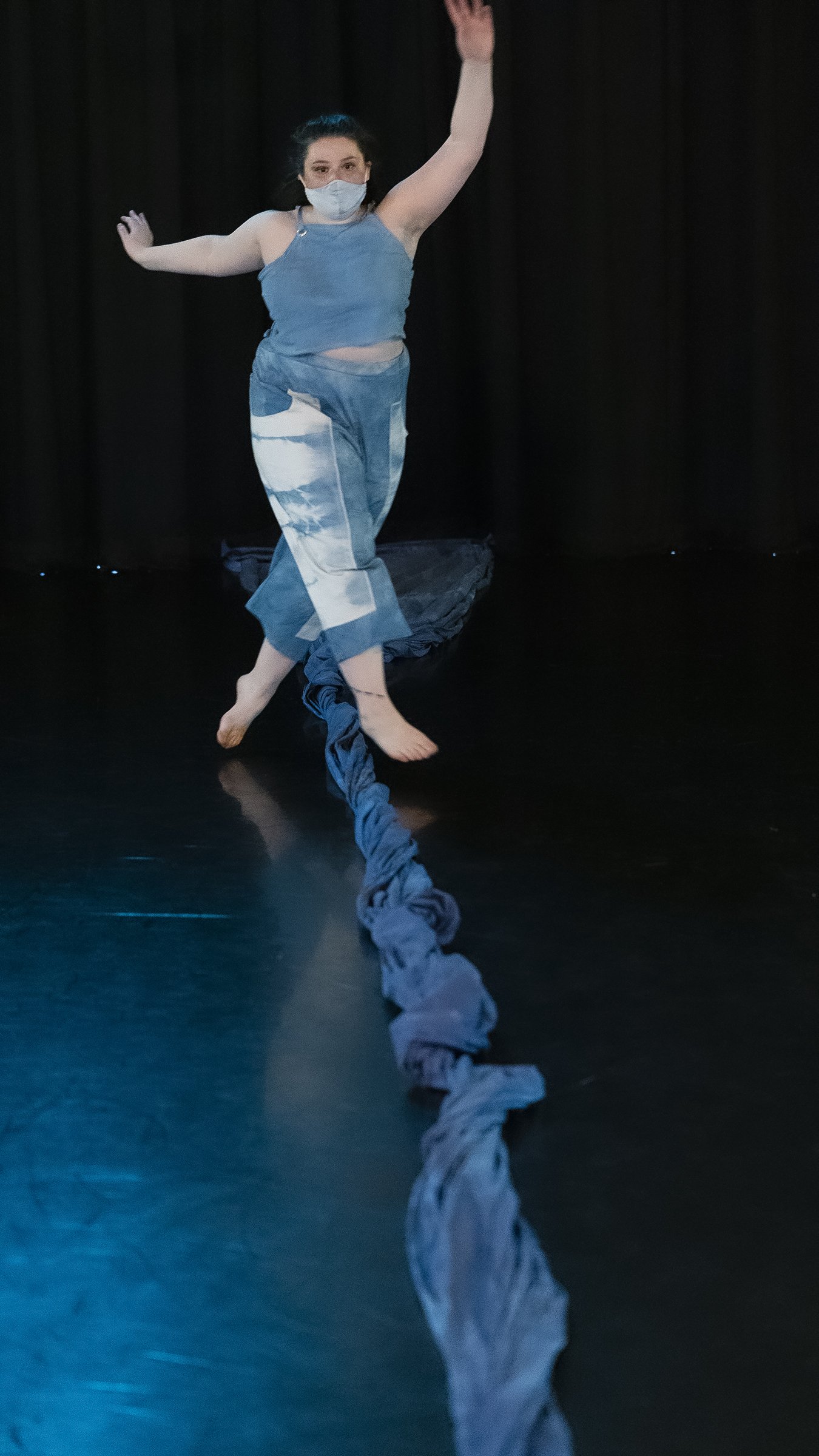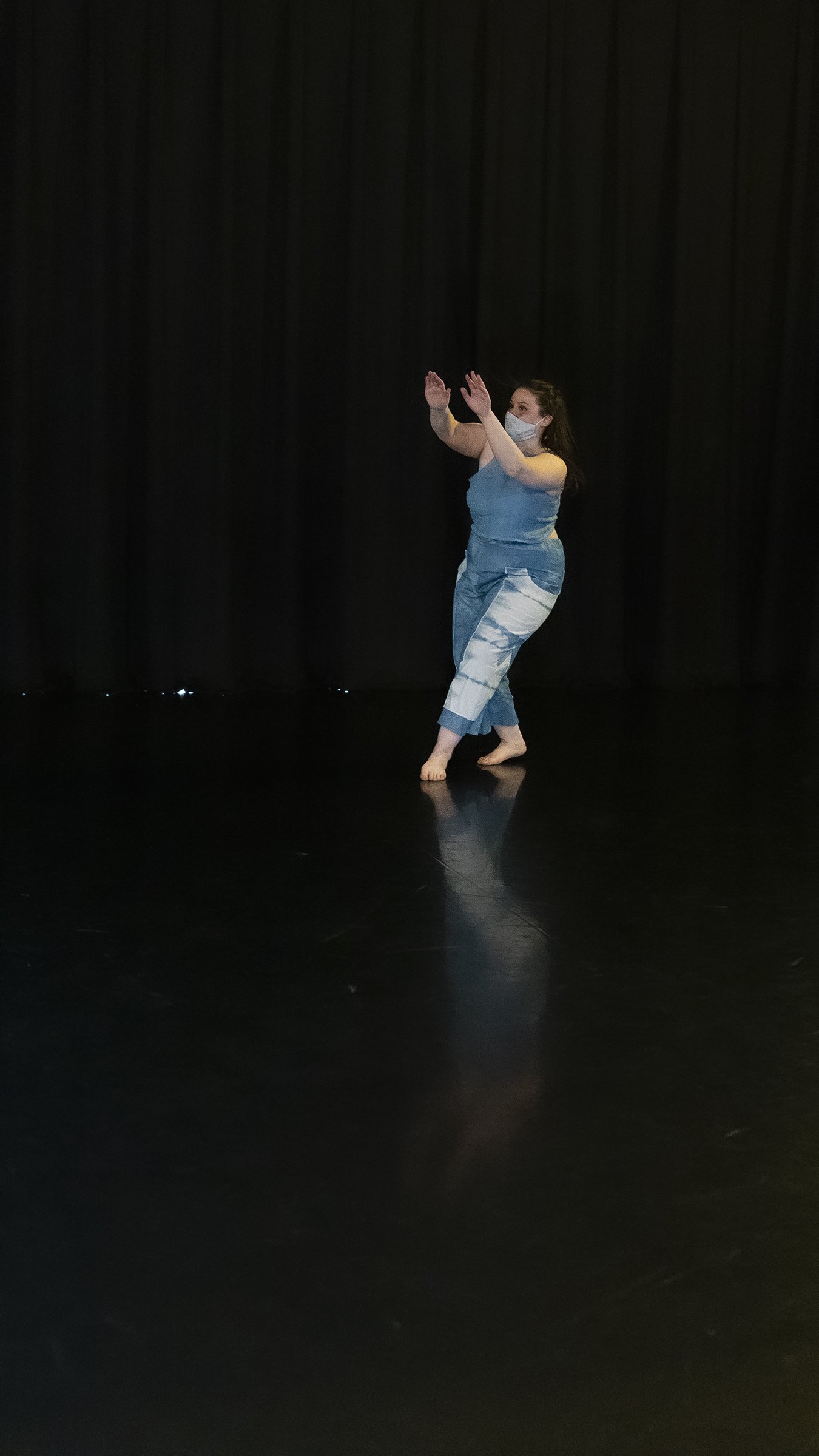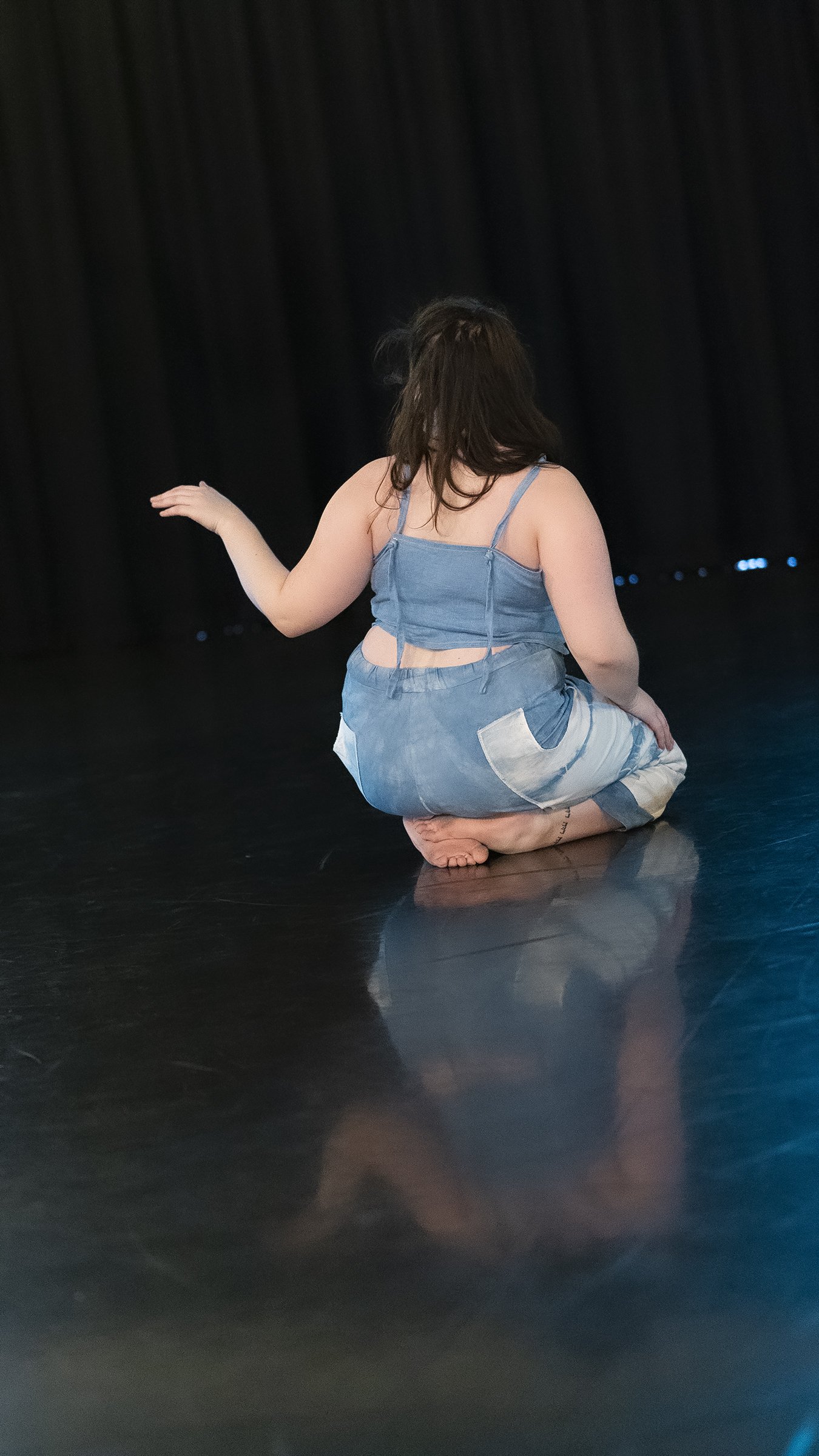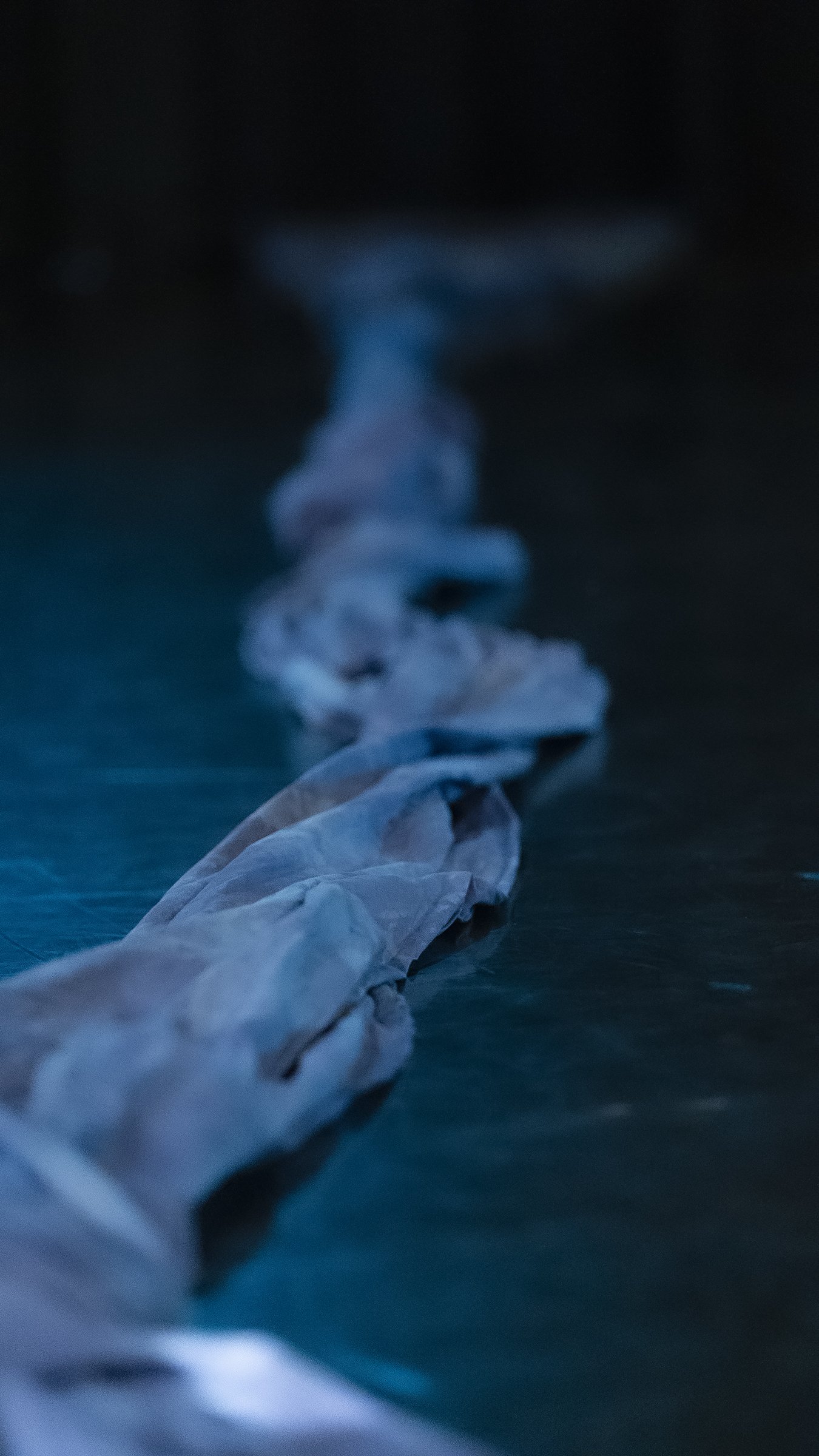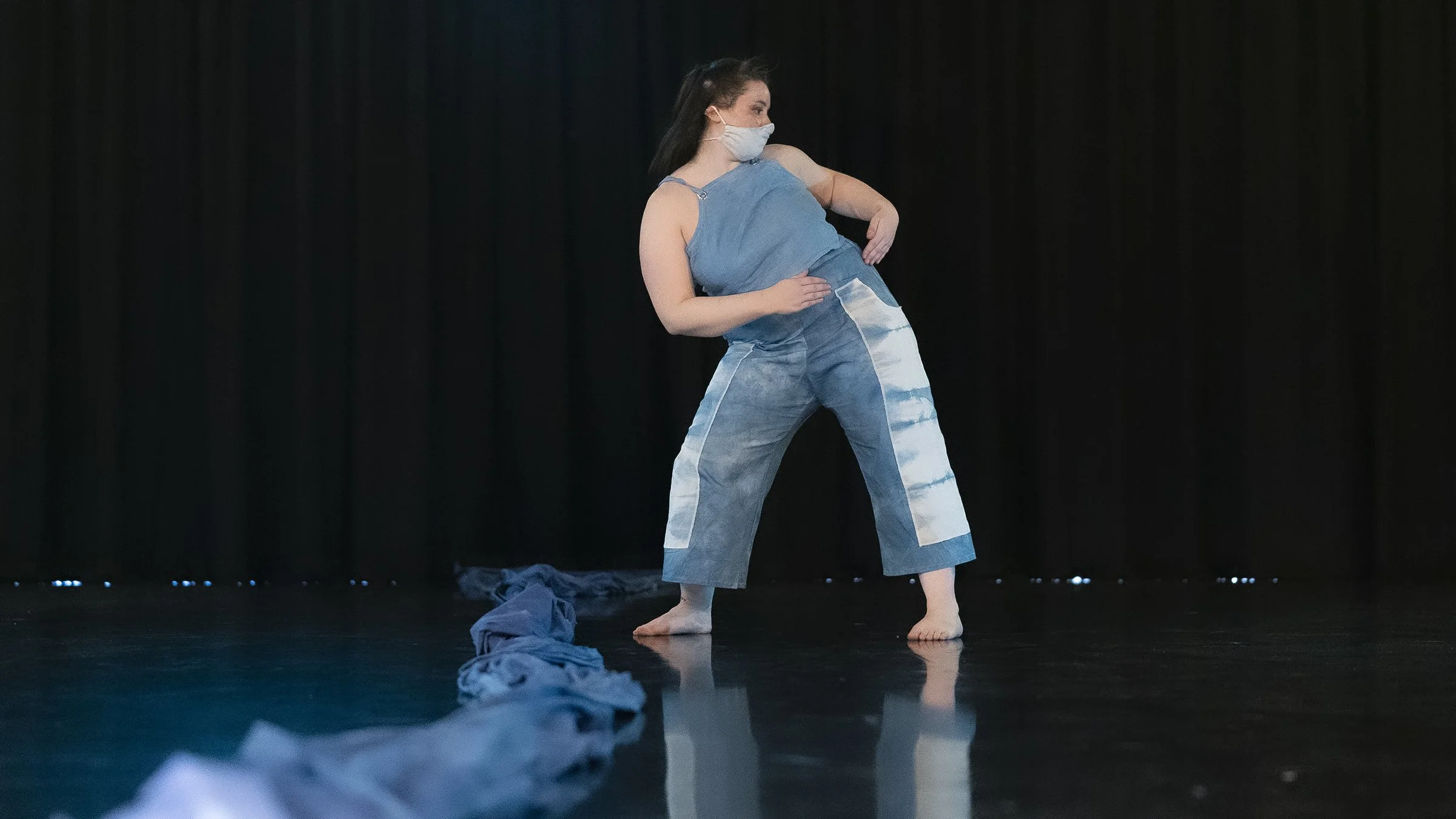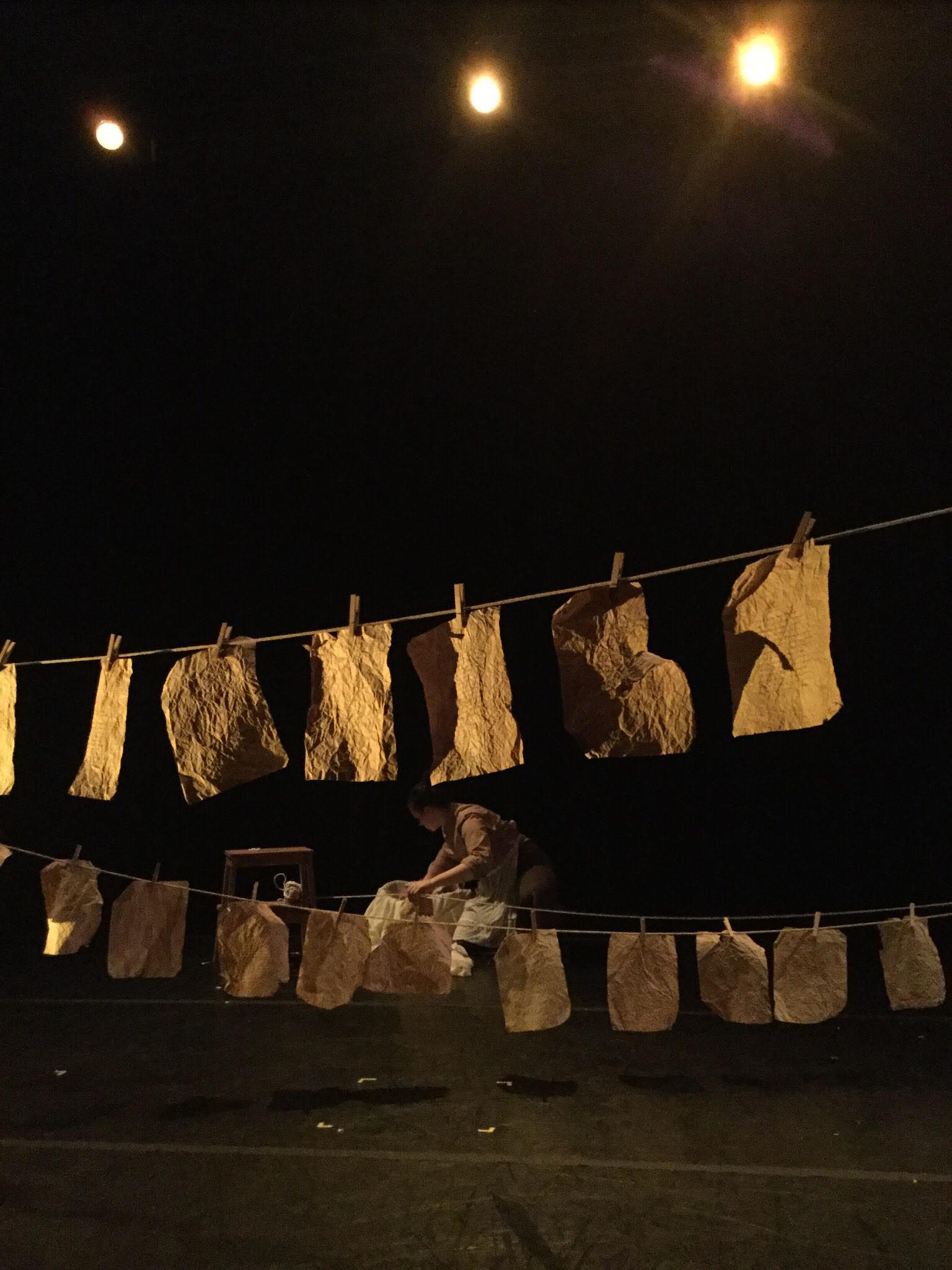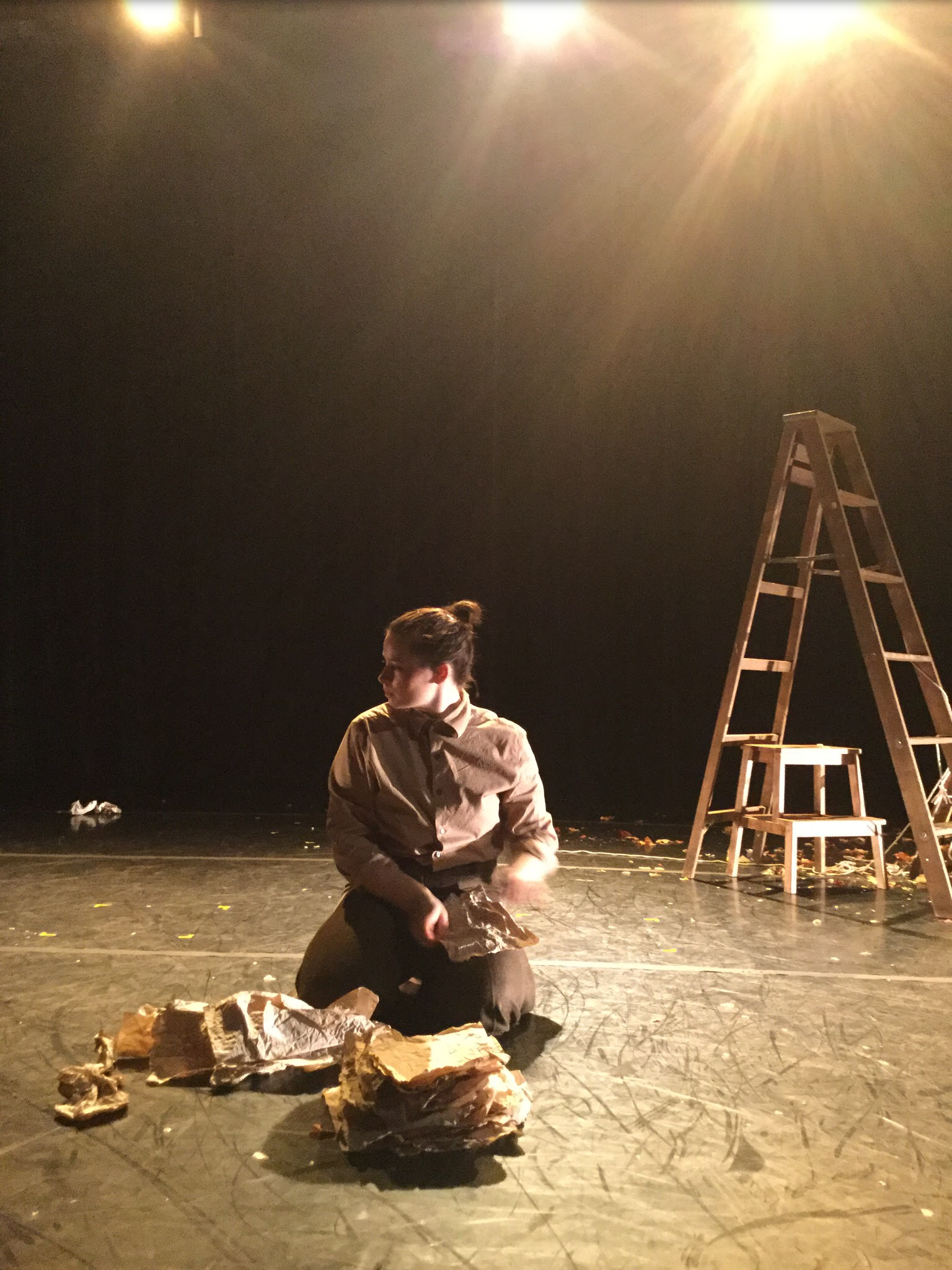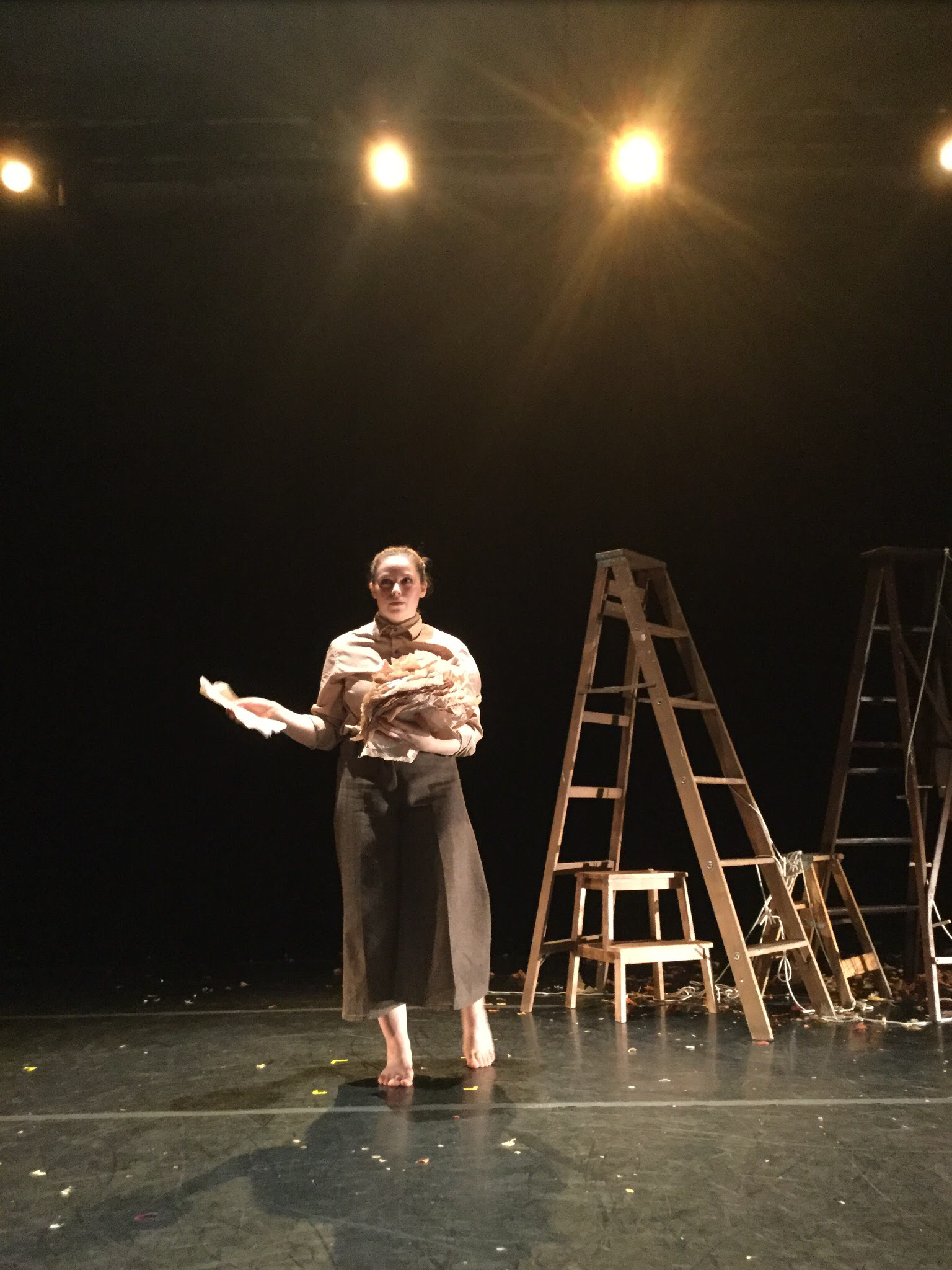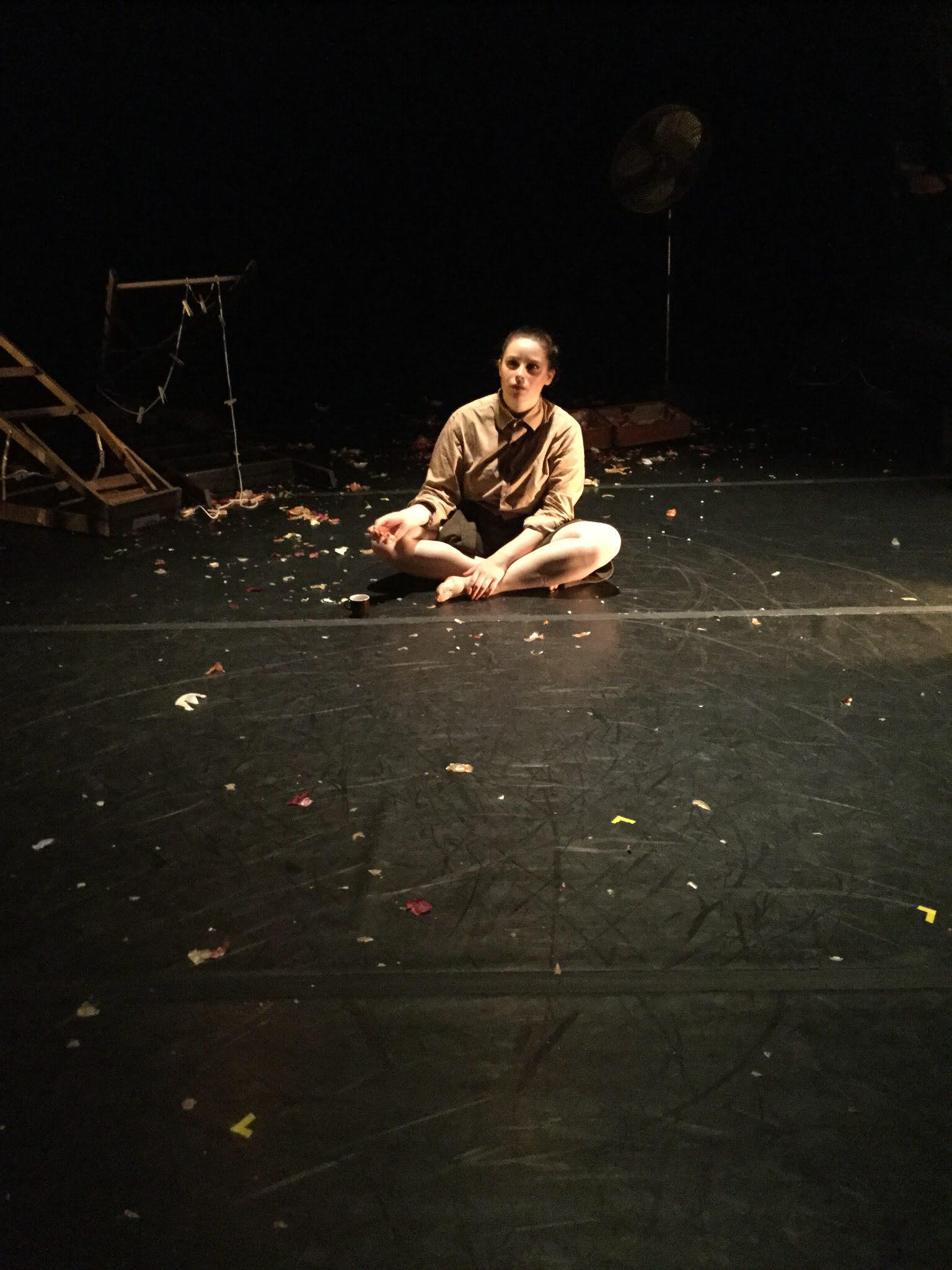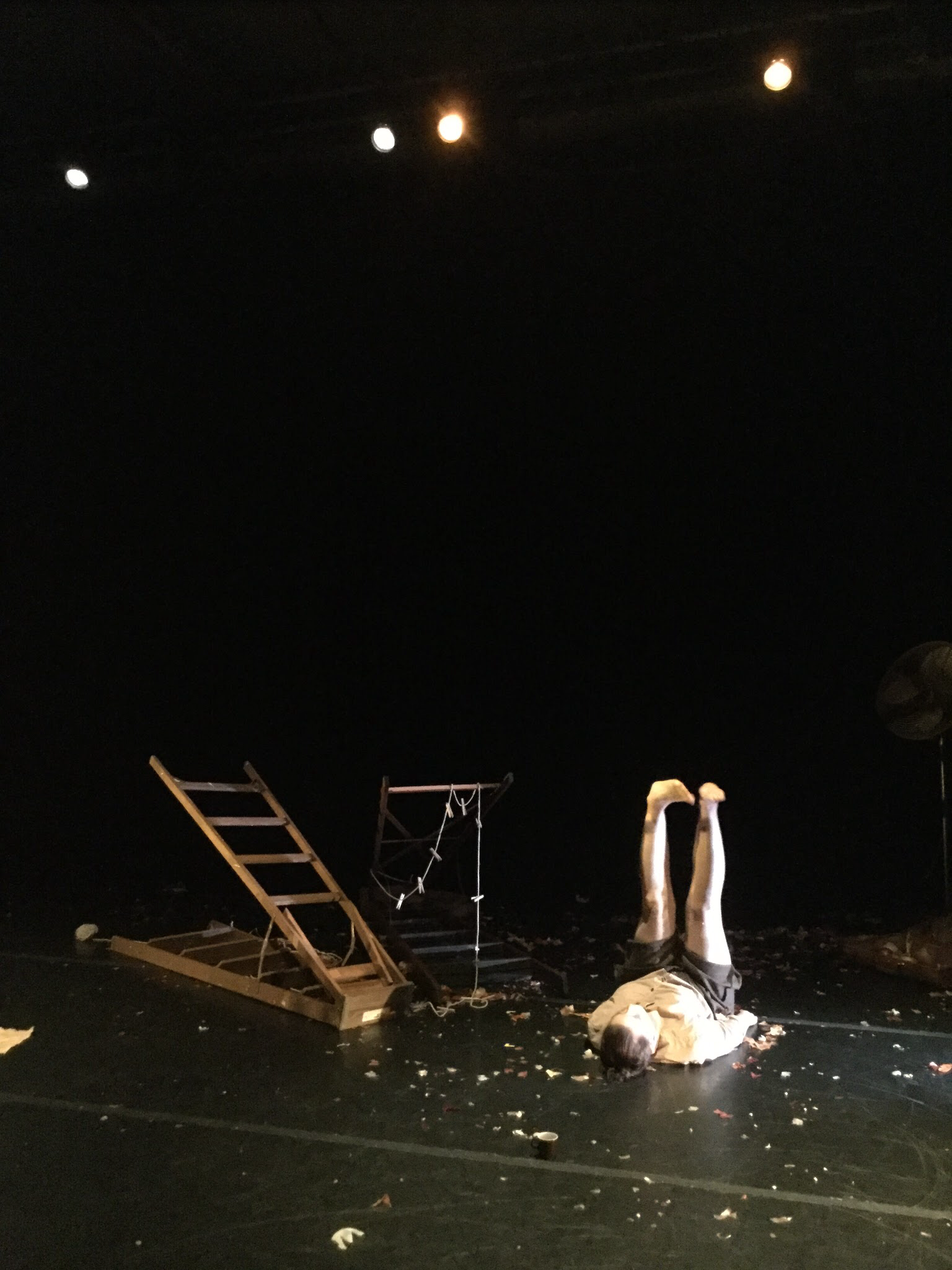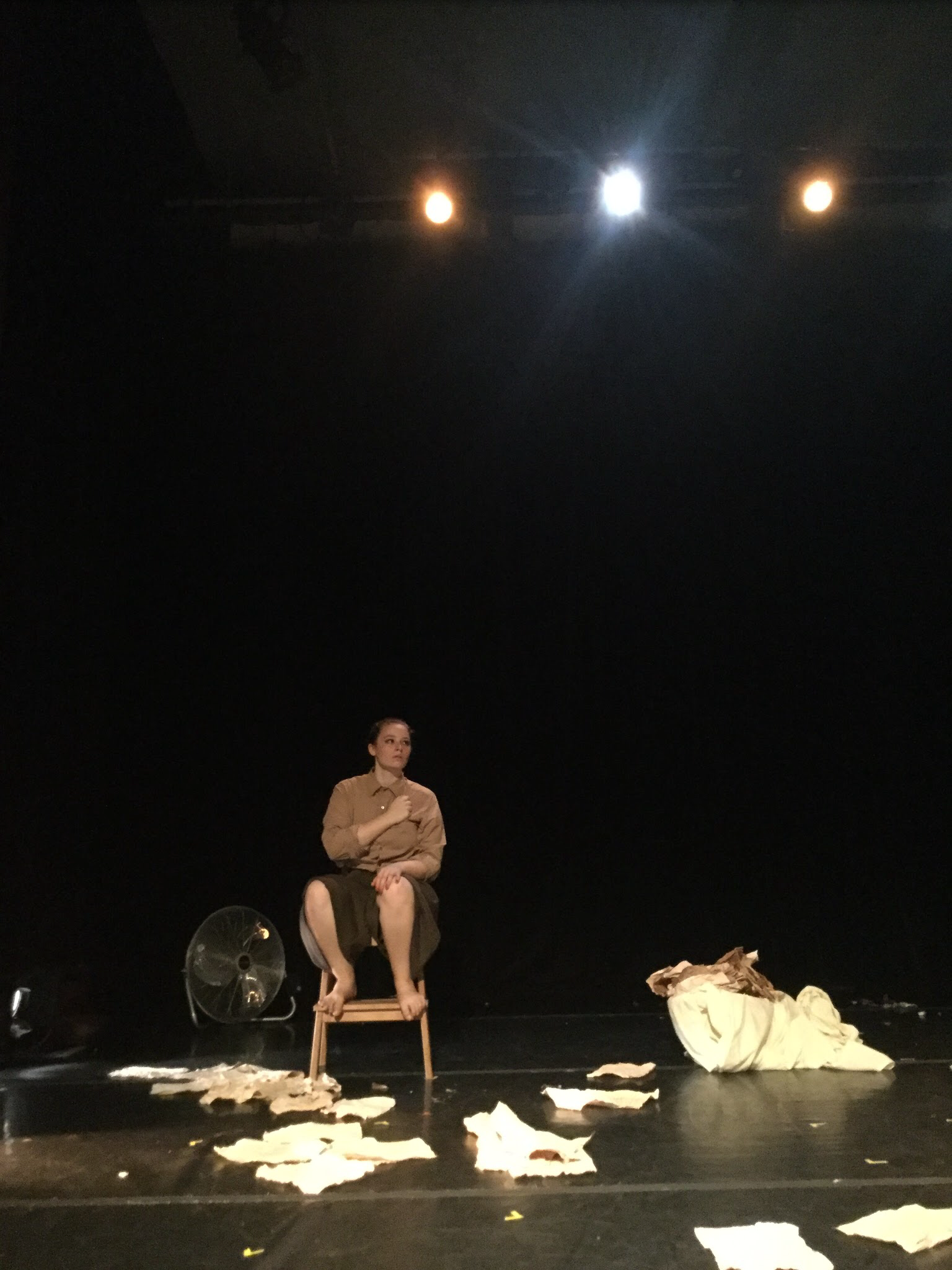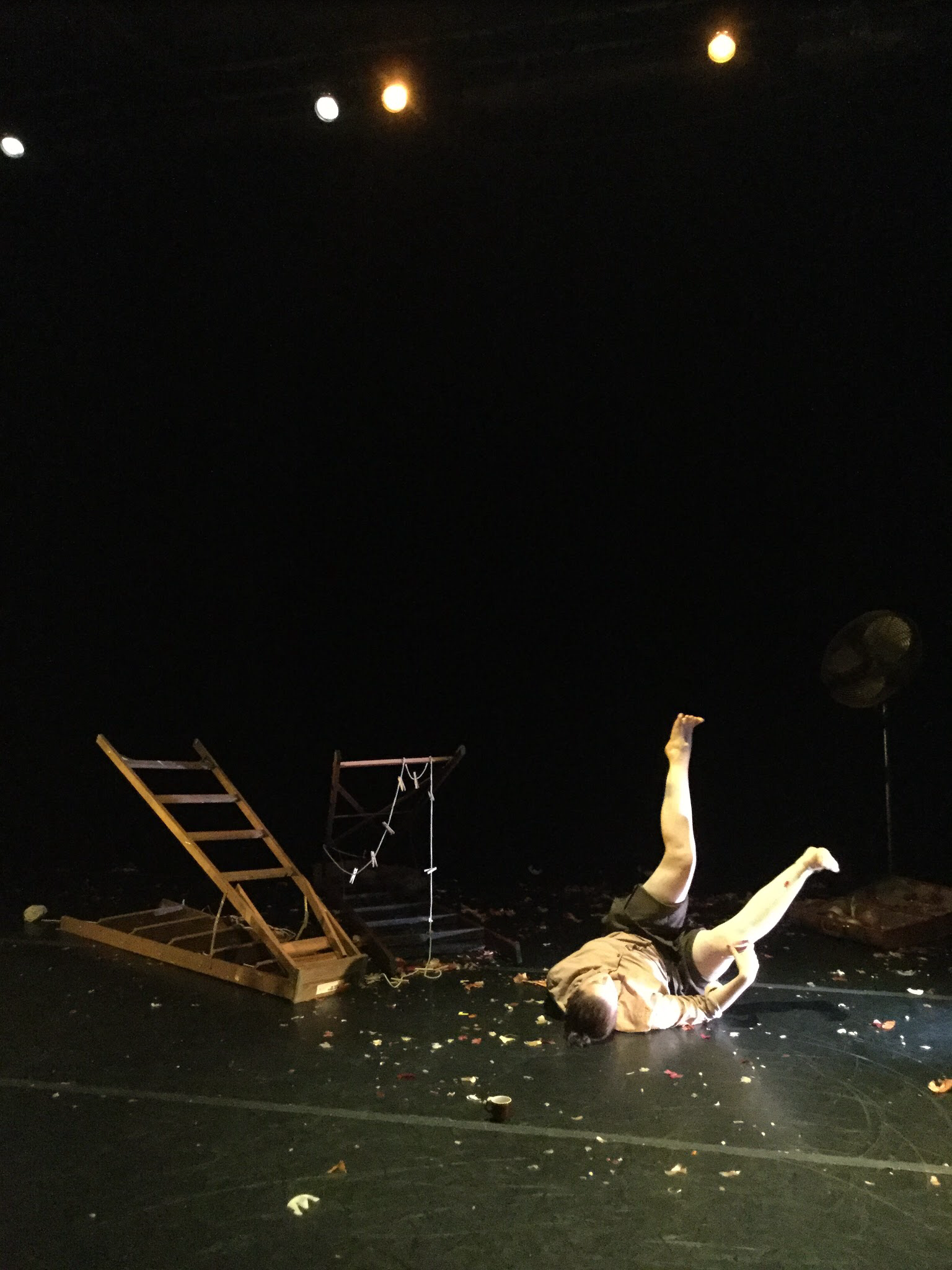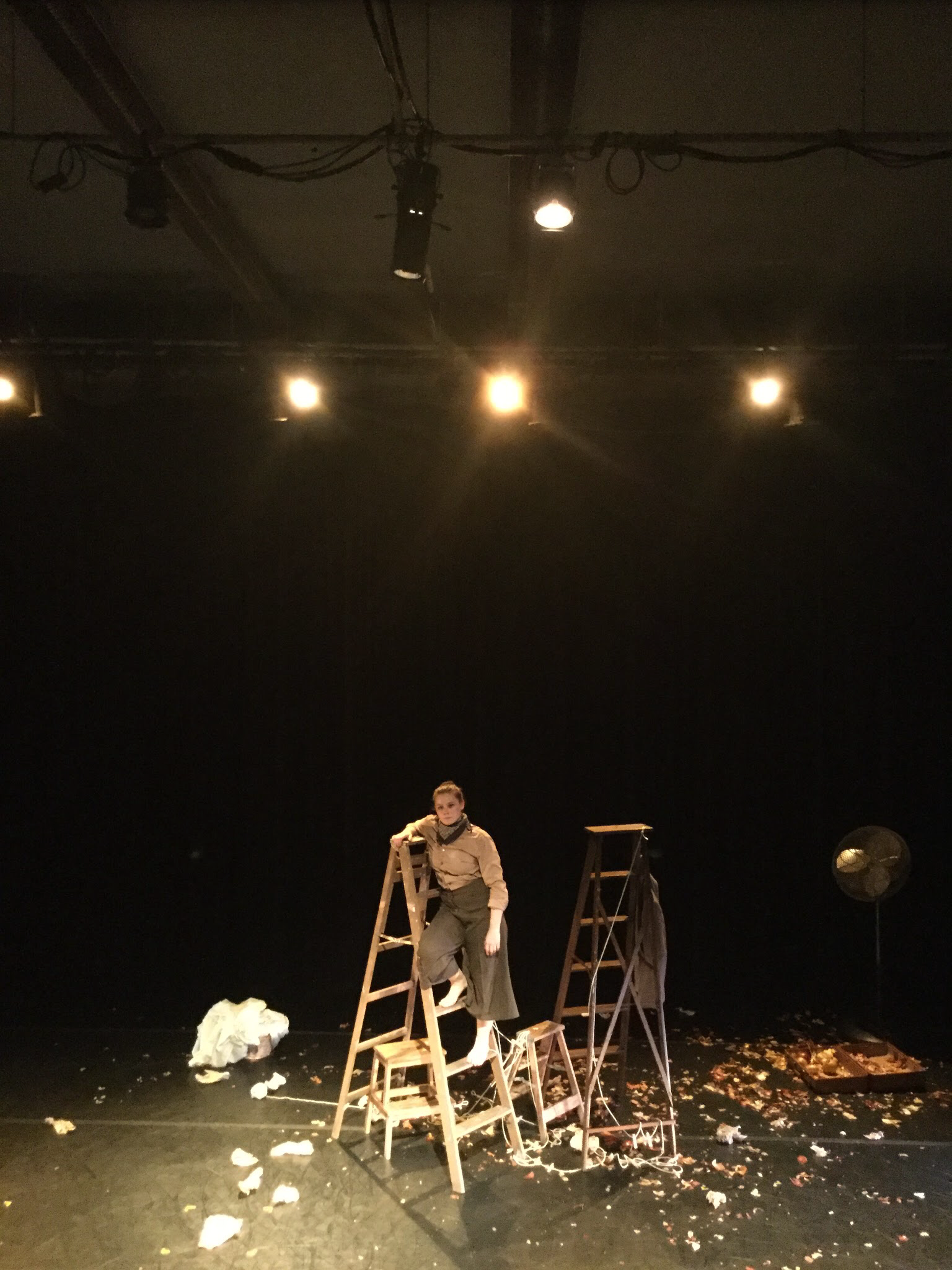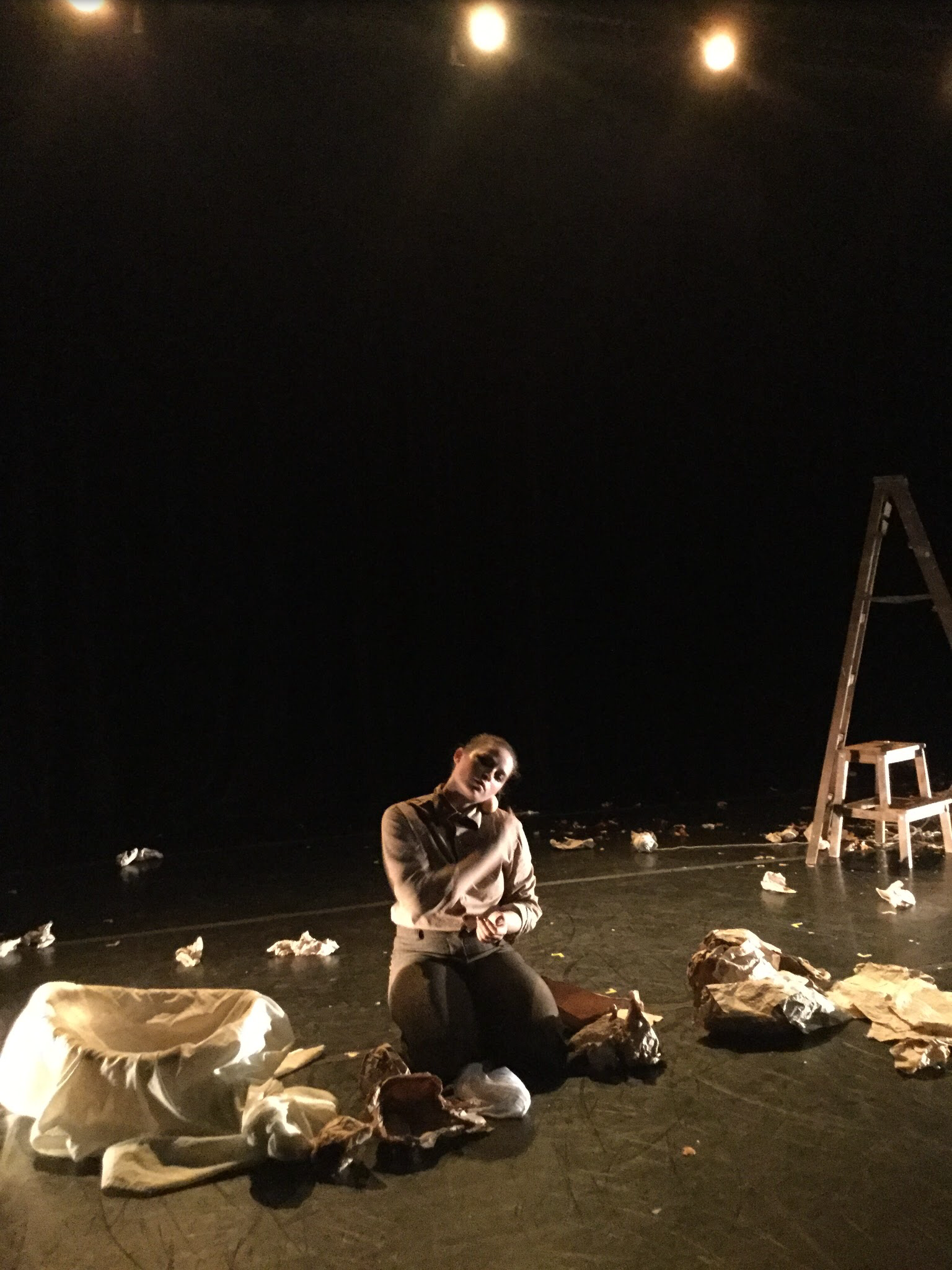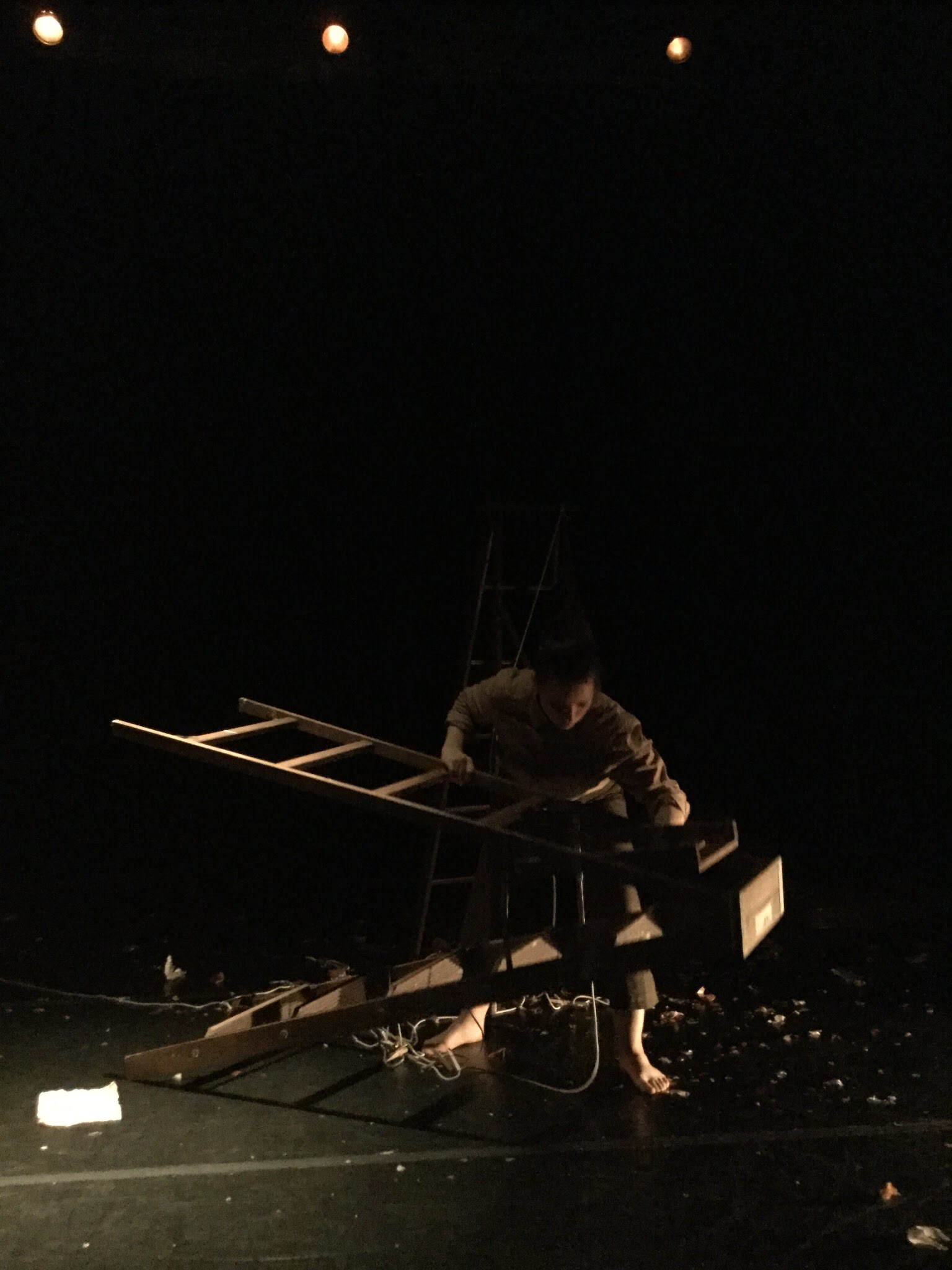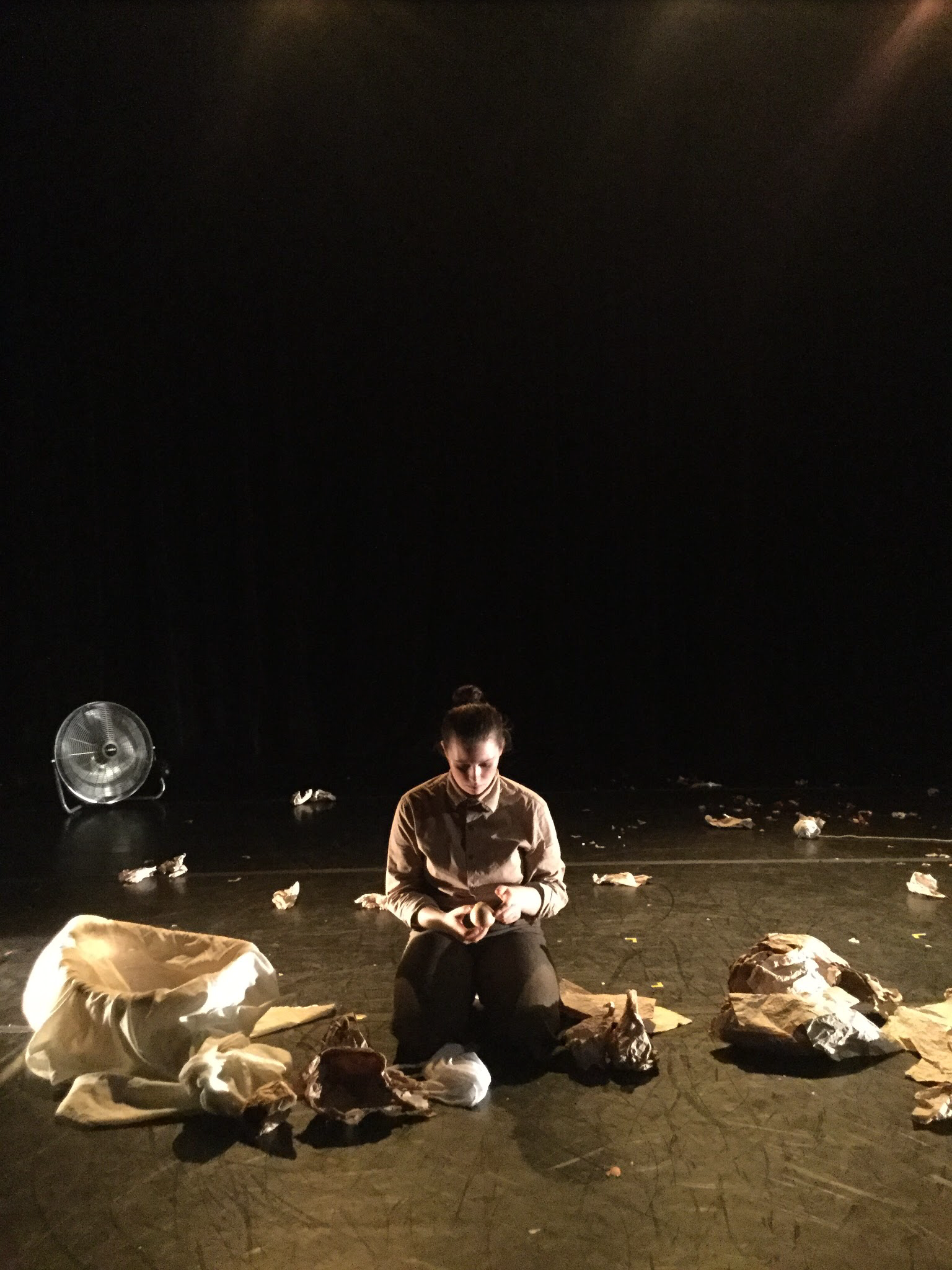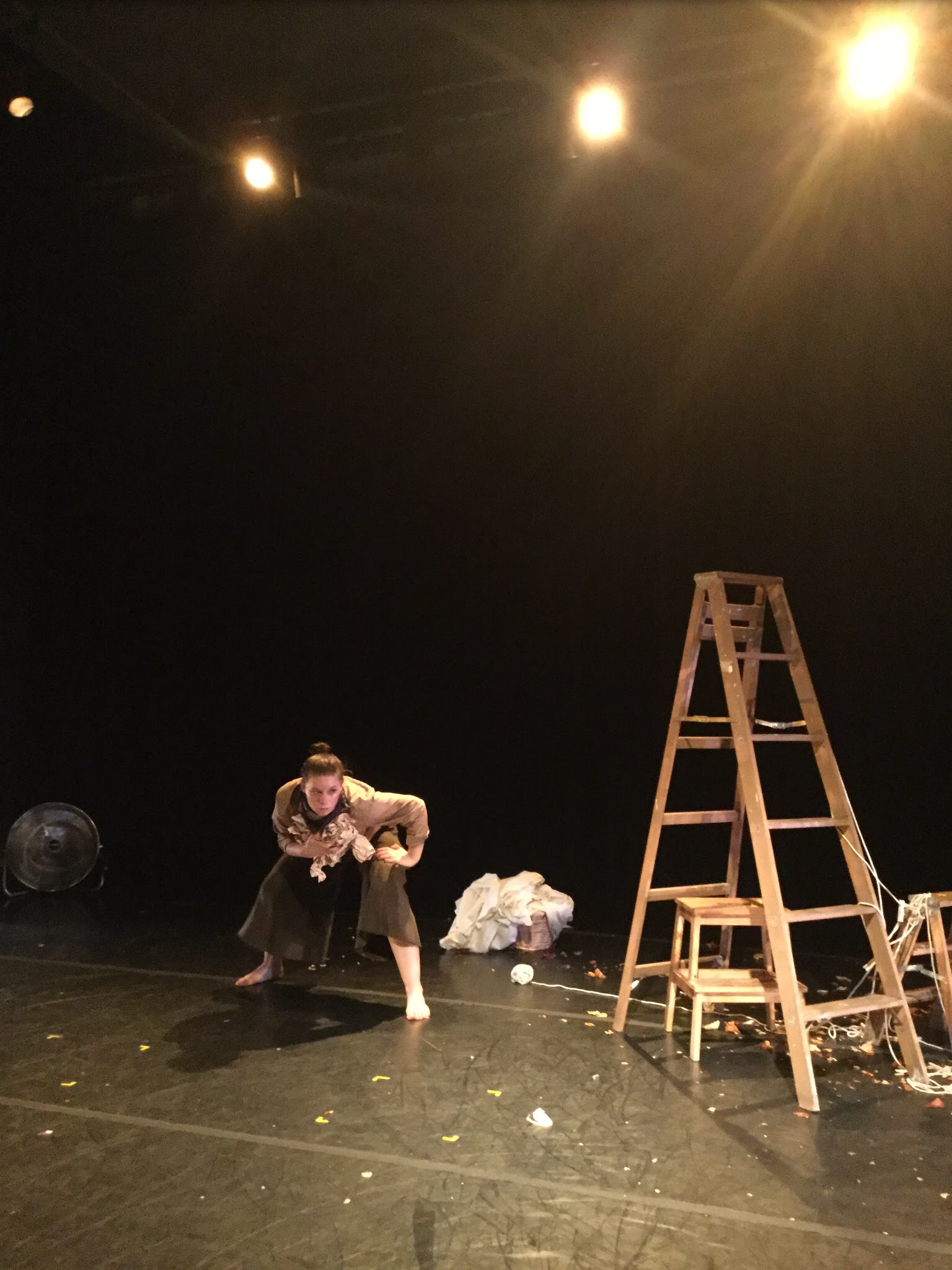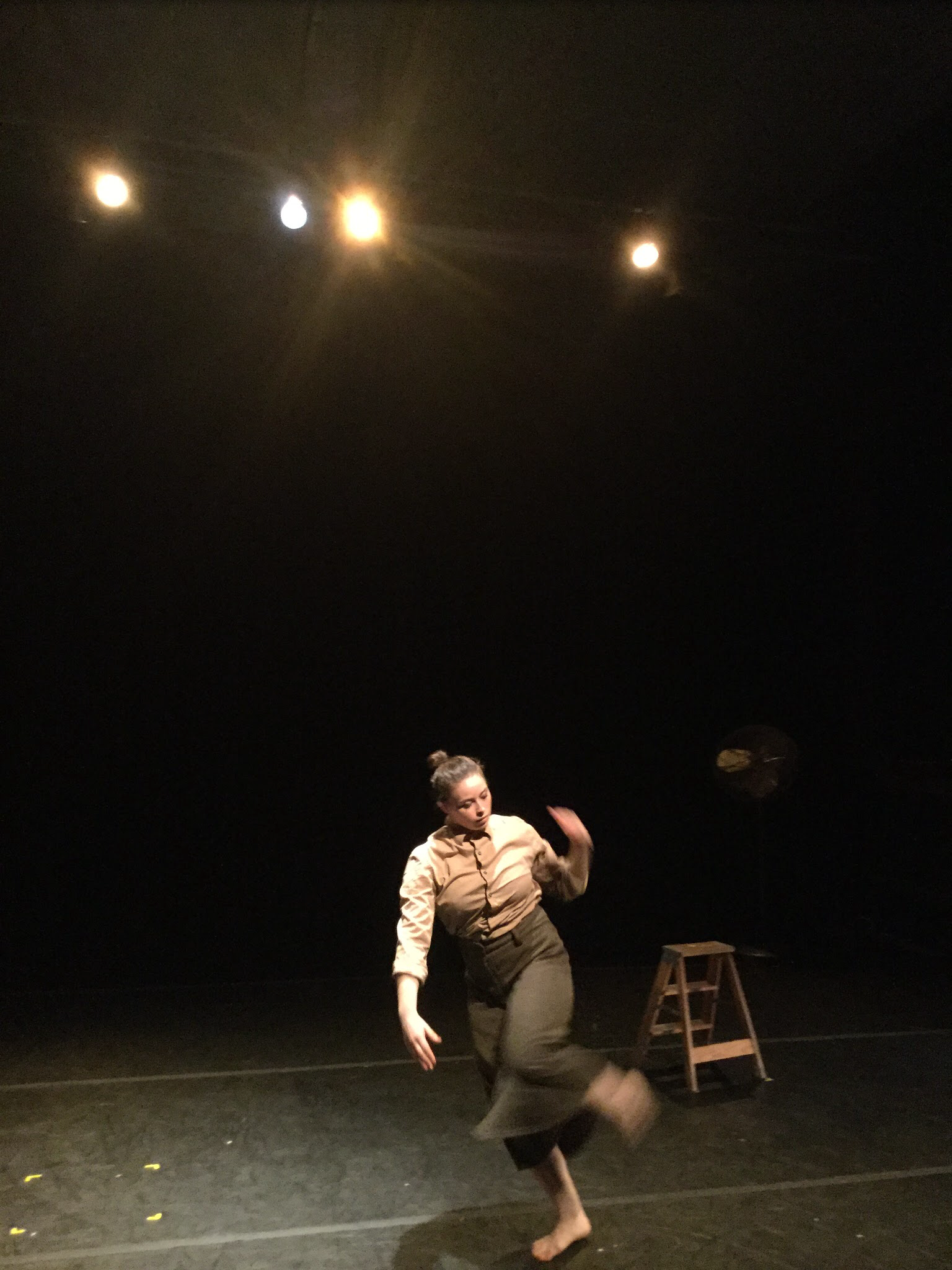WATER LINES (Spring 2021)
Water Lines served as Talia Mason’s final MFA performance. The piece was performed at Dance Exchange in Takoma Park, Maryland. Much like the fall iteration of Water Lines, its sequel included digital components and utilized both Dance Exchange studios. The spring iteration of Water Lines built upon the preliminary movement research created in the fall and was built into an evening-length show.
Water Lines is a multimedia dive into exploring ancestral connections to bodies of water and how water informs our physical and cellular development. By investigating the properties and the malleability of water in all forms, this auto-ethnographic work explores an ancestral pull towards water. As someone who grew up in an interfaith family, Water Lines looks equally at the collisions of Jewish spiritual and religious practices and the ghost of Lutheranism and Protestantism in Talia’s daily life. The piece builds on themes of malleability when considering chaos and creation, ice and water, fire and ash, and sand play central roles in these experiments. As audience members and as a performer, we swim in some deep waters and some shallow waters, spiritually and physically.
Collaborators include: Erica Rice (dramaturge + props design), Eliza Wapner (costume design), Sam Day Harmet (sound design), Christina Helm (stage manager), Elizabeth Rees (poet/mom), and Keith Mason (environmentalist/dad).
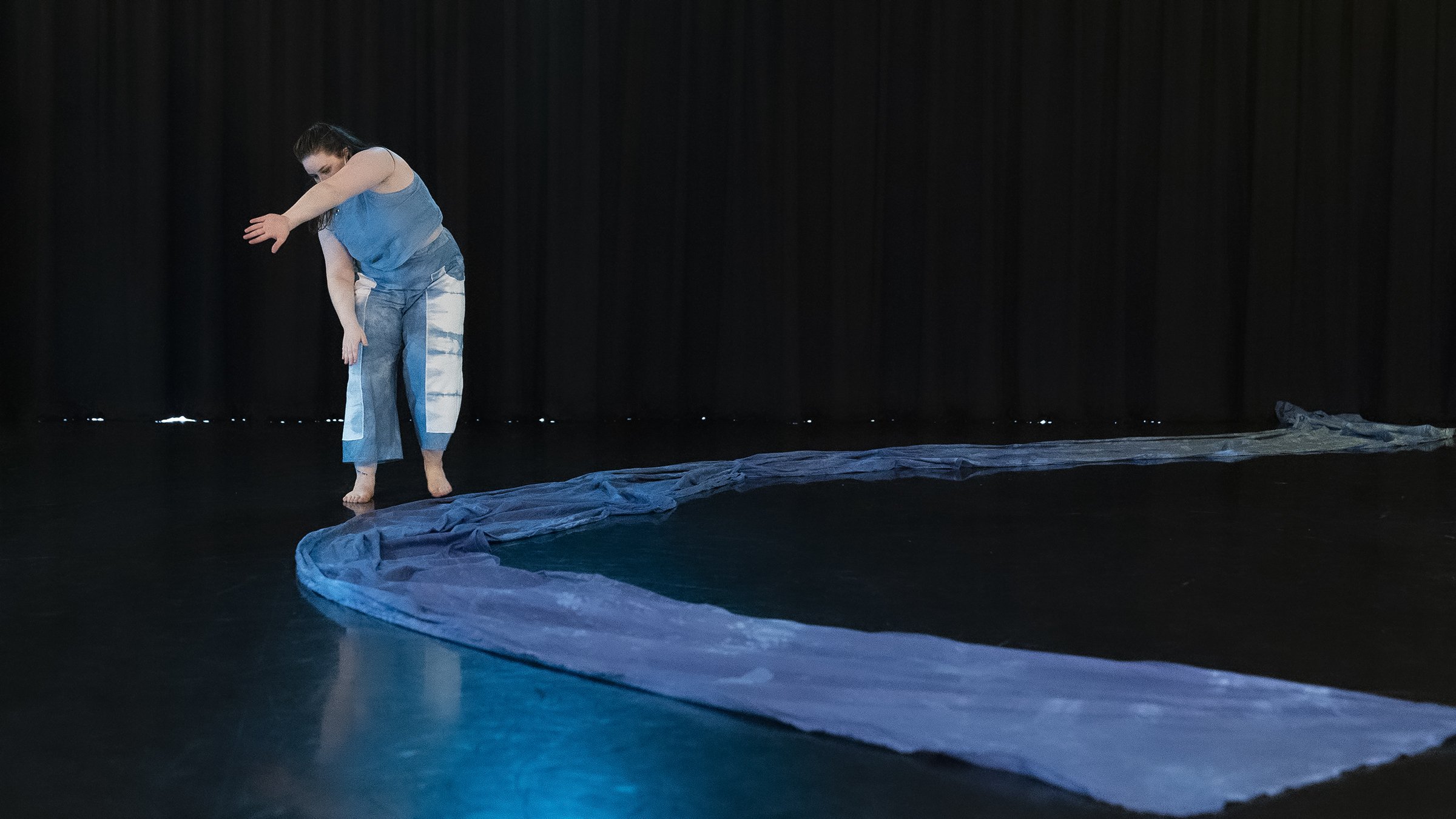
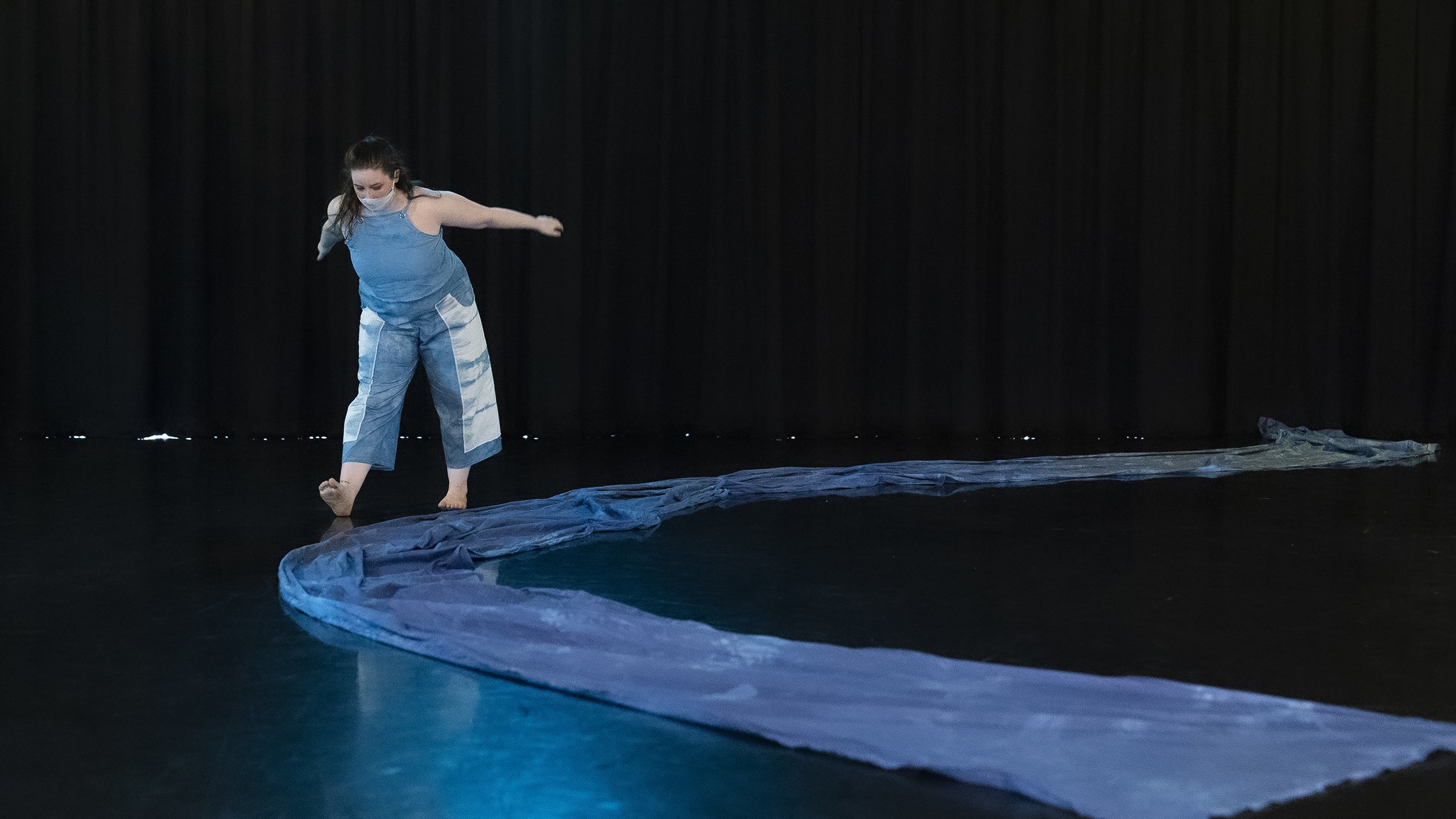
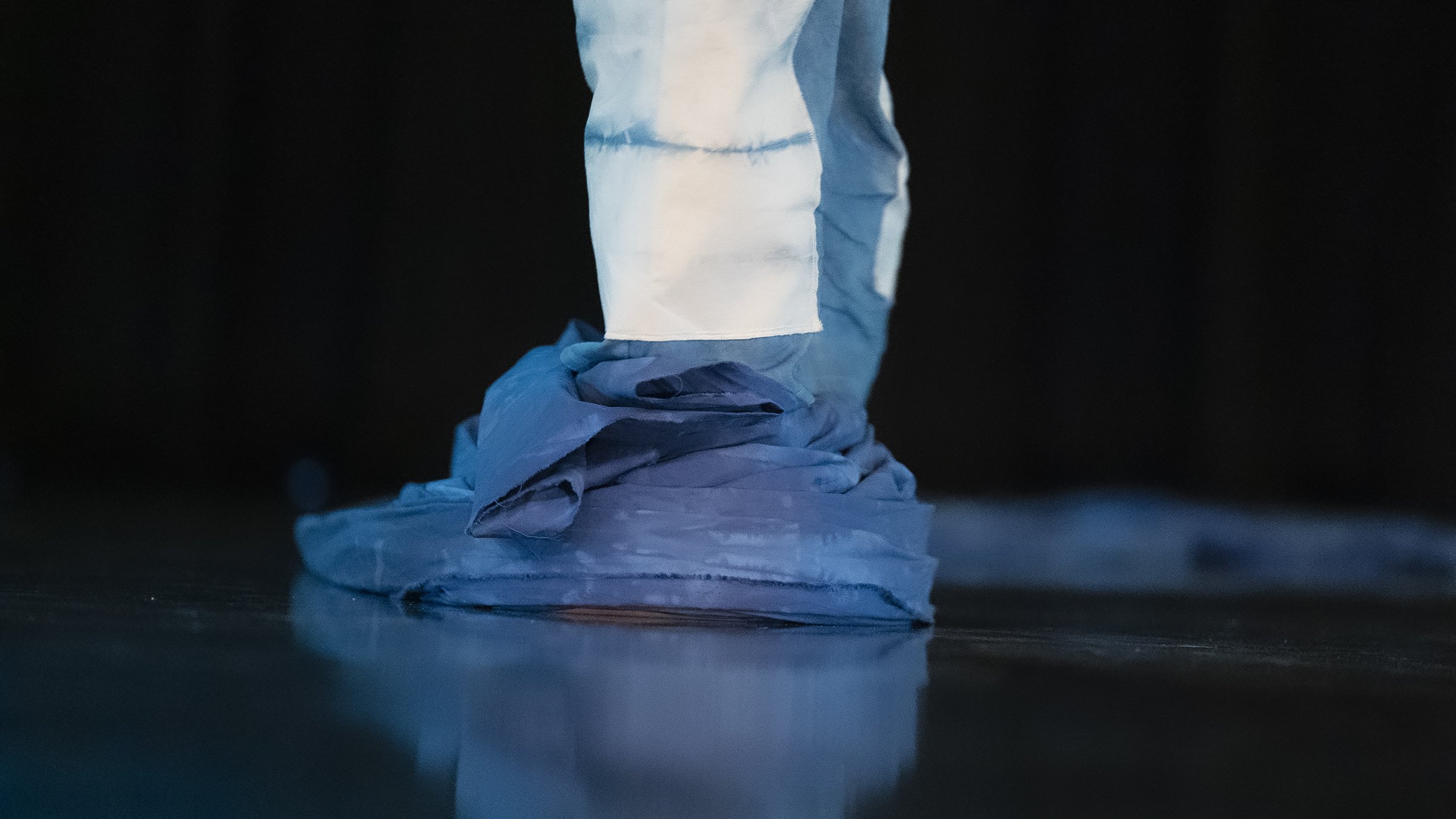
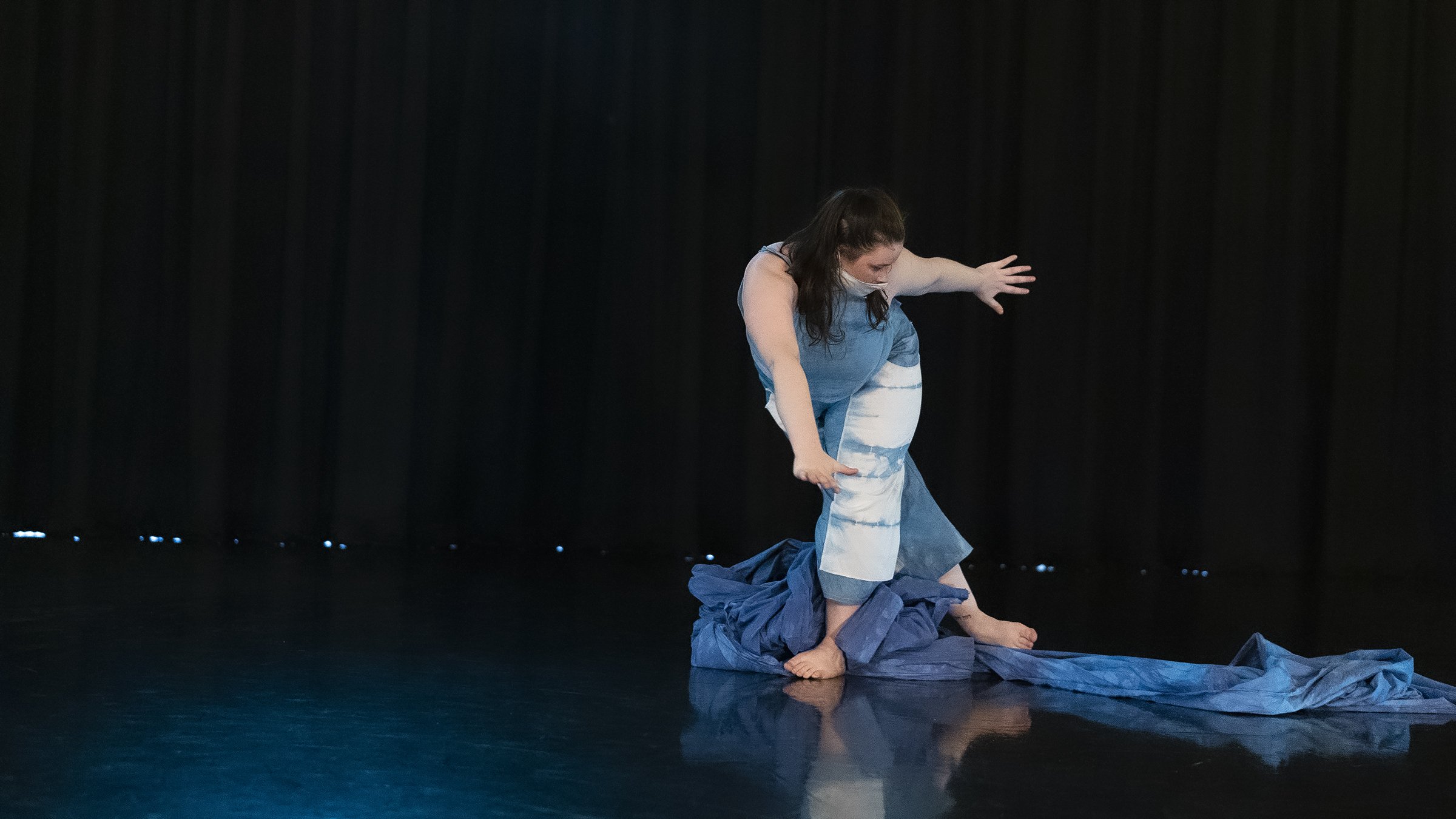
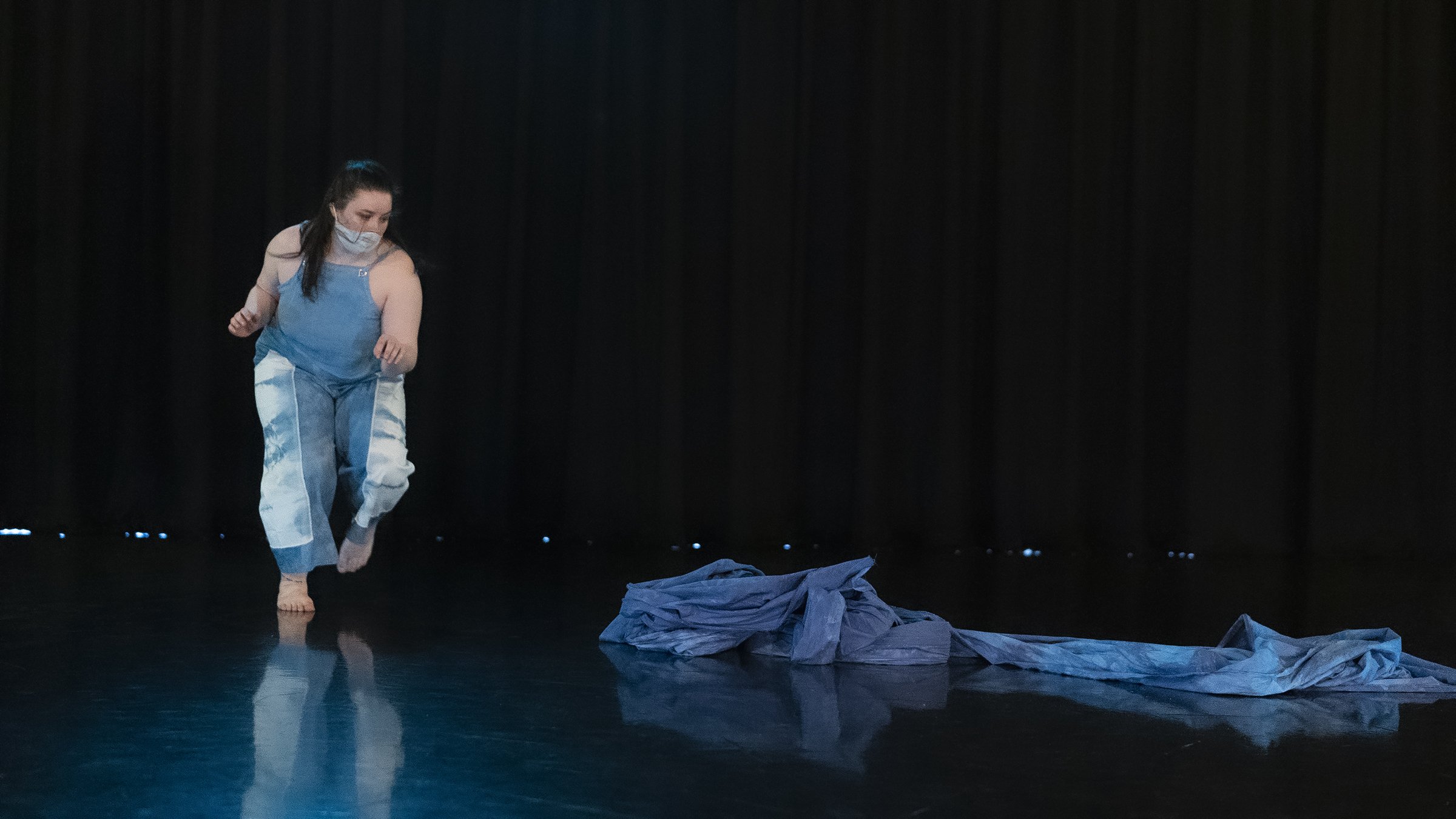
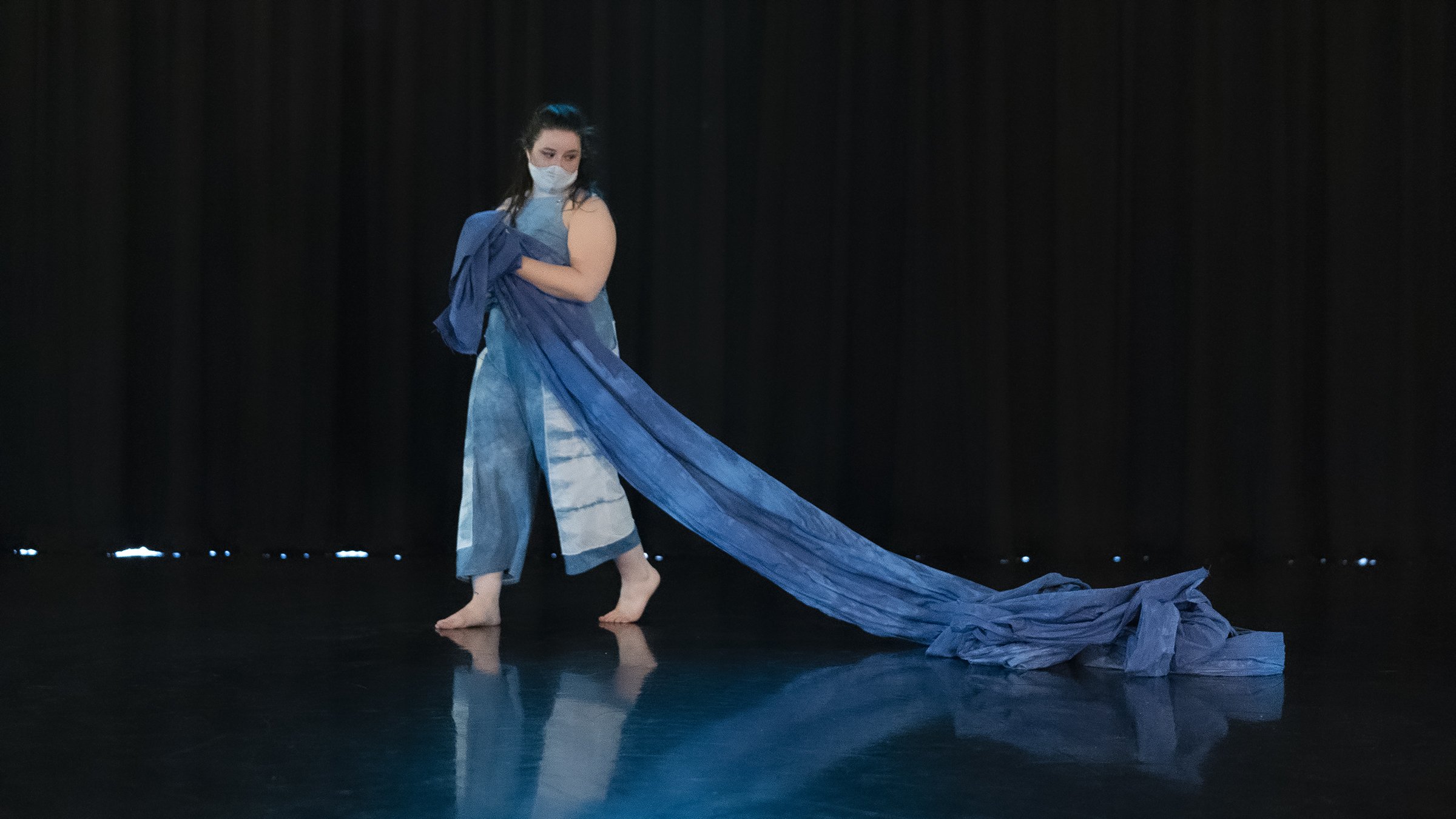
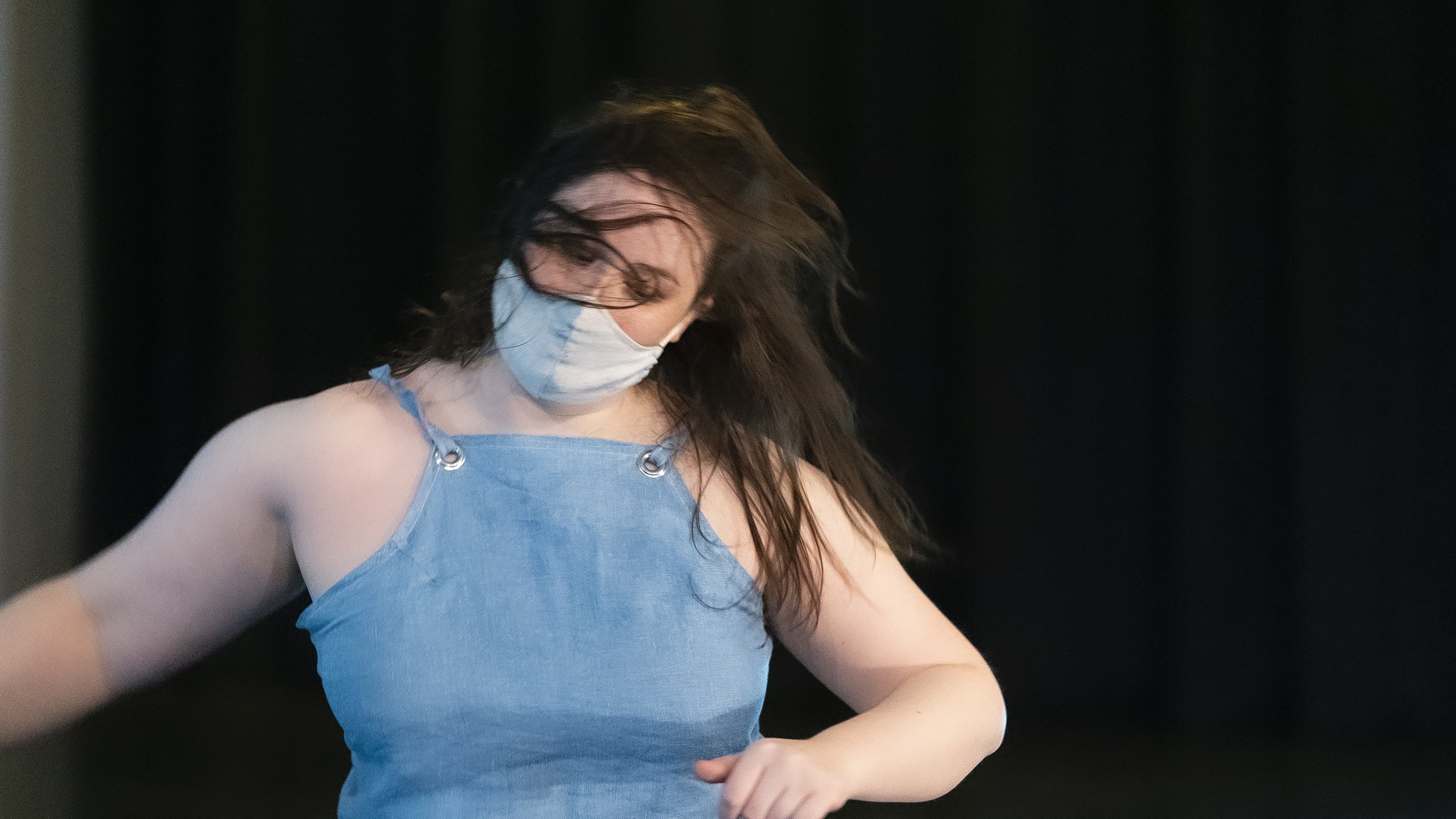
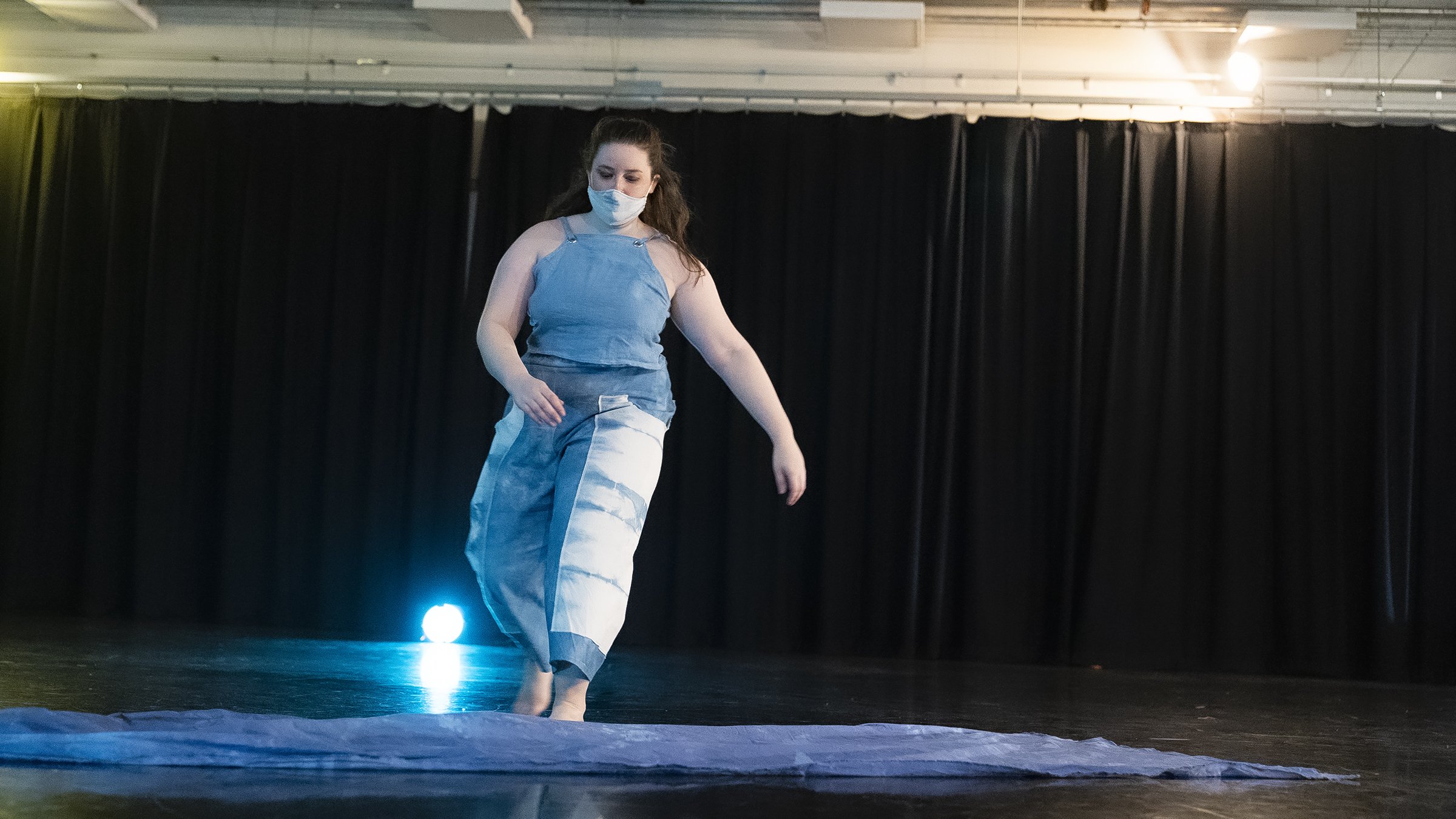
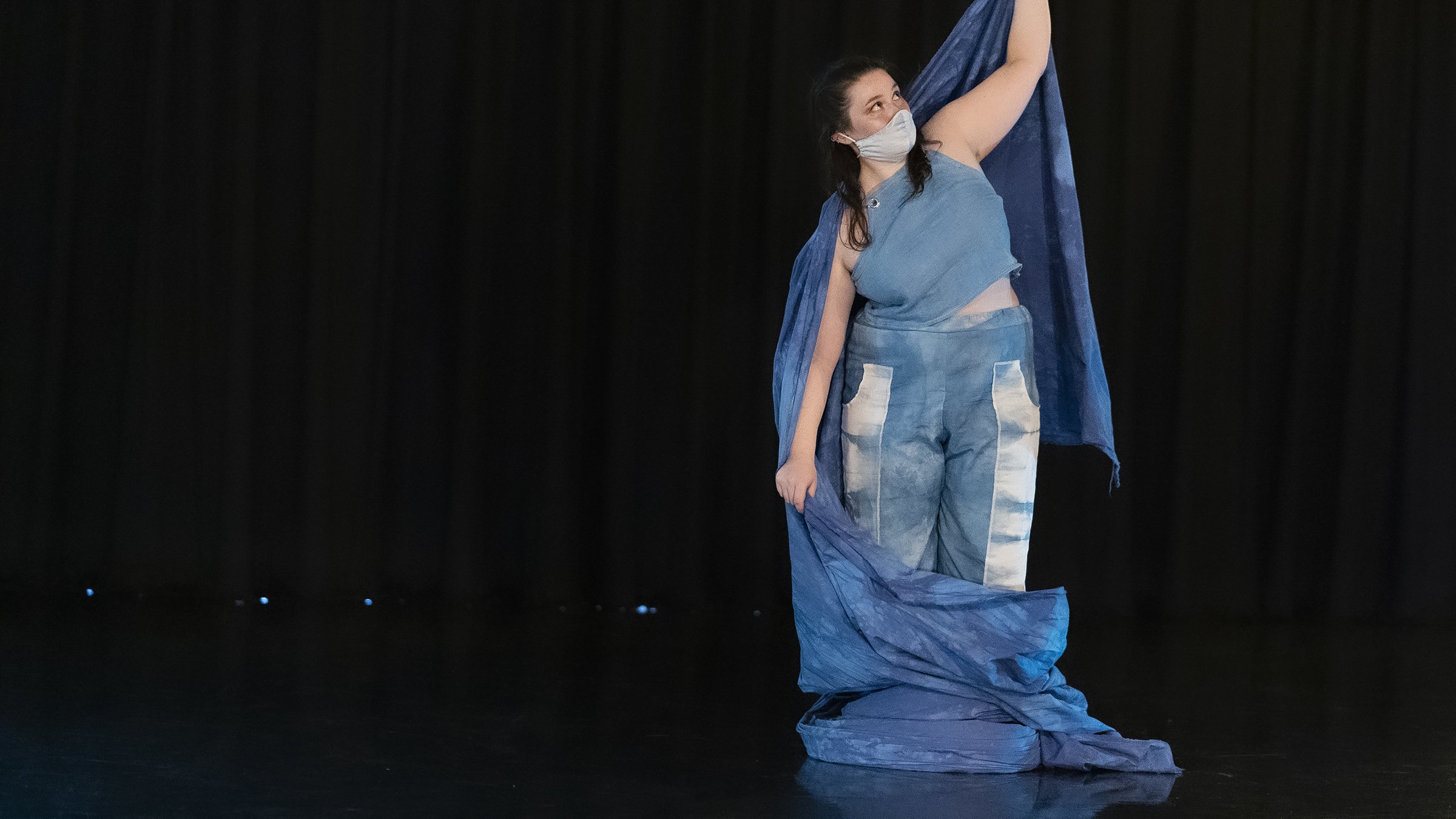
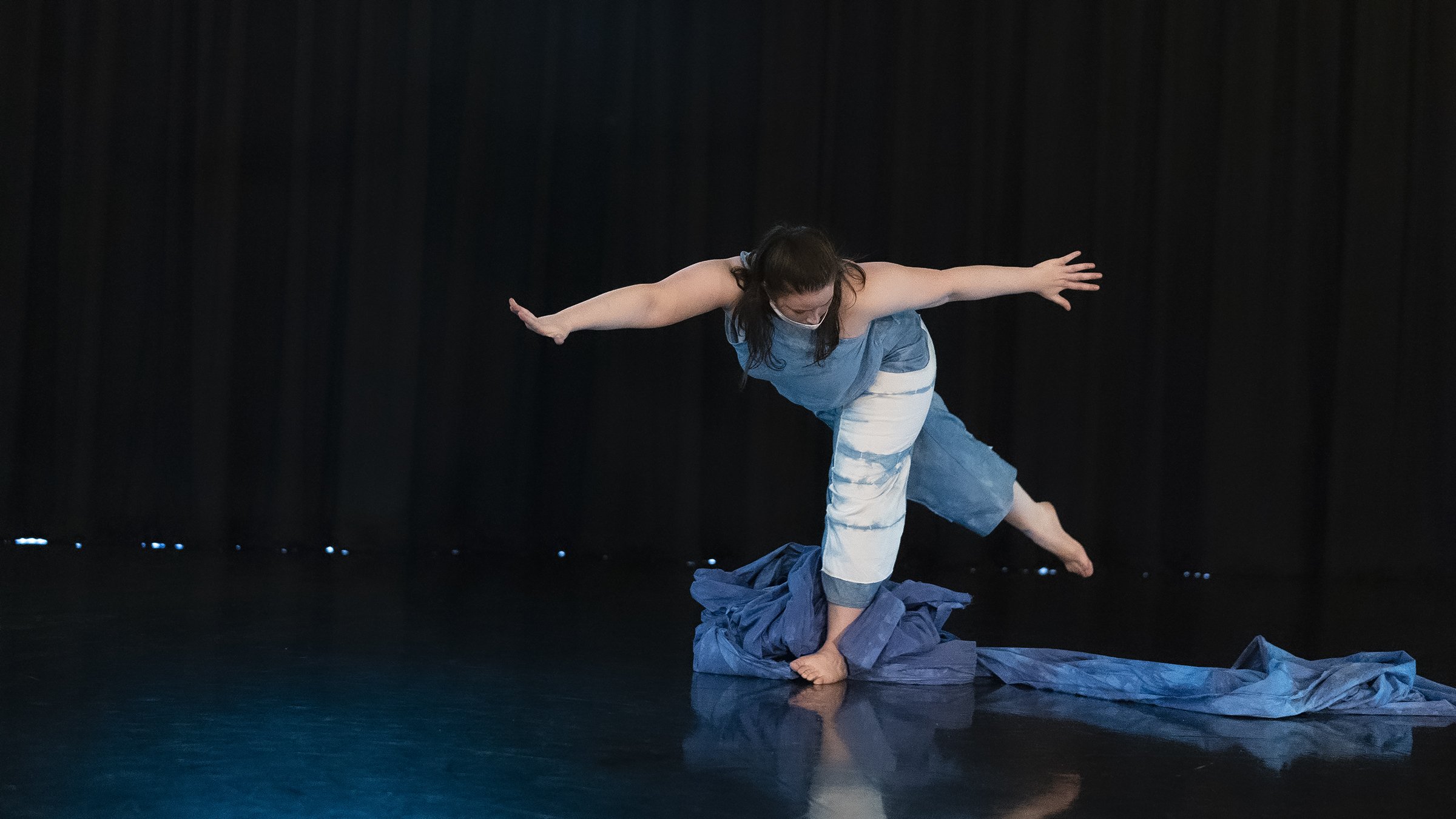
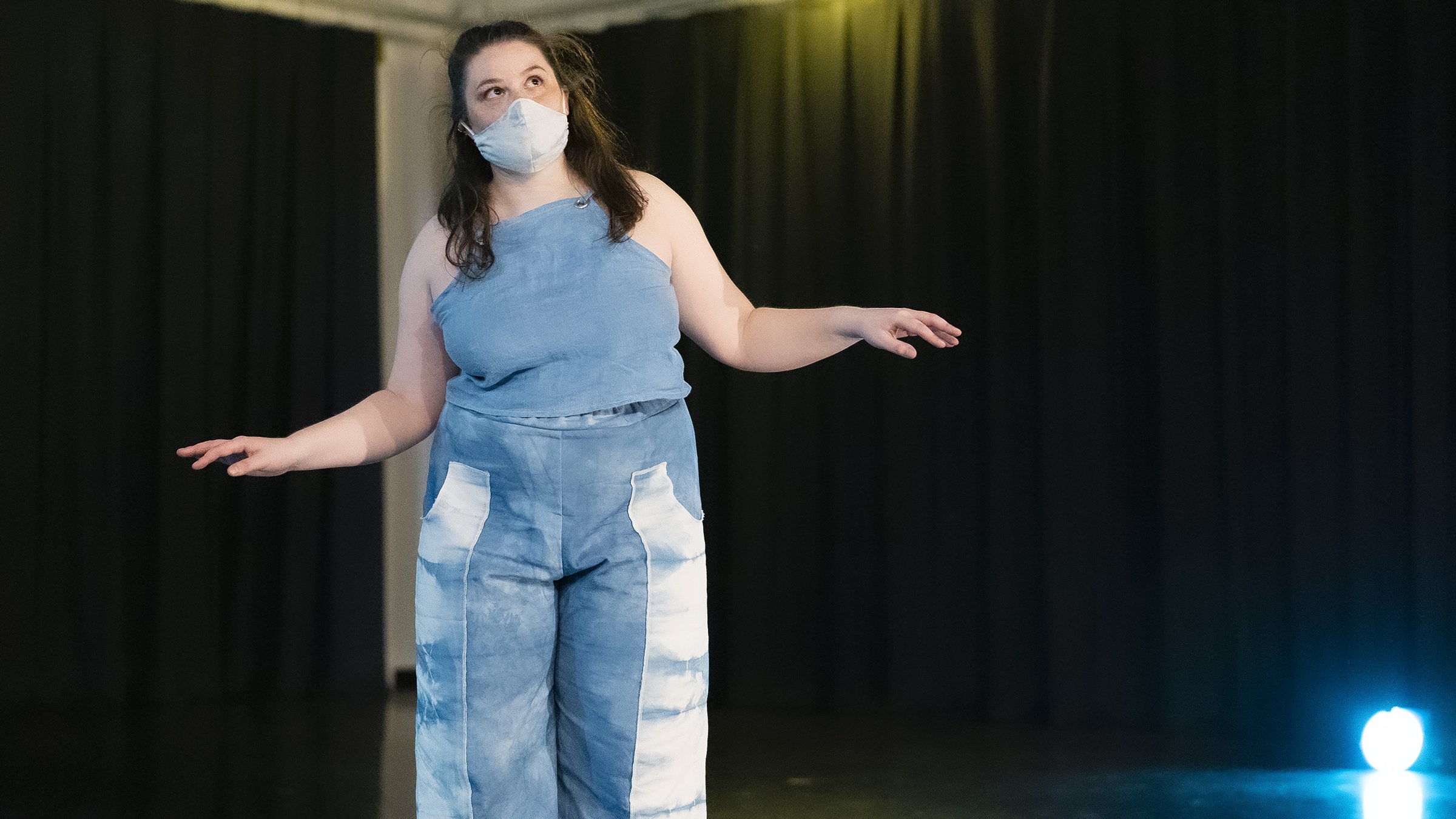
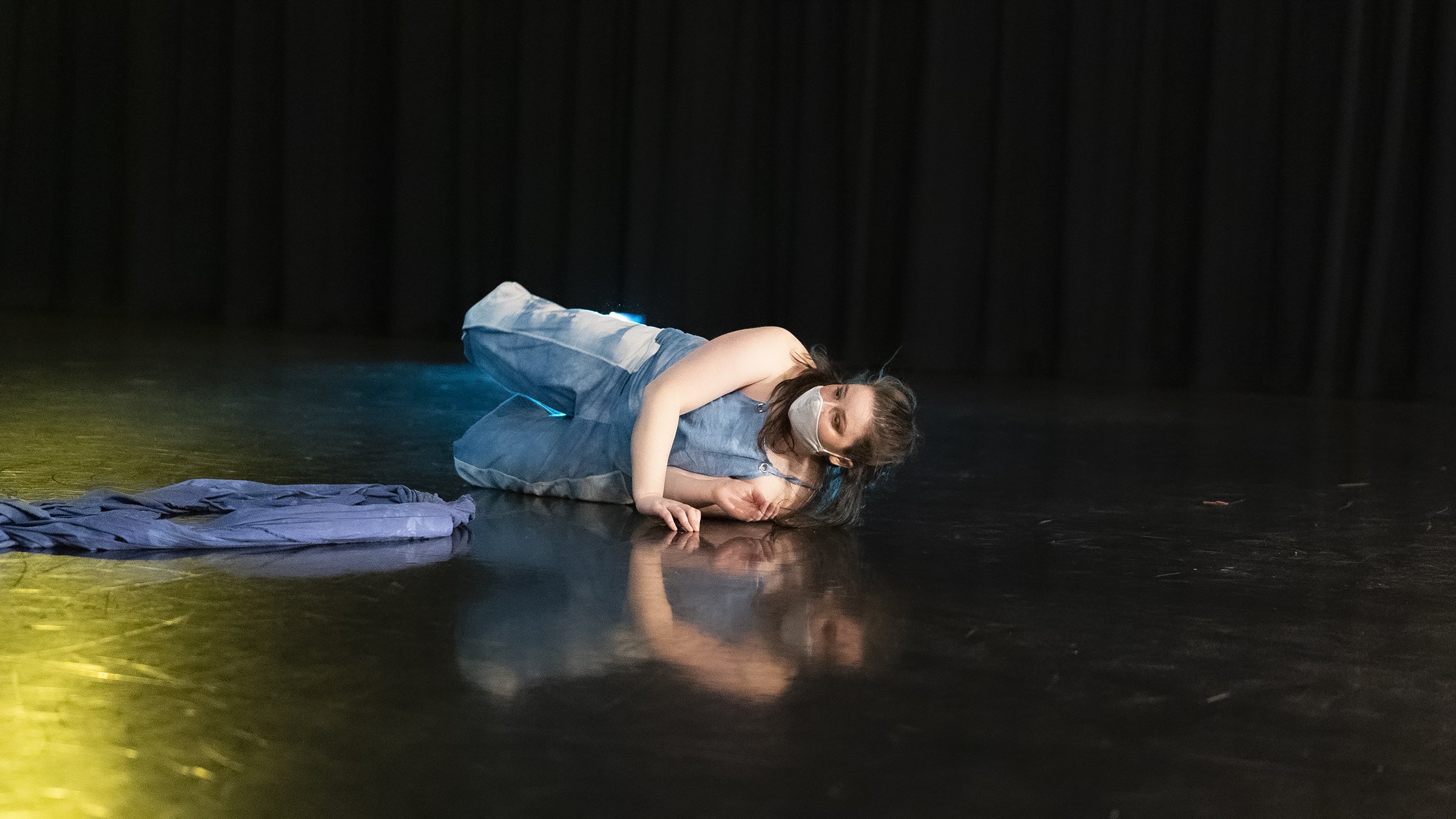
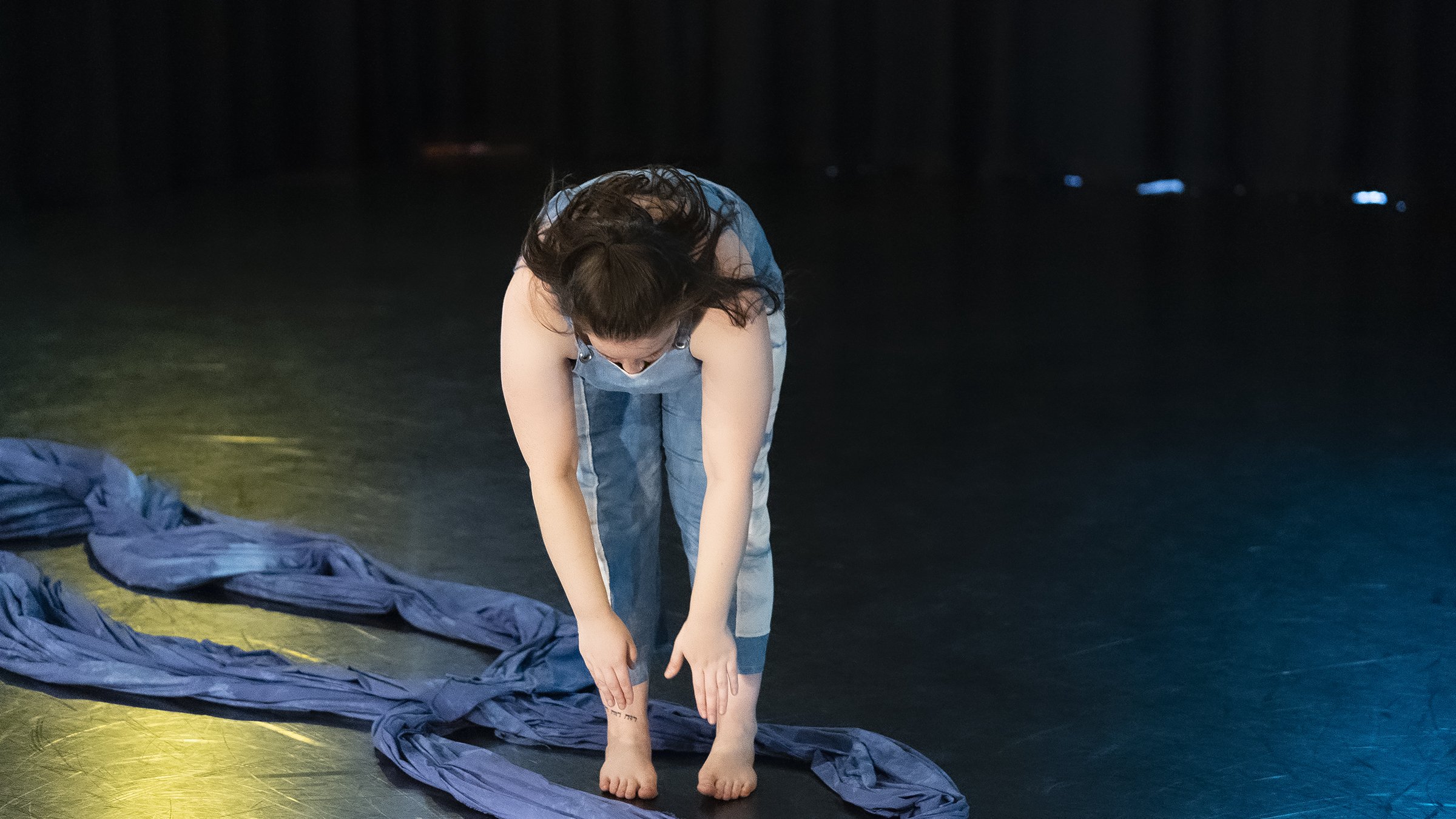
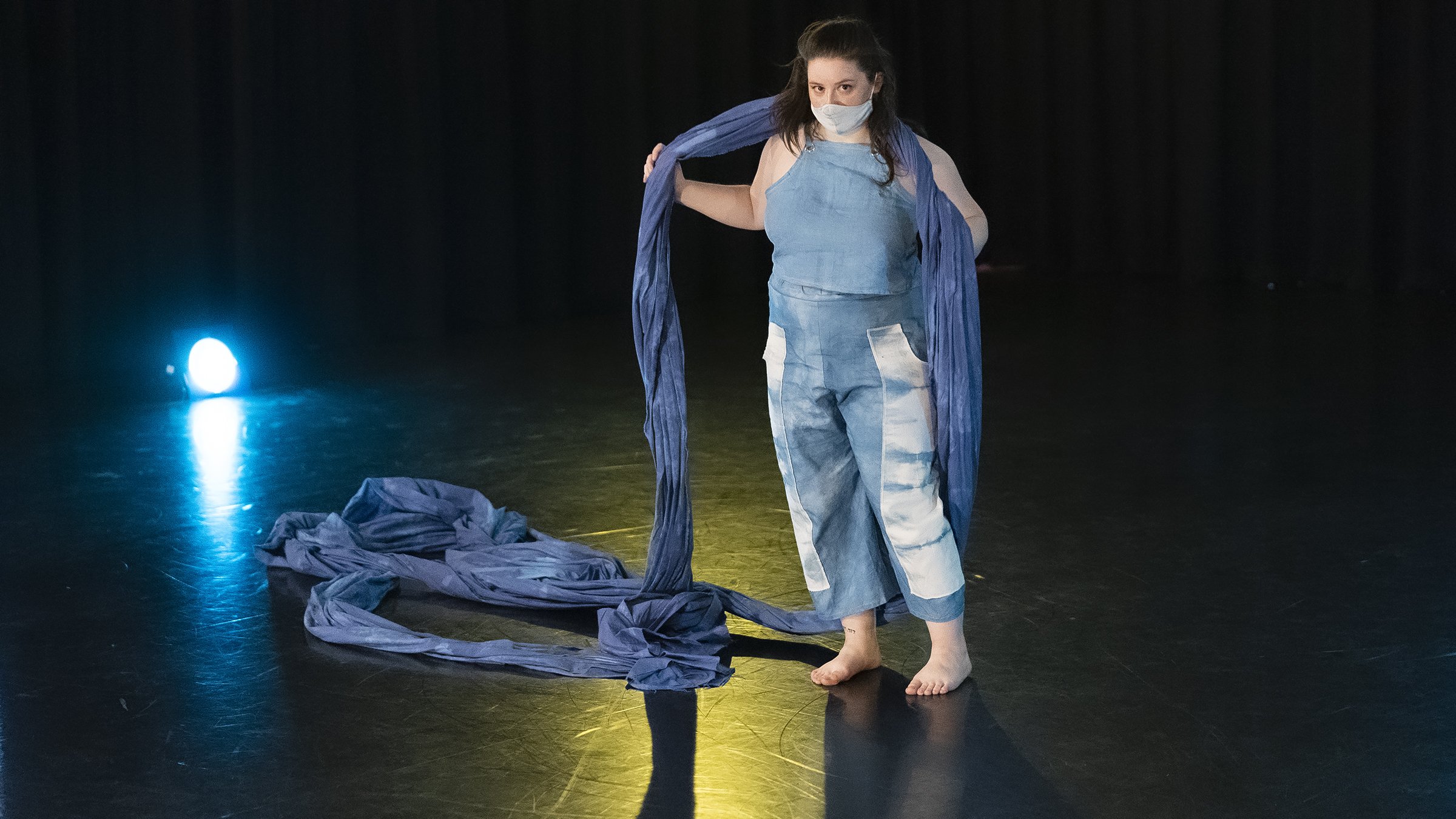
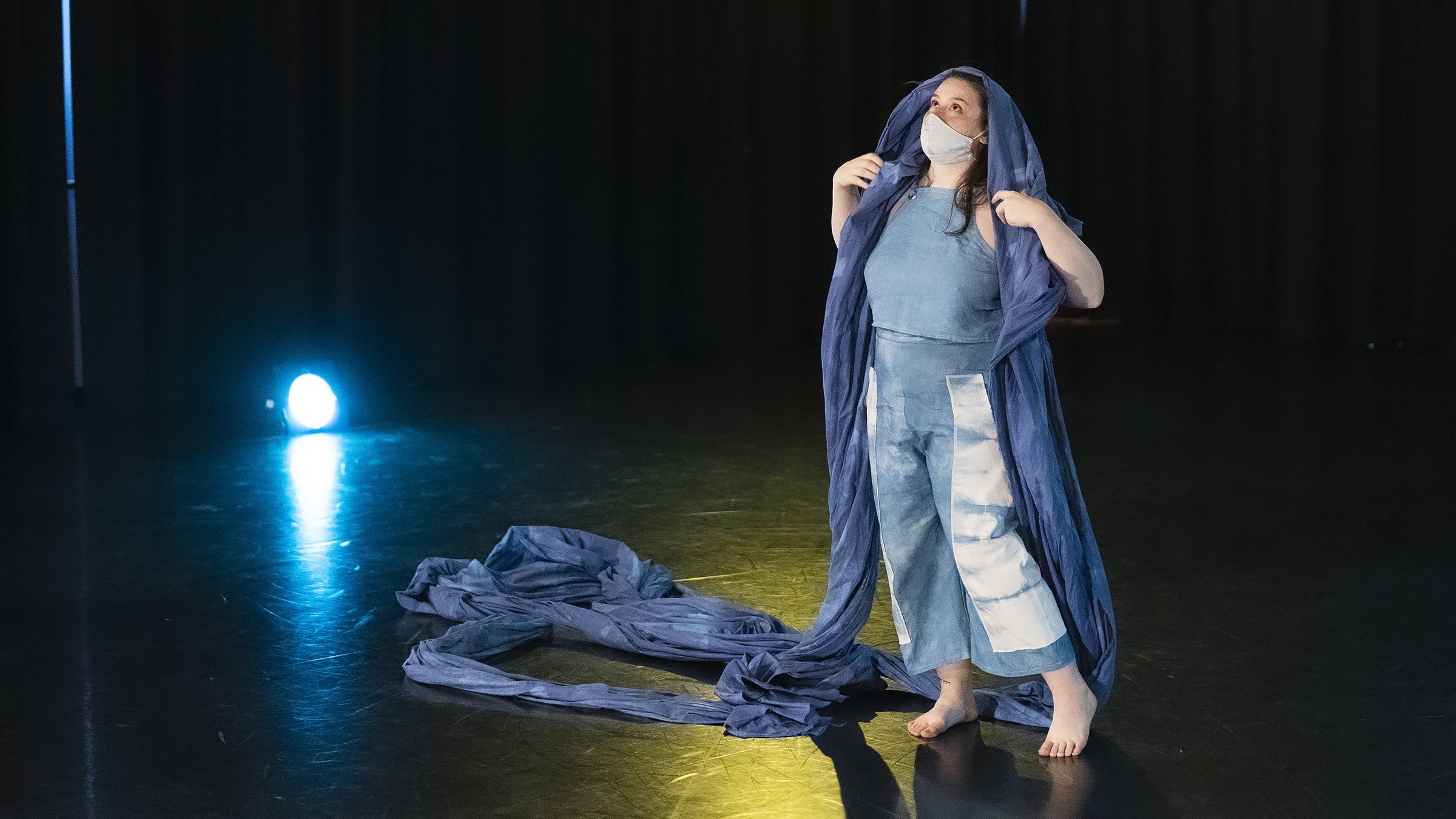
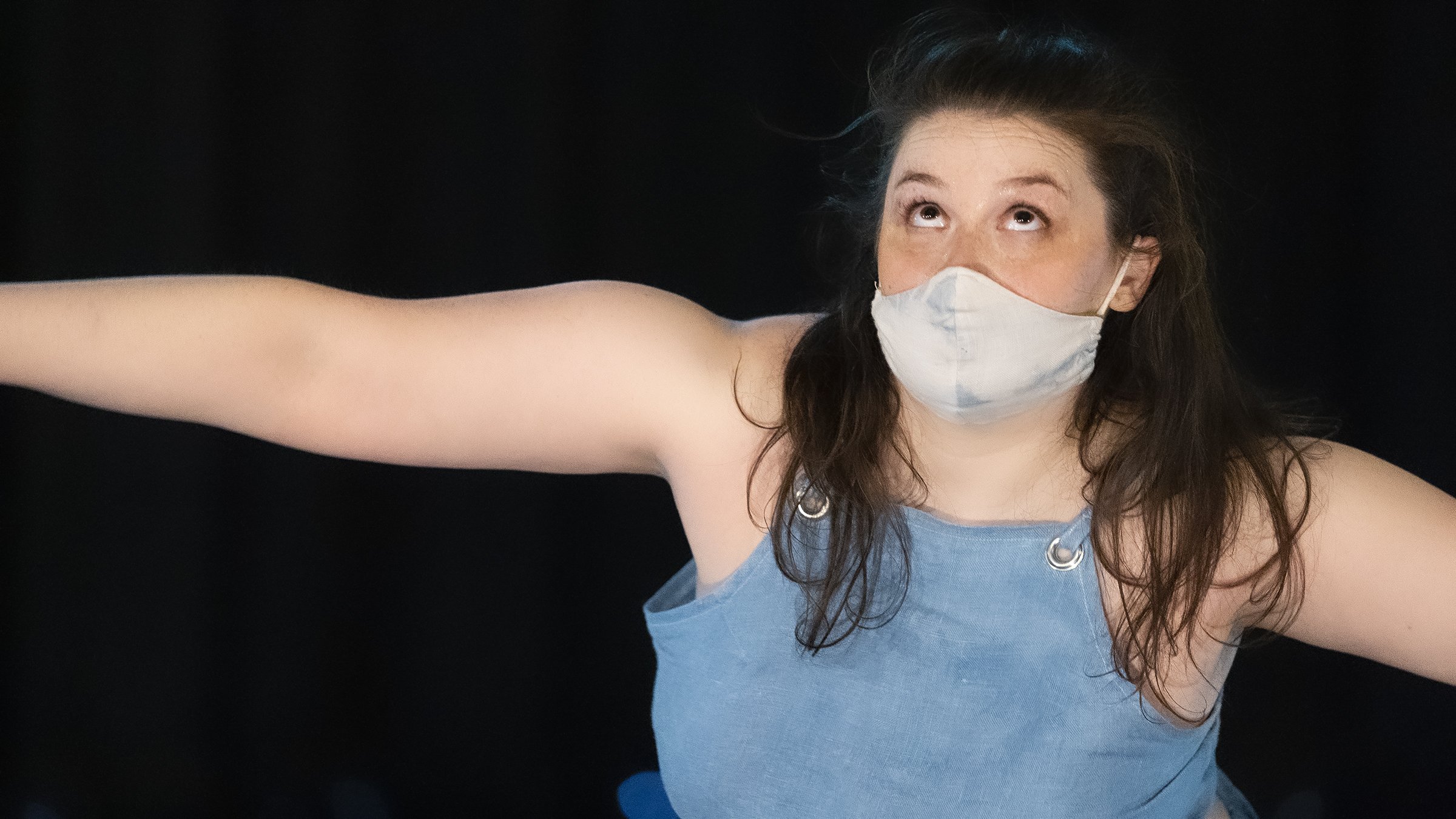
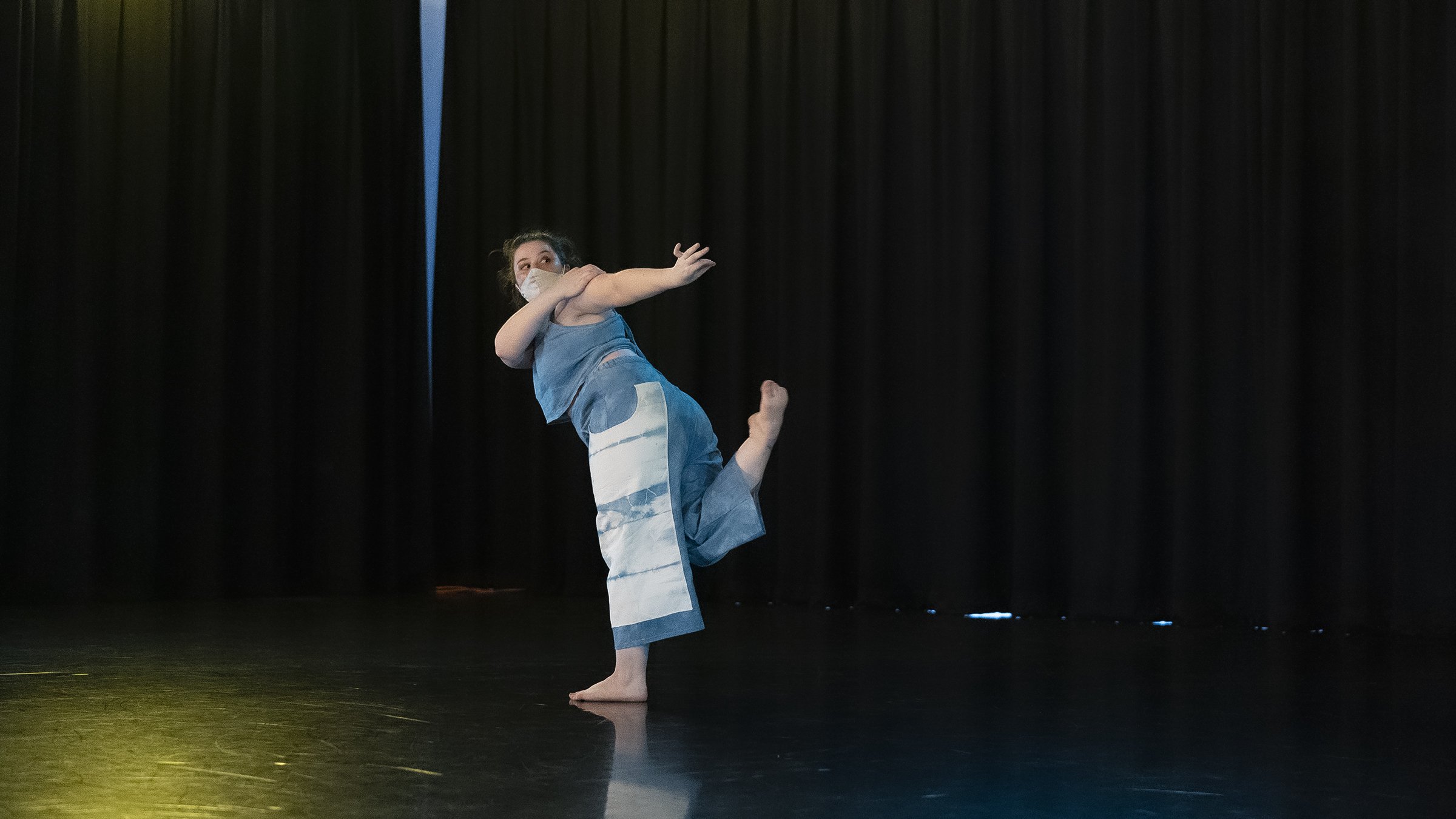
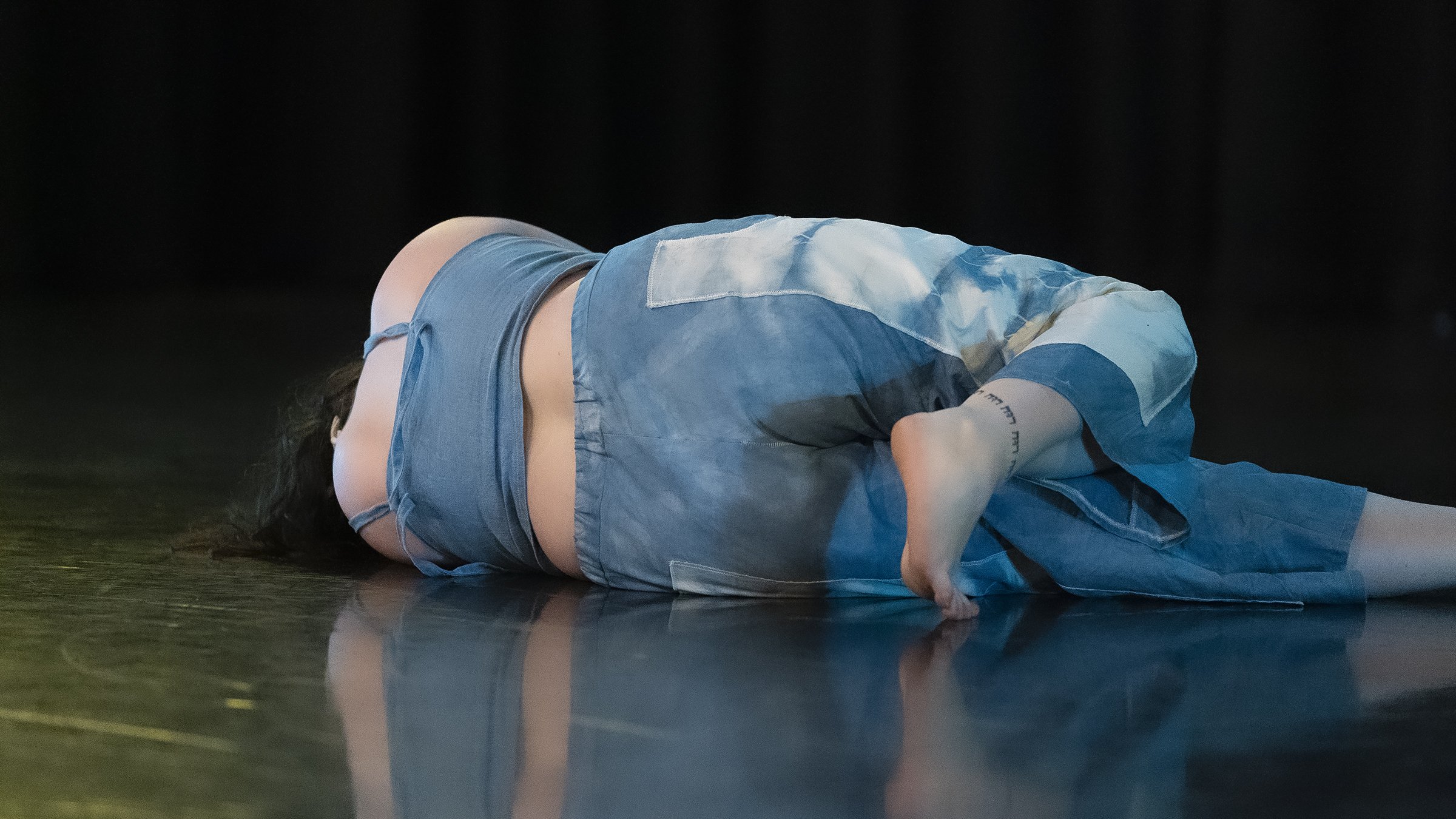
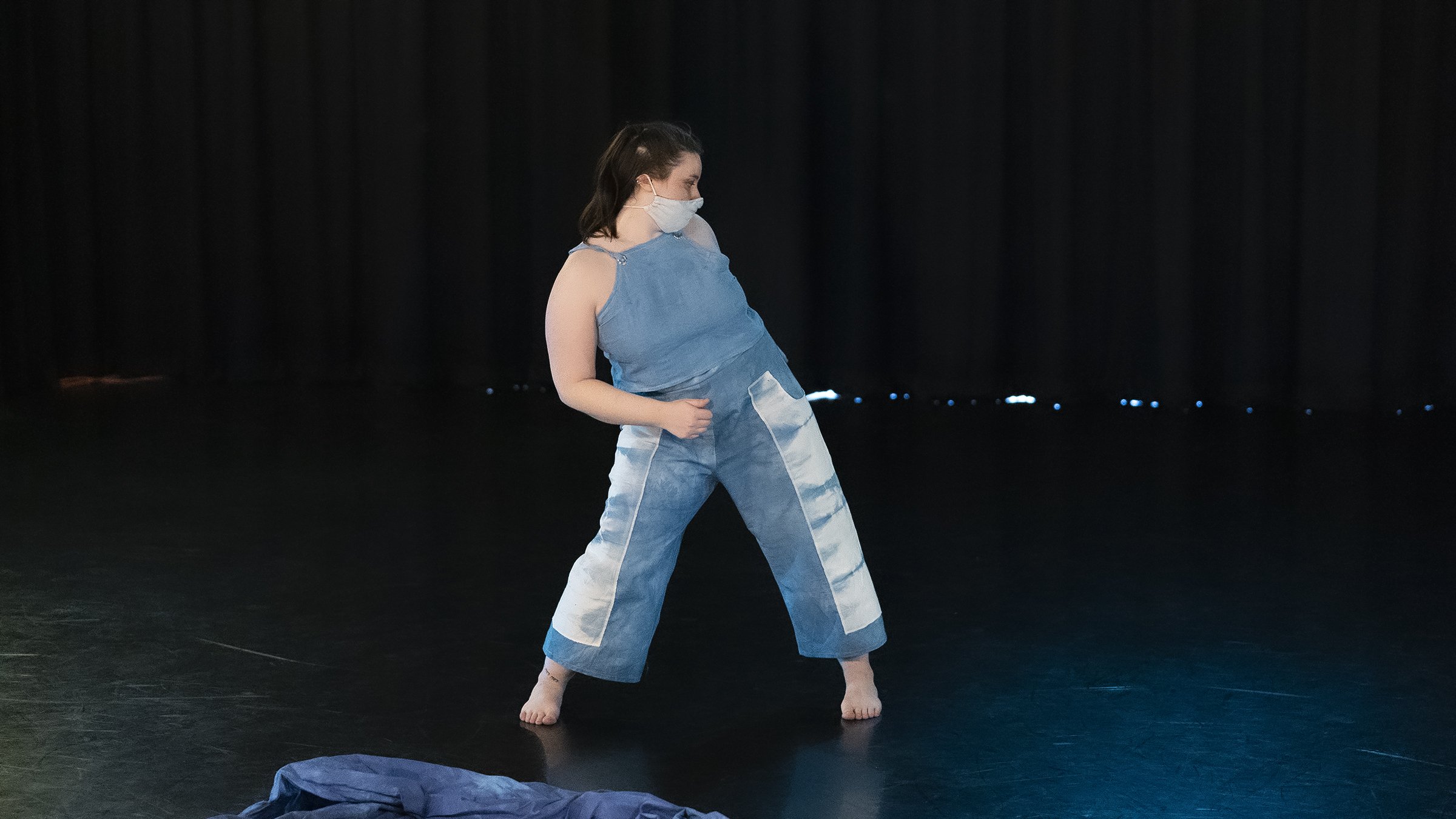
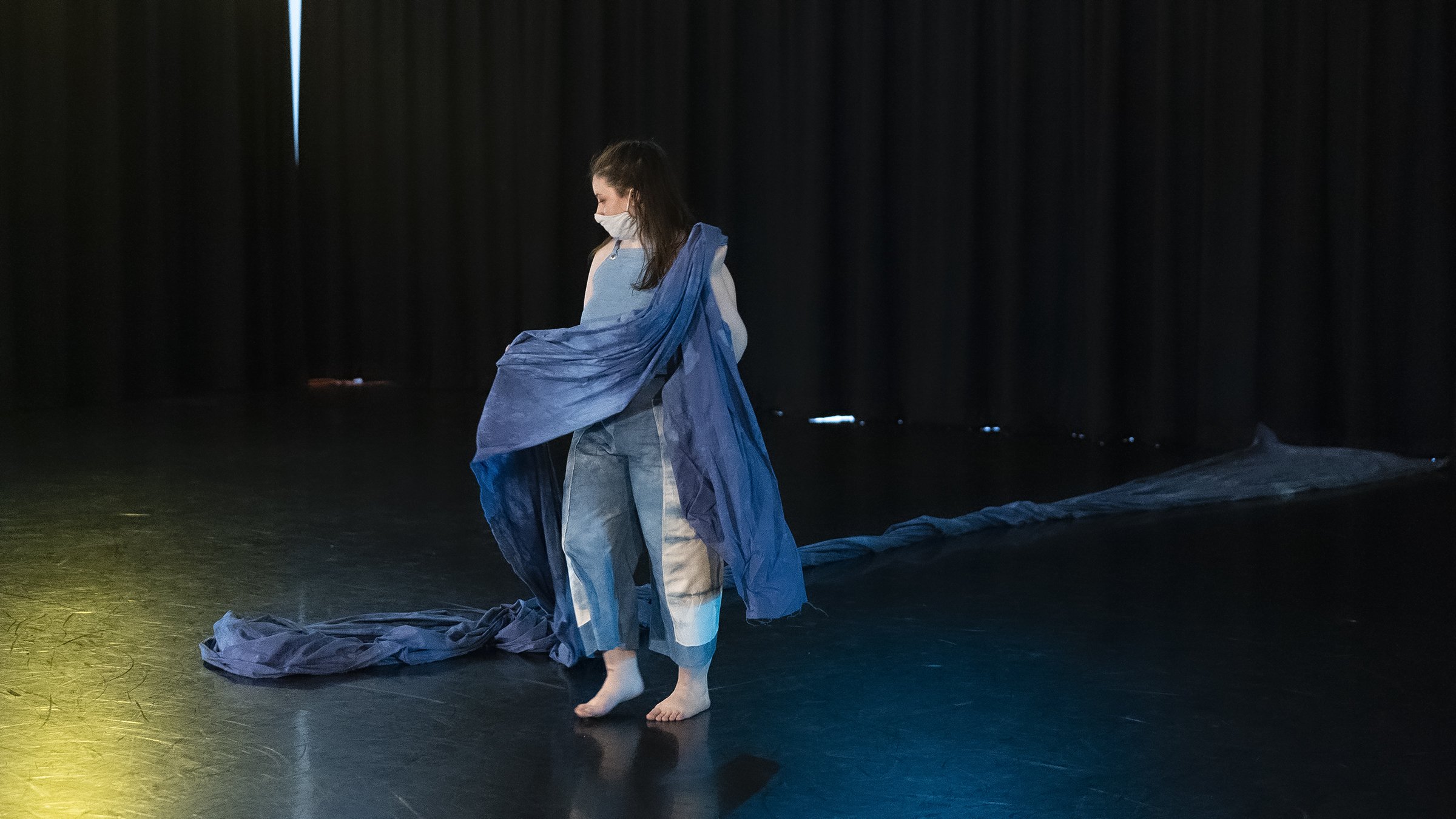
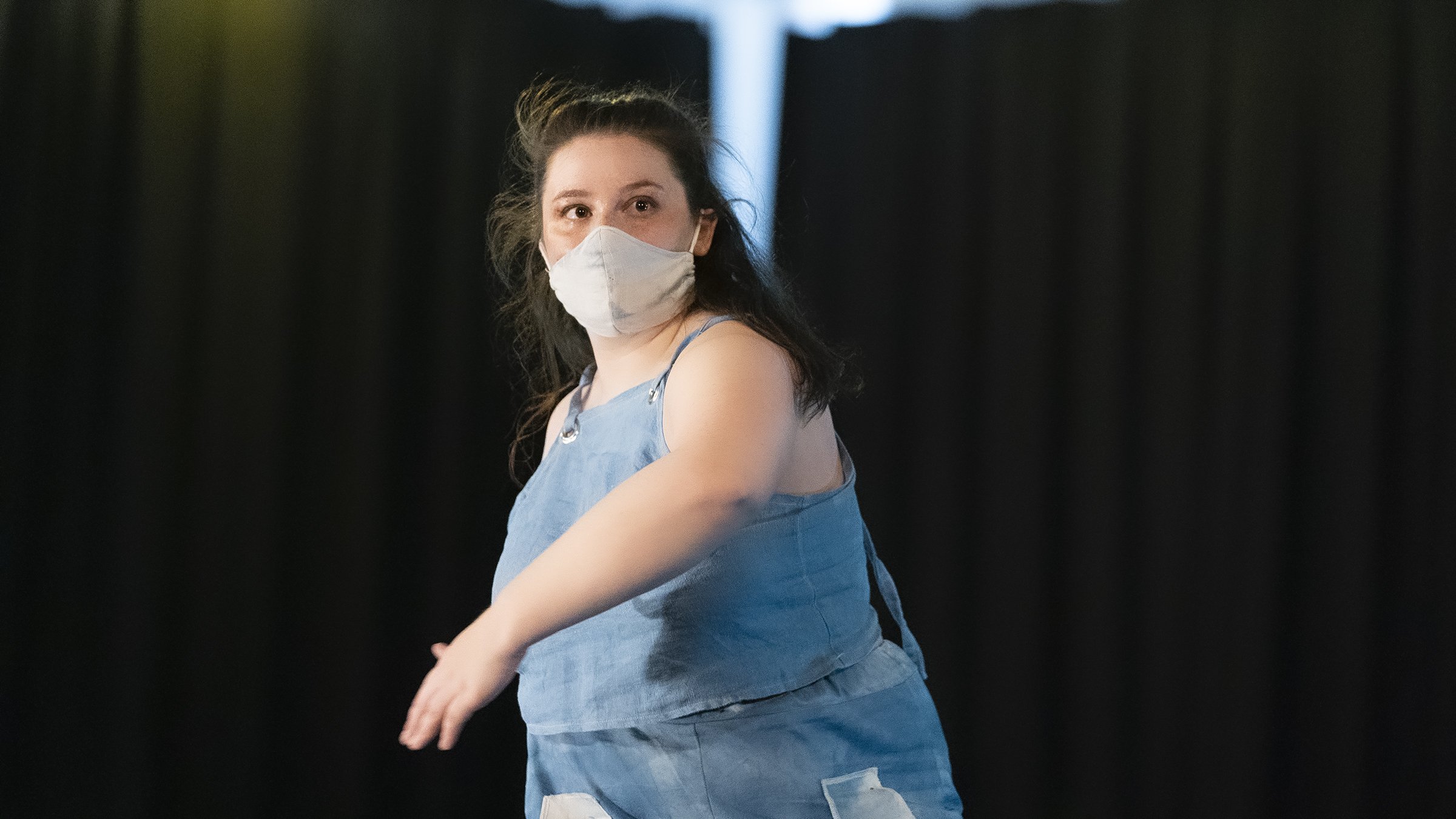
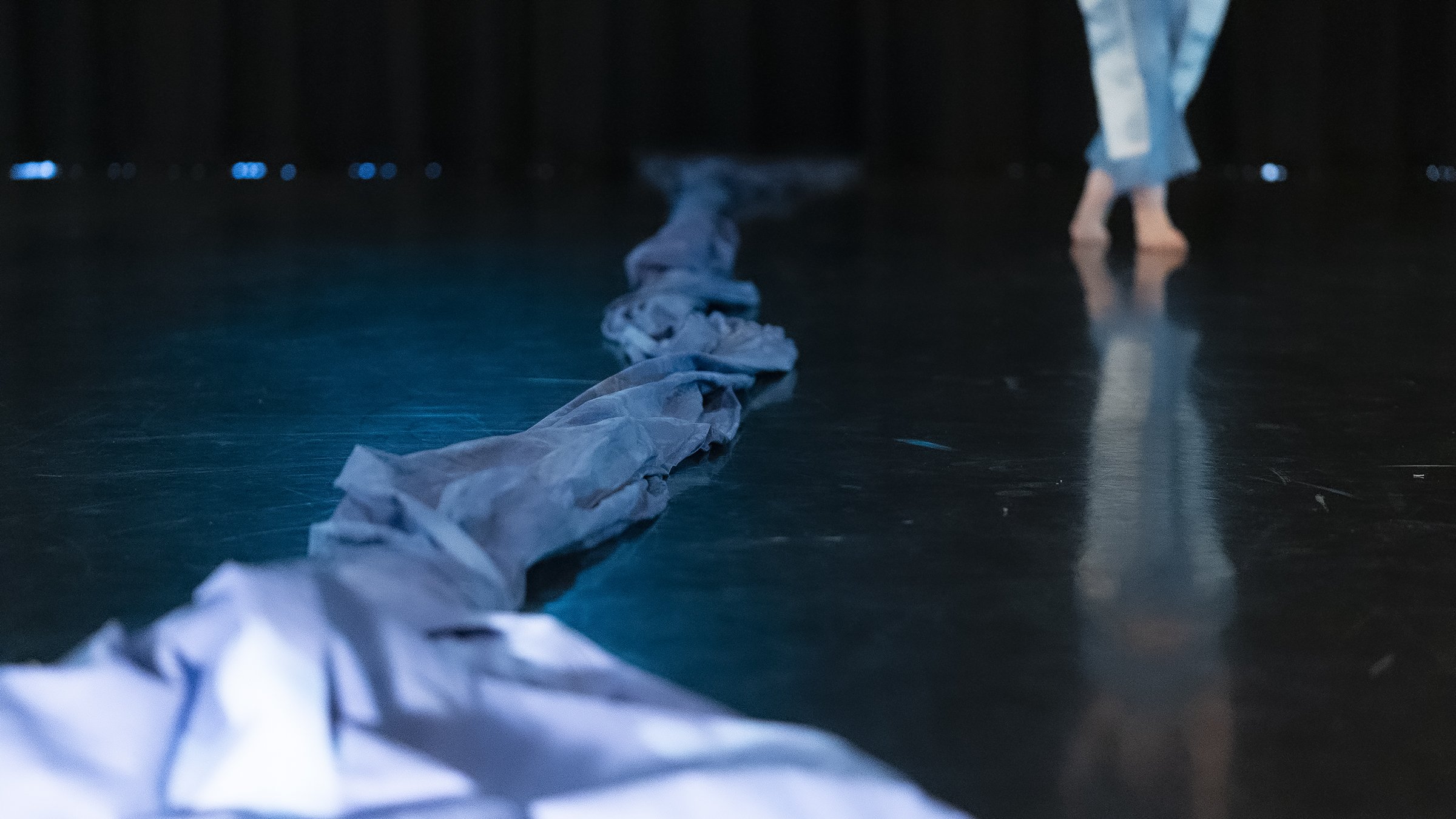
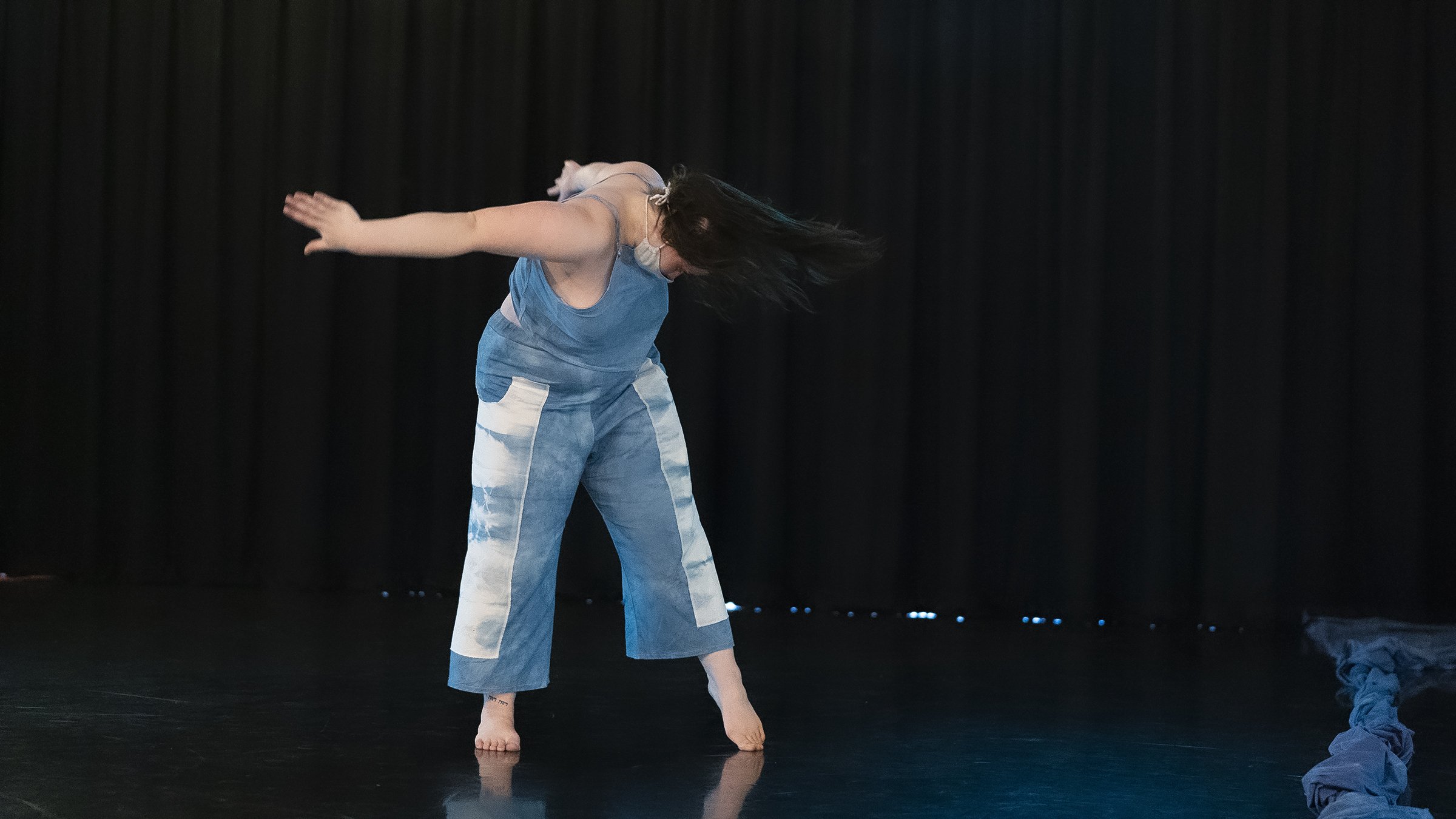
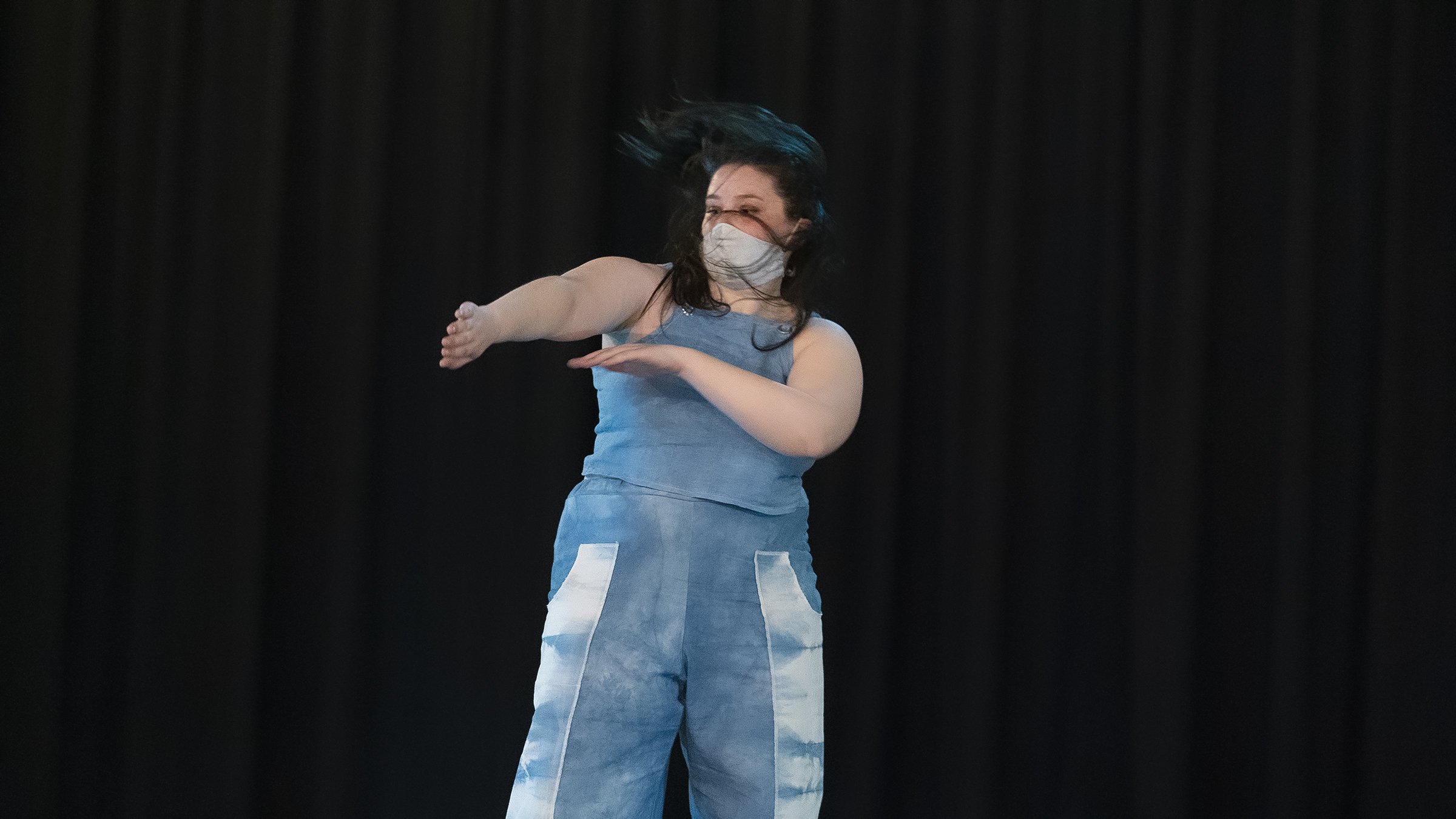
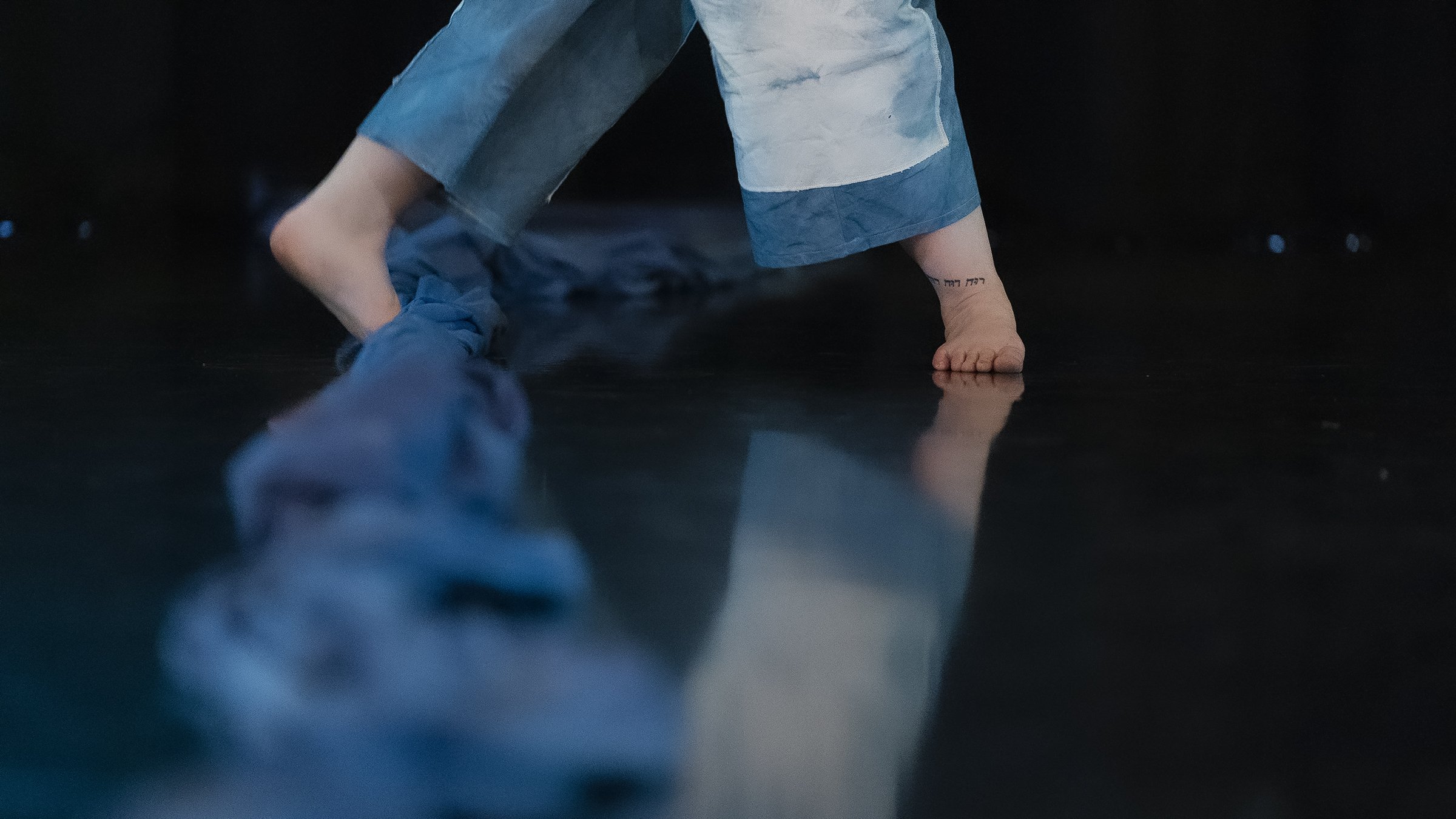
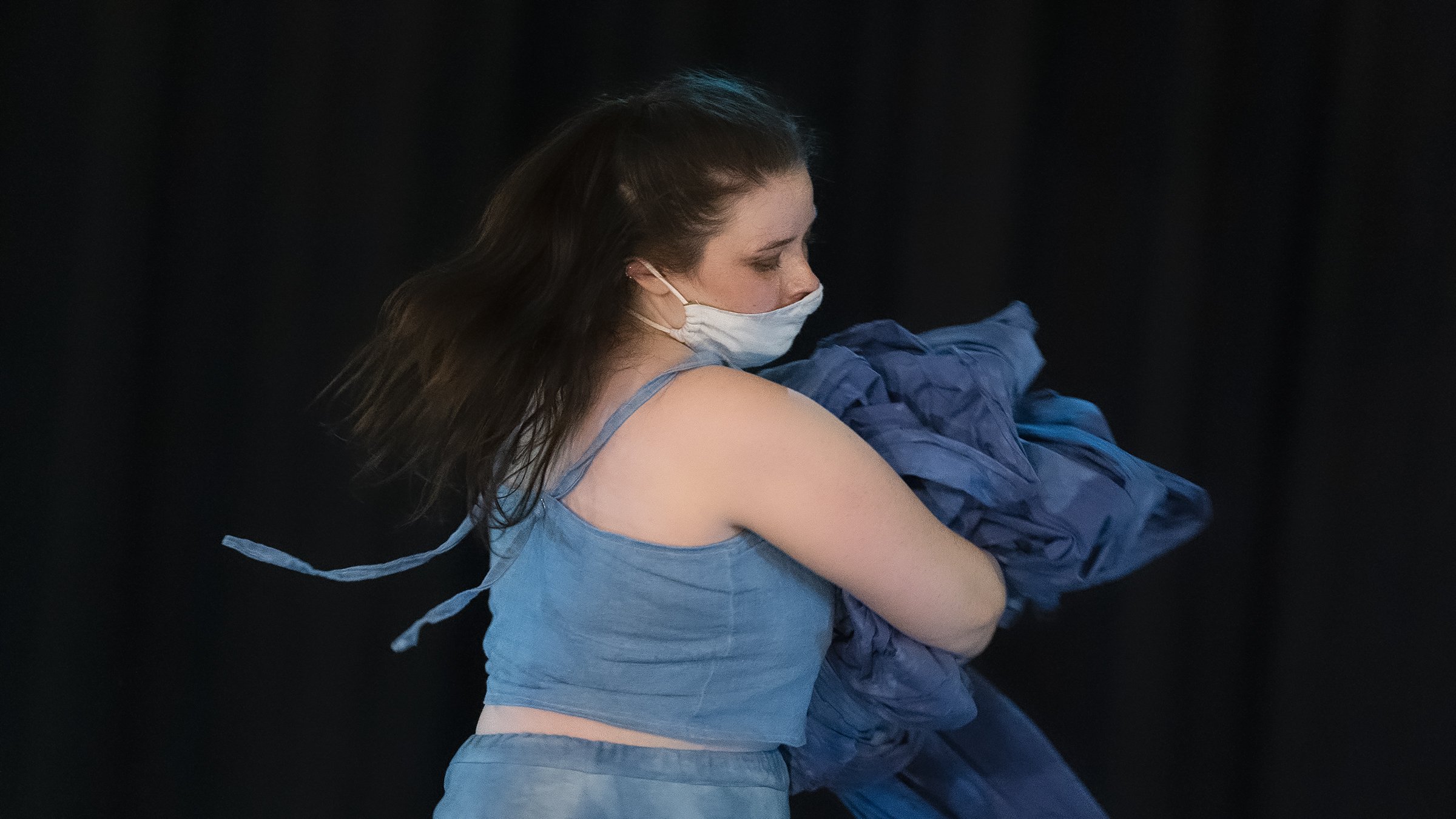
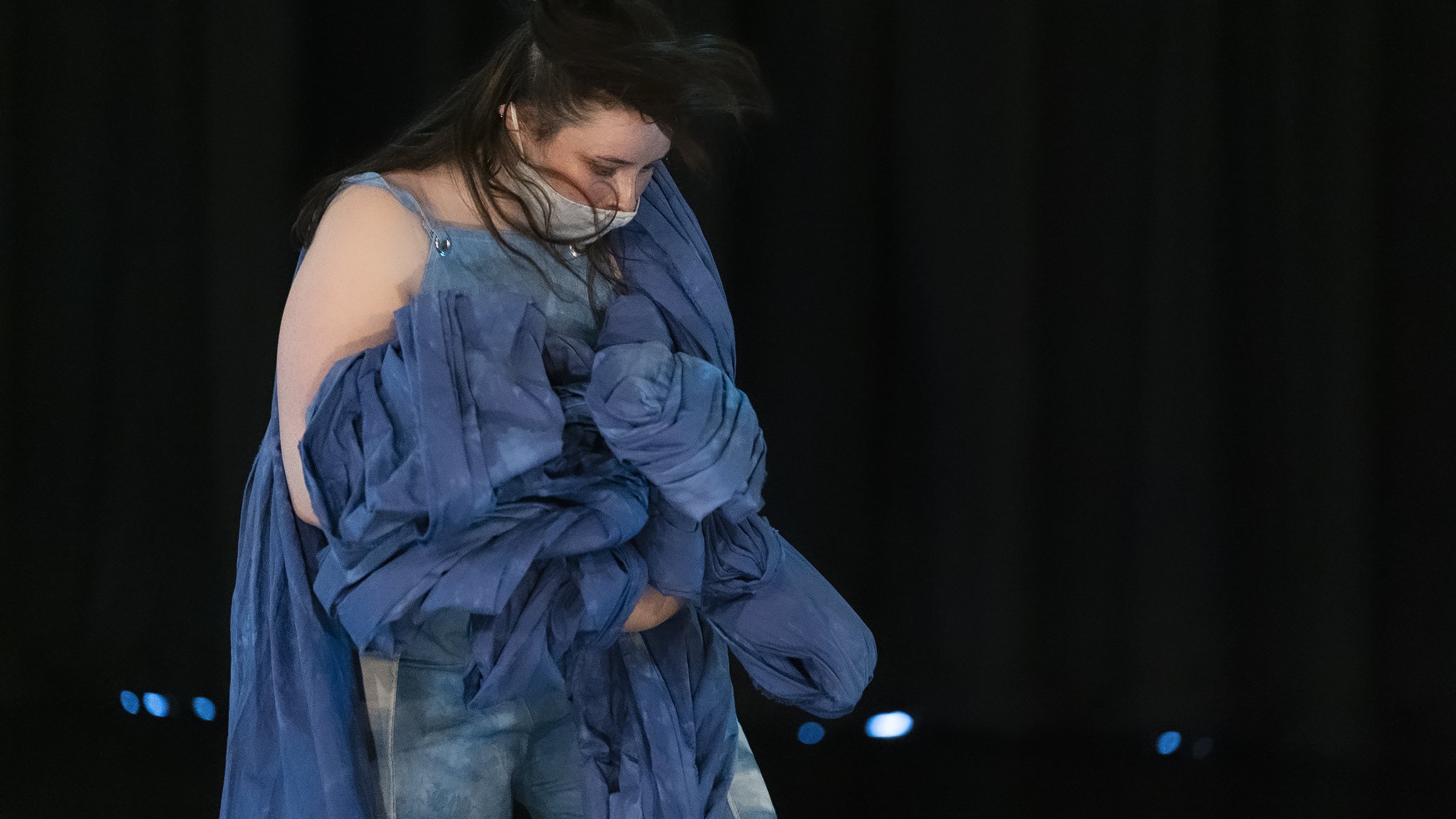
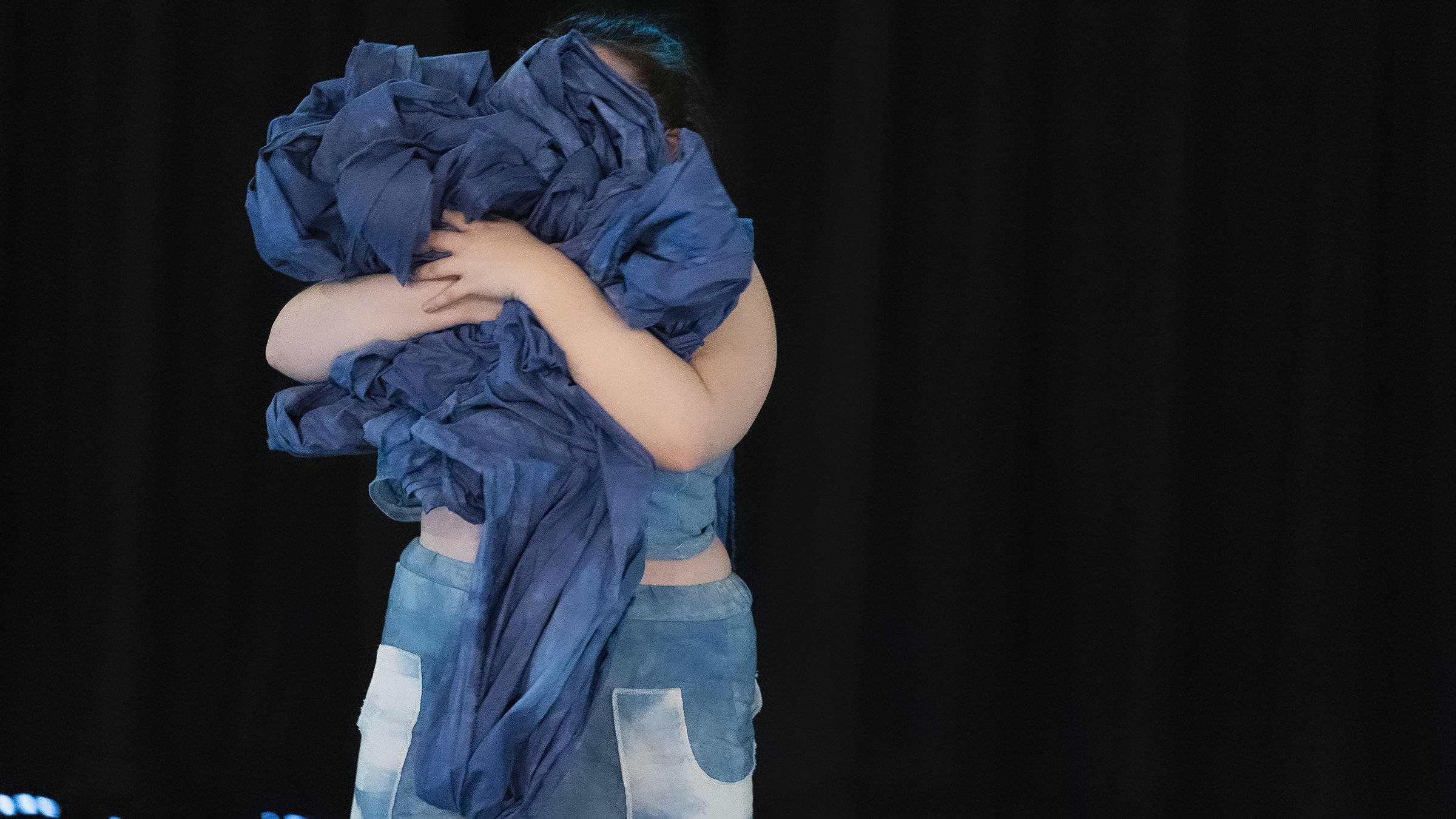
WATER LINES (Fall 2020)
Water Lines was created + performed by Talia Mason in fulfillment of the Fourth Quarter Showing (4QS) for second year MFA students in Experimental Choreography at UC-Riverside. Water Lines was a four-day improvisational performance created during the fall of 2020 at the height of the pandemic utilizing technology as a medium for weaving live and recorded performances for virtual and real audience members.
Water Lines is a multimedia dive into exploring ancestral connections to bodies of water and how water informs our physical and cellular development. By investigating the properties and the malleability of water in all forms, this auto-ethnographic work explores an ancestral pull towards water. As someone who grew up in an interfaith family, Water Lines looks equally at the collisions of Jewish spiritual and religious practices and the ghost of Lutheranism and Protestantism in her daily life. The piece builds on themes of malleability when considering chaos and creation, ice and water, fire and ash, and sand play central roles in these experiments. As audience members and as a performer, we swim in some deep waters and some shallow waters, spiritually and physically.
Collaborators include: Erica Rice (dramaturge + props design), L Wilson-Spiro (projection consultant), Eliza Wapner (costume design), Sam Day Harmet (sound design), Elizabeth Rees (poet/mom), and Keith Mason (environmentalist/dad).
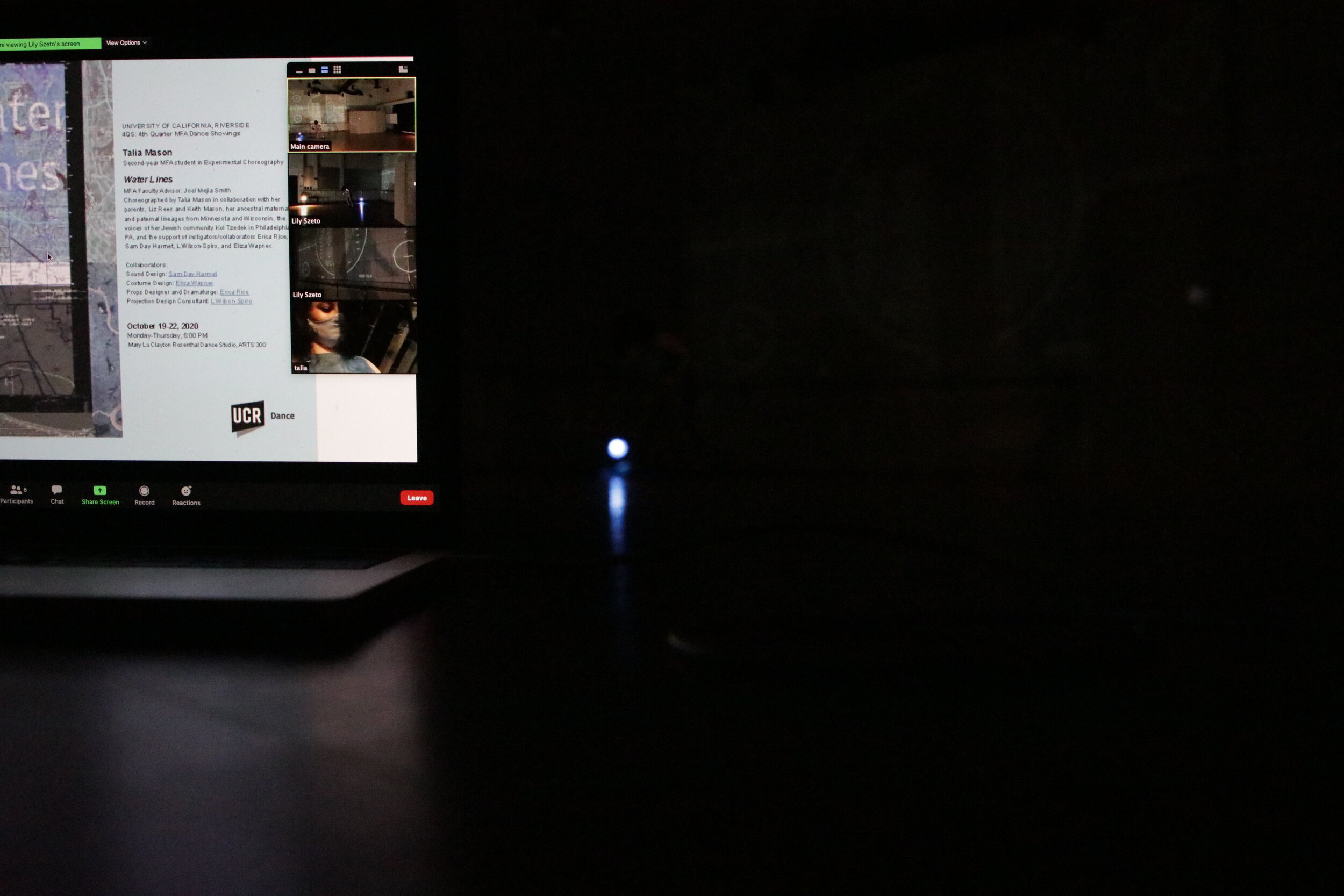
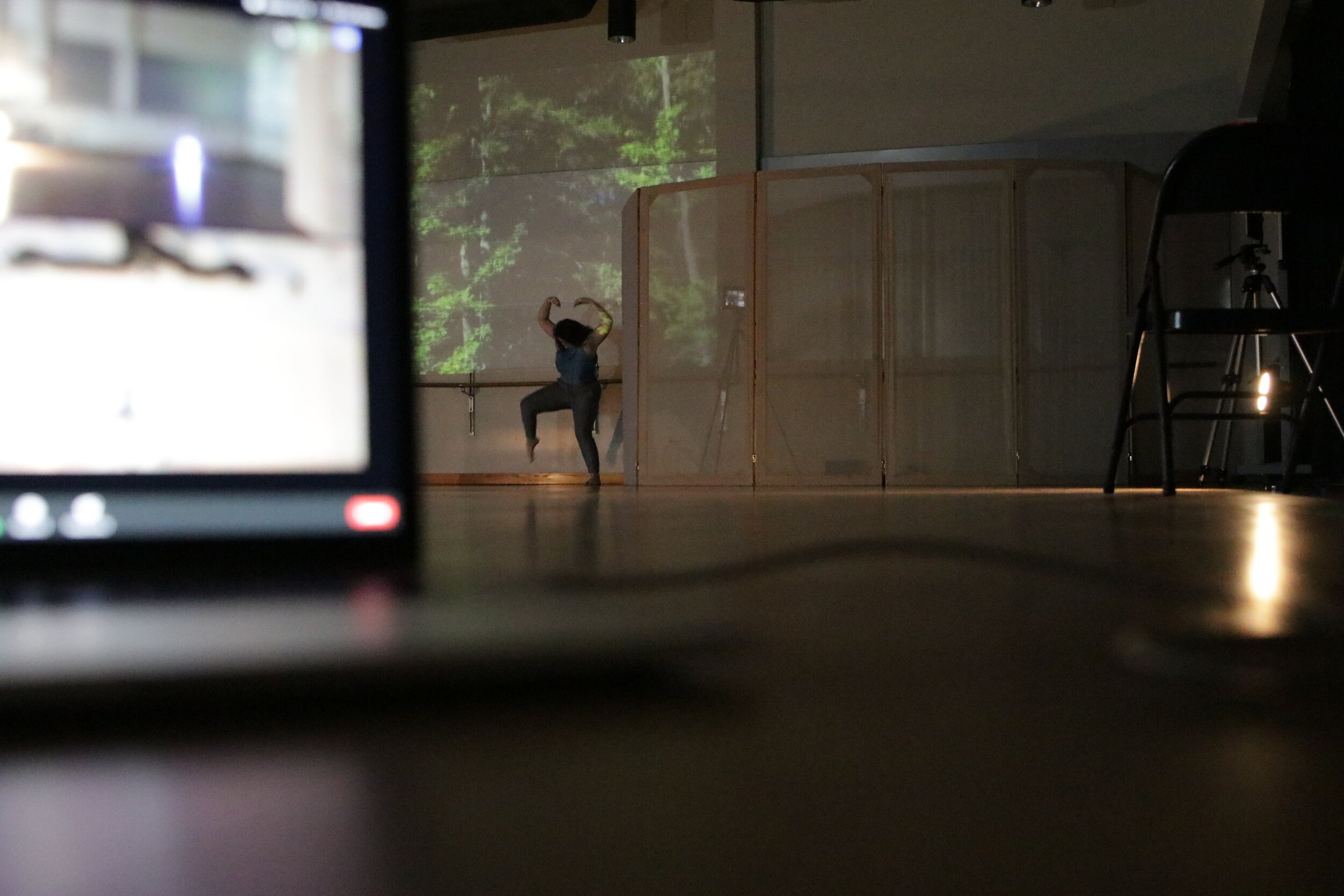
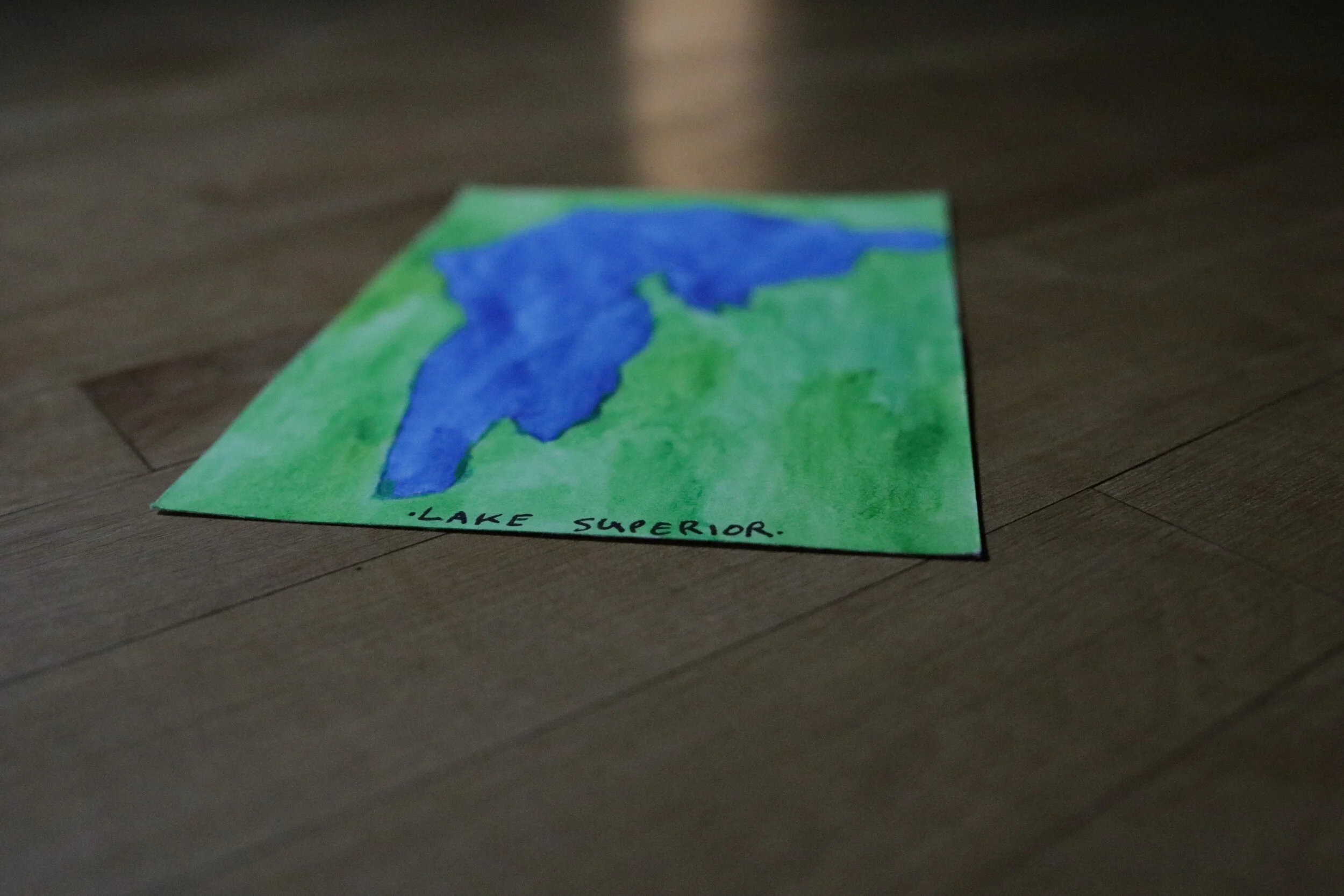
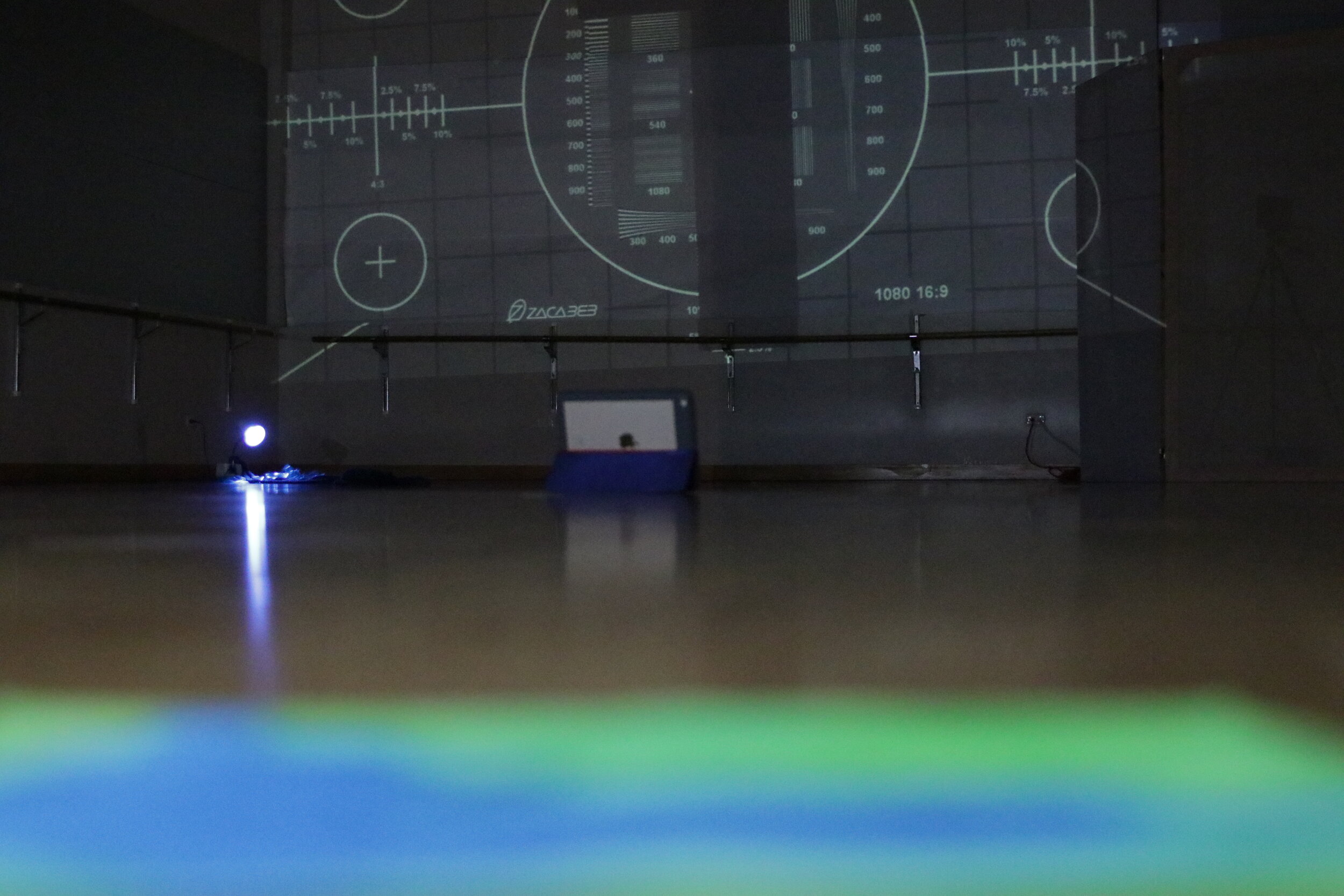
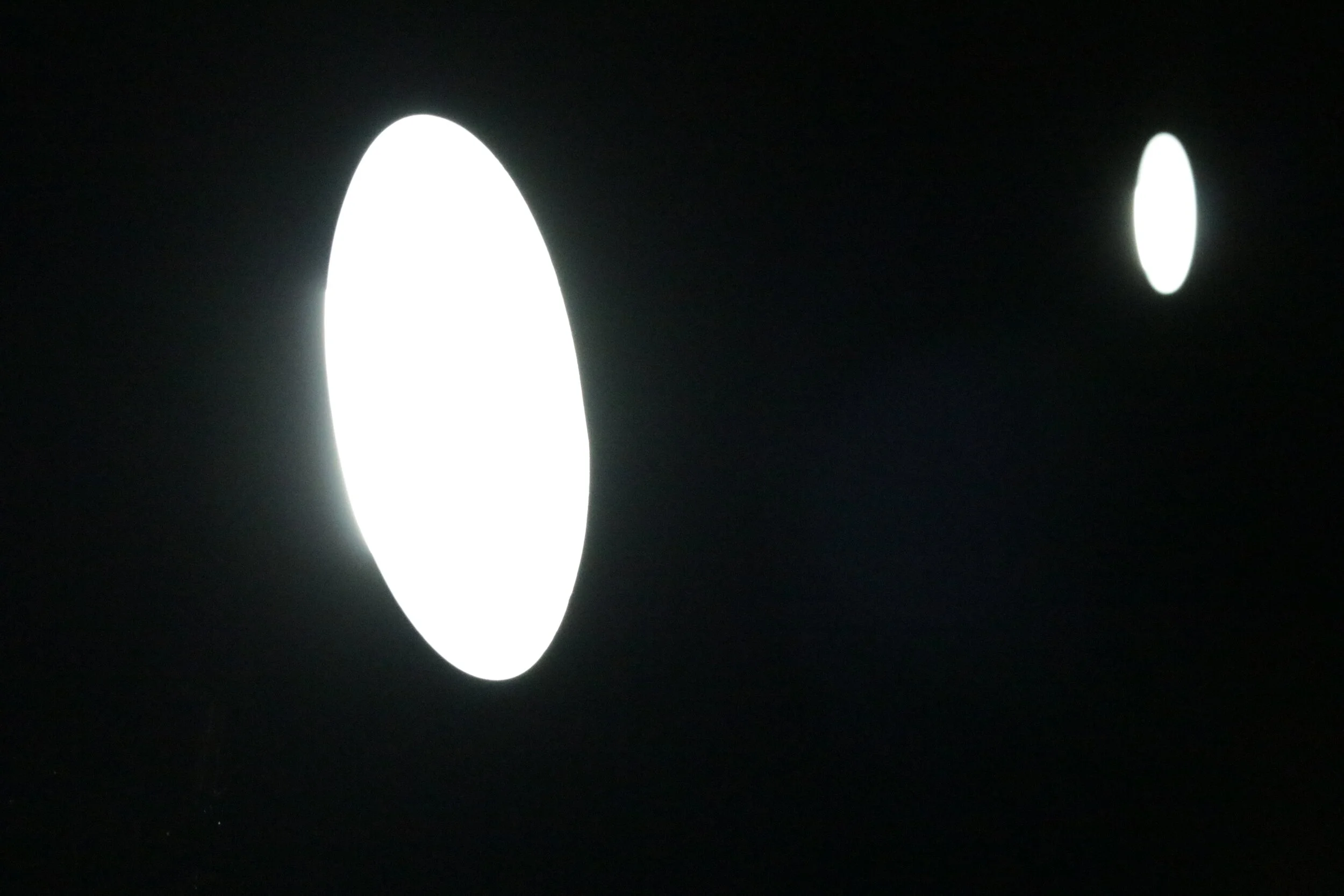
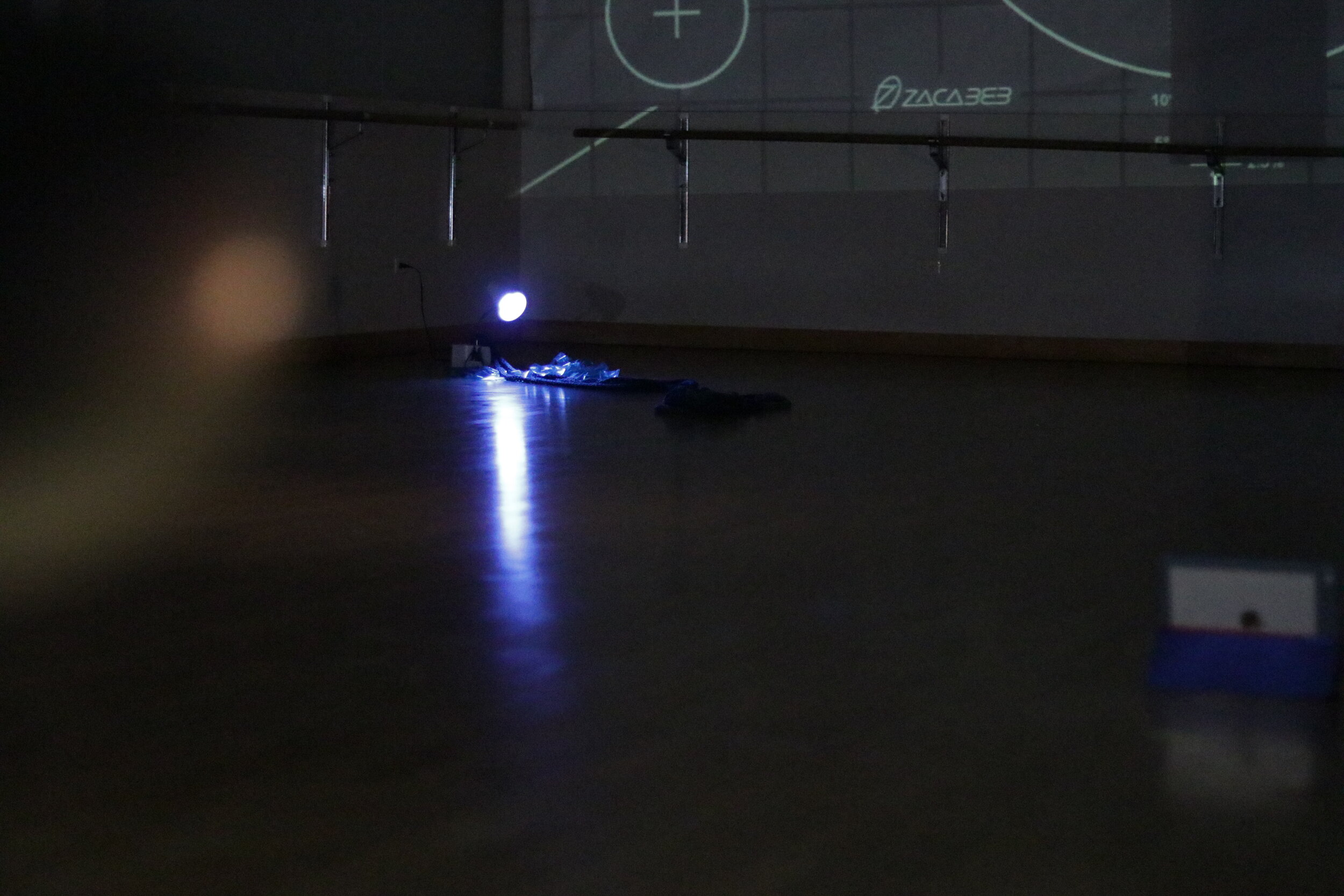
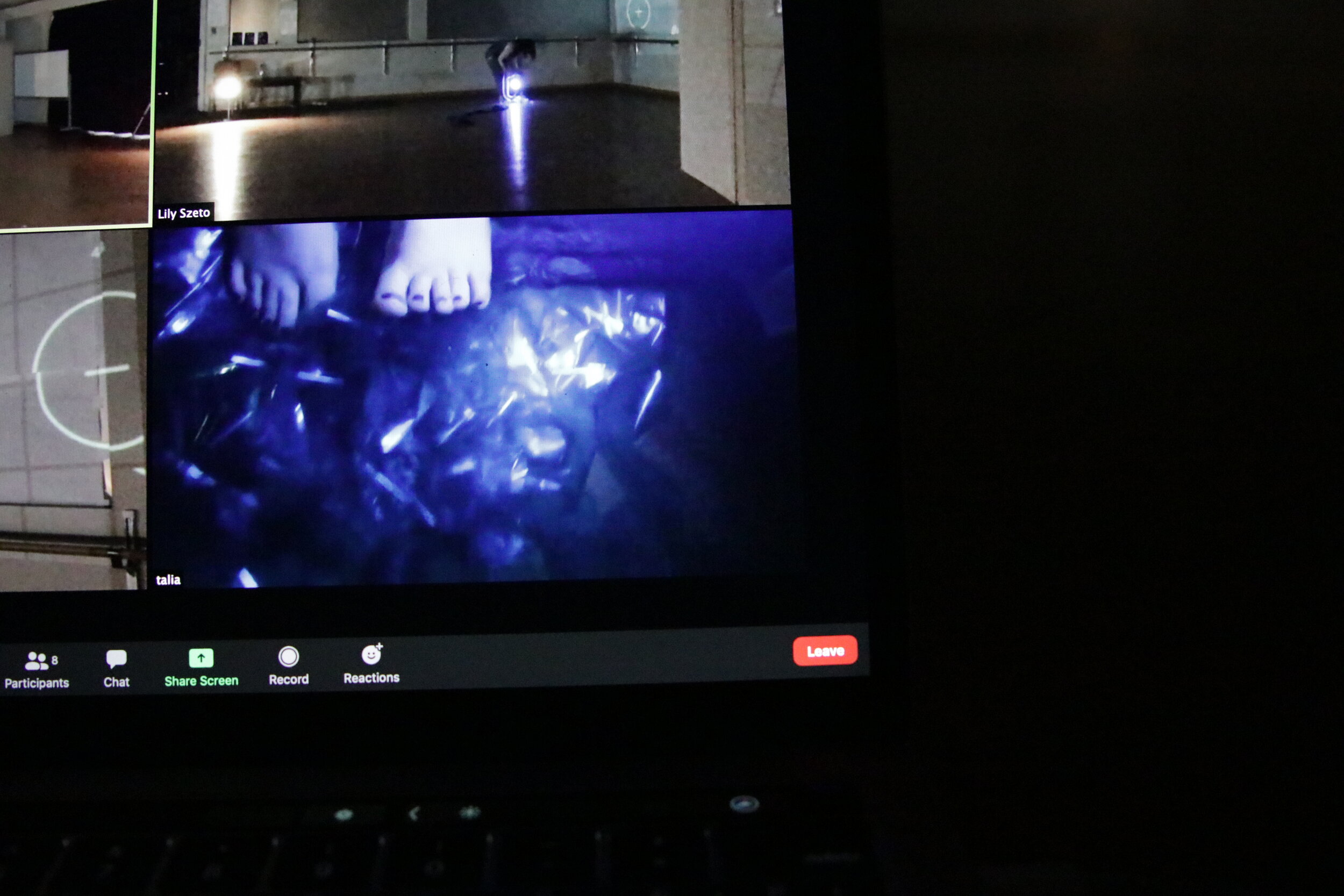
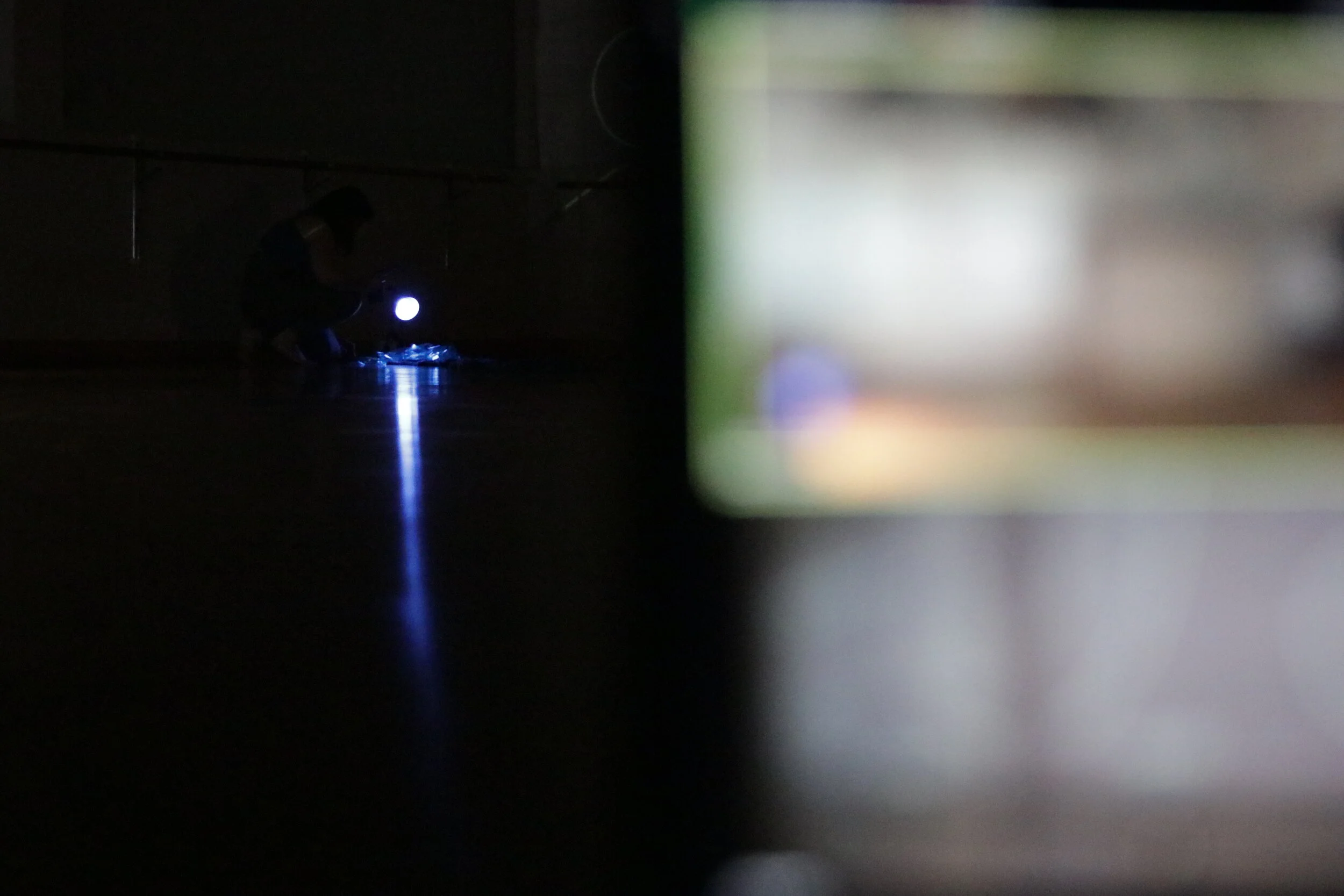
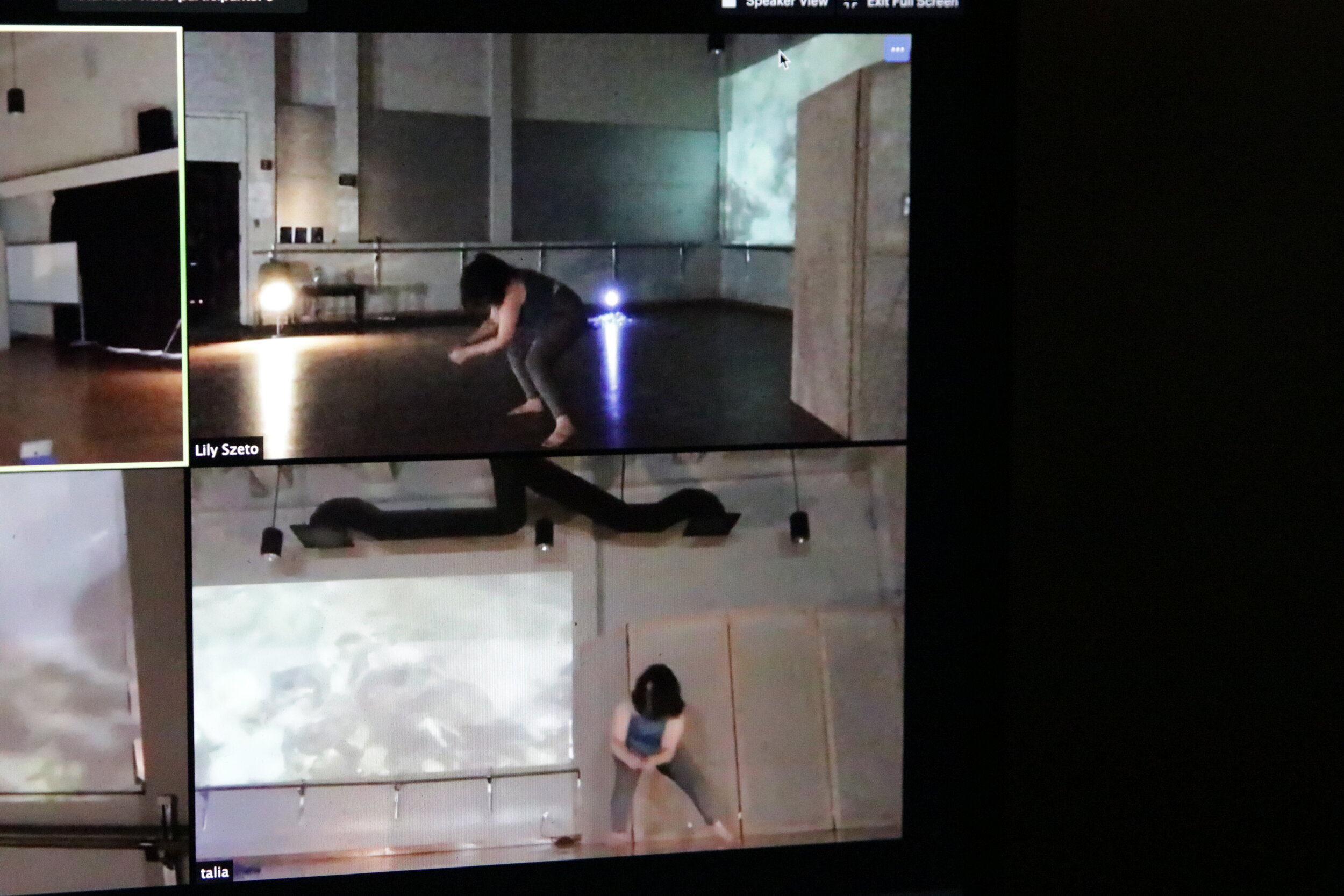
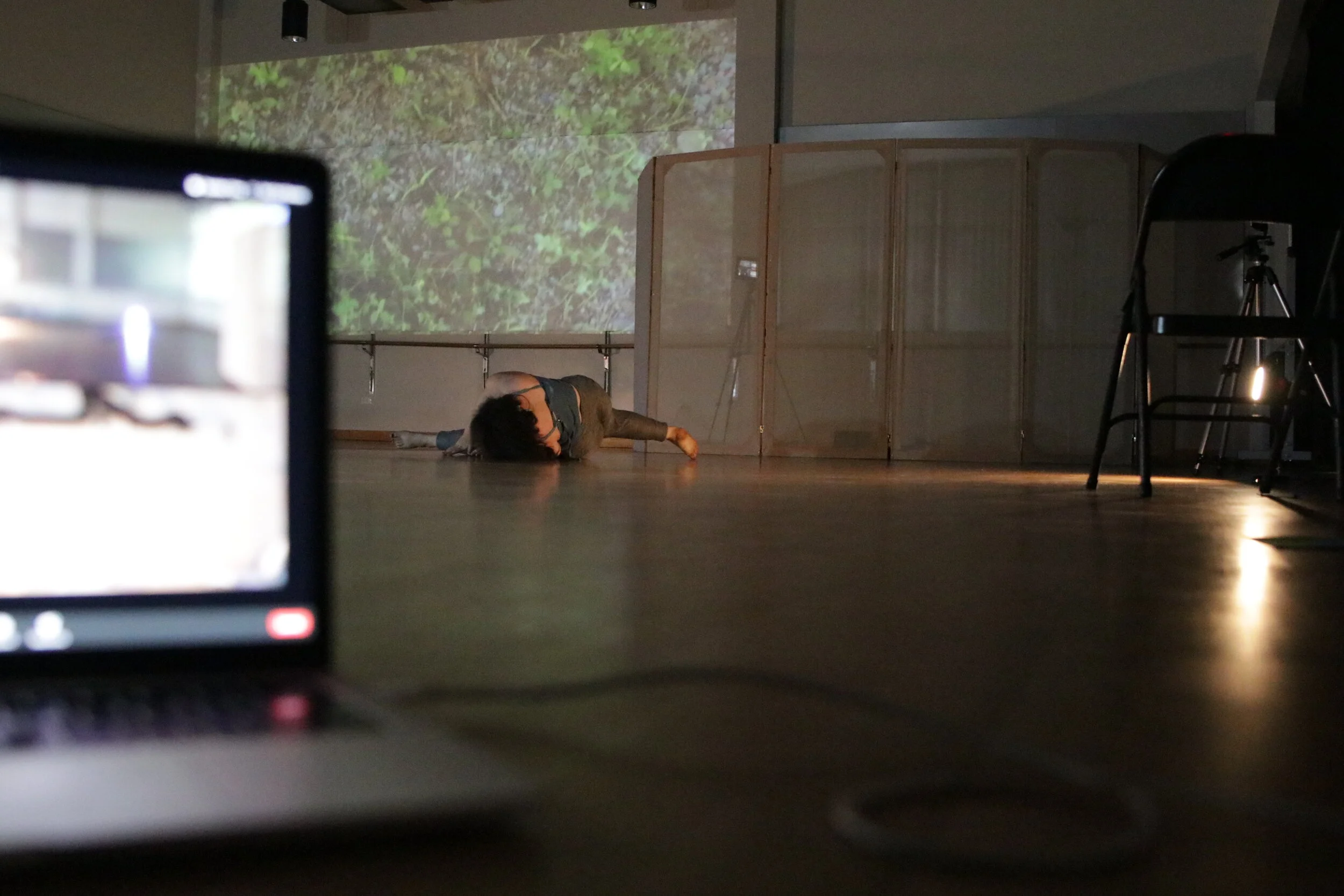
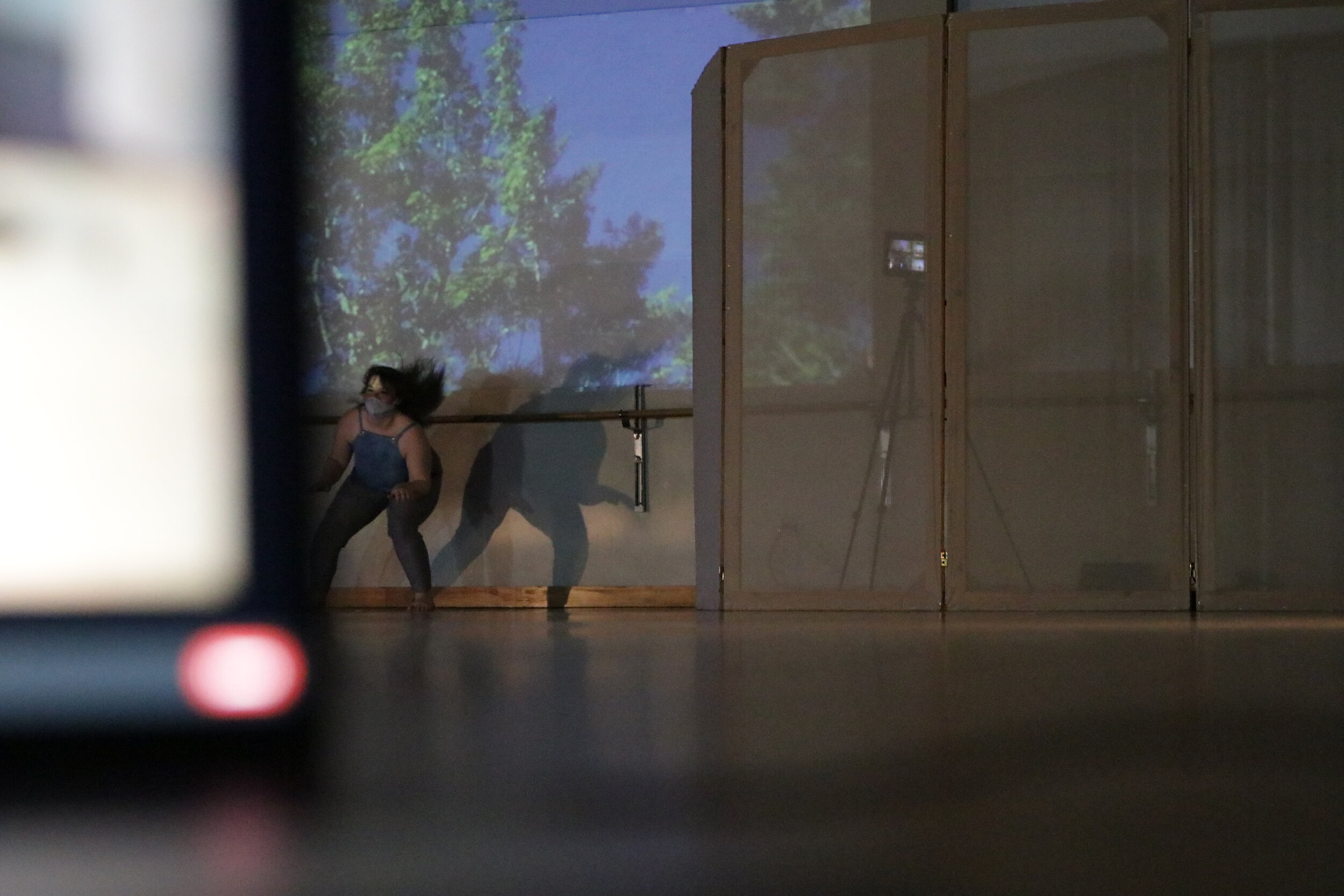
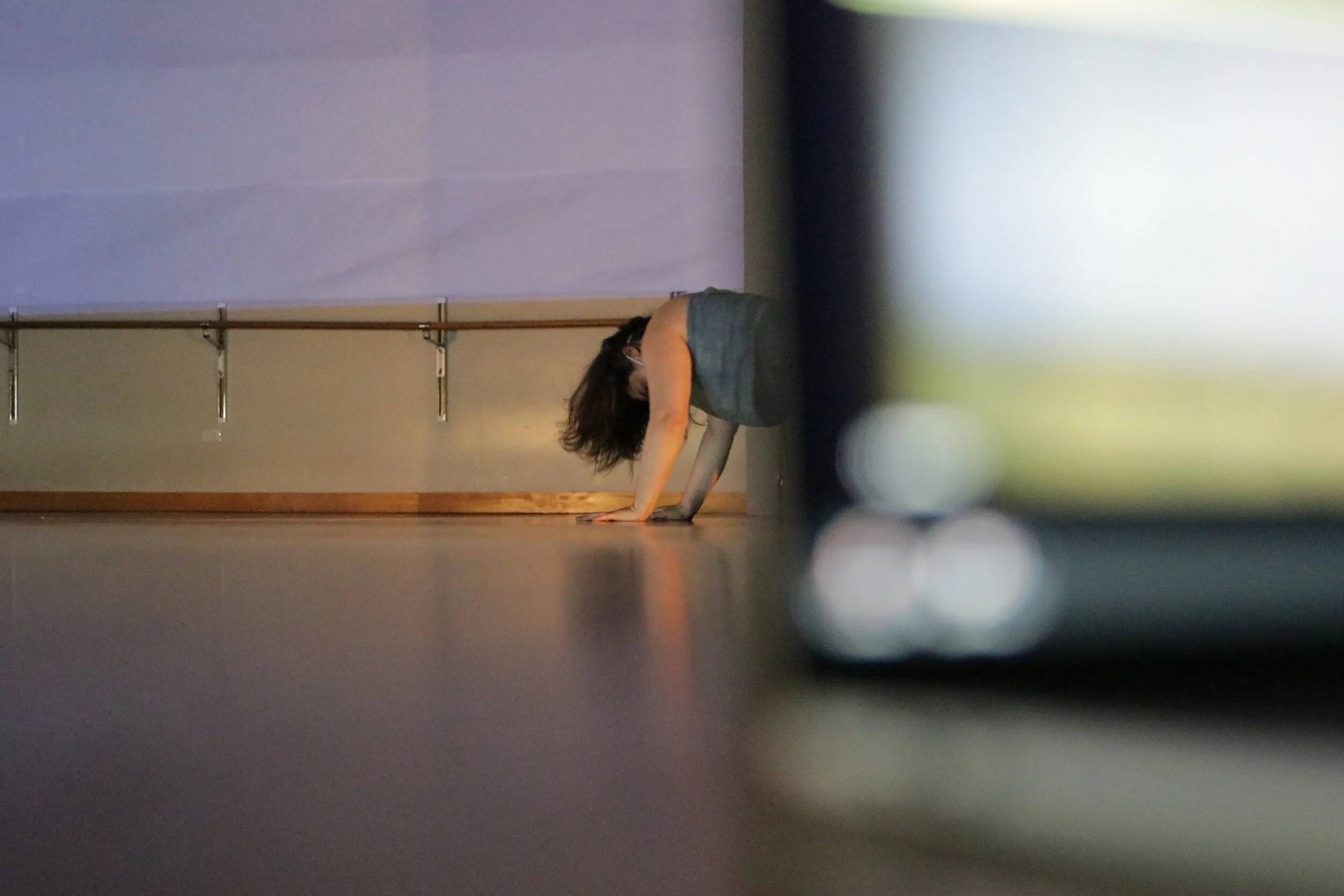
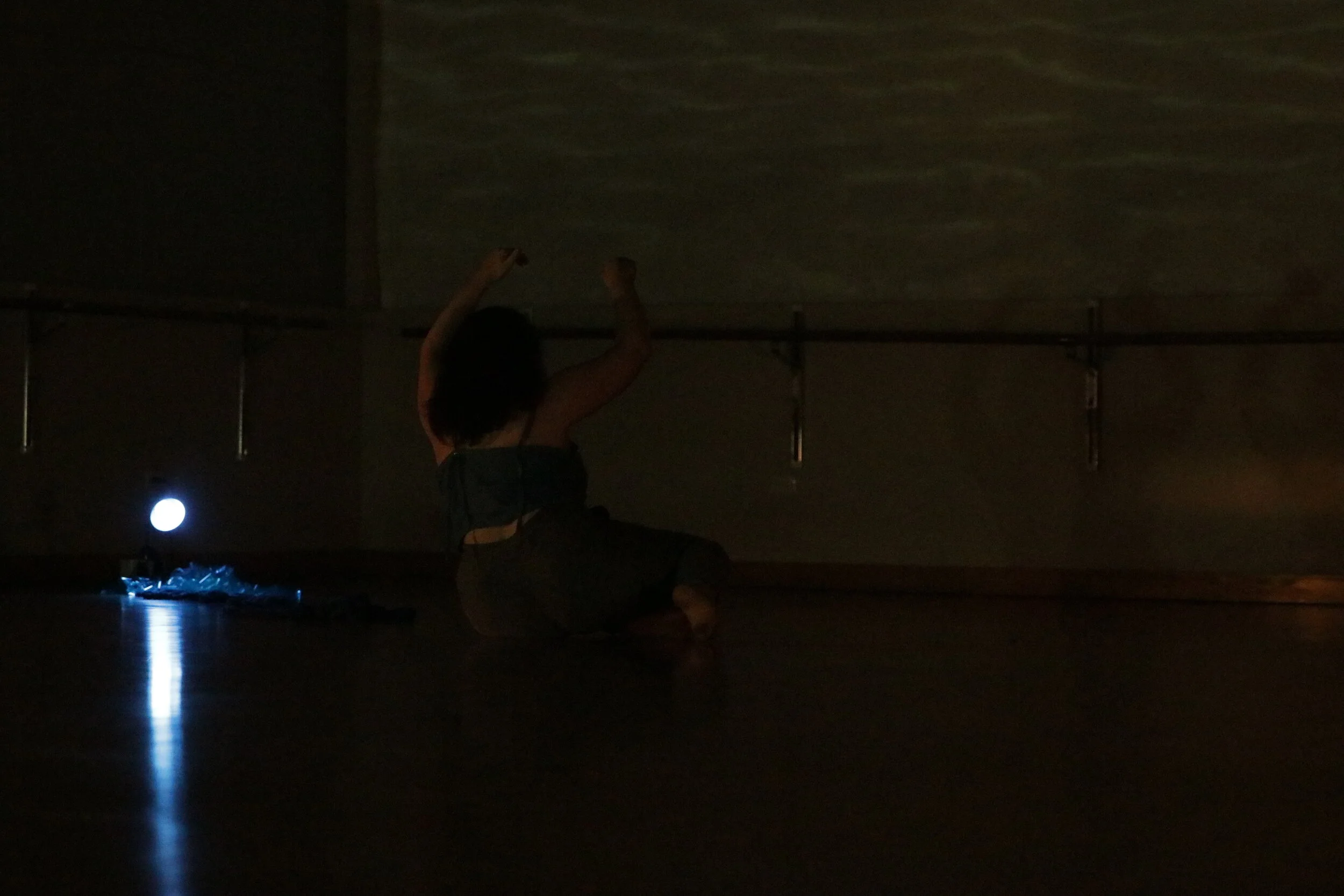
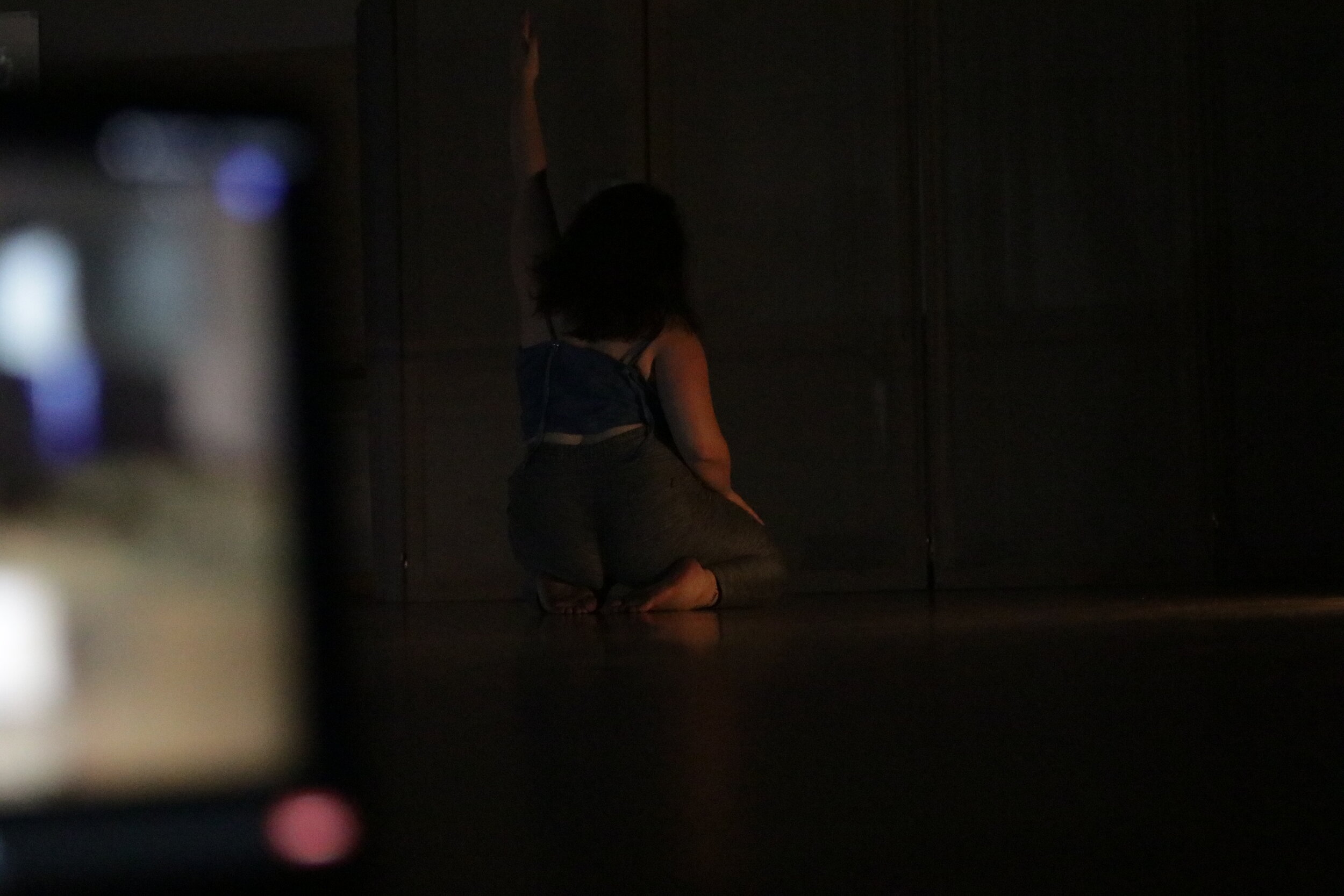
Photo courtesy of Joel Mejia Smith. Four perspective video footage courtesy of Lily Szeto. To view Water Lines, email Talia at tmasondance@gmail.com.
Photo courtesy of Joel Mejia Smith. Single video perspective courtesy of Lily Szeto. To view Water Lines, email Talia at tmasondance@gmail.com.
BLUE SKIES (2019)
Blue Skies is an improvised piece of choreography that centers around Marie Kondo's idea of what sparks joy. Pixar’s “Up,” childhood stuffed animals and sonic explorations were a large part of this improvisational score. Blue Skies was performed at Bates College Dance Department's 50th anniversary.
Field Notes on Remembering (2019-present)
Field Notes on Remembering is a dance work created by Talia Mason and Christina Catanese. The piece focused on the ginkgo tree, memory, atonement, and ancestry on both personal and planetary levels. The performance took place near and with the large ginkgo tree at Bartram’s Garden planted in 1785, thought to be the oldest of its species in North America. Audiences were invited to learn about the fascinating life history of one of the oldest, most familiar, and most resilient tree species on earth, as well as reflect on their own memories, stories, and lineages. Performances occurred at Bartram’s Garden on May 18th. Talia and Christina are continuing to work on Field Notes on Remembering from afar. Check back here for updates on Talia’s current choreographic mapping explorations in California.
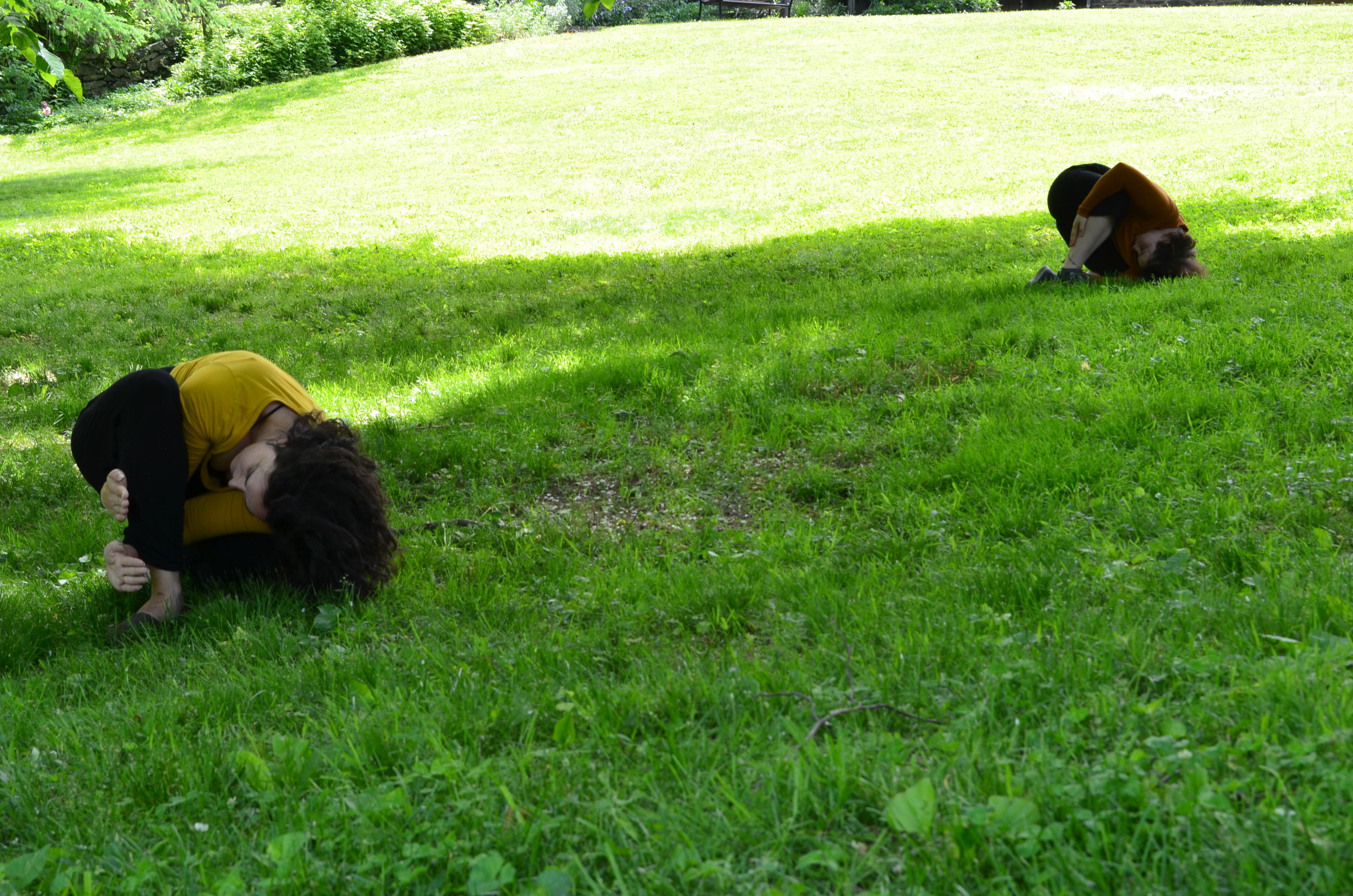
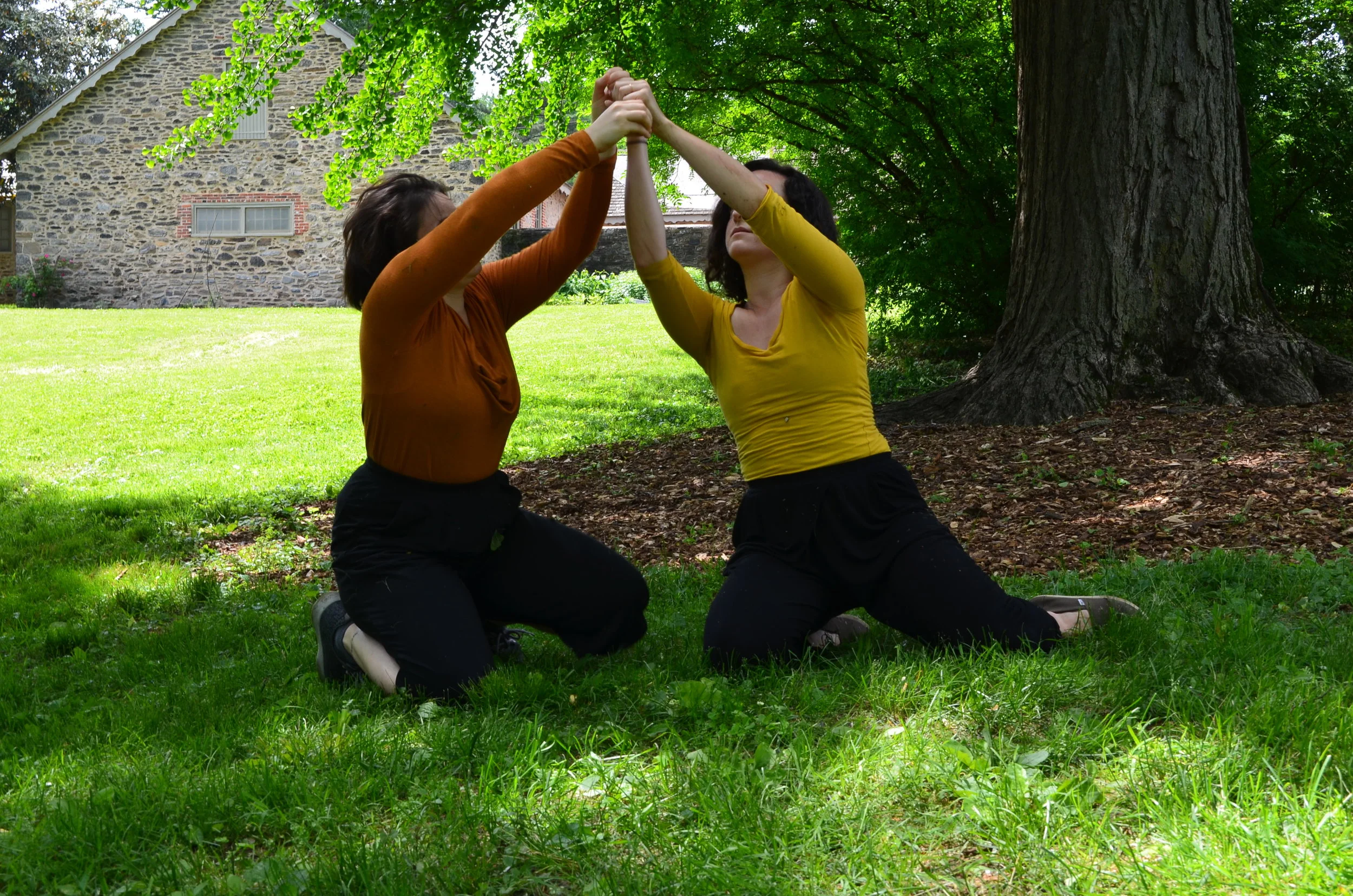
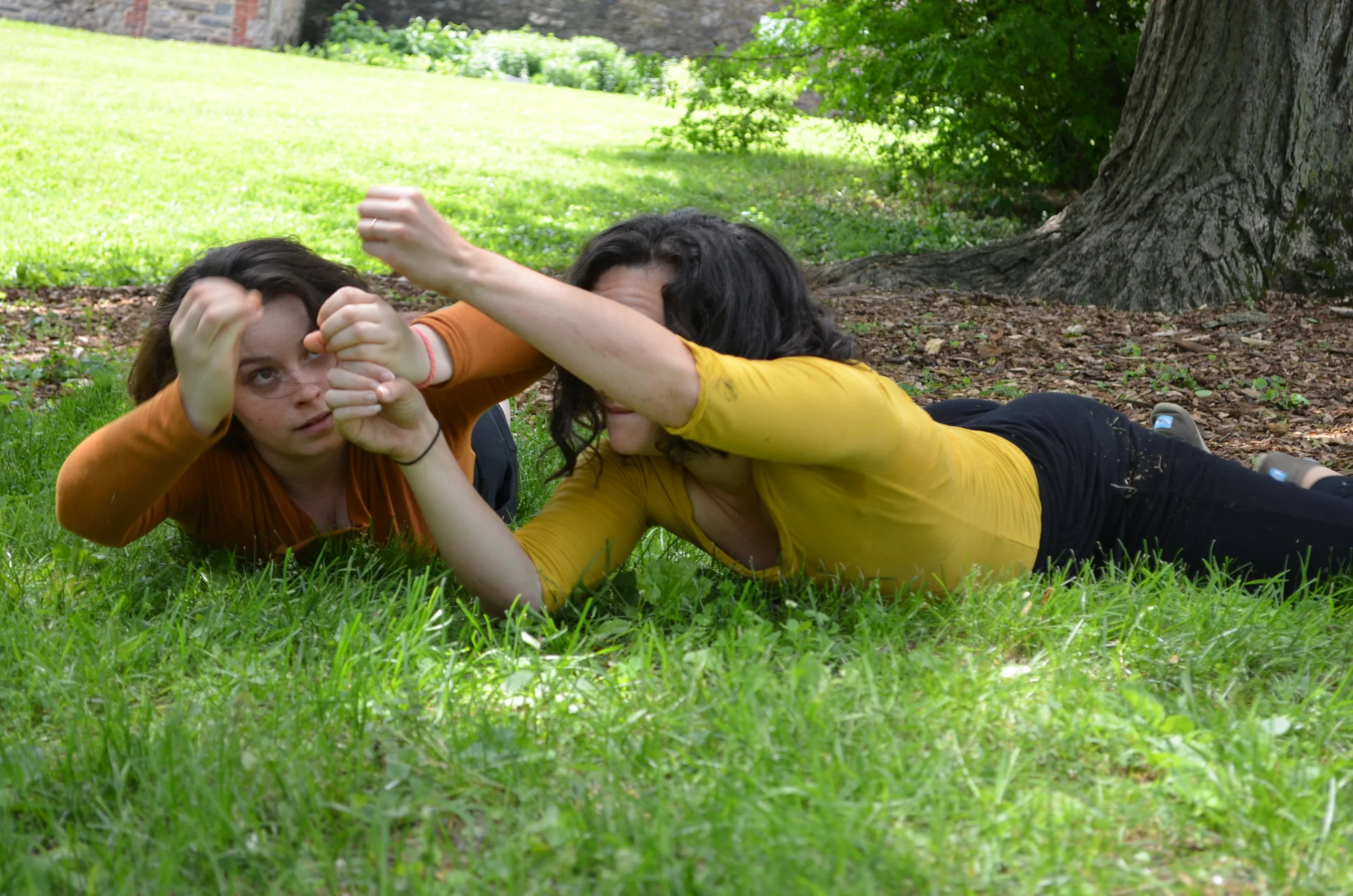
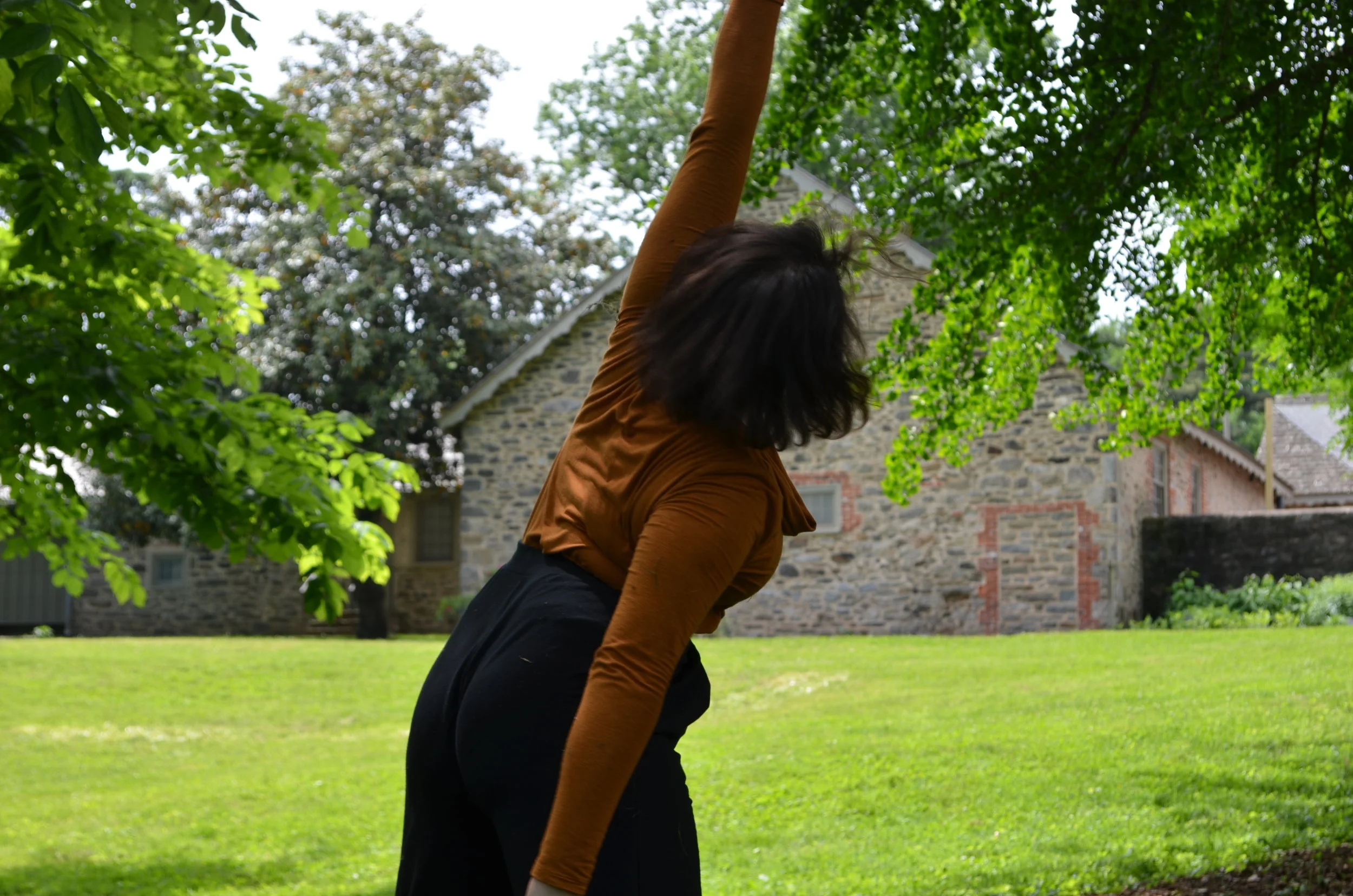
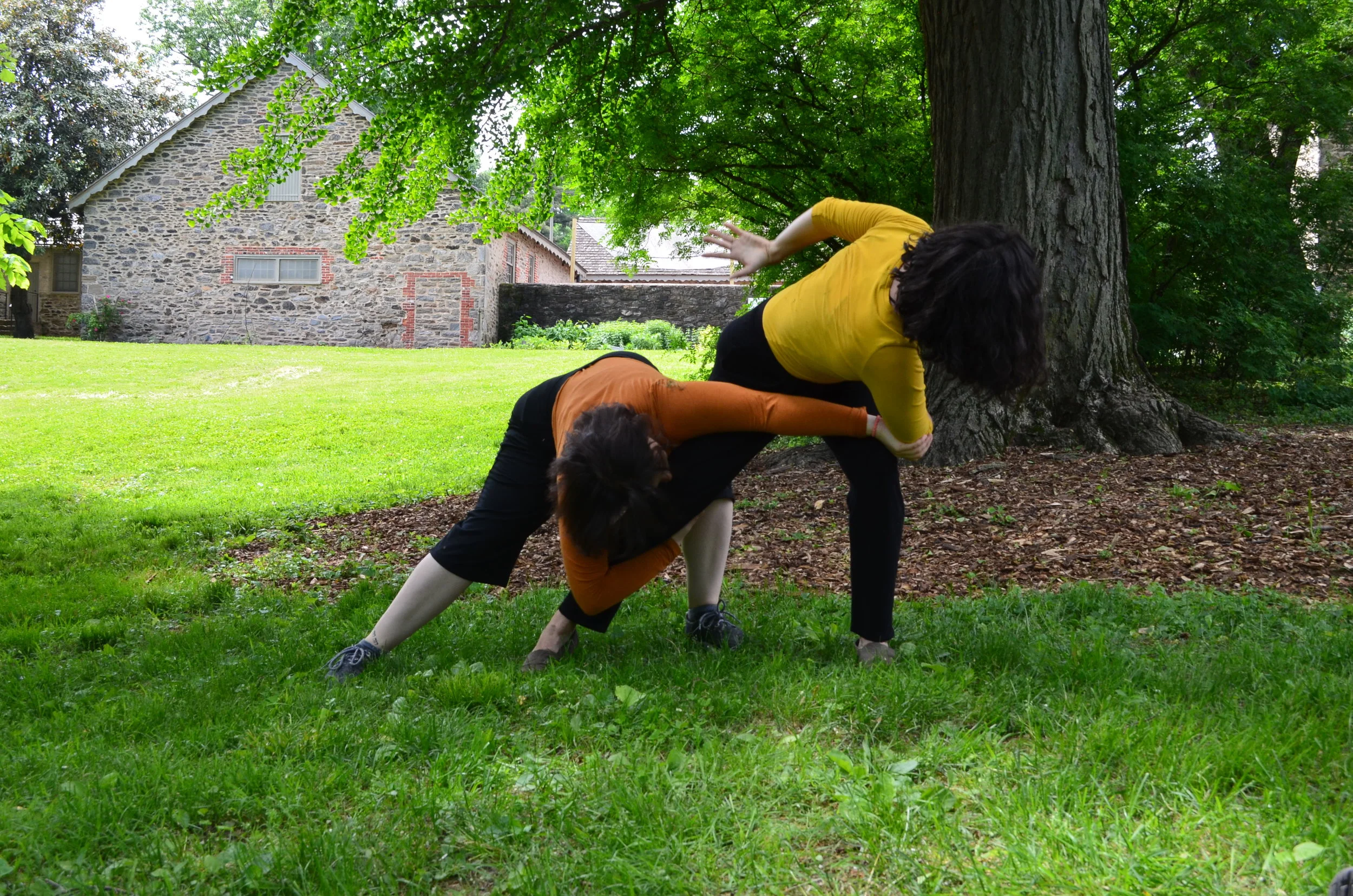
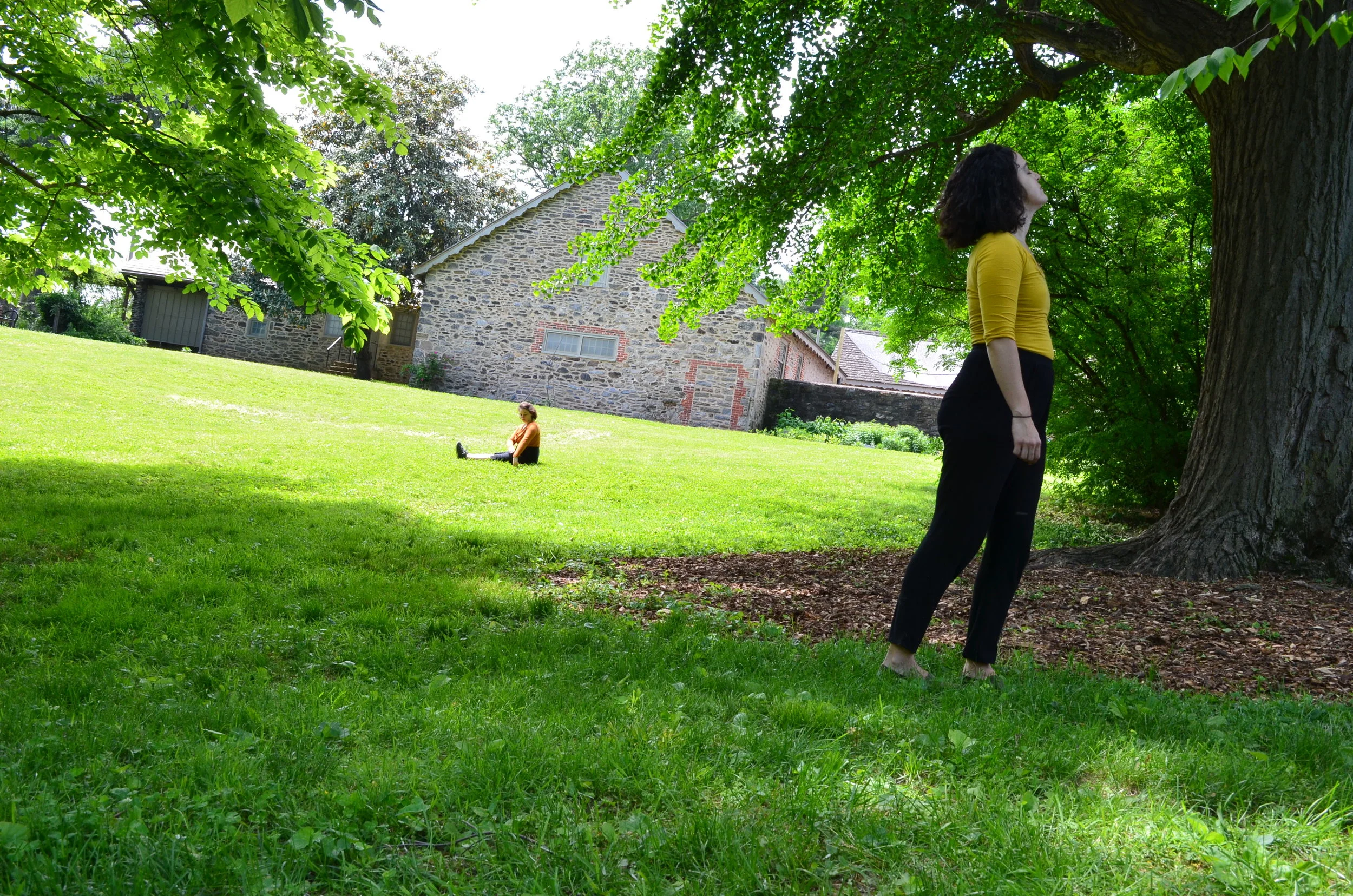
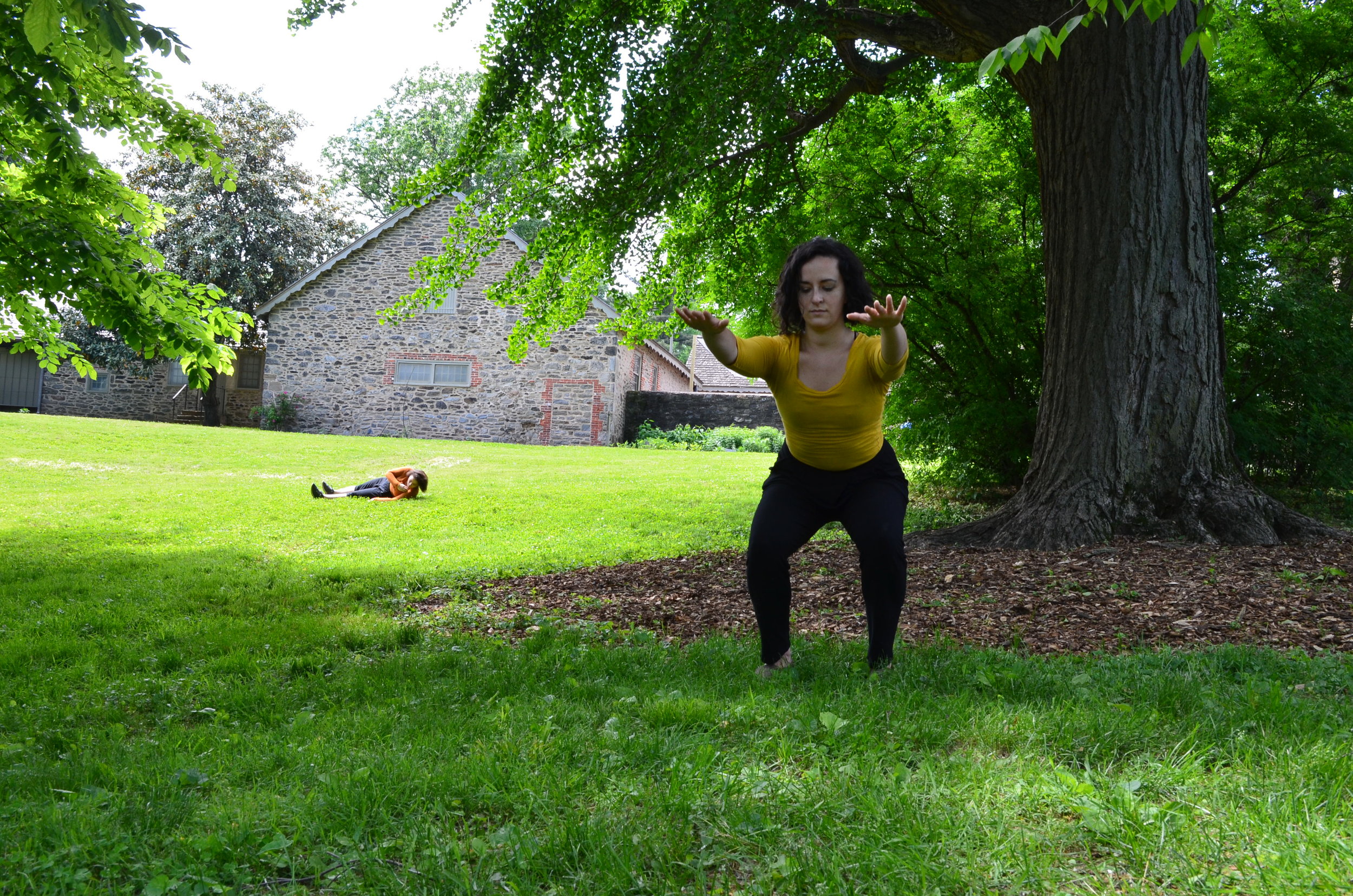
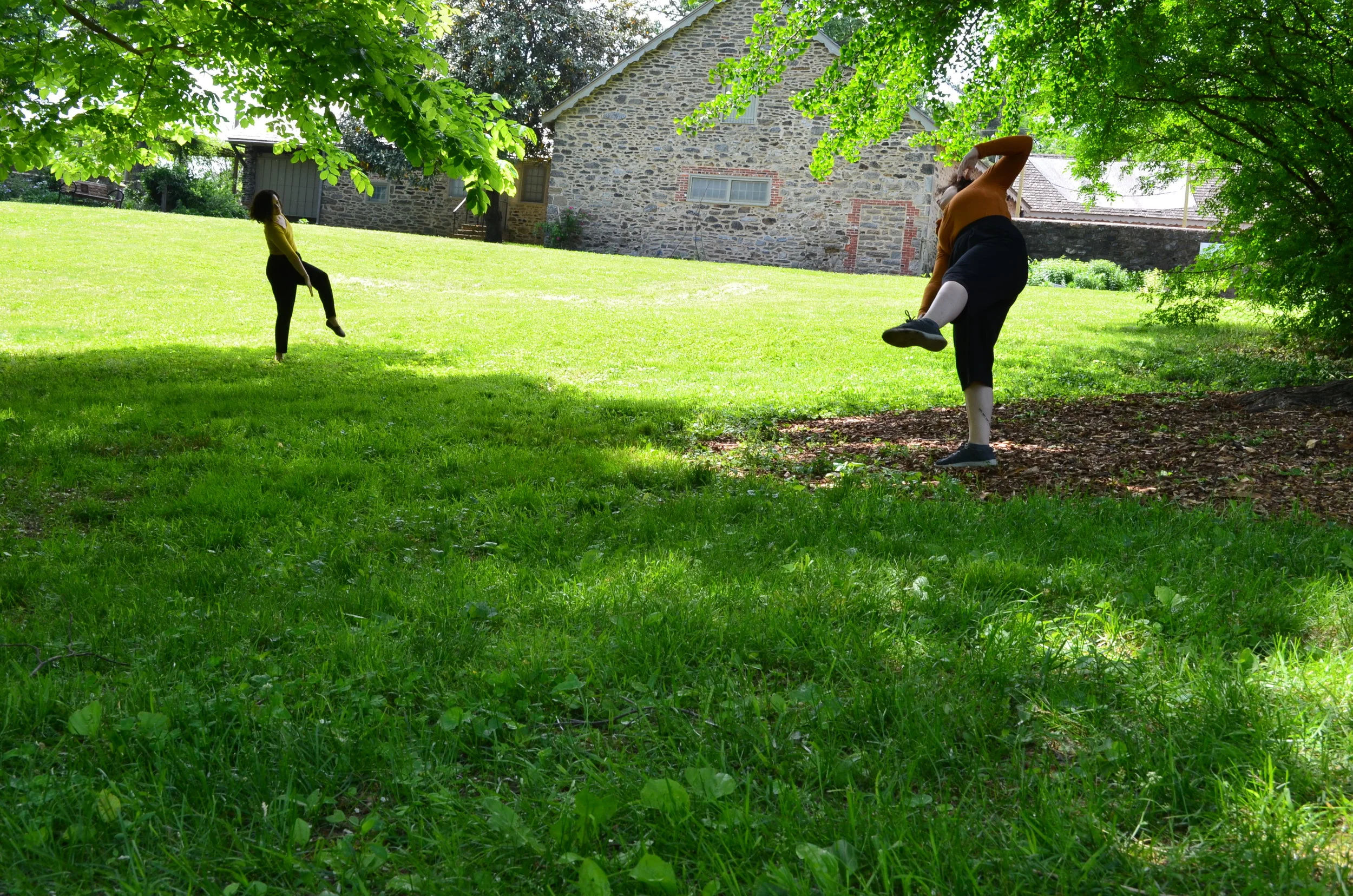
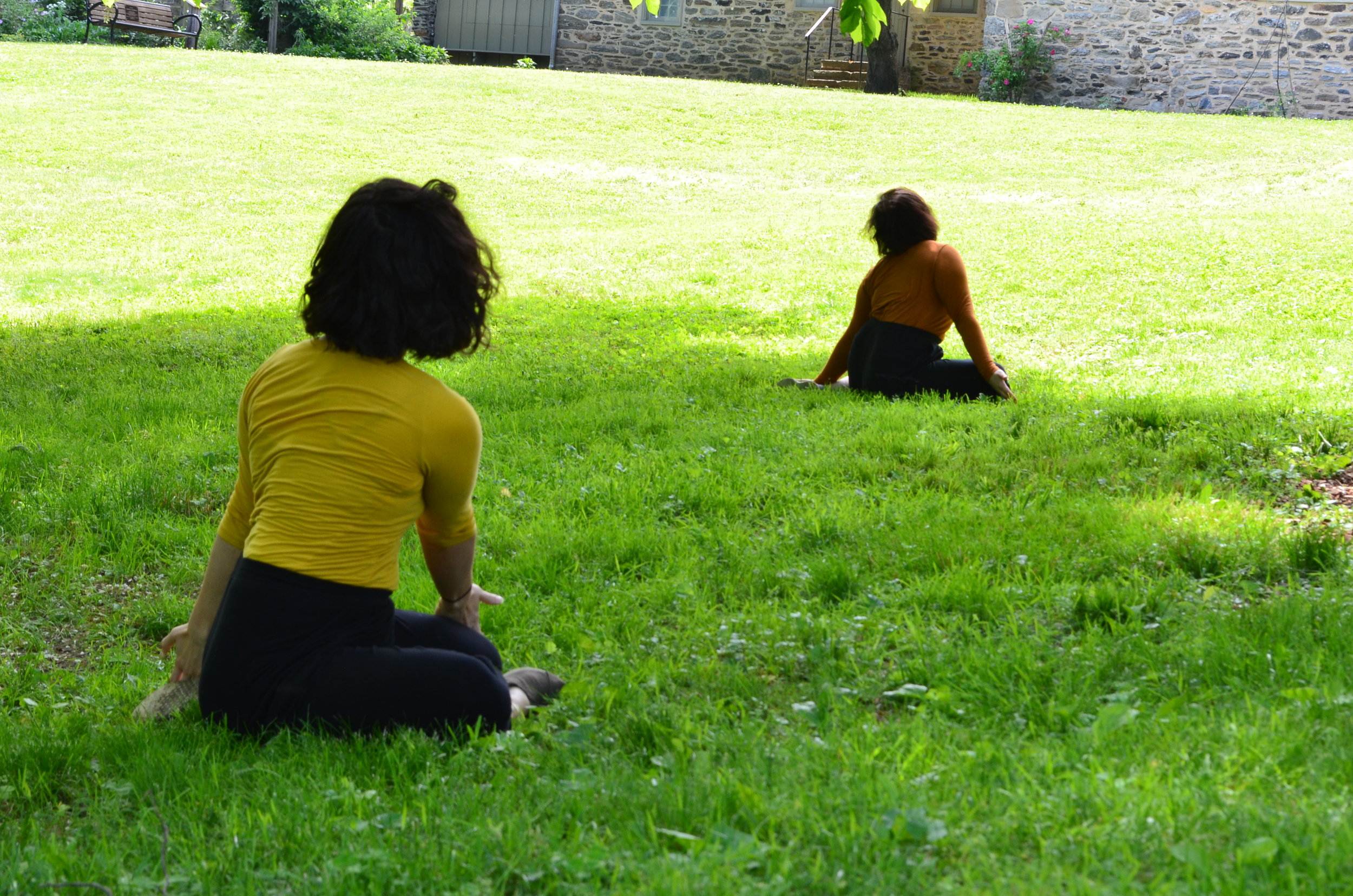
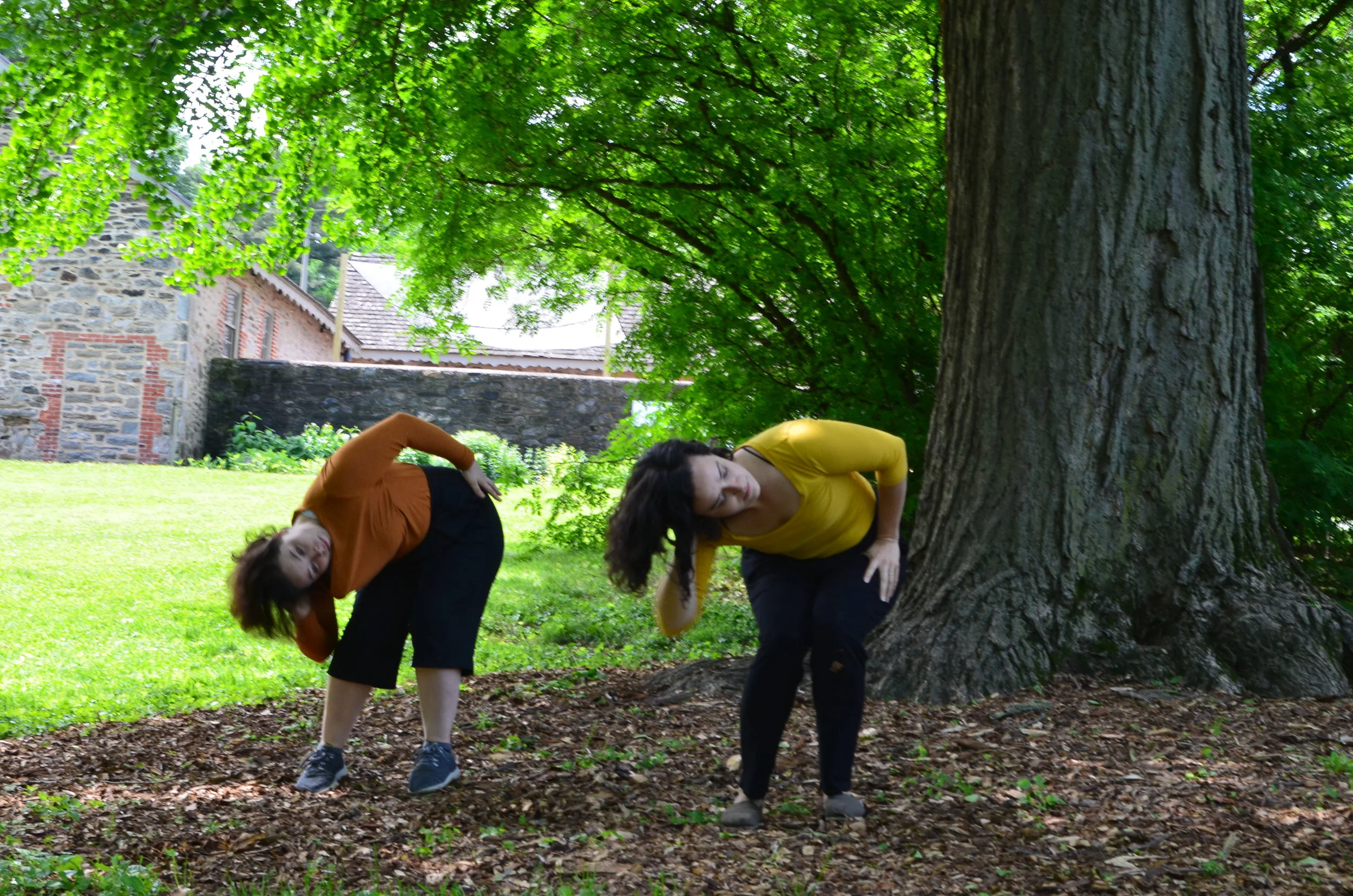
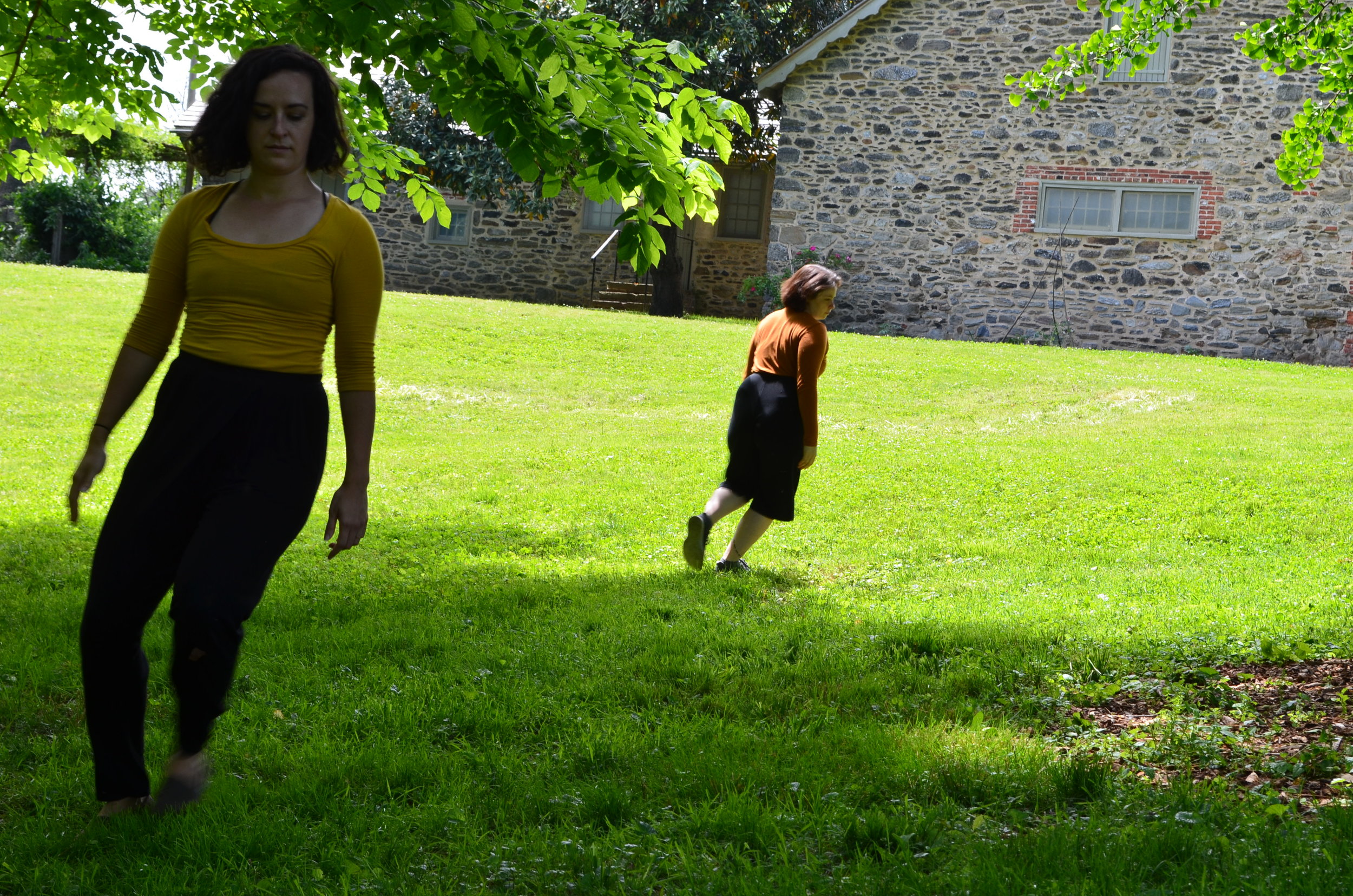
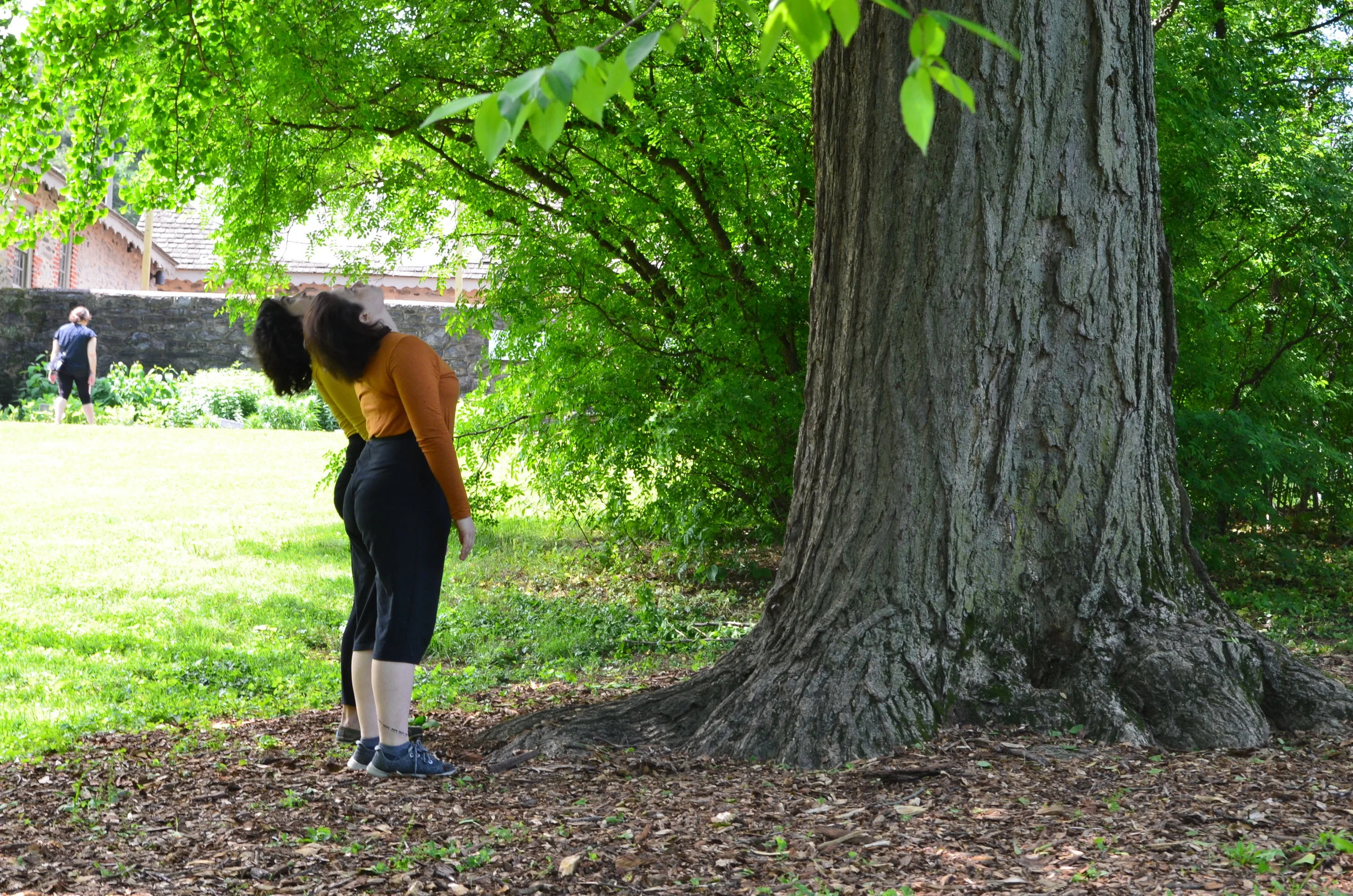
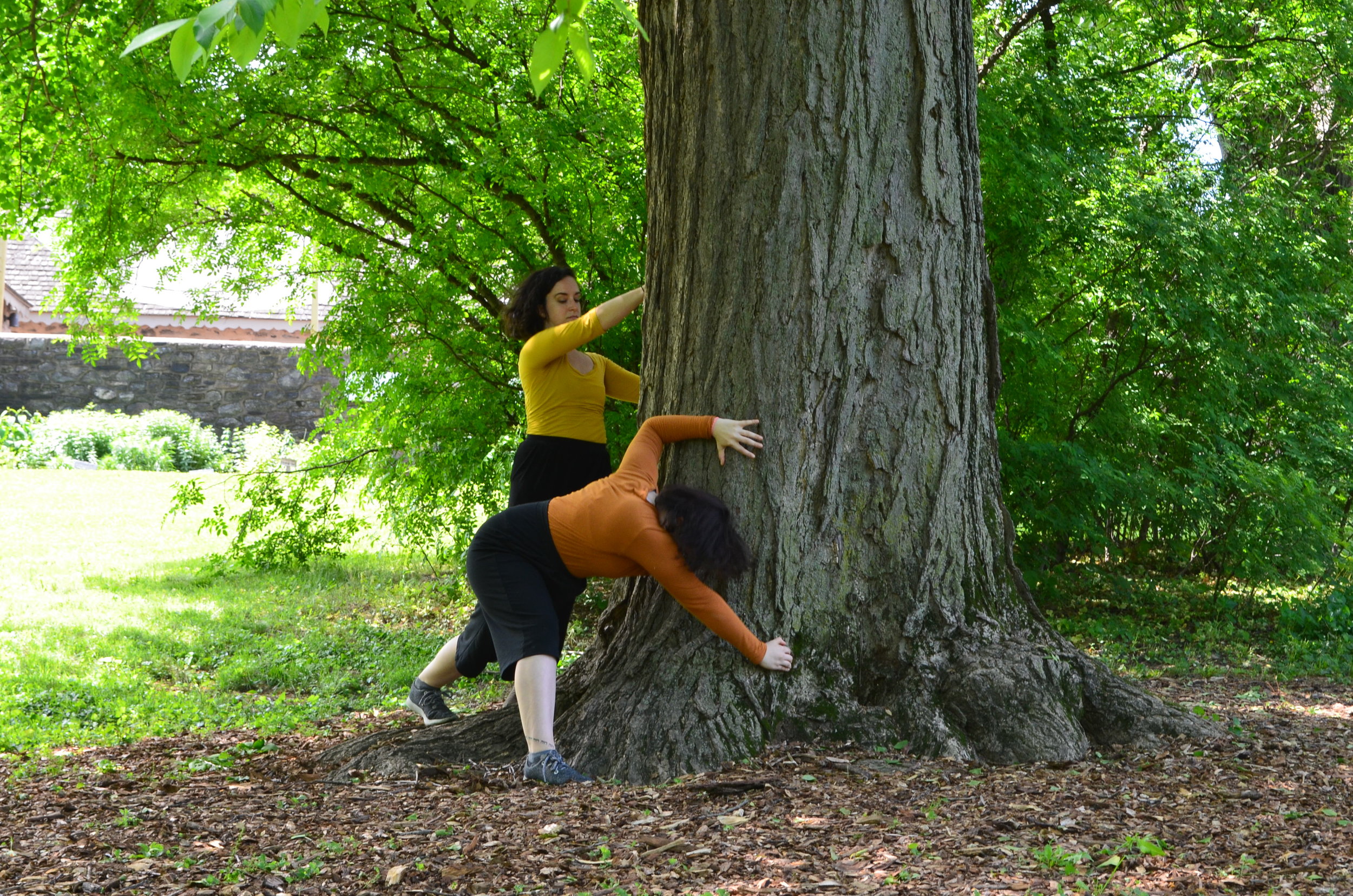
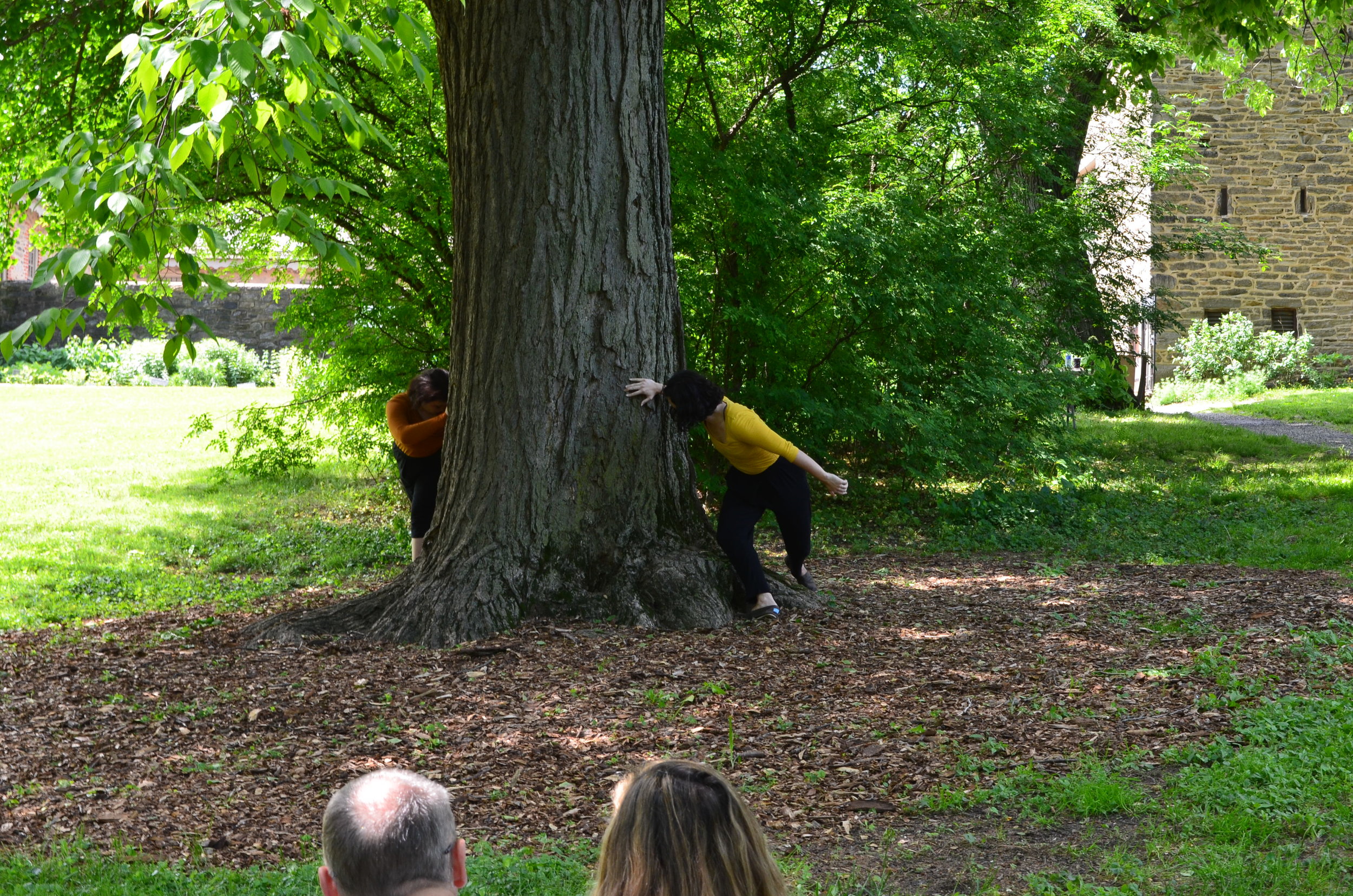
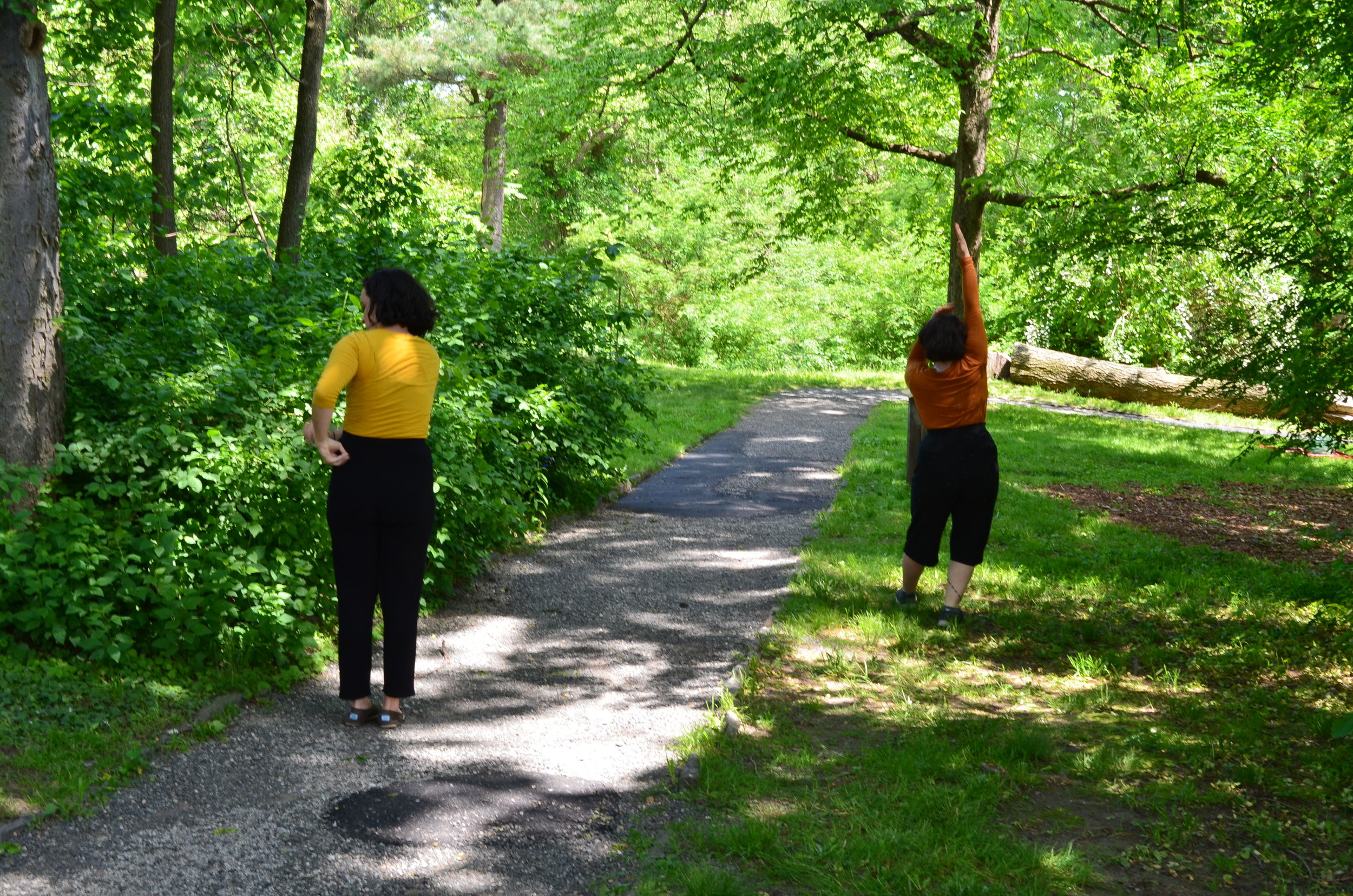
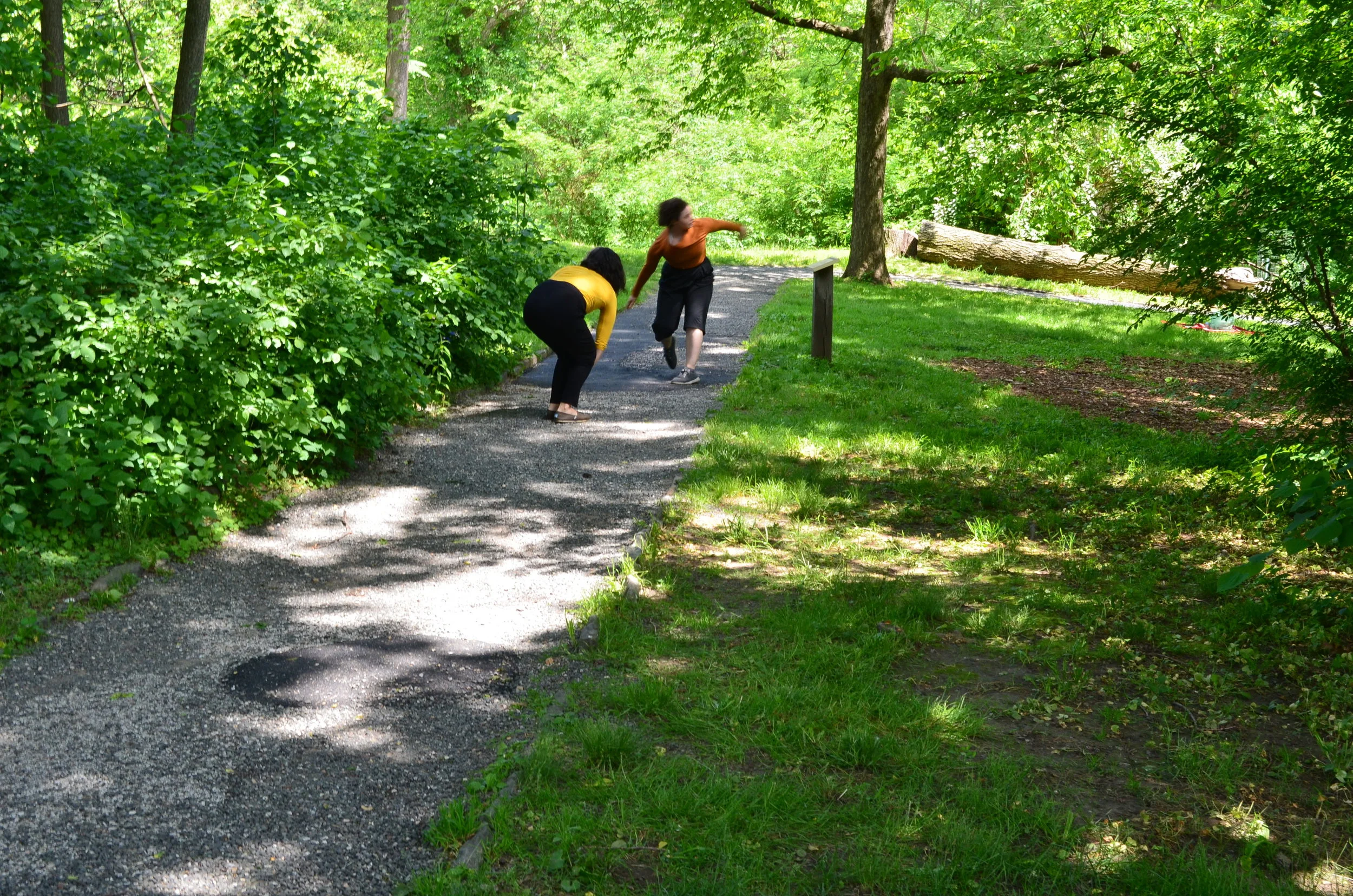
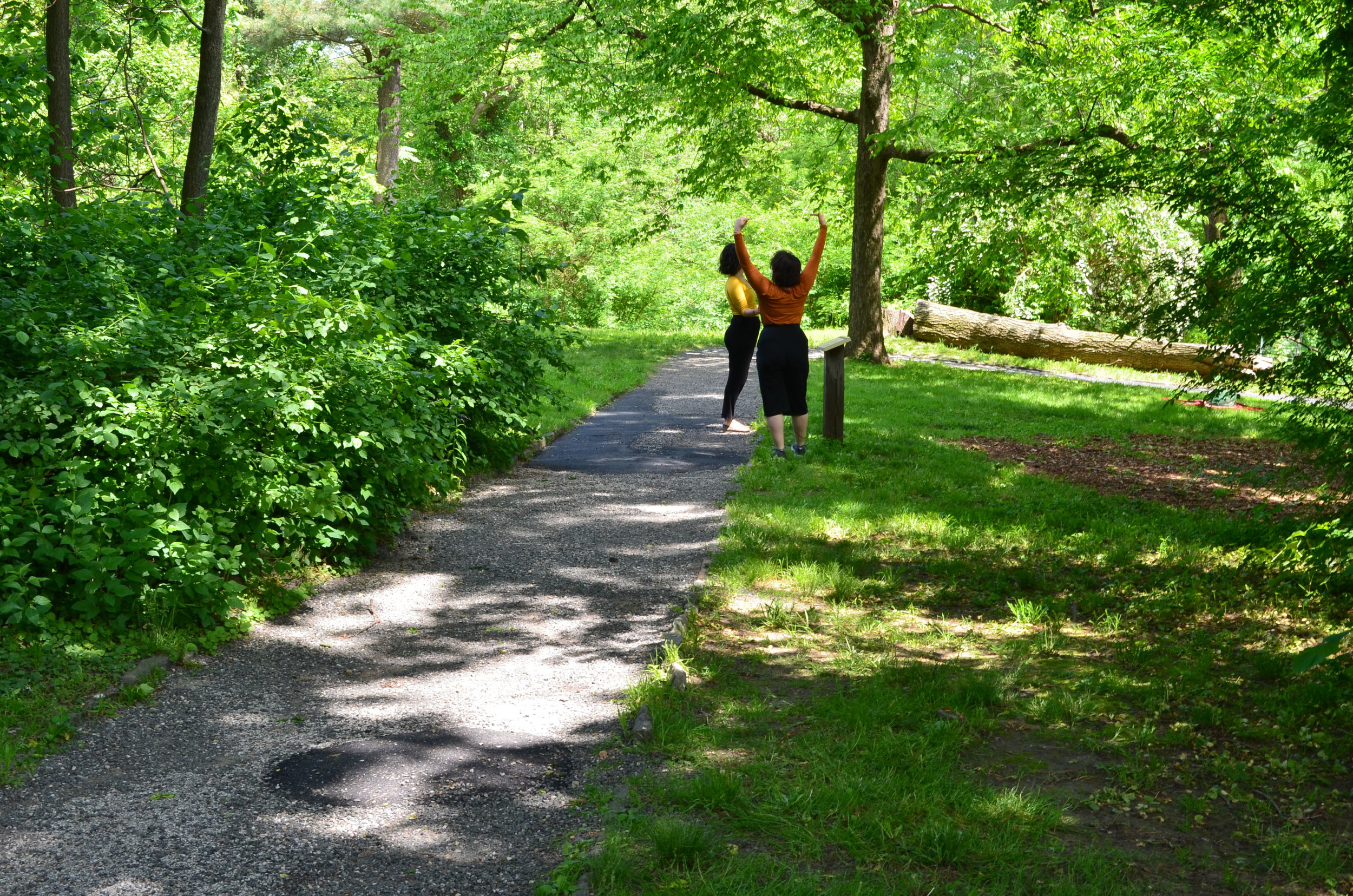
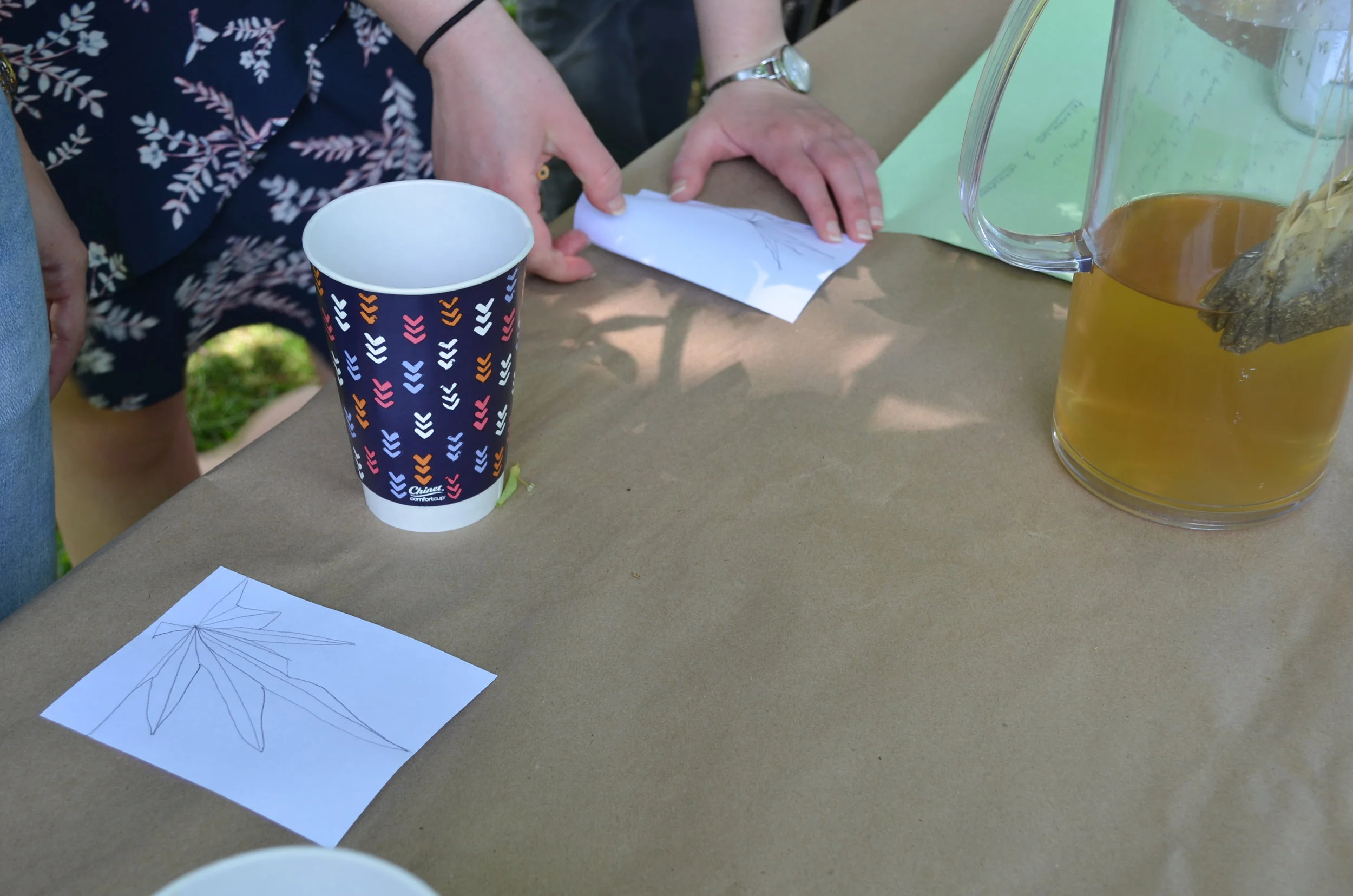
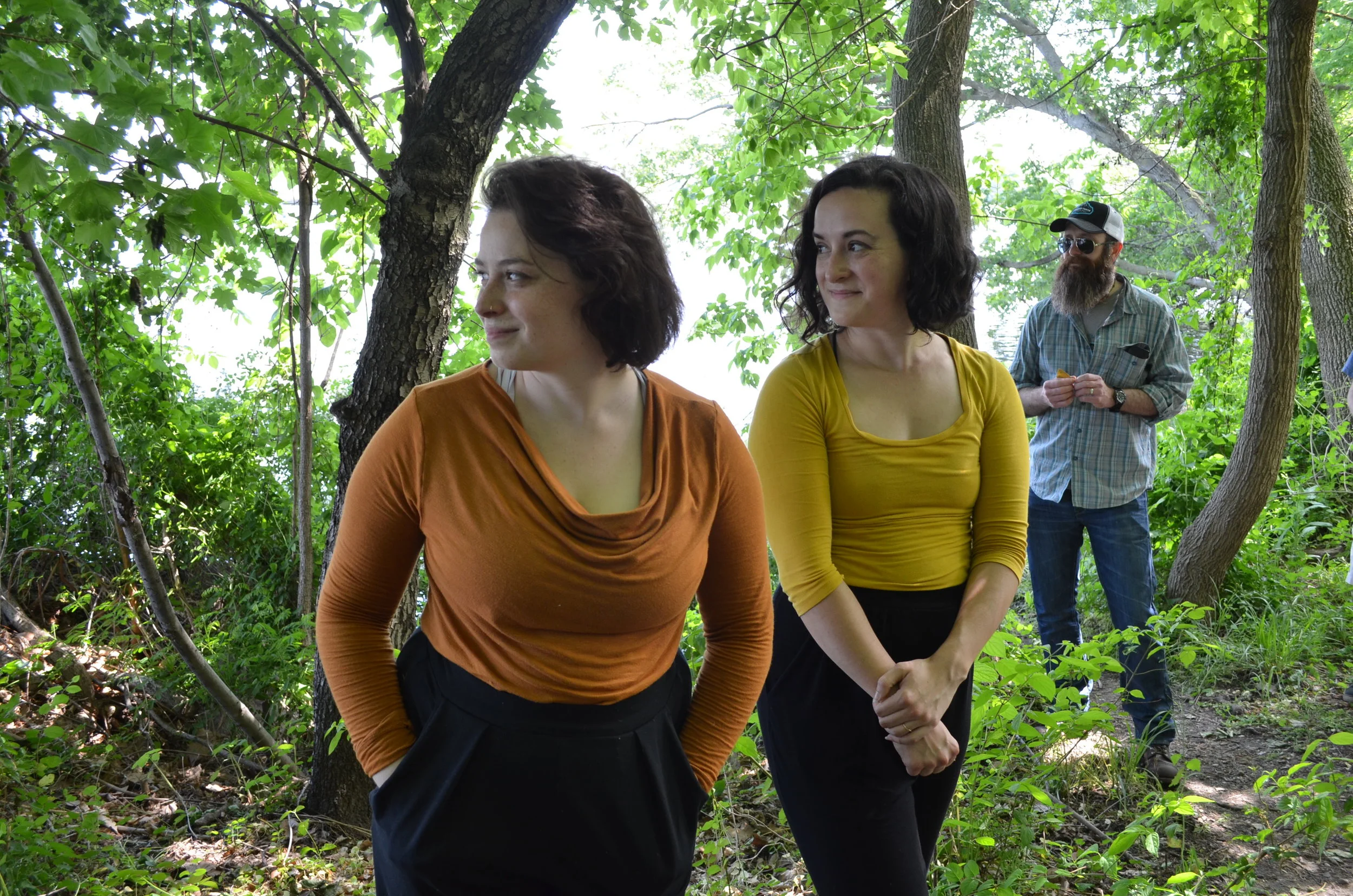
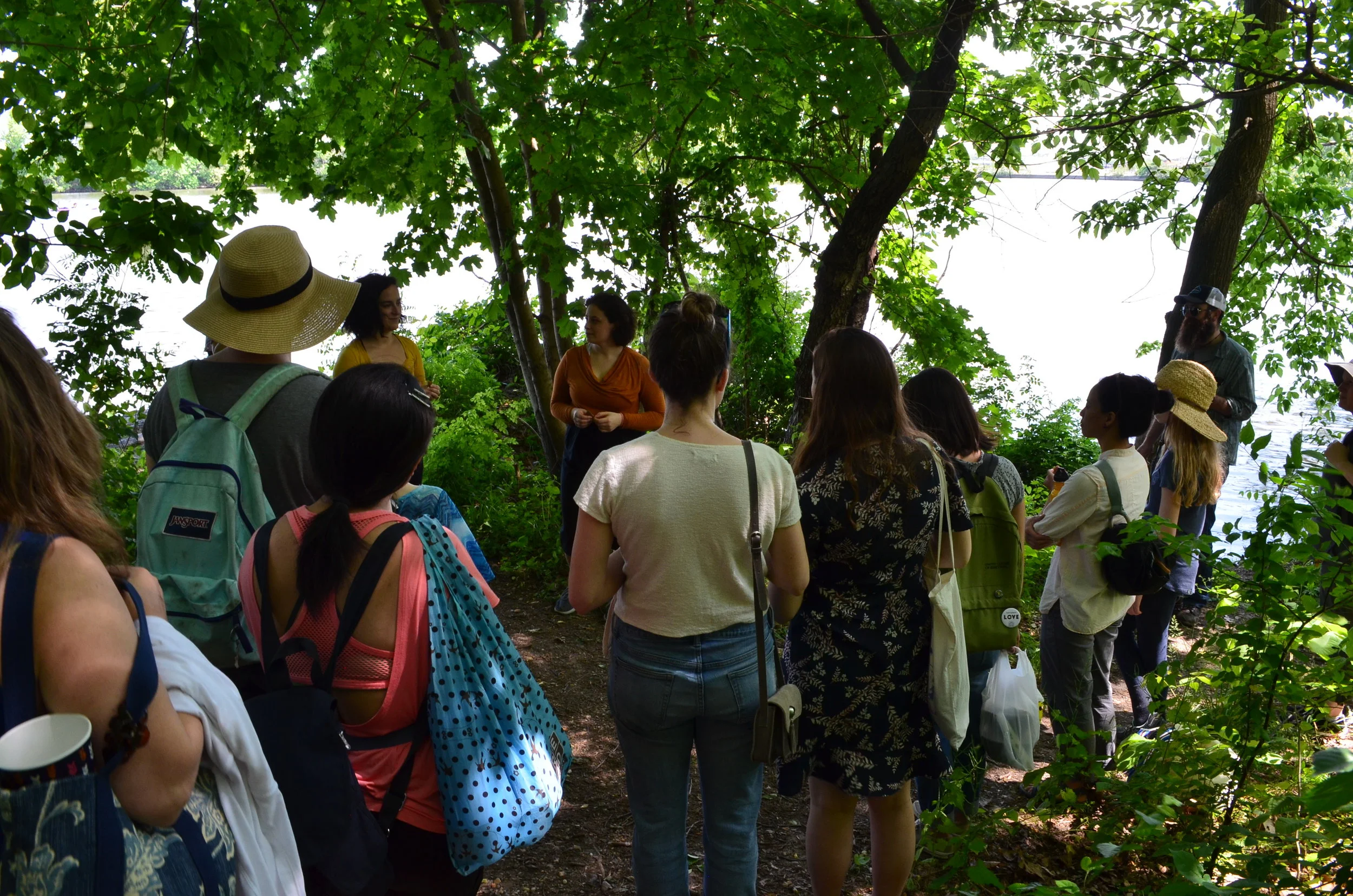
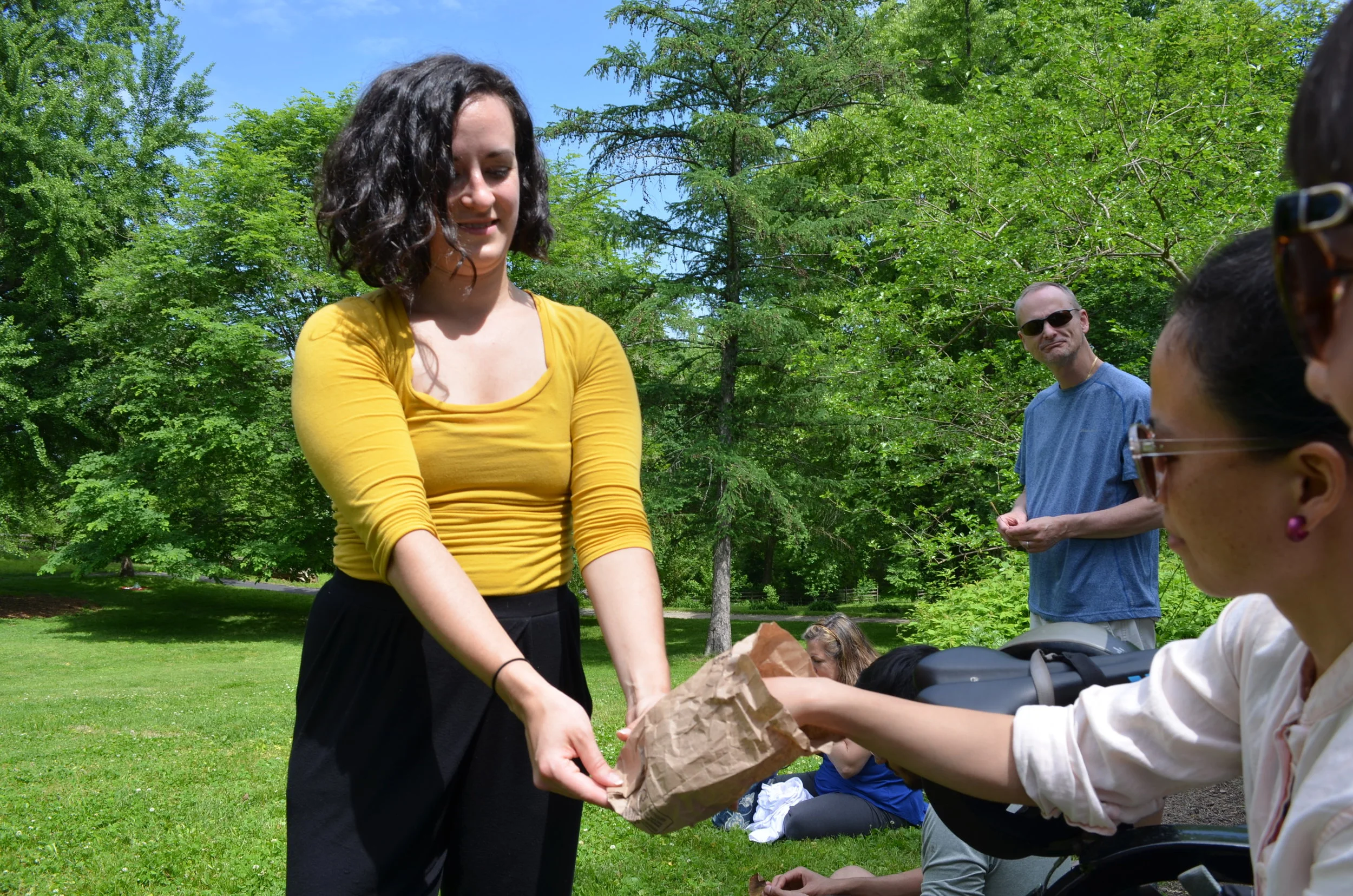
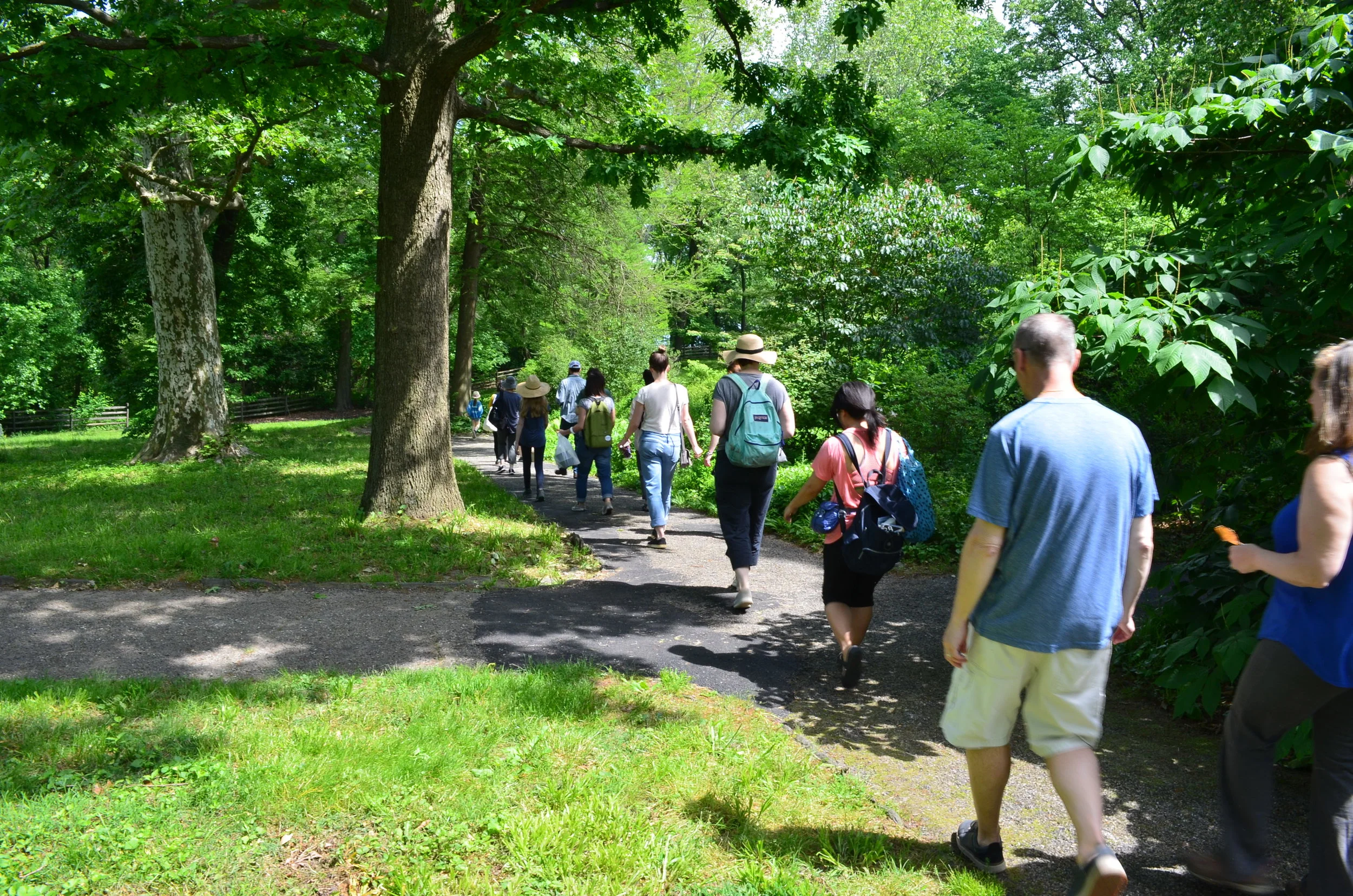
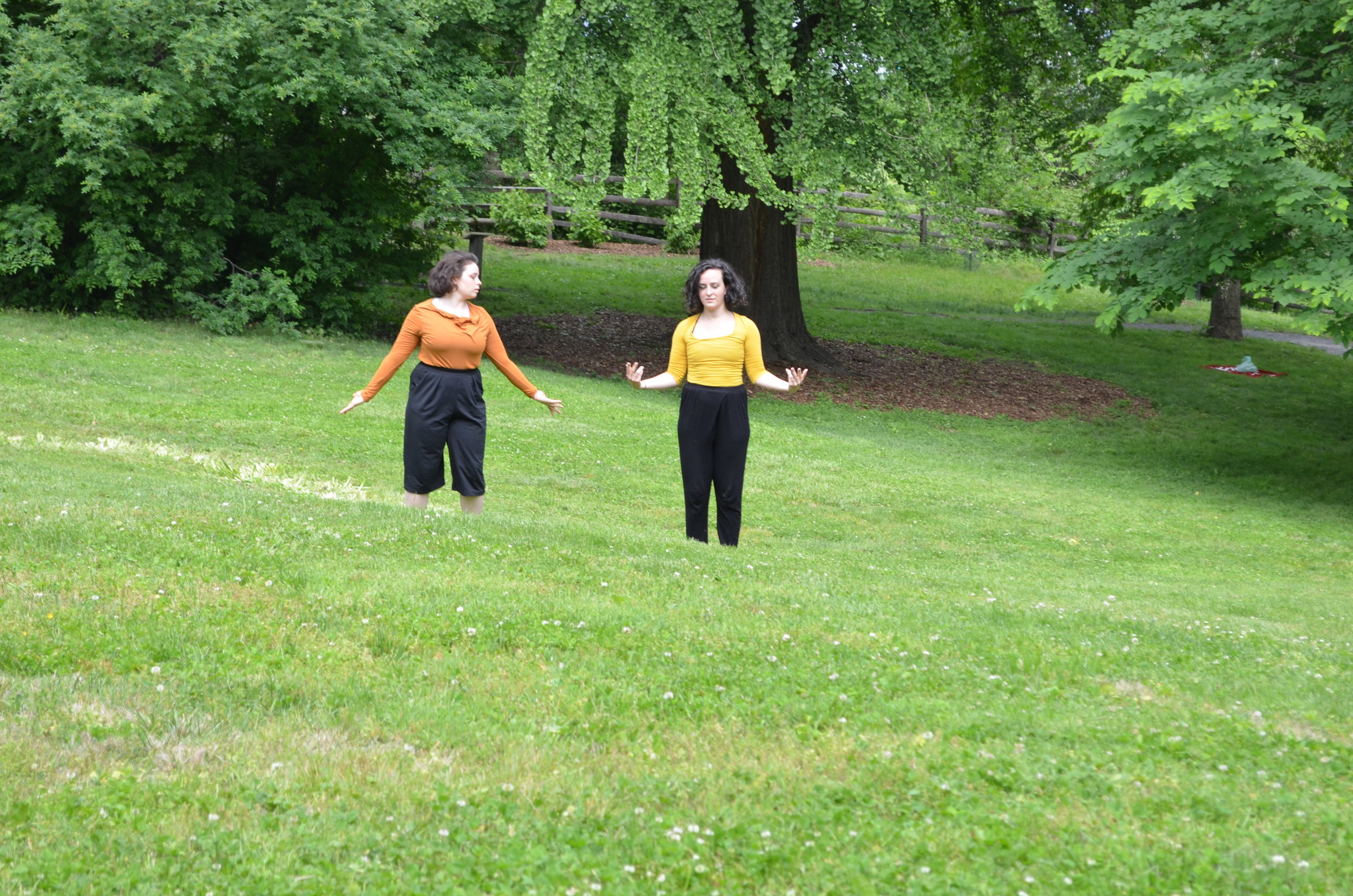
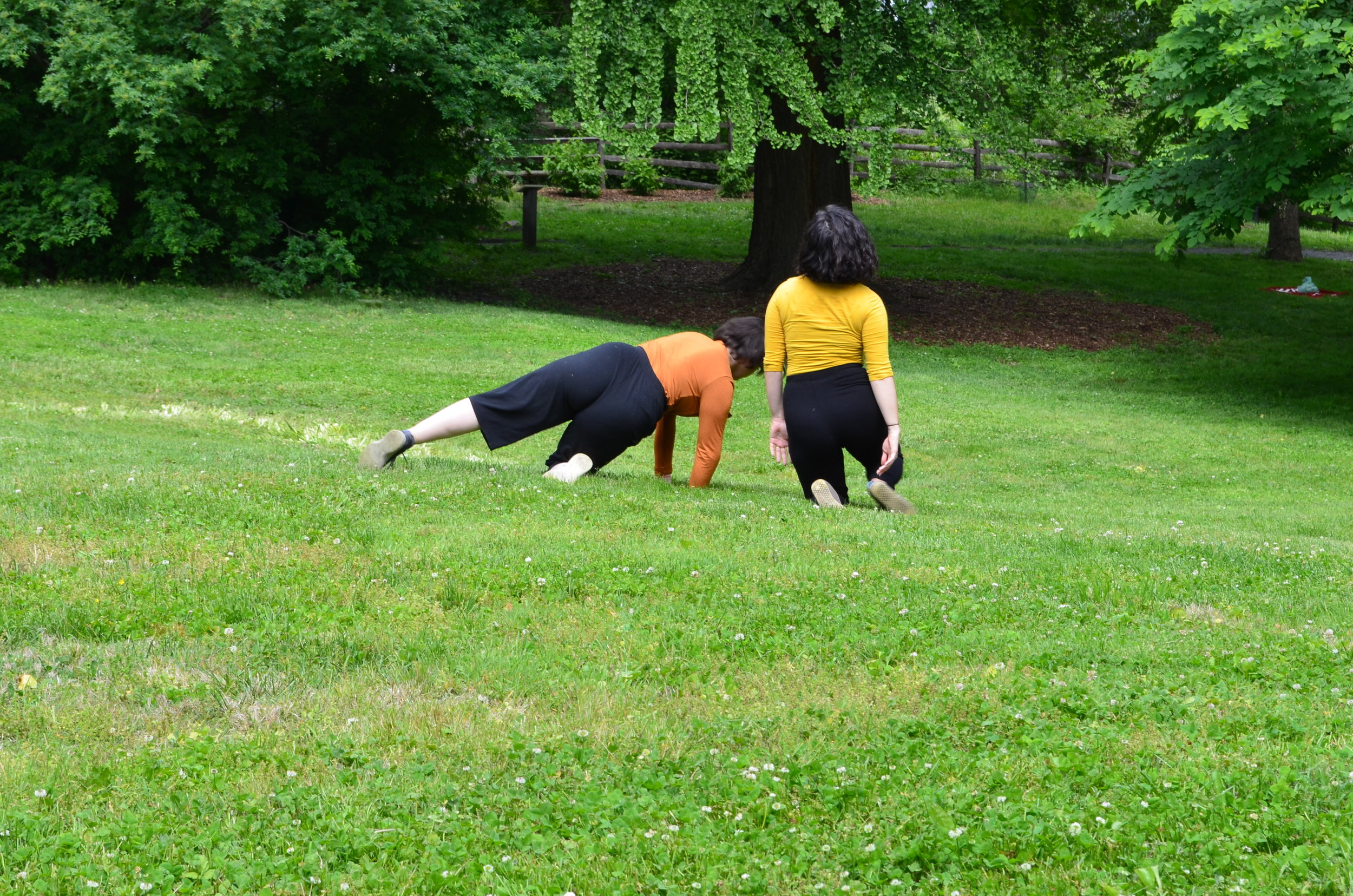
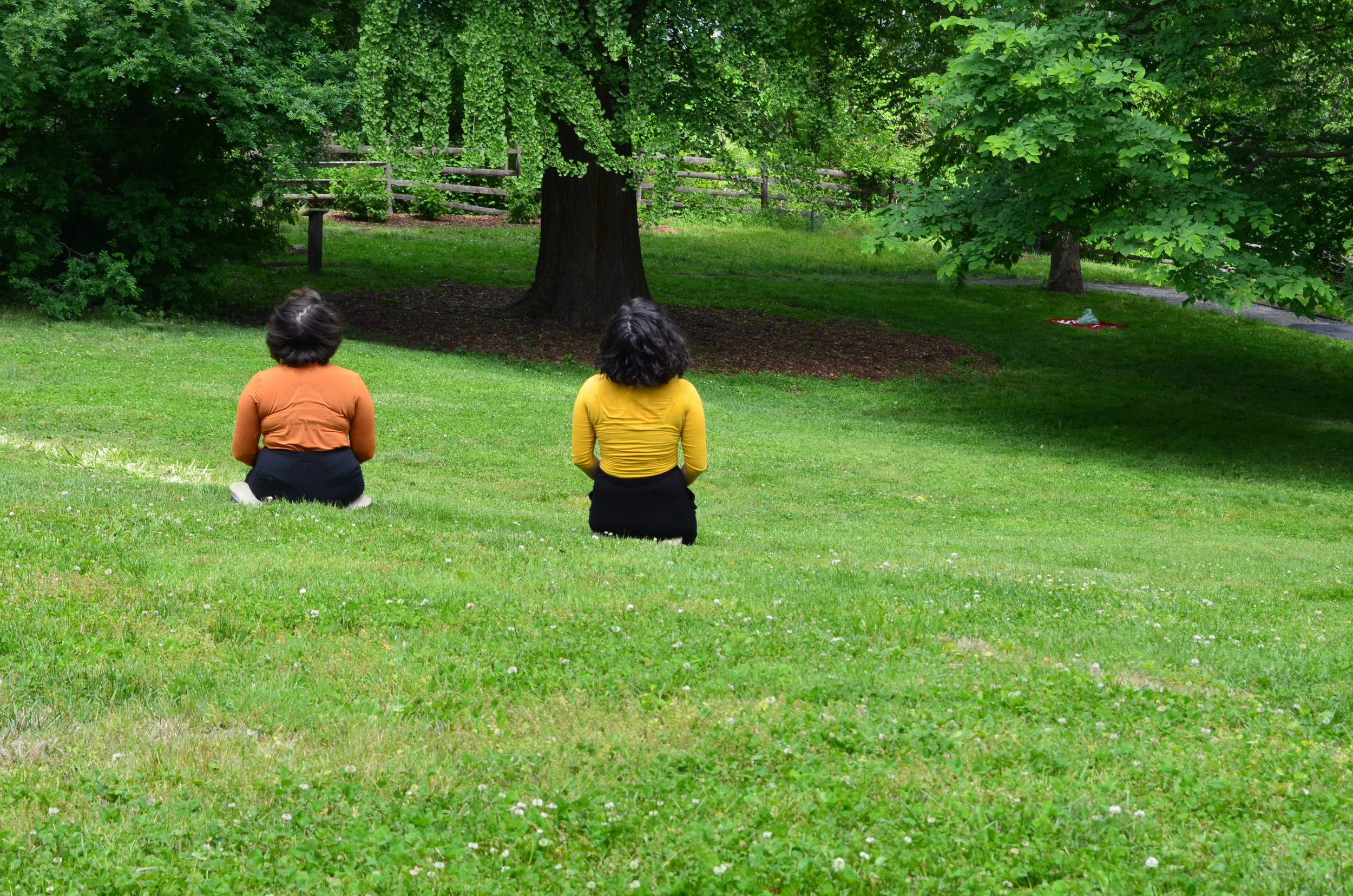
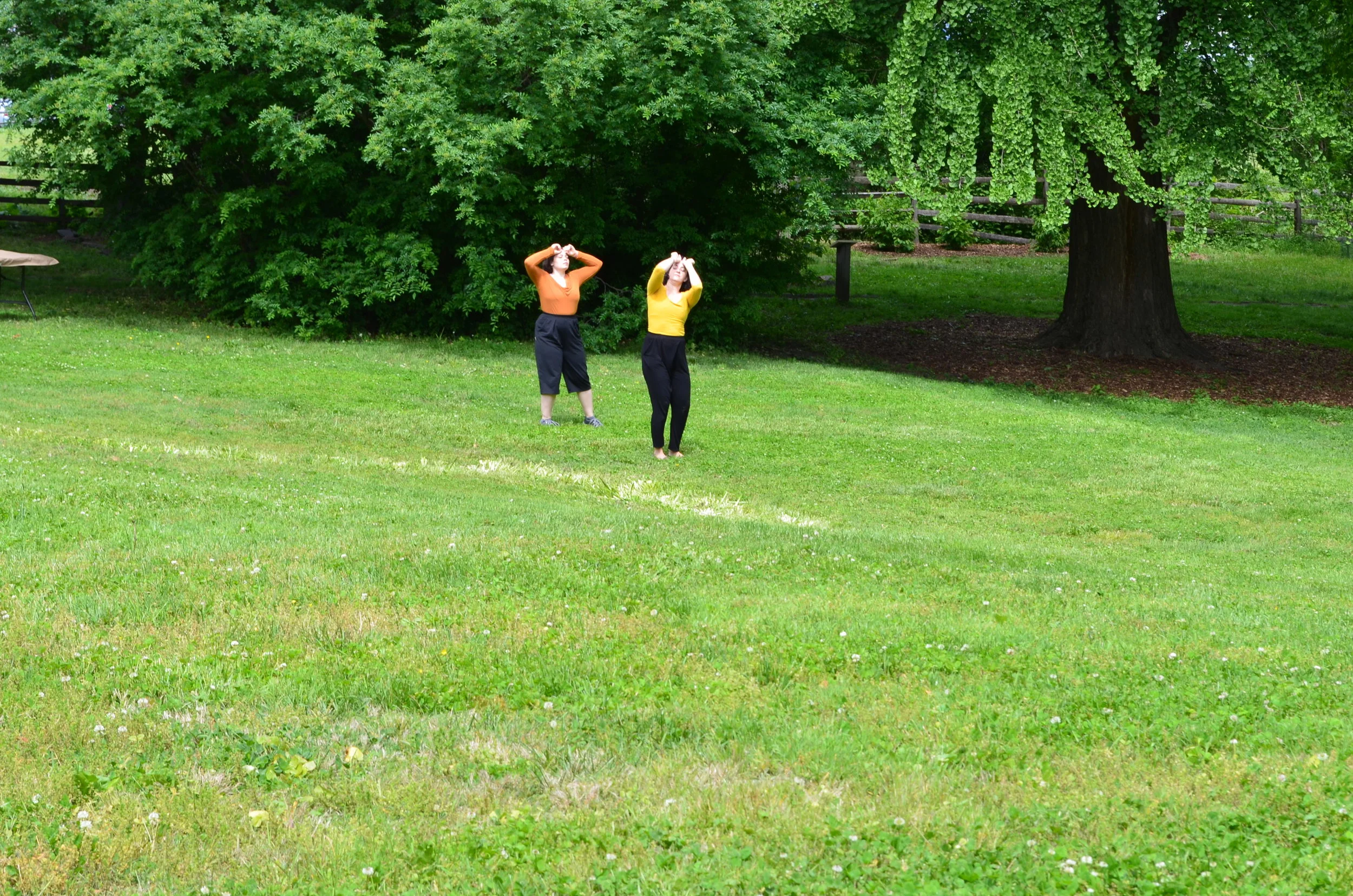
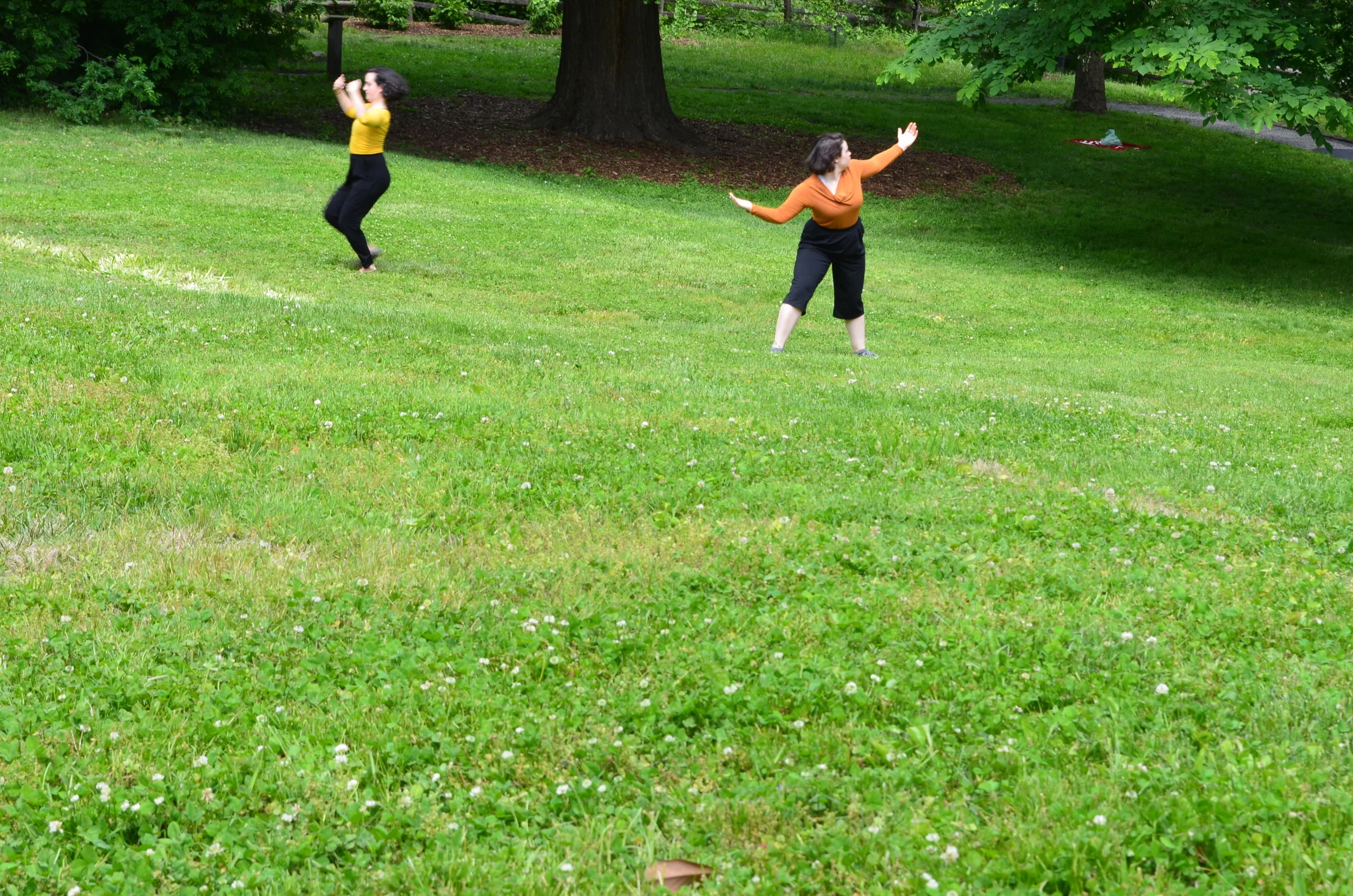
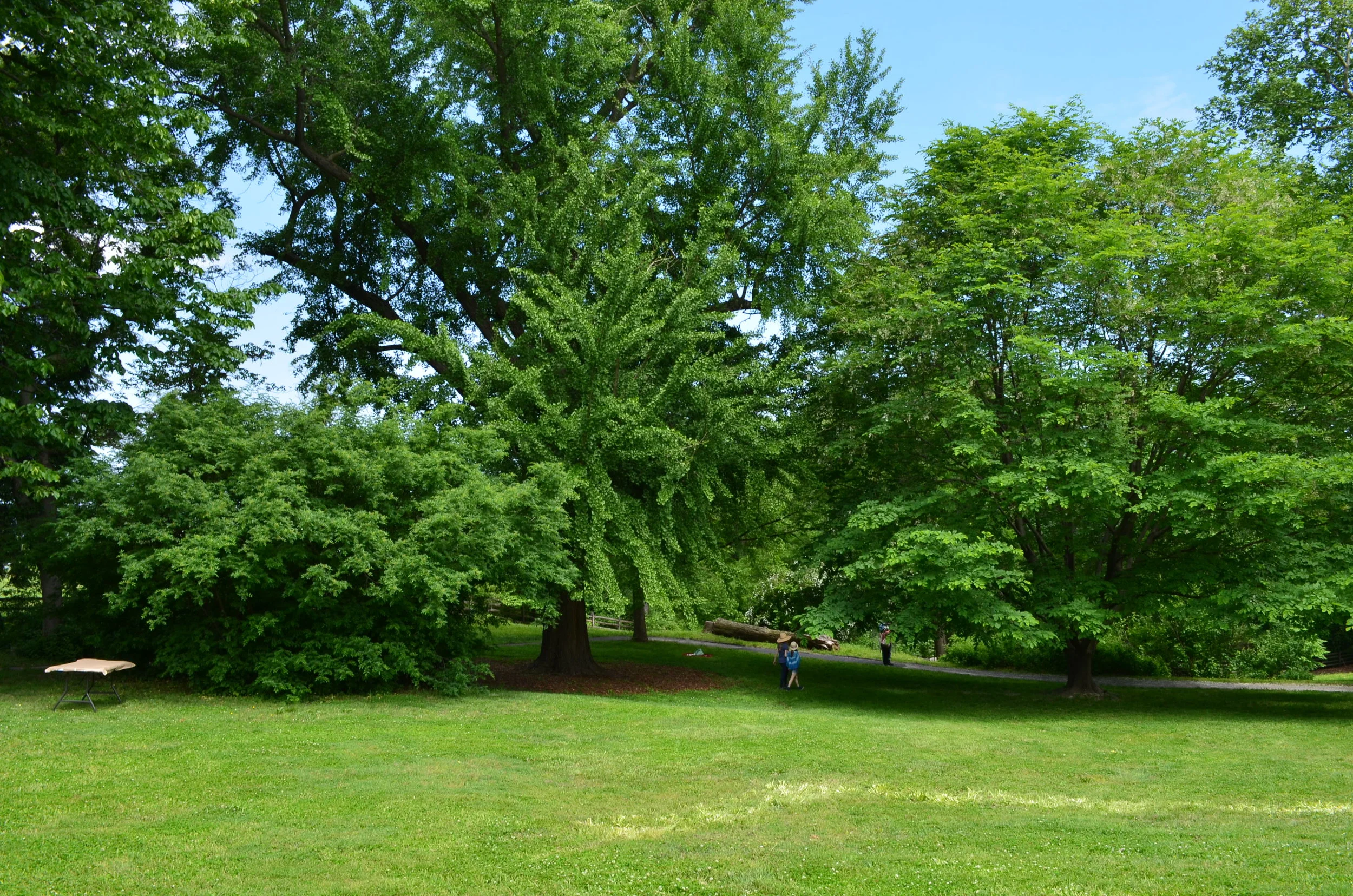

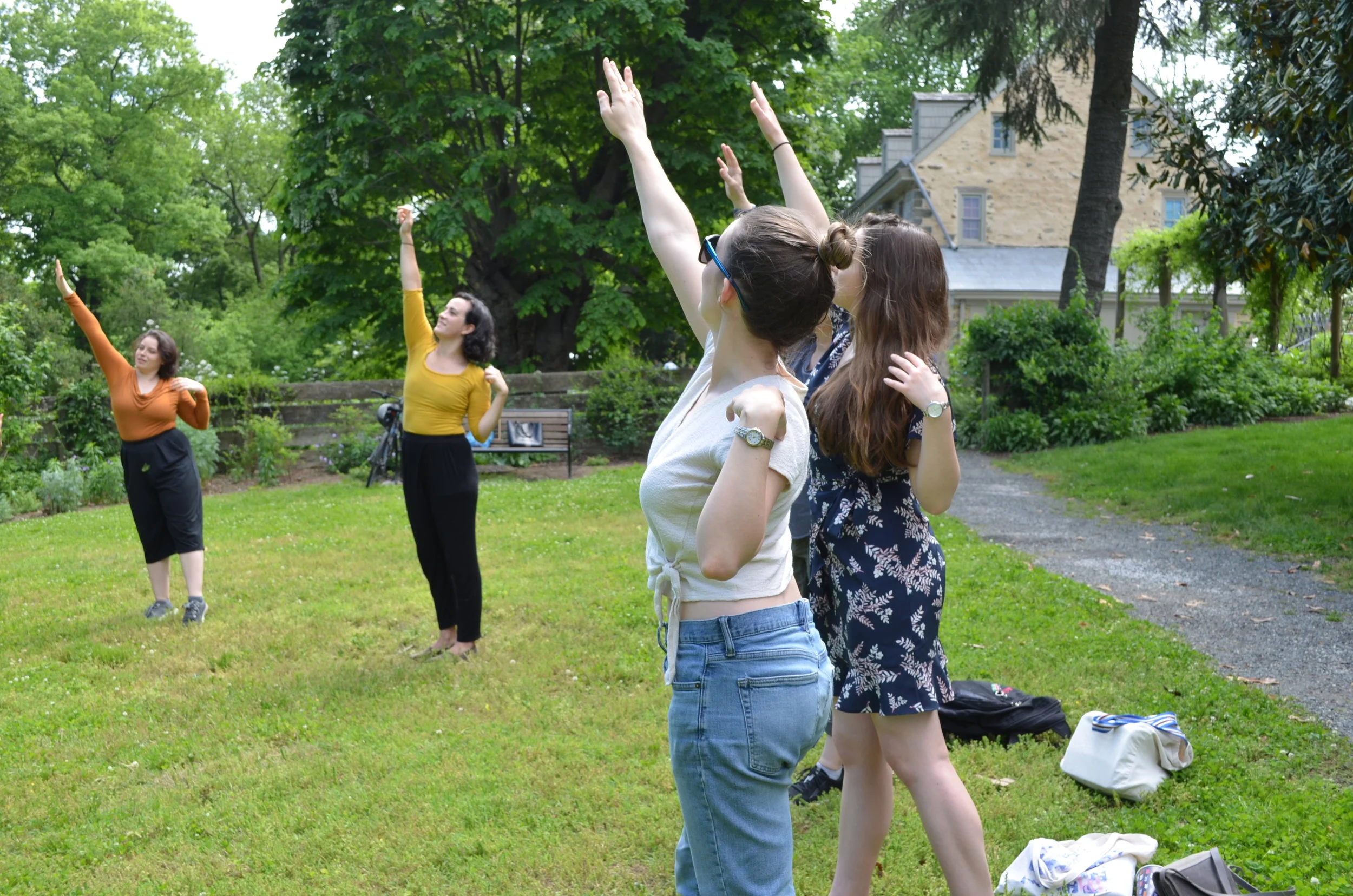
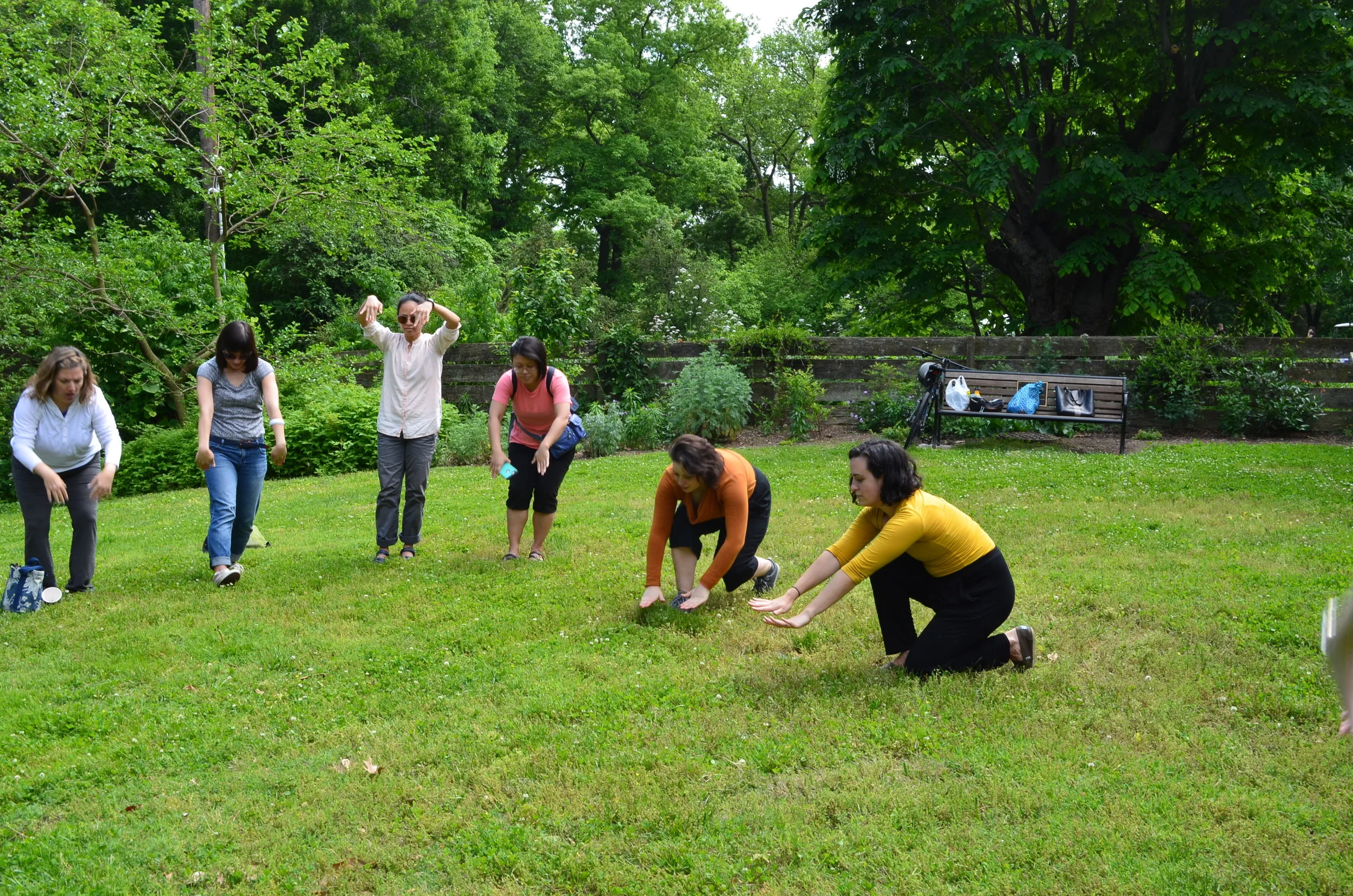
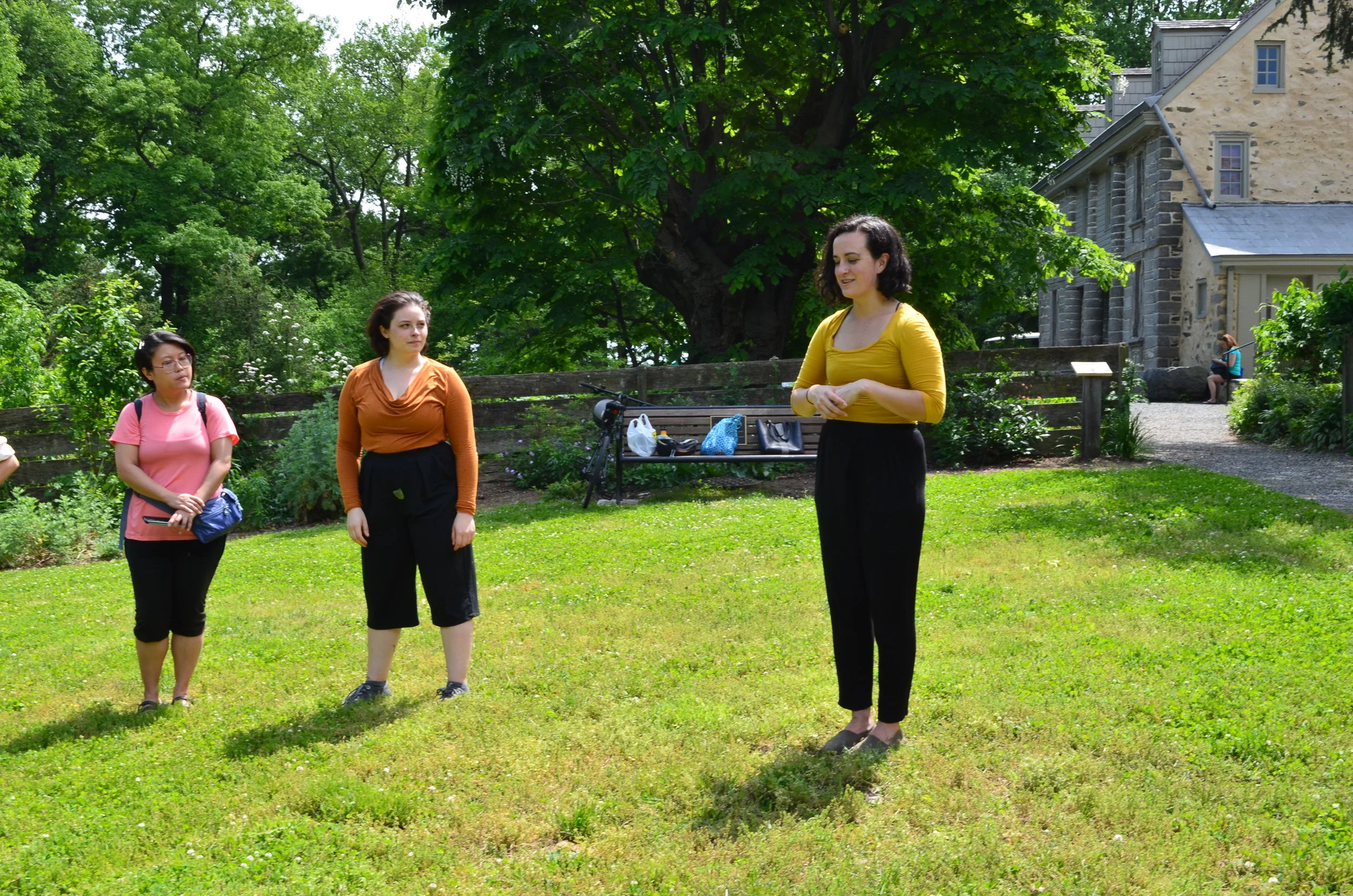
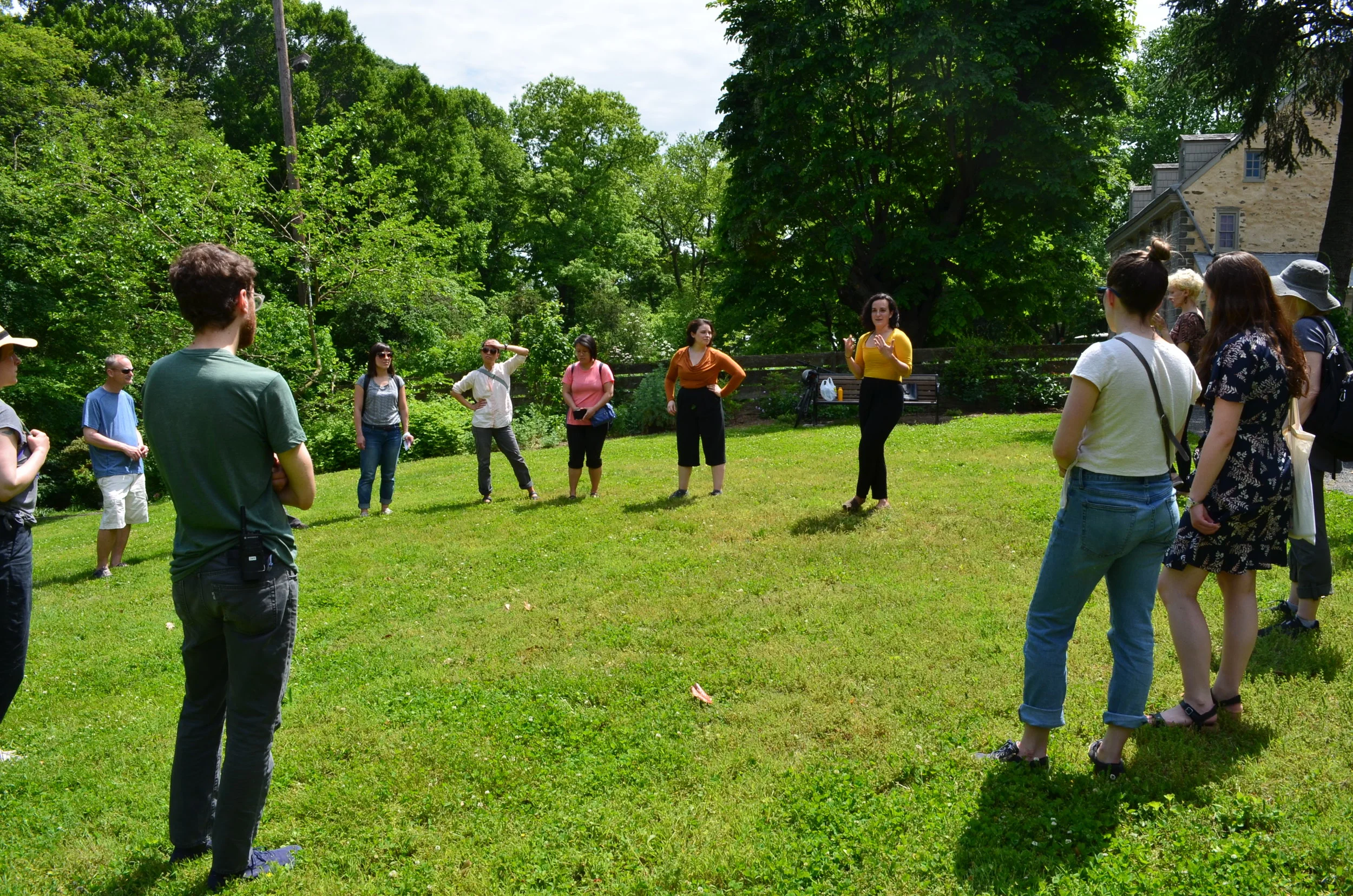
Videography by Irina Varina. To watch video, email tmasondance@gmail.com for password.
onion Dances v.3 (2017)
Onion Dances V.3 is a seven minute iteration of Talia’s evening-length work. Talia used feedback from her Fringe Festival performance to deepen the work, deepening her understanding of her own body in relation to her family’s history. "Onion Dances" V.3 was performed at Eden’s Expressway in New York City as a part of Movement Research’s Open Performance.
Video courtesy of Erica Rice. To watch video, email tmasondance@gmail.com for password.
onion Dances v.2 (2017)
Onion Dances V.2 is an evening-length autobiographical solo created by Talia Mason. In this 70-minute iteration of the piece, Talia dug deeper into kinesthetic representations of memory and loss. With Erica Rice’s scenic design and dramaturgical support and Sam Day Harmet’s sound design, Onion Dances V.2 is a fleshier, fuller world. Much like Onion Dances V.1, this iteration is interested in remembering and forgetting and what it means to be dance Jewish and to be forever linked a traumatic Jewish past. Onion Dances V.2 was performed in the Philadelphia Fringe Festival 2017 at the Community Education Center.
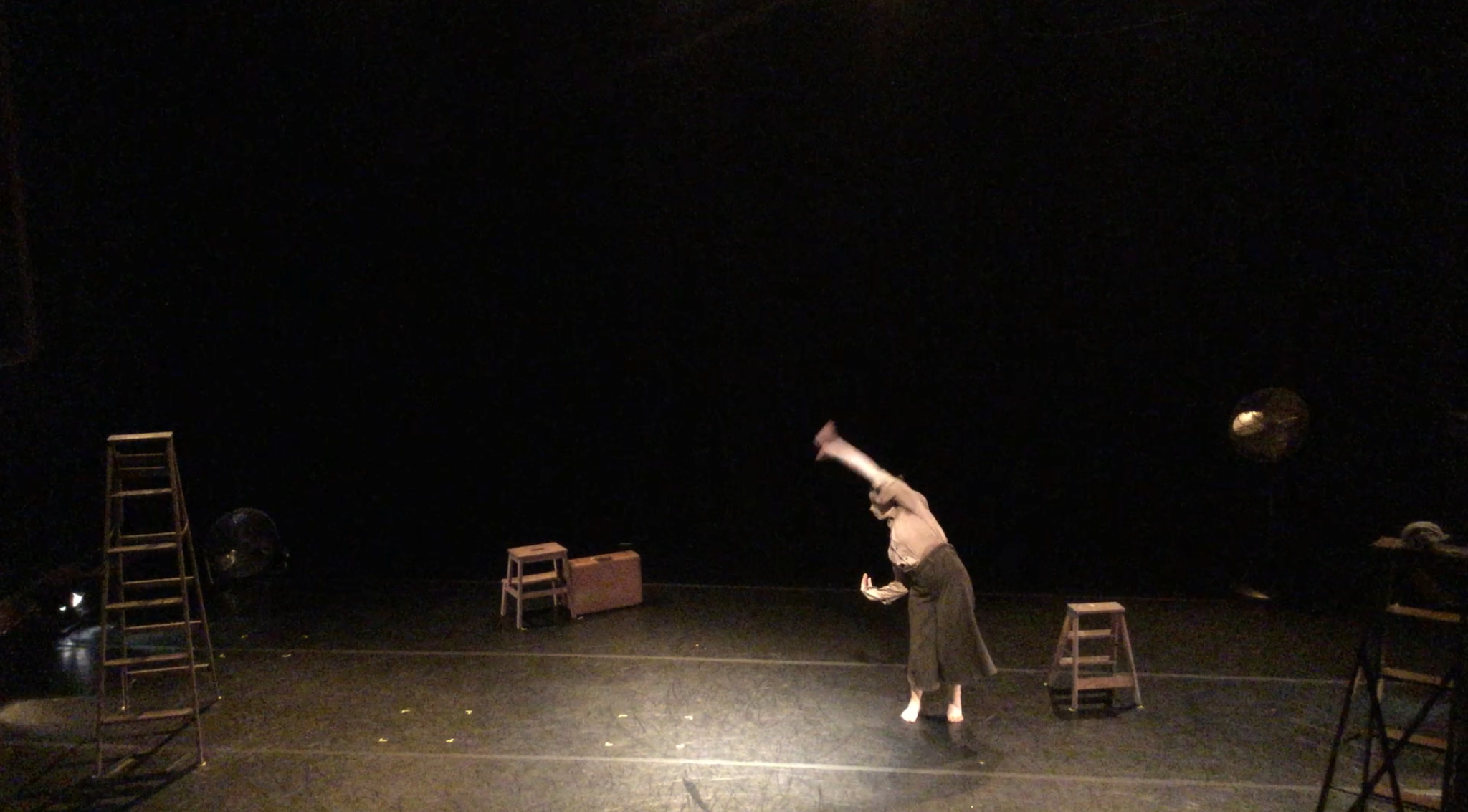
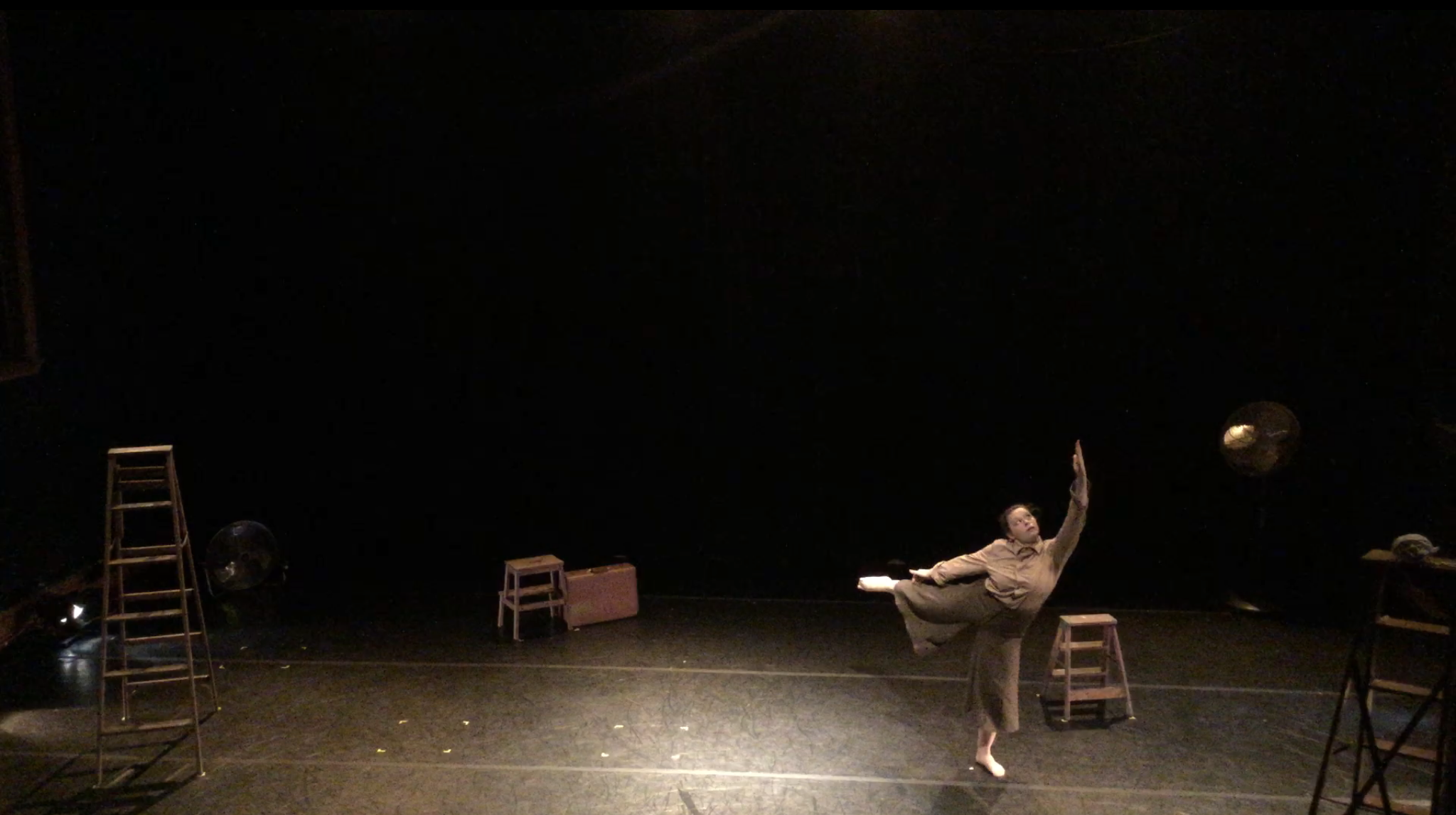
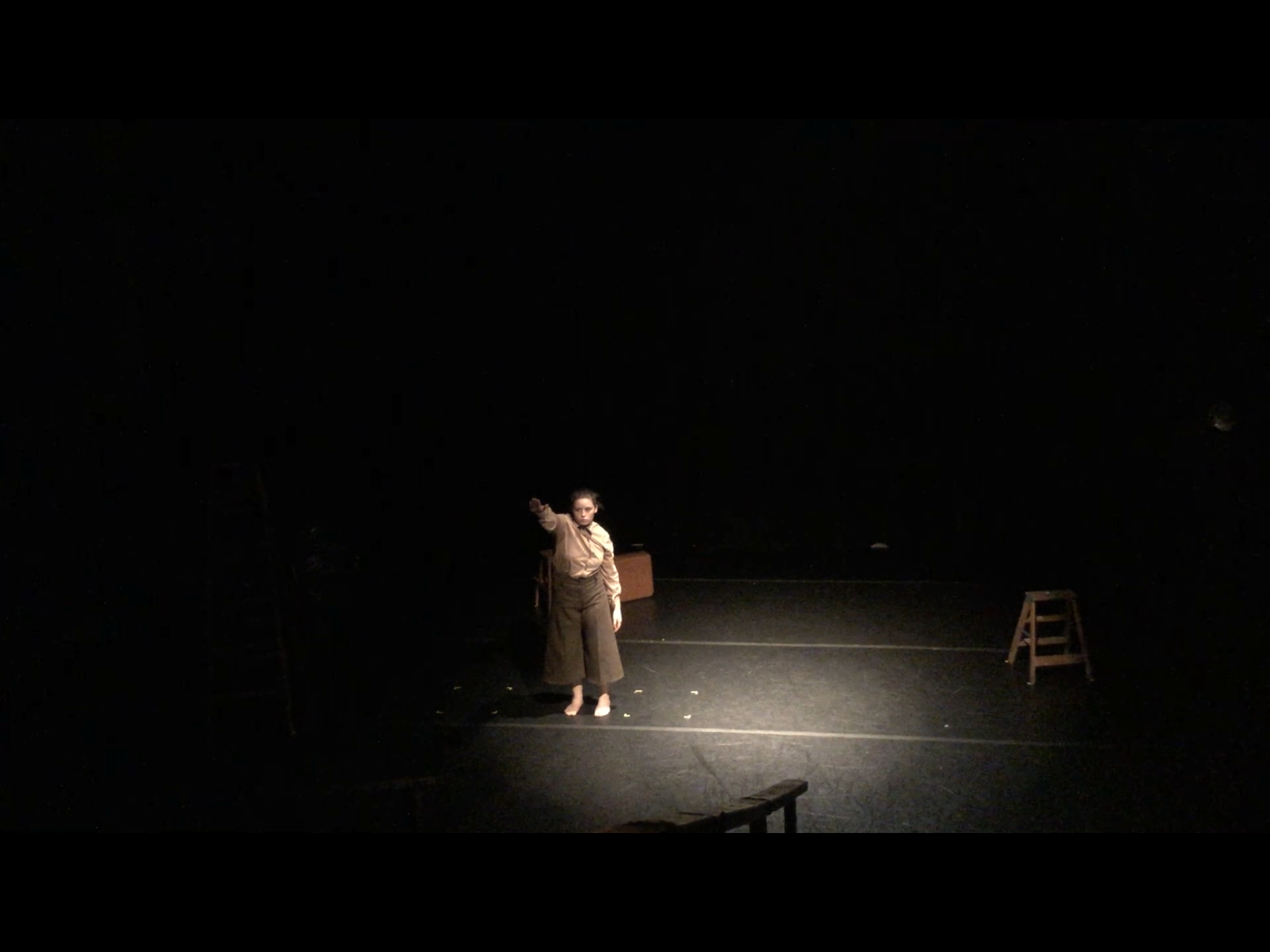
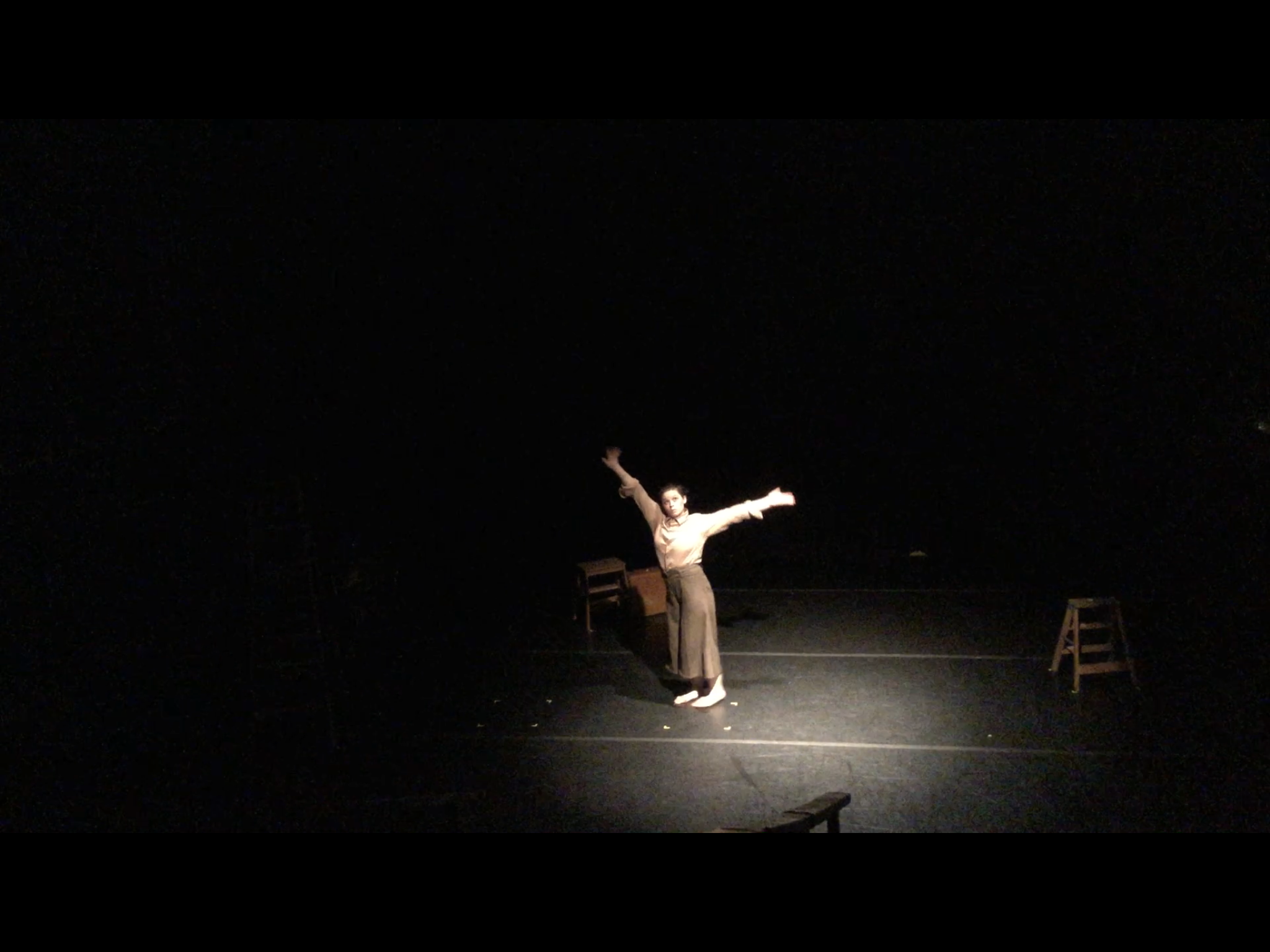
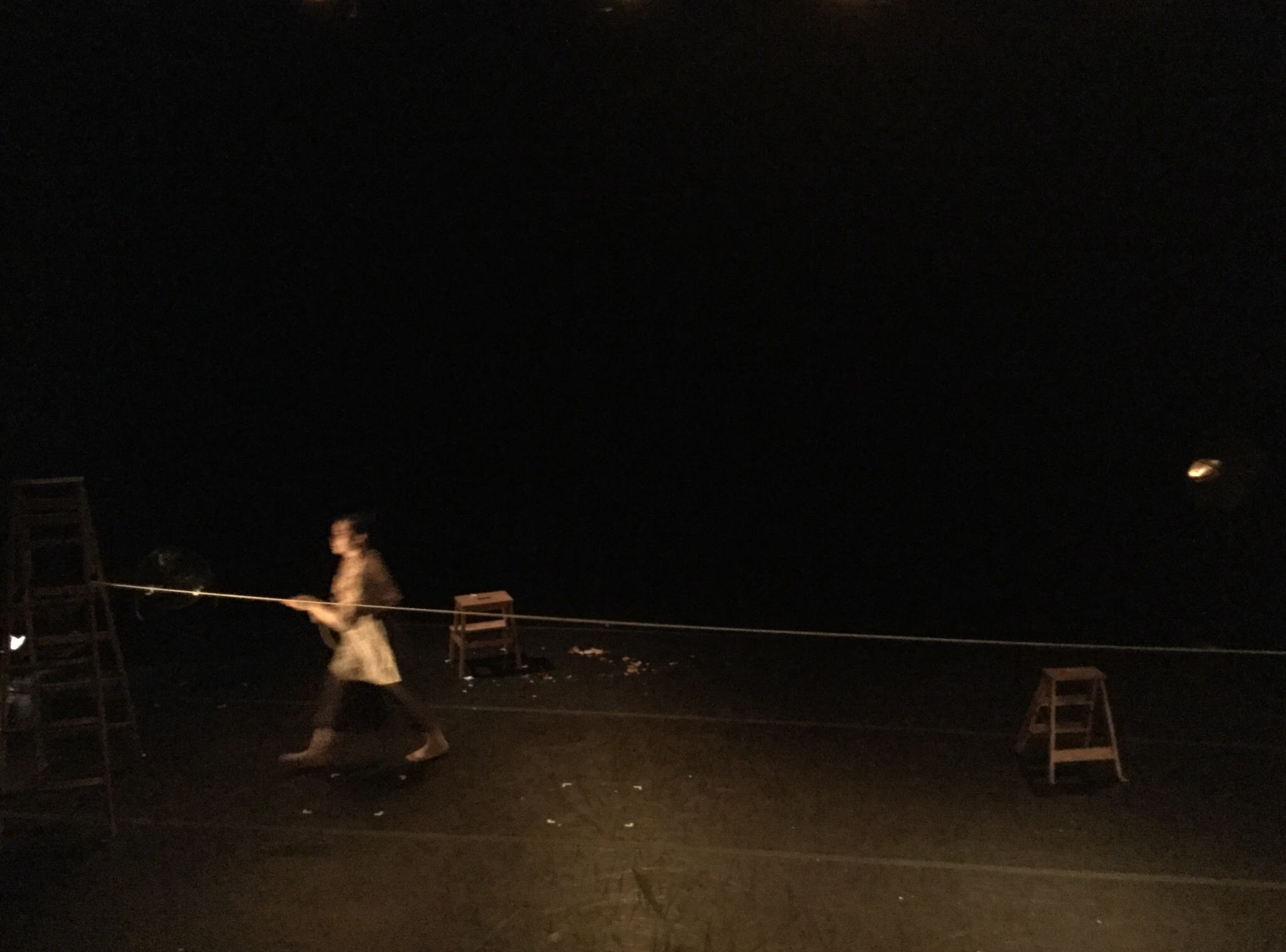
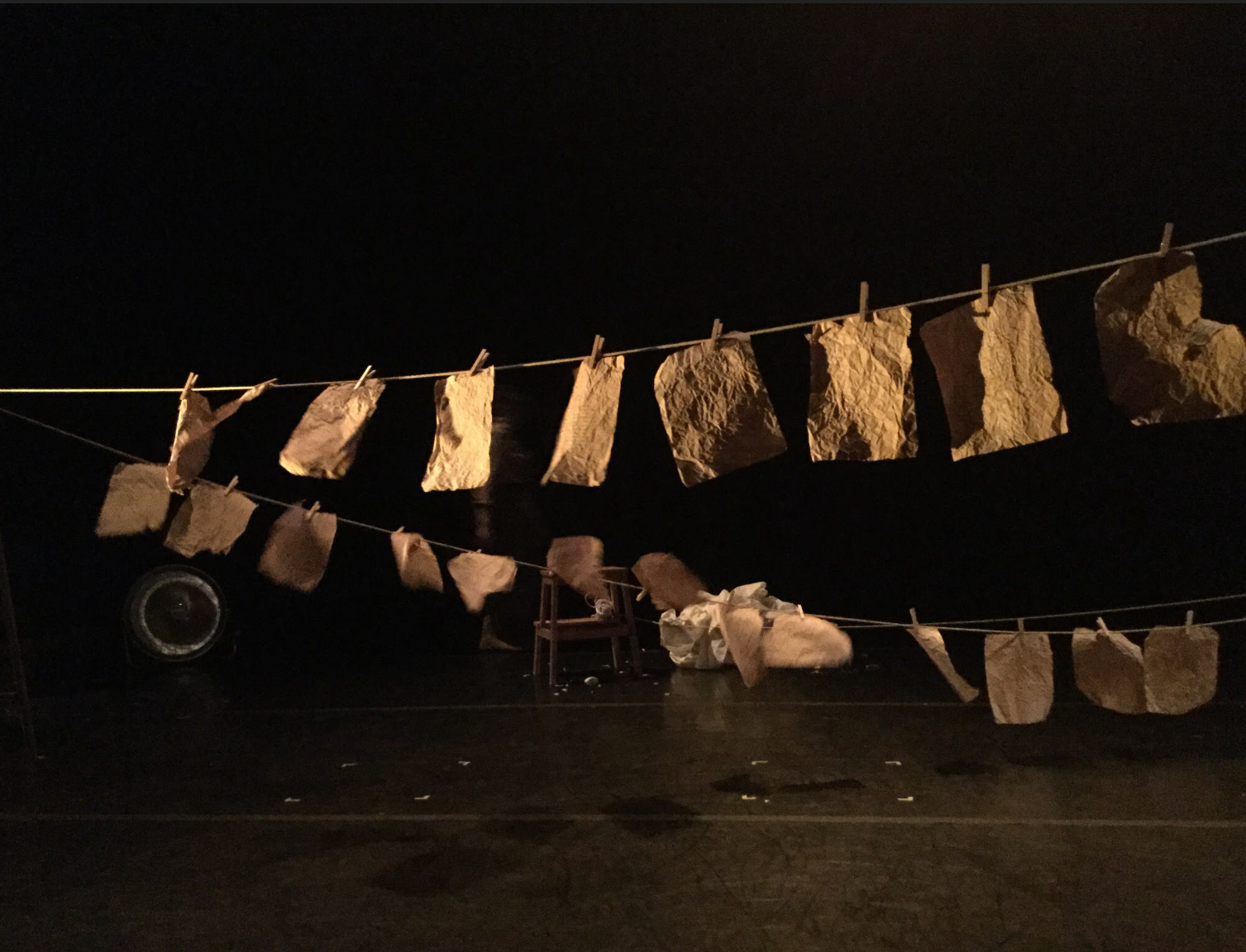
Video courtesy of Irina Varina. To watch video, email tmasondance@gmail.com for password.
onion Dances (2016)
Uncooked, eager, inquisitive, Onion Dances is an evening-length autobiographical solo created by Talia Mason. With Mira Treatman's help as dramaturg, Talia explored the process of chopping onions to unsurface memories by physically digging into the labor, effort, work and onions’ universality by chopping bags of onions. Talia is interested in the idea of an inherited past. Onion Dances is about unveiling layers, digging deeper, and finding visceral, full-bodied movement and full-bodied feelings. In the solo, Talia explores her Jewish American roots as a 7th generation American Jew. As a Jew distinctly removed from the Holocaust but feeling a certain inherited trauma as a Jewish American, Talia is drawn to the idea of never understanding but wanting to understand. Rebecca Rossen's book Dancing Jewish served as one of the research components to the creative process. In Onion Dances, Talia played, danced, sang, talked, and cooked as part of the performance. This piece was performed as a part of SoLowFest 2016.
“Hypnotic and bold, Mason’s vivid stories and gripping performance lingered, reminding me that even in an attempt to disregard some of life’s harsh offerings, memories can be gifts worth sharing.”
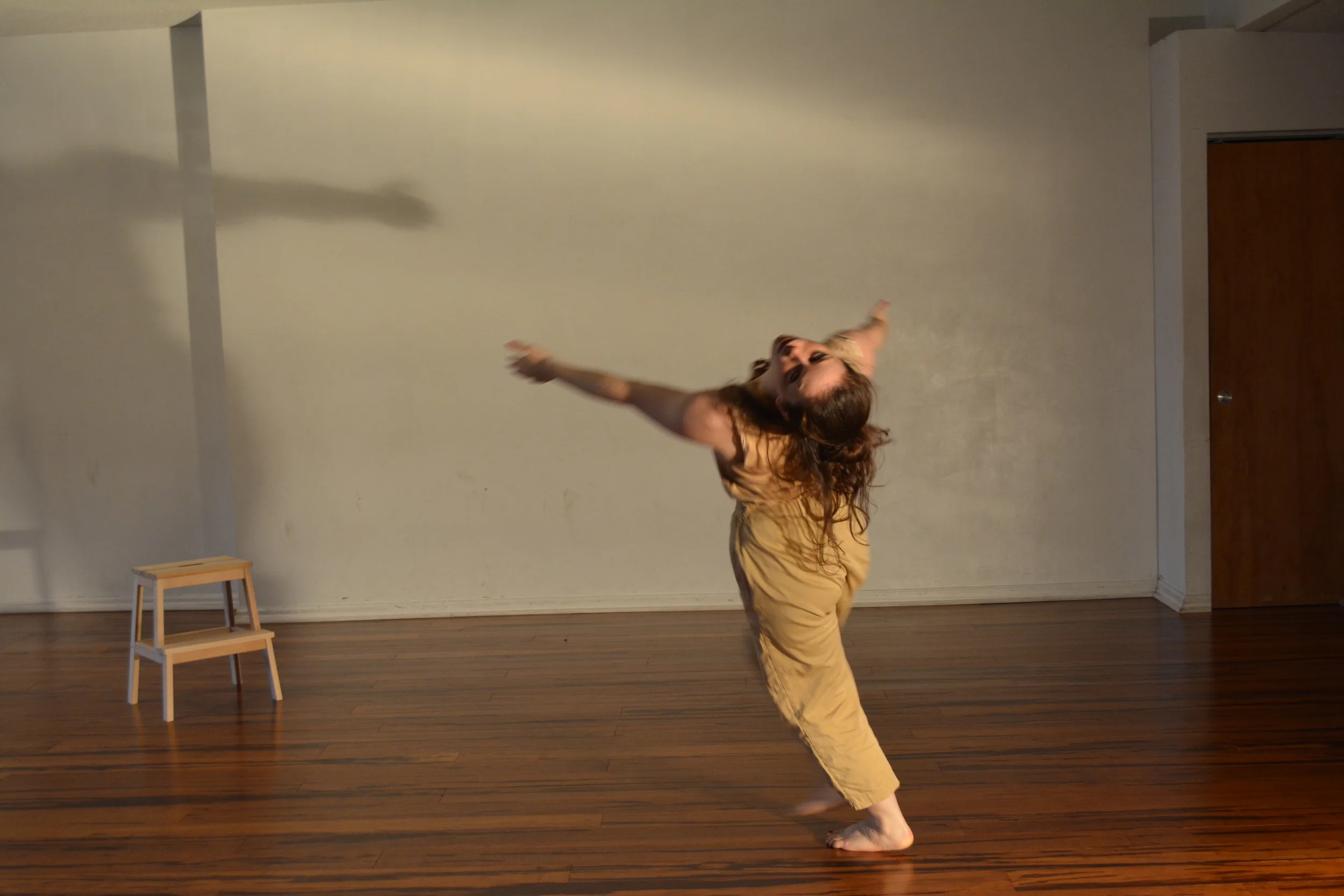
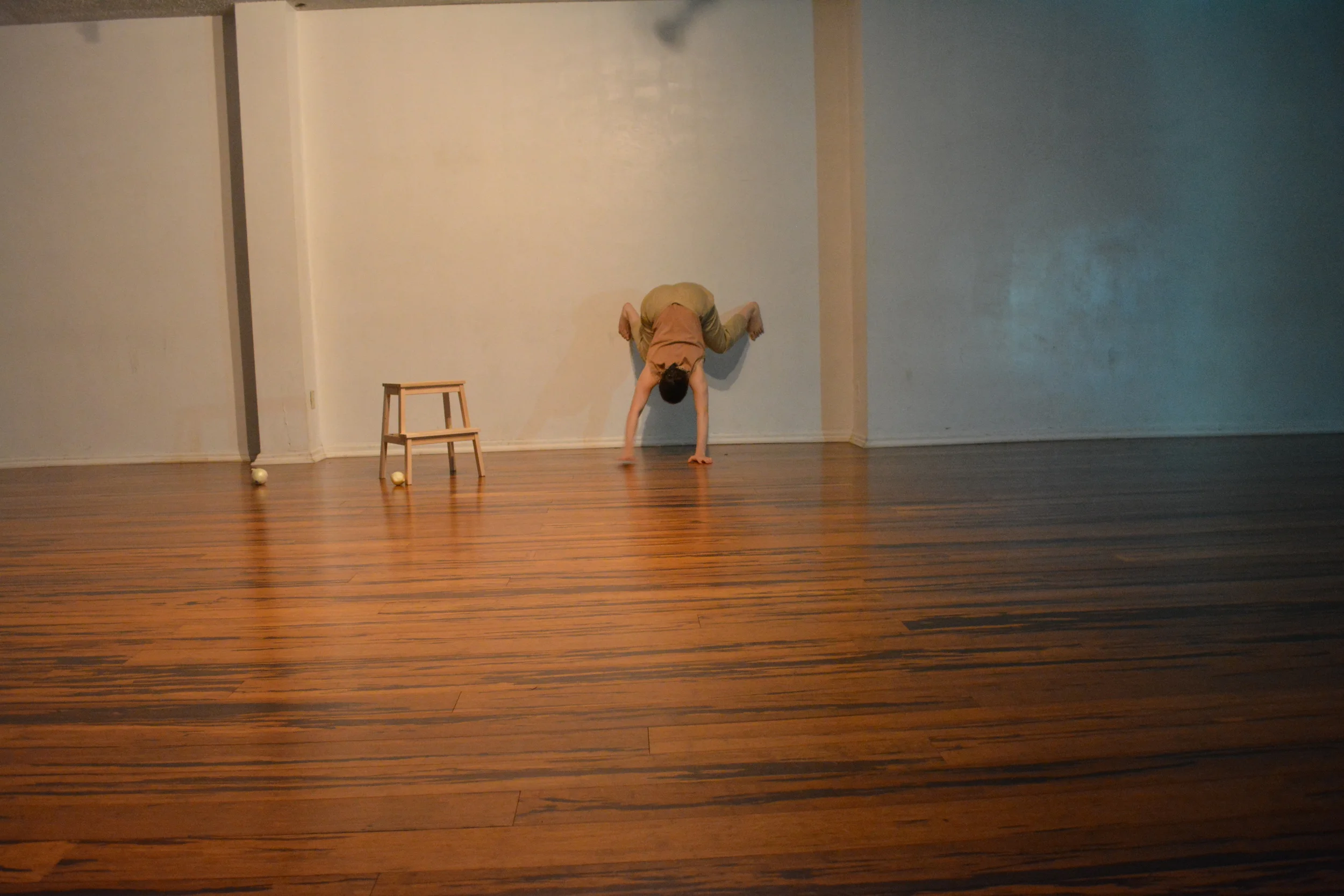
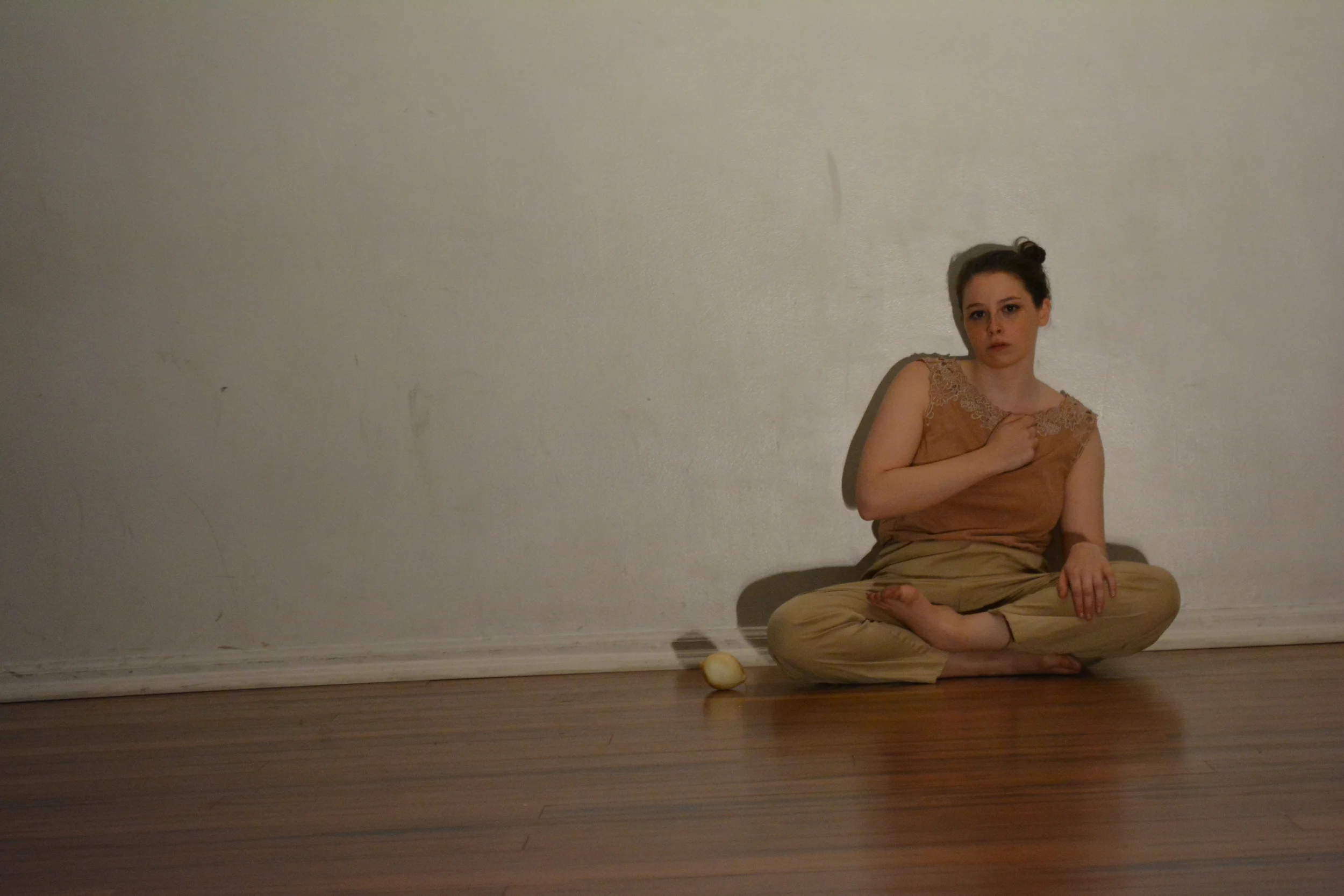
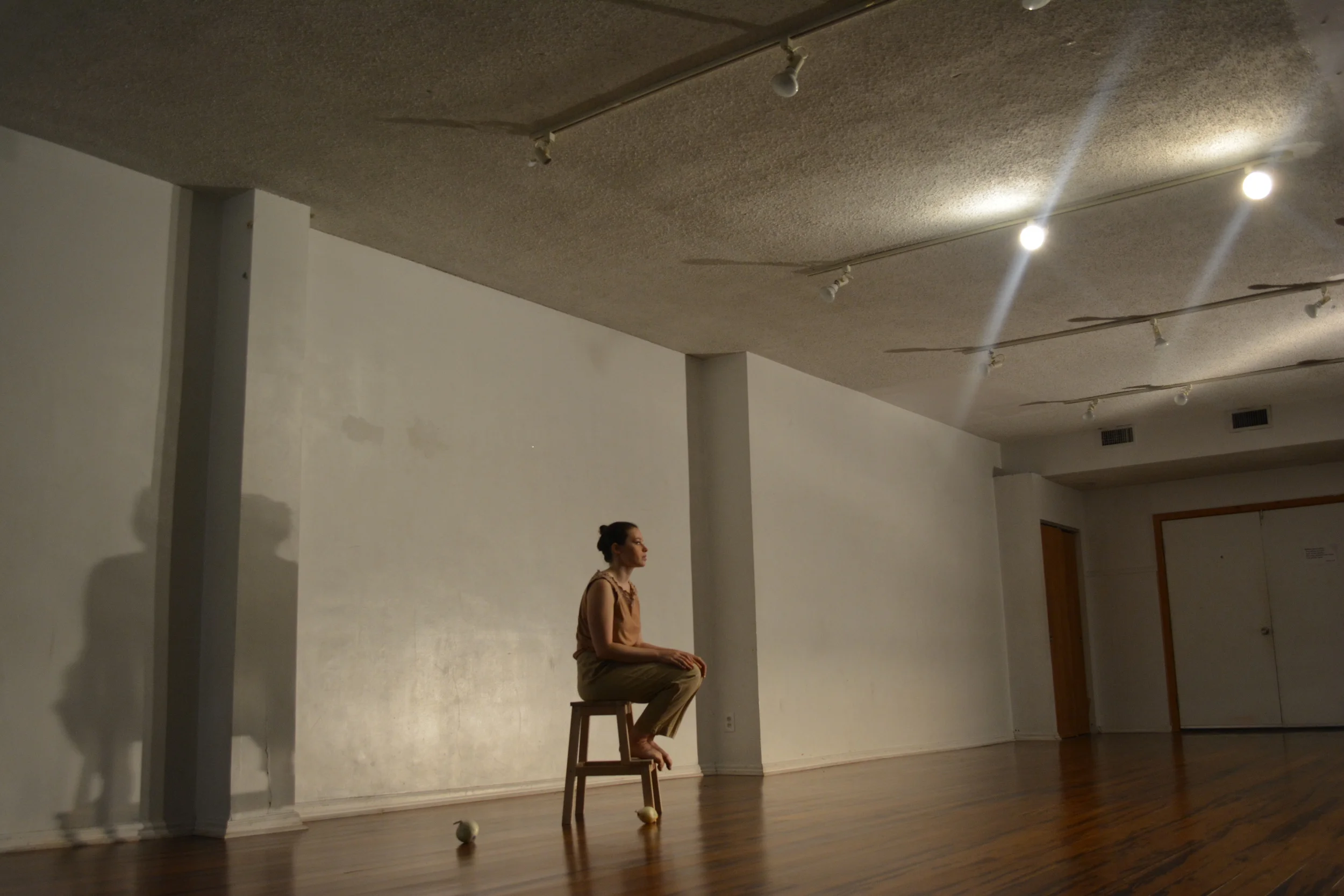
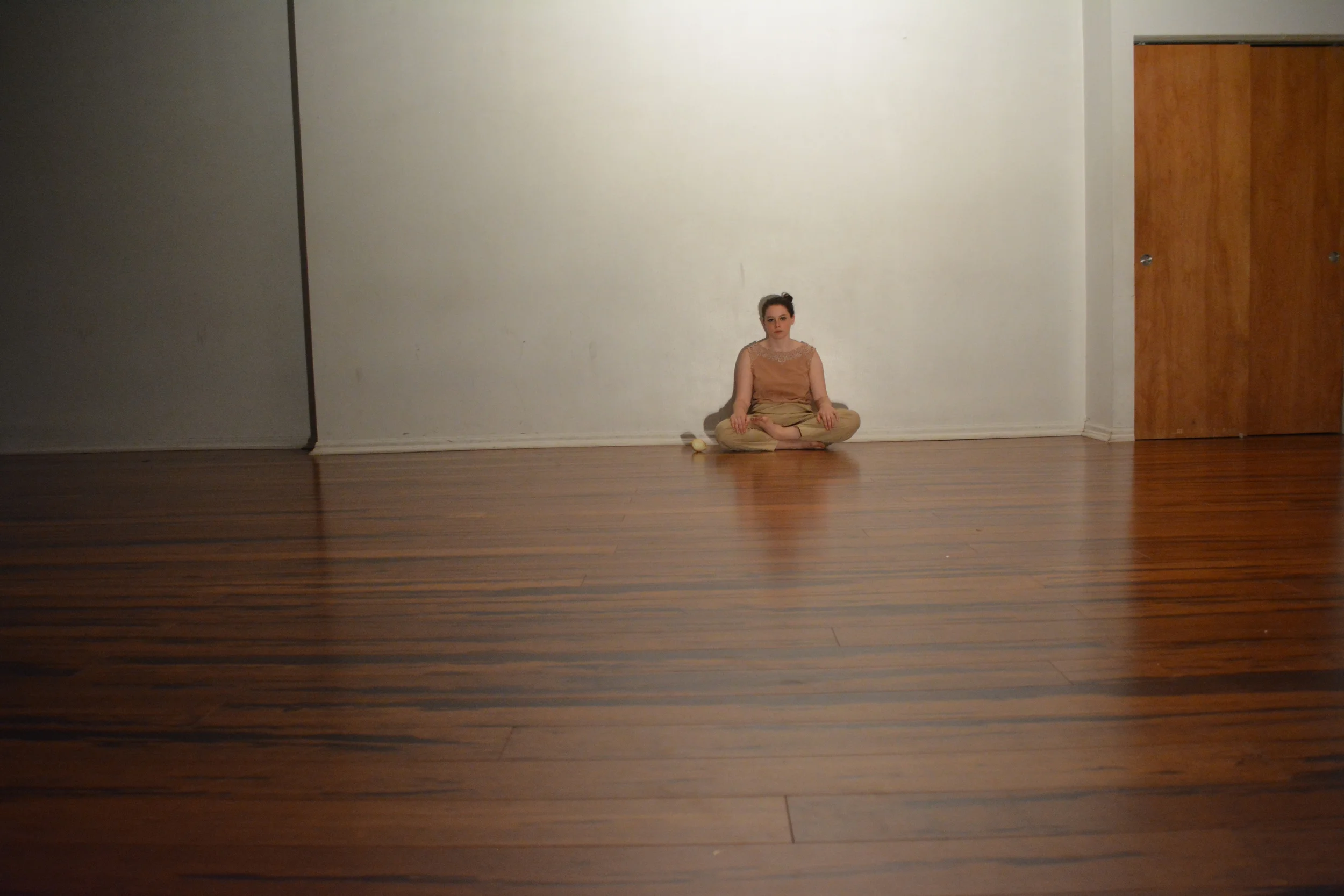
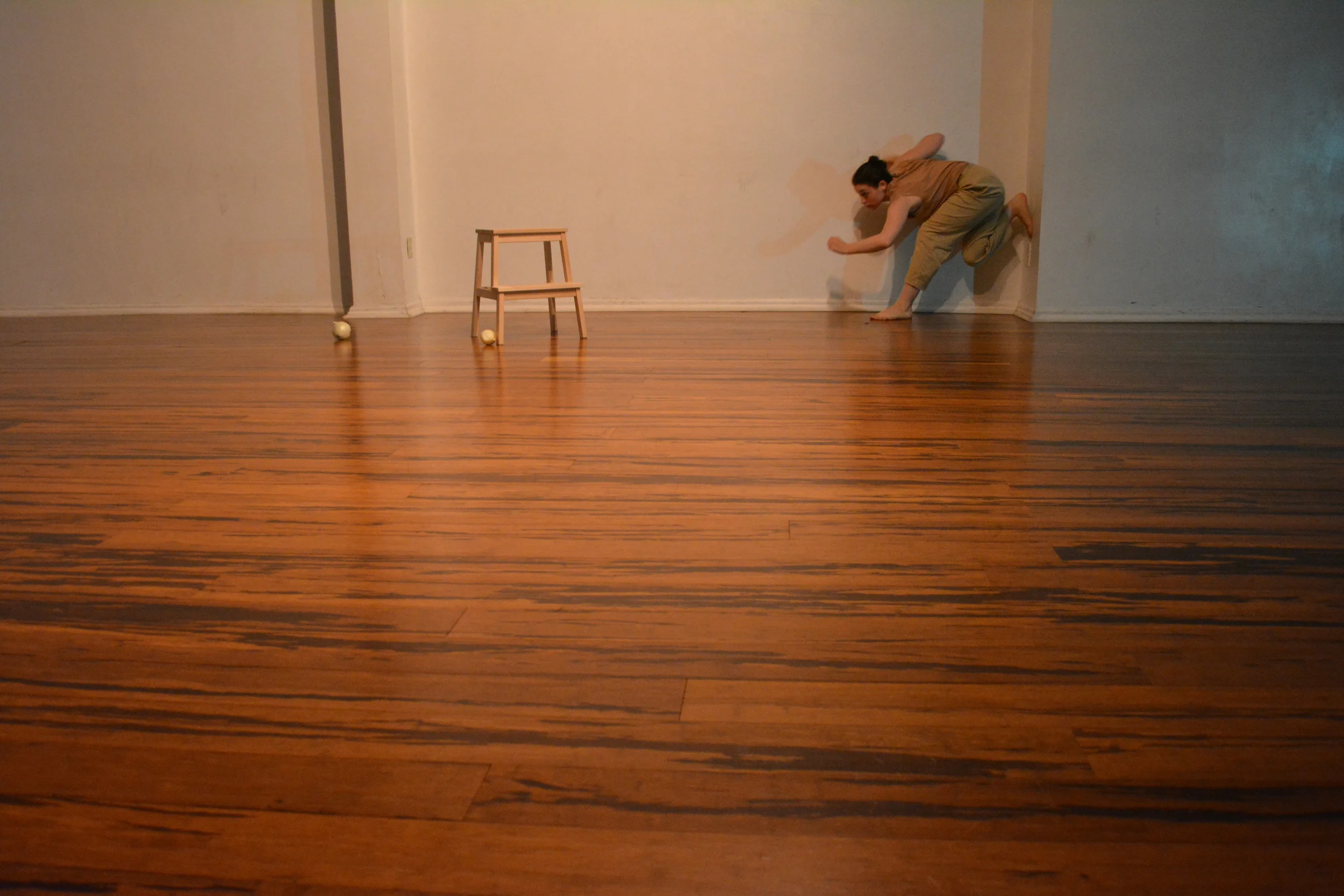
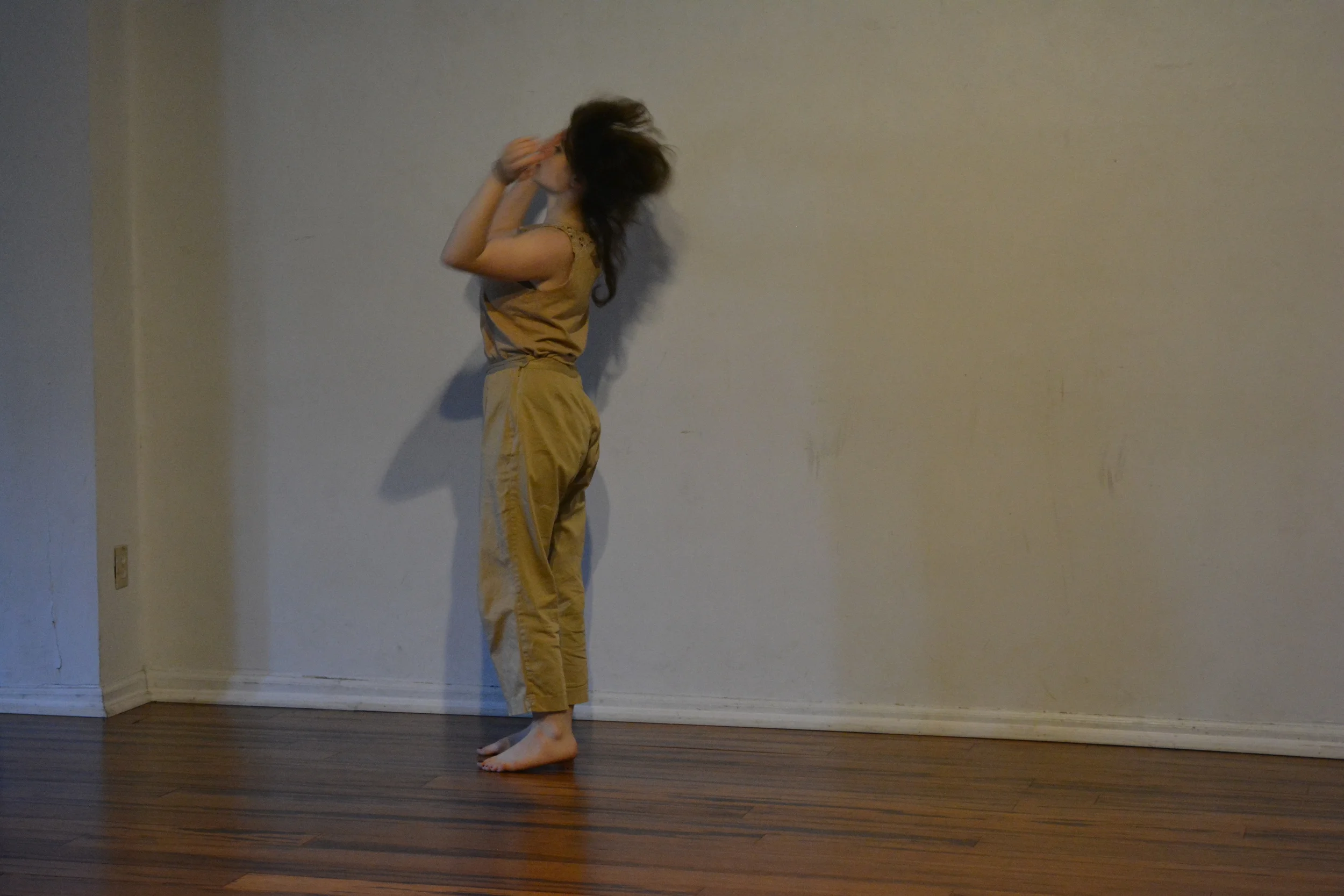
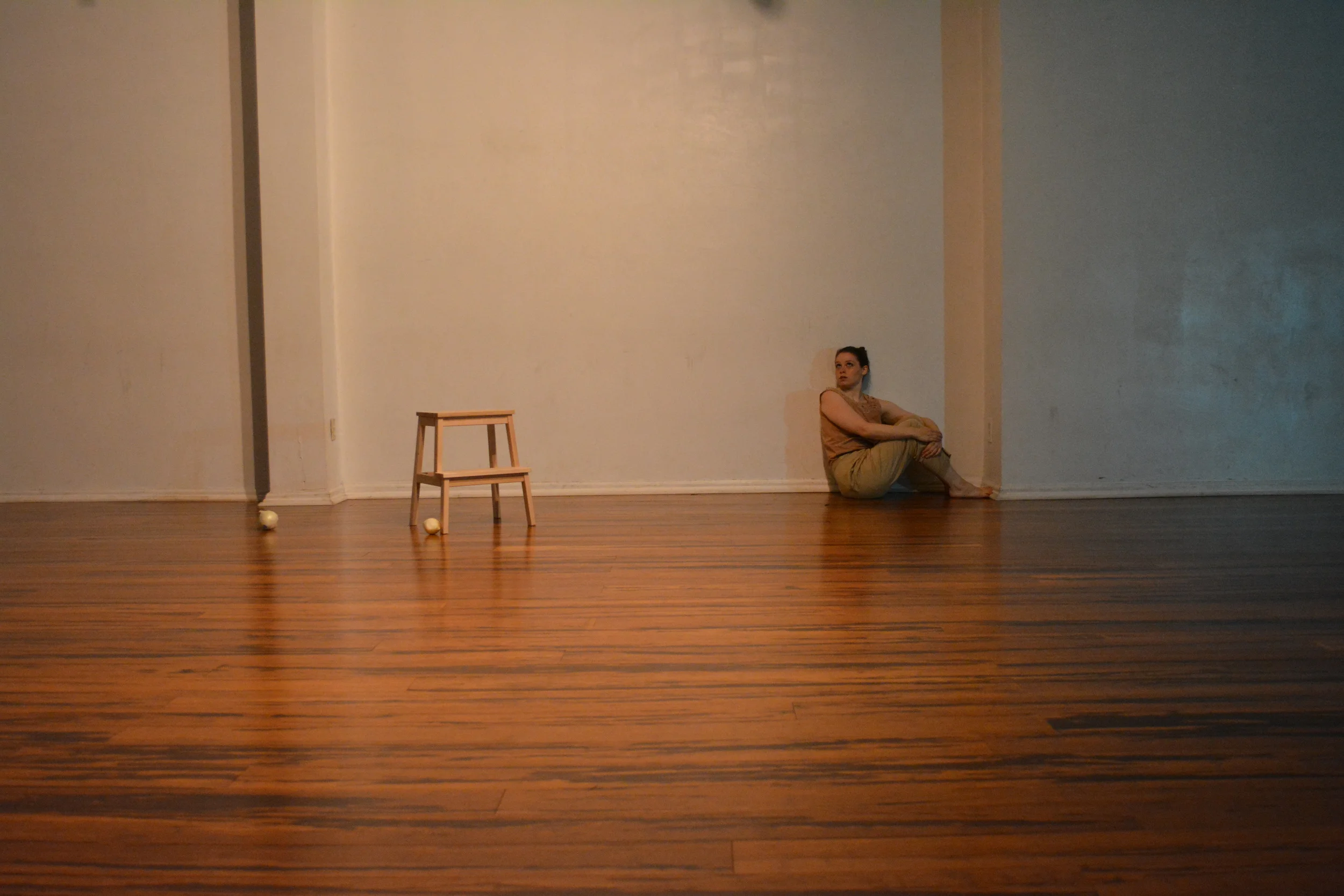
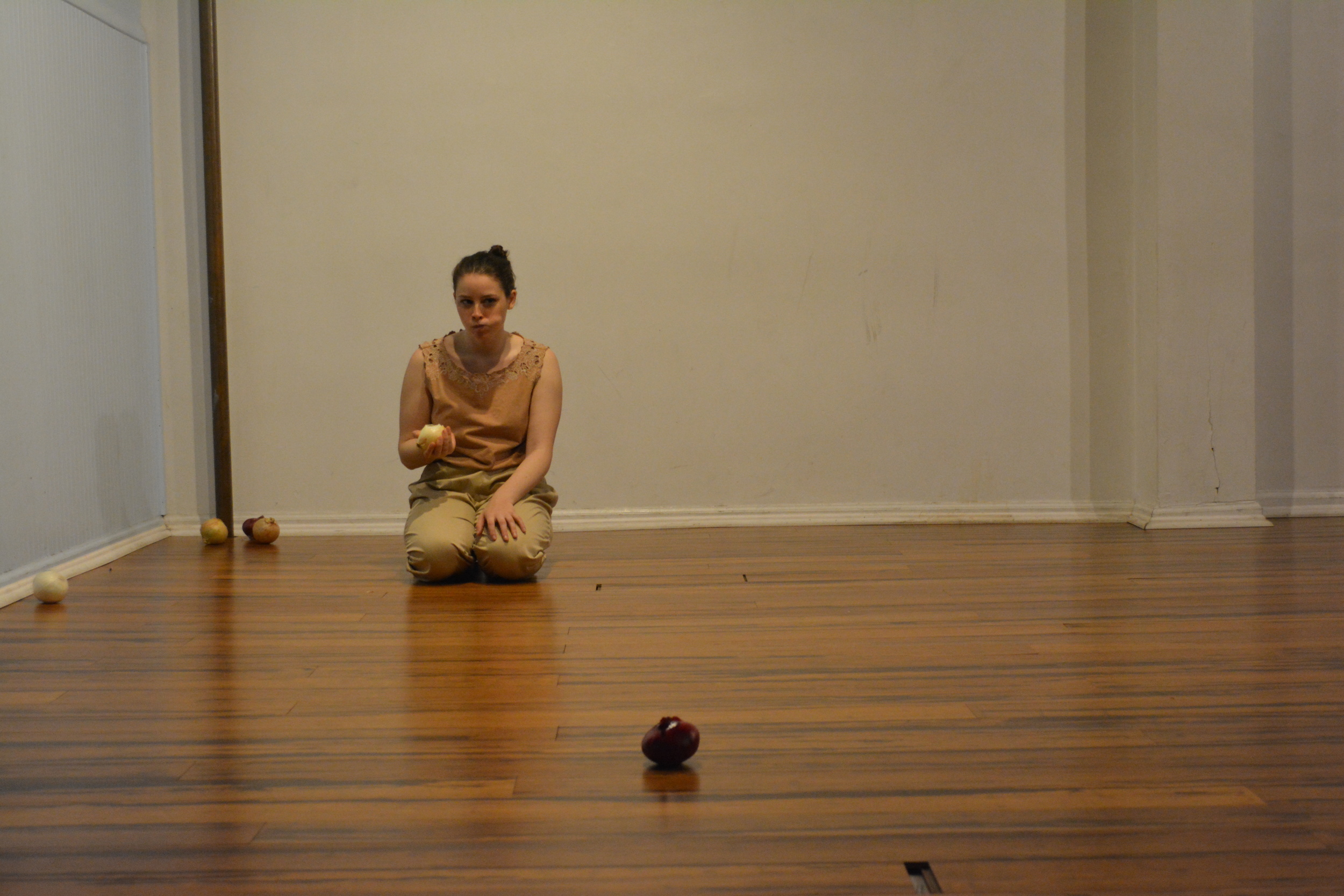
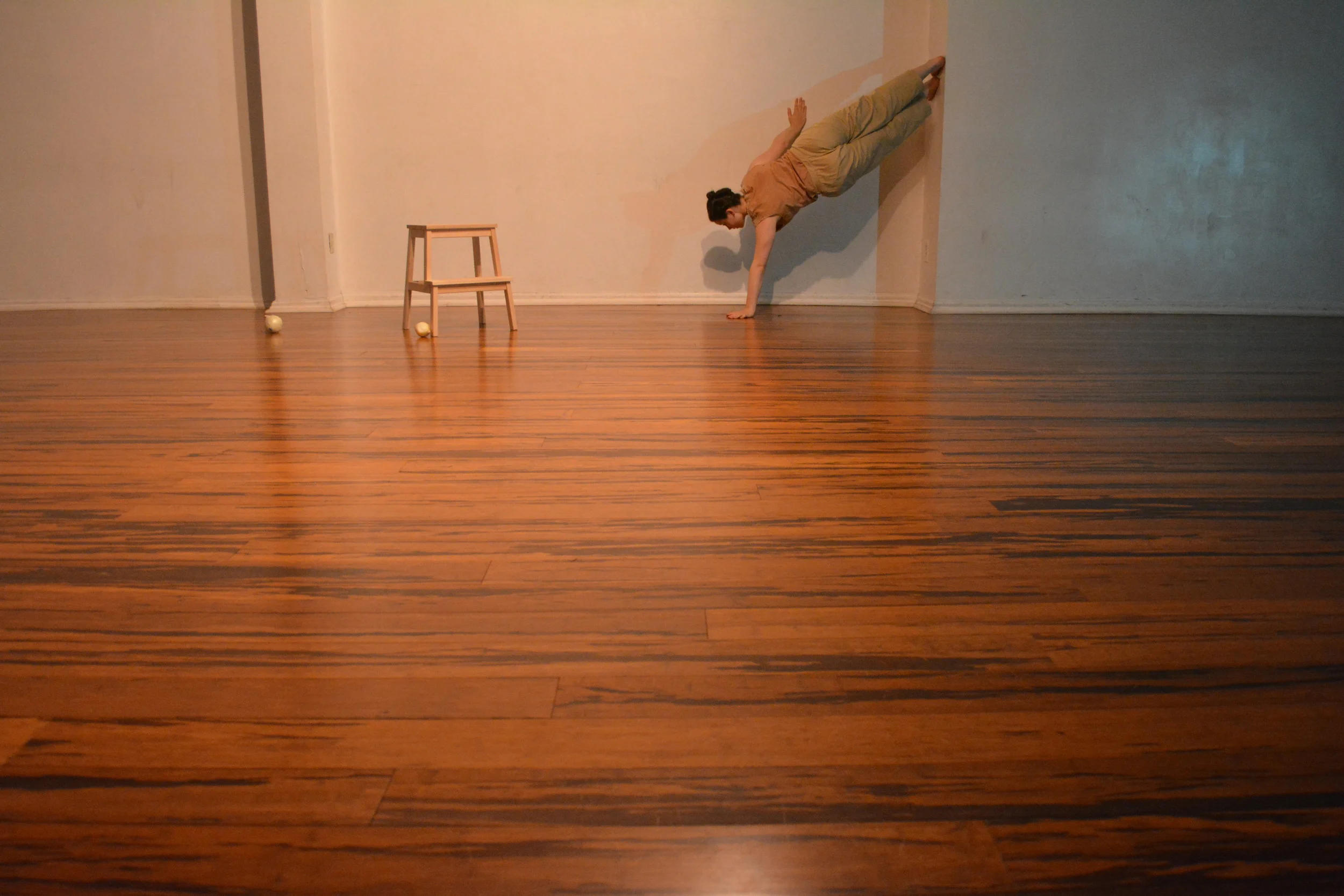
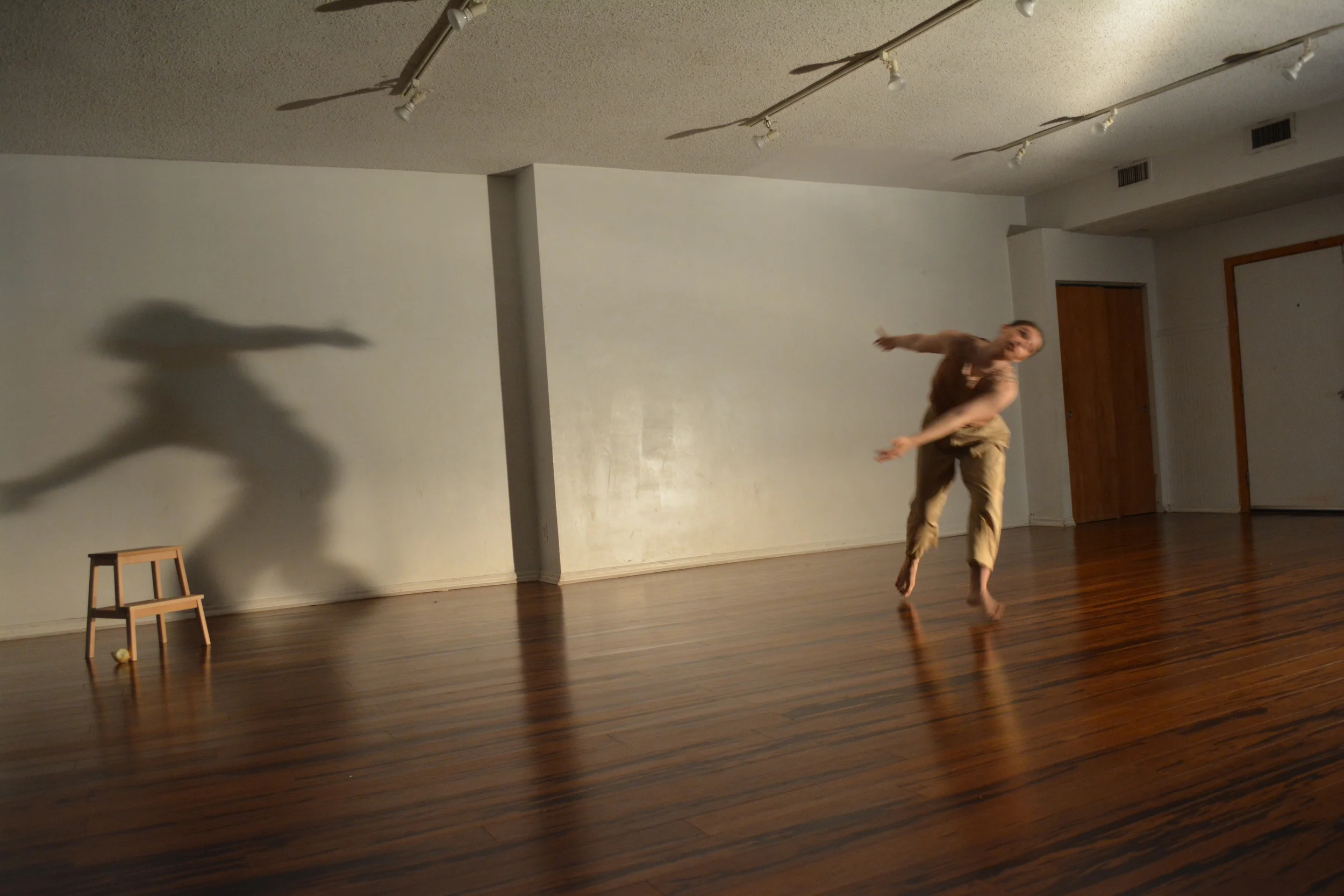
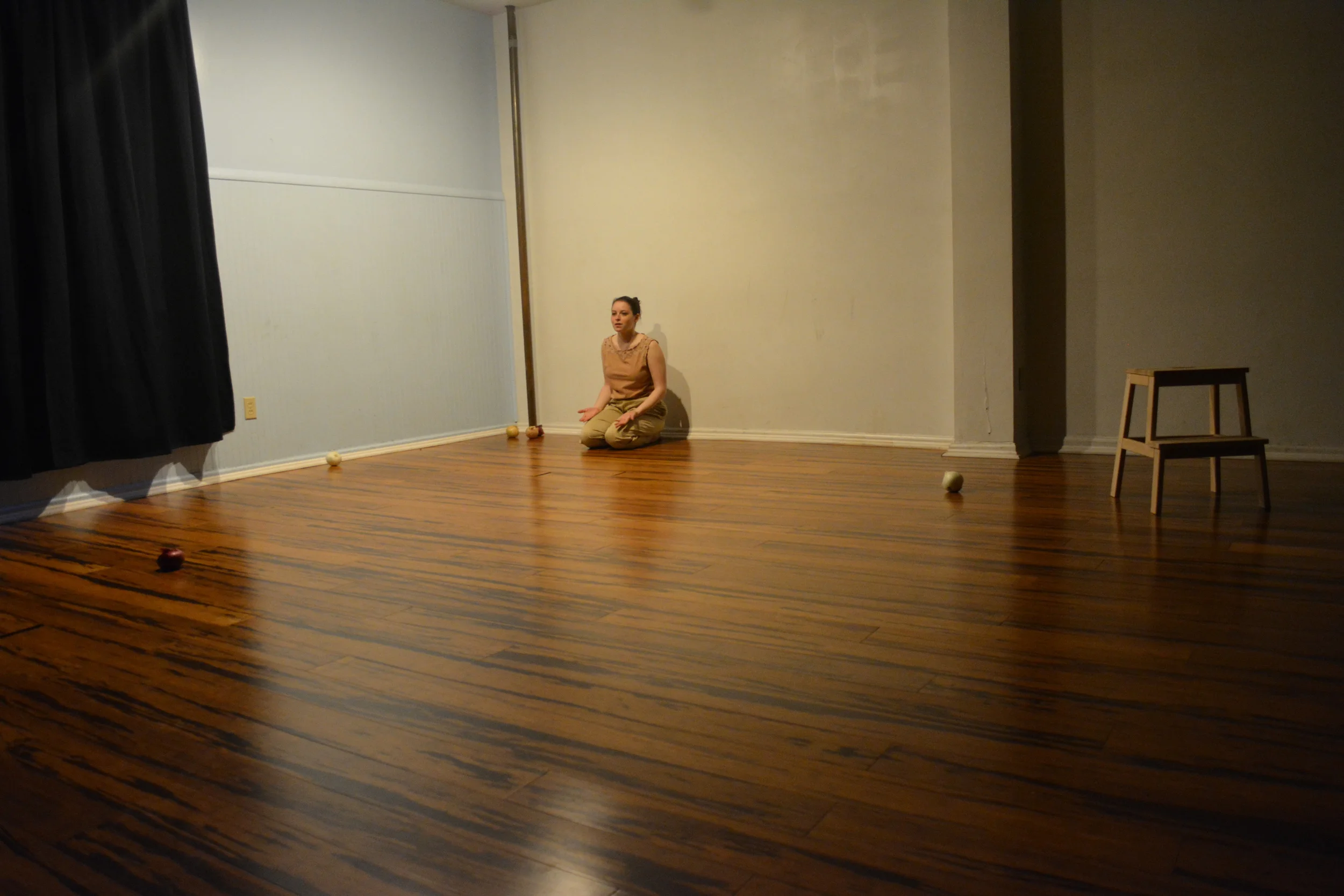
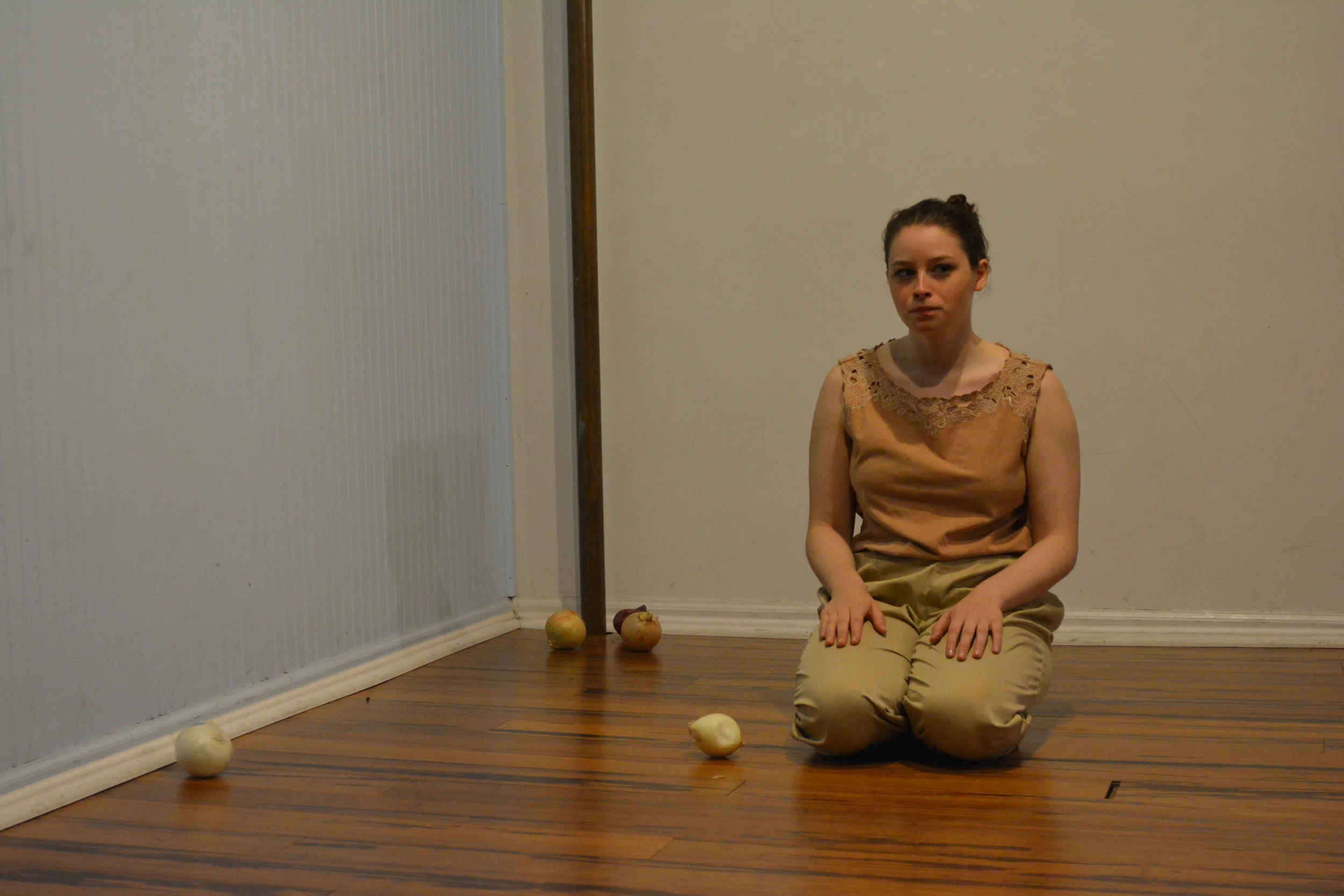
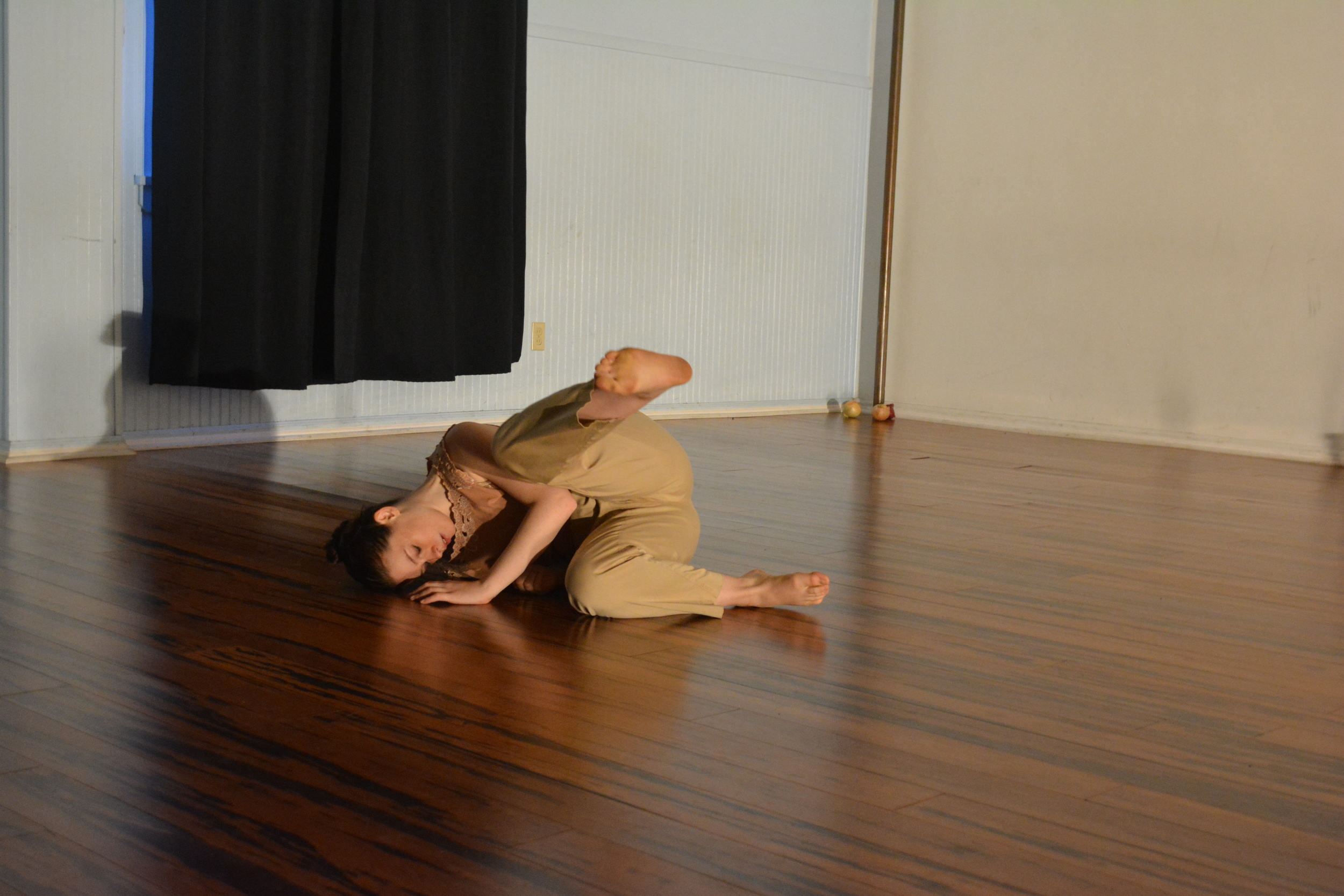
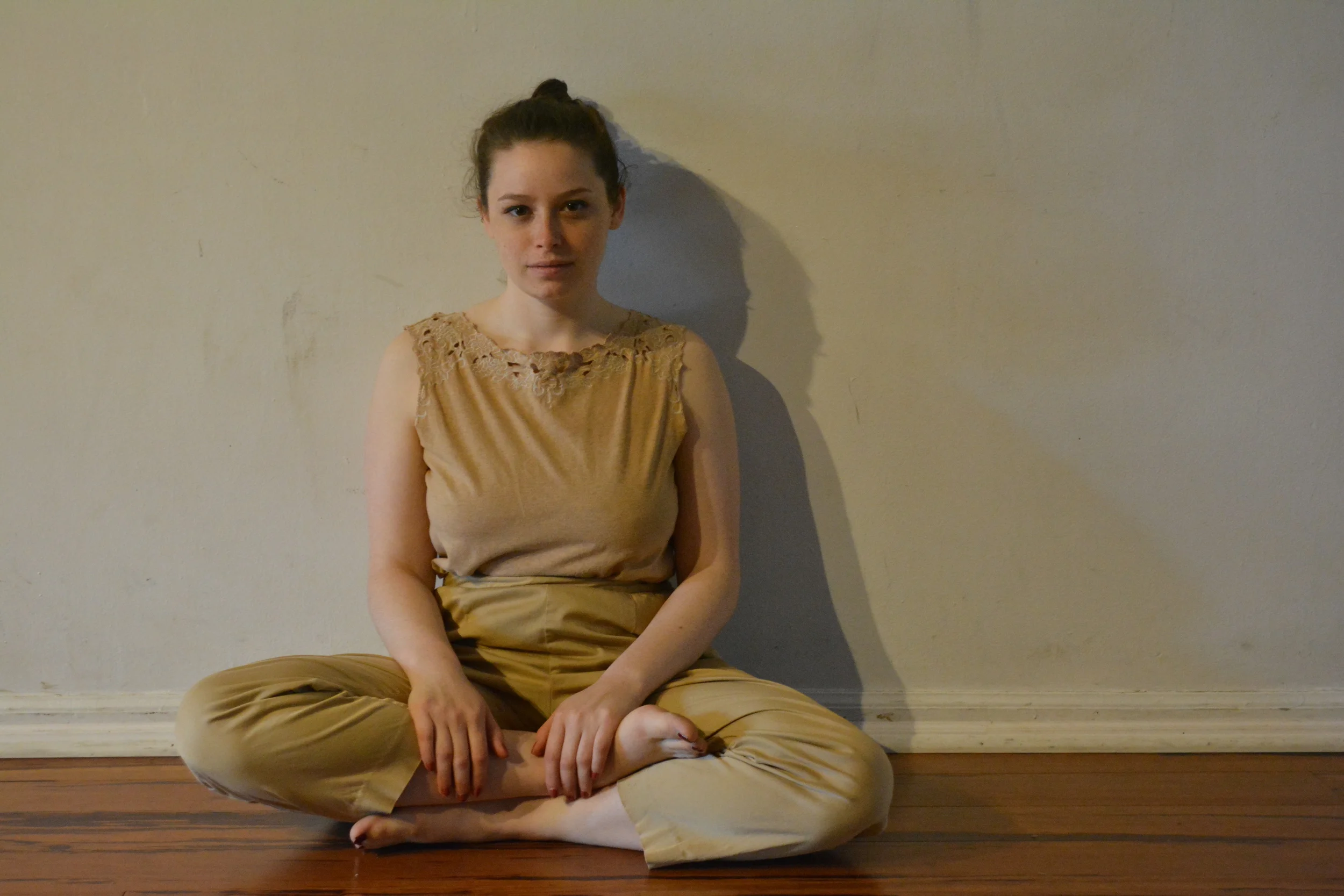
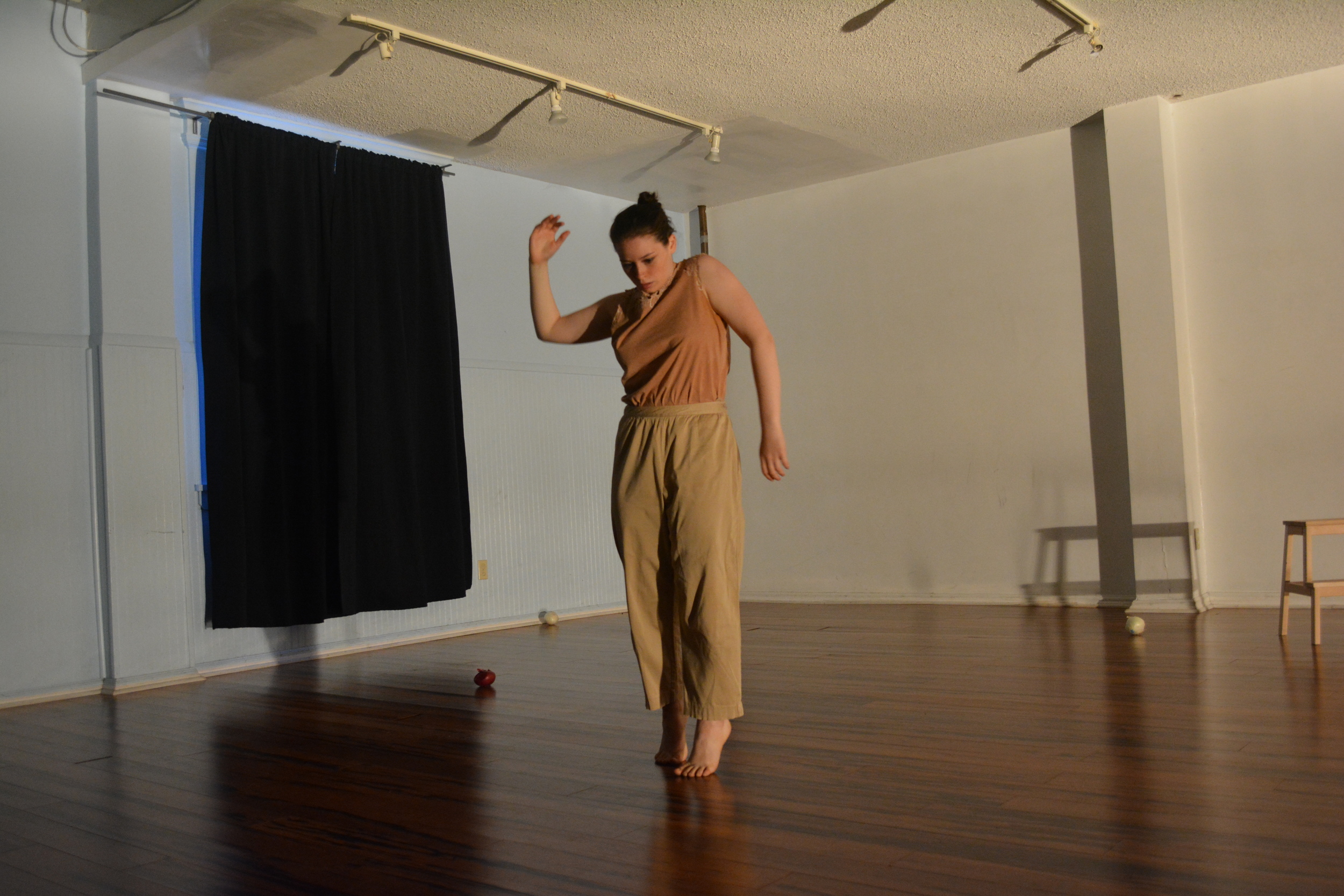
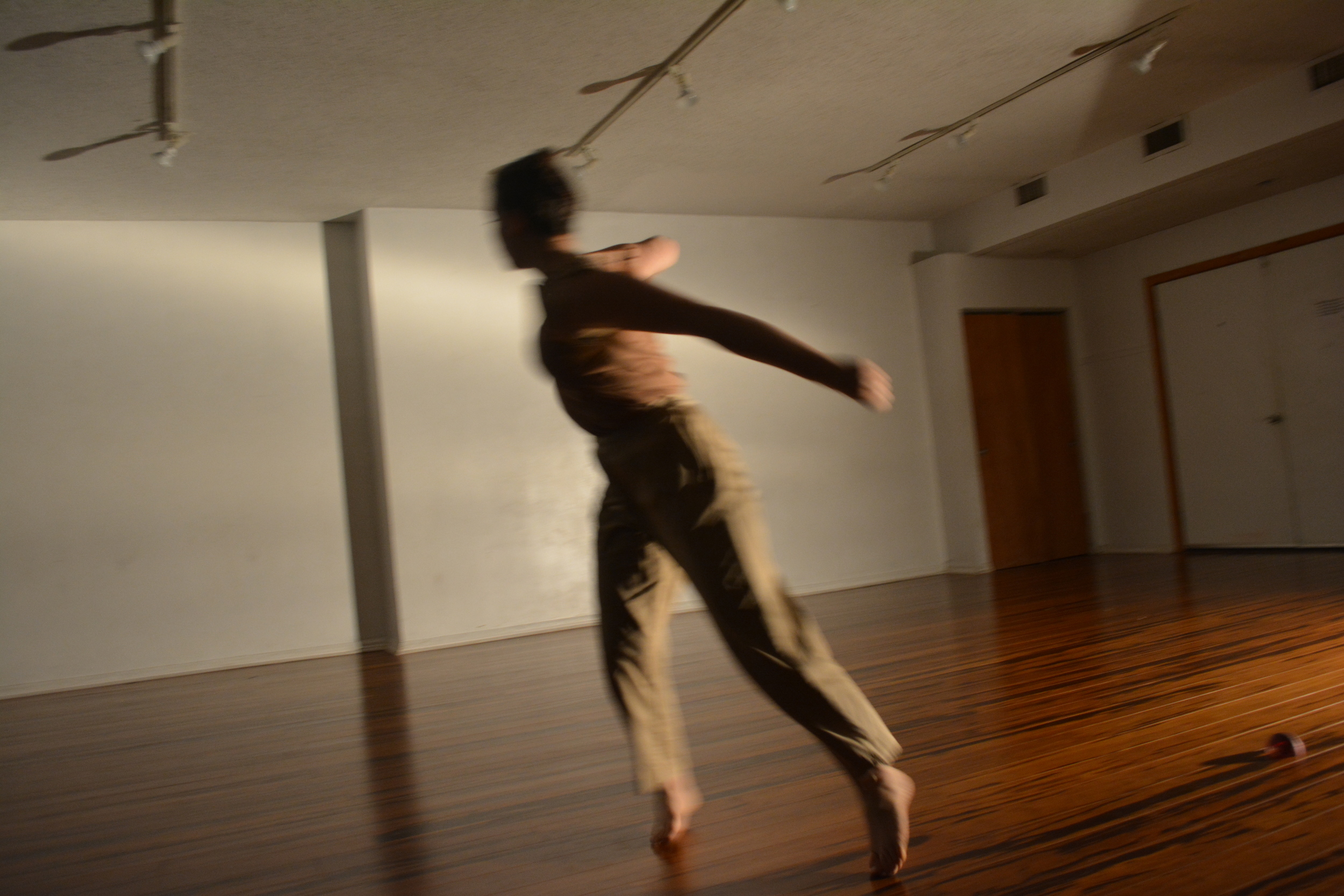

Video courtesy of Irina Varina. To watch video, email tmasondance@gmail.com for password.
a well a everybody’s heard about the bird (2015)
a well a everybody's heard about the bird emerged after extensive research into Raymond Depardon's 1982 documentary San Clemente. San Clemente documents the lives of Italians living in a decrepit Venetian psychiatric hospital. We became interested in how these individuals are "care free" and how they appear to be 100% themselves, and how complex their contained and intersecting worlds are. We in no way are looking to put on or impersonate these individuals but rather are exploring how to be unbound within the context of the Mascher Space. This piece was performed by Talia Mason, Mira Treatman, and Irina Varina for the Headlong Performance Institute Final Show in 2015.
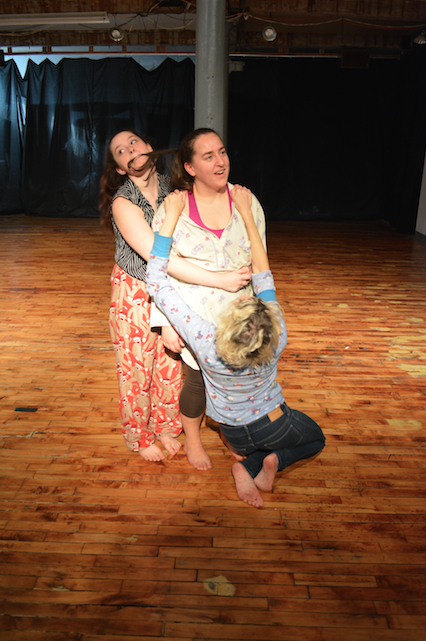
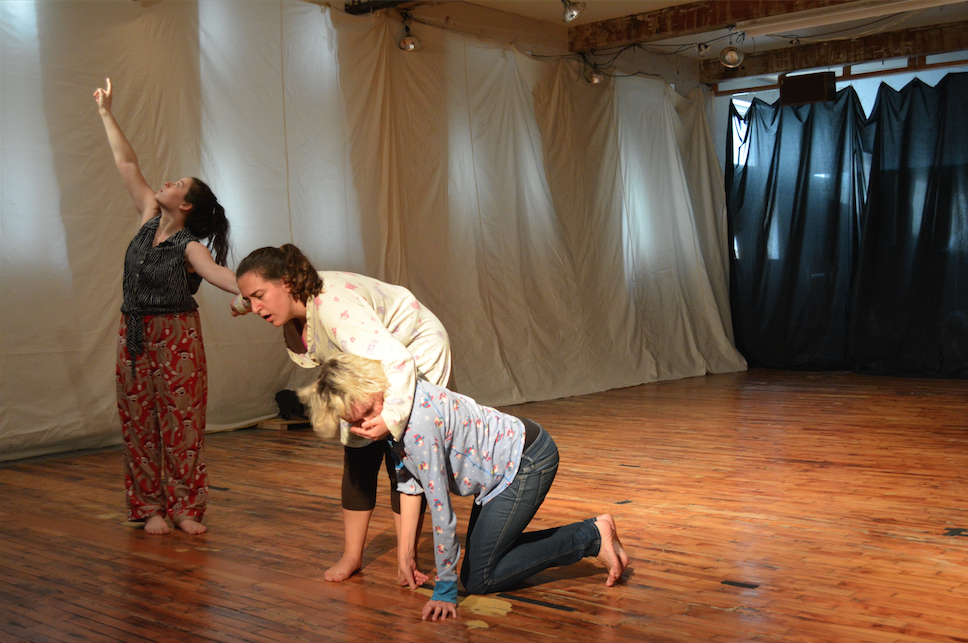
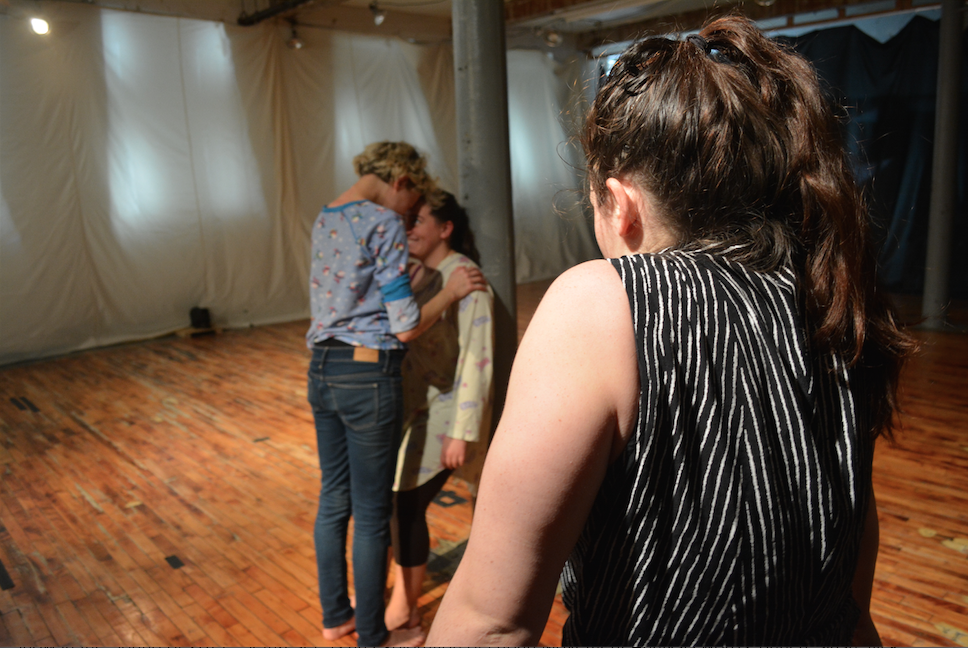
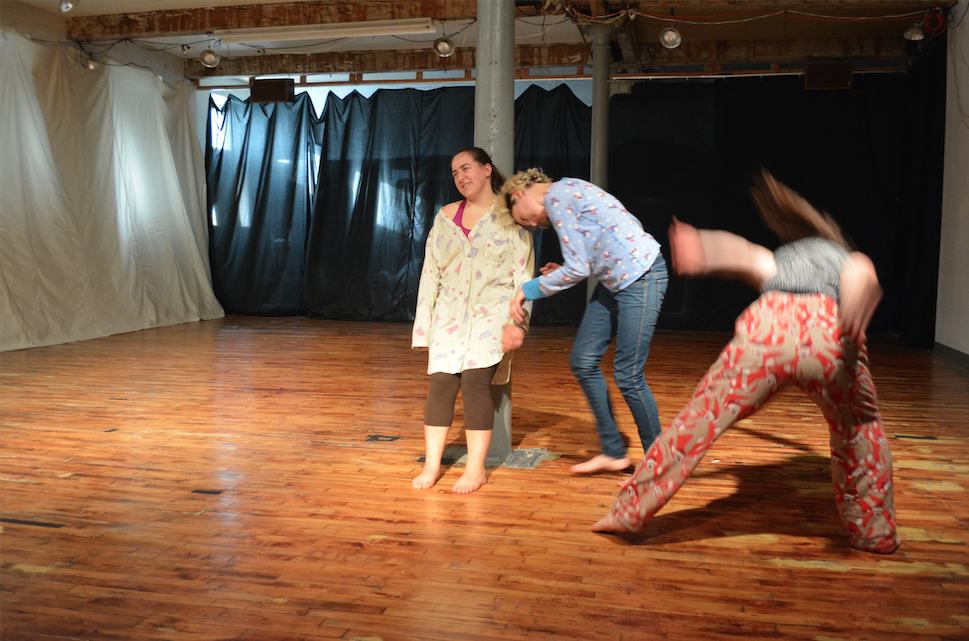
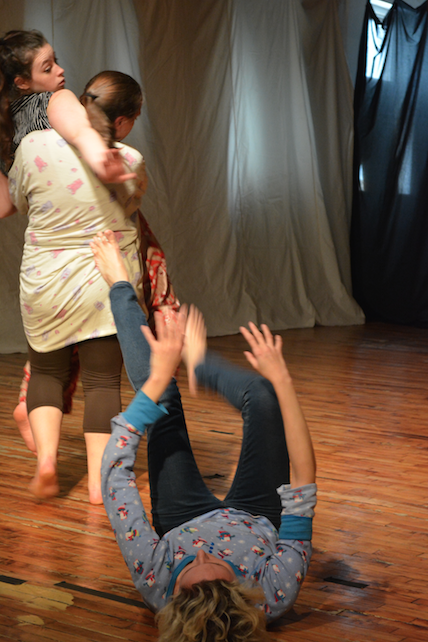
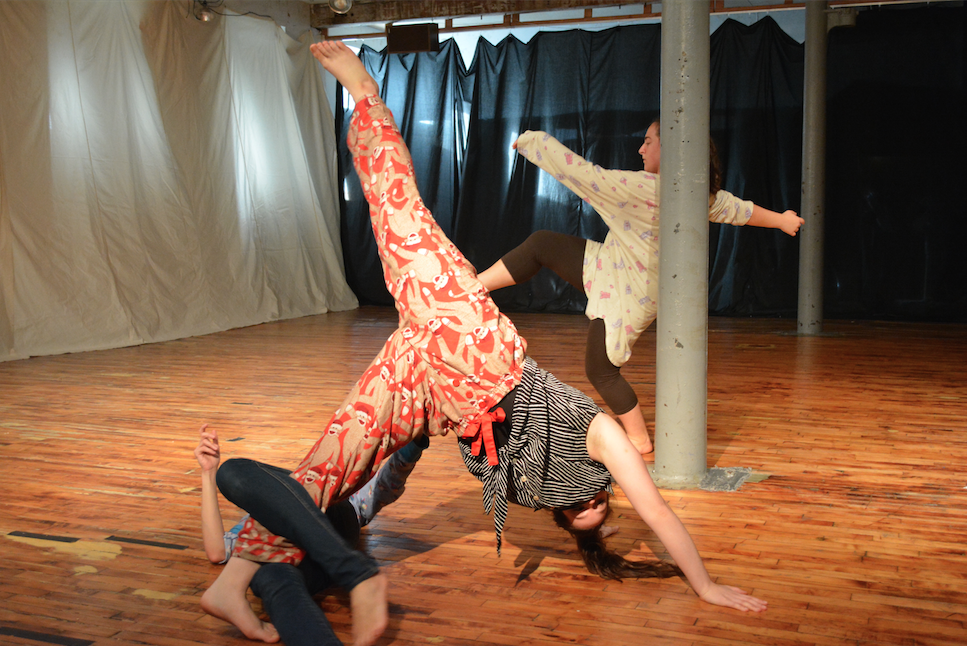
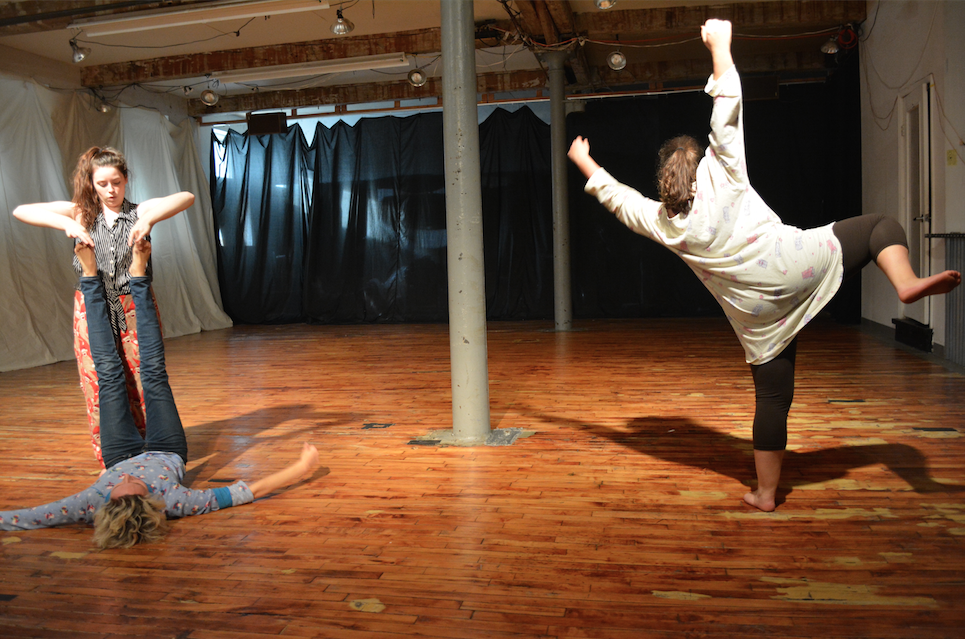
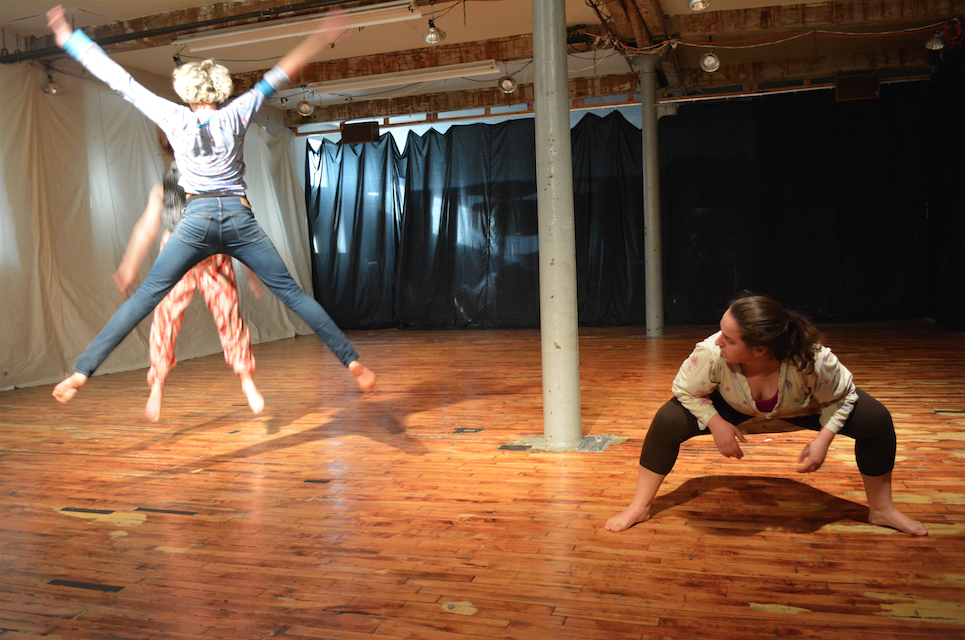
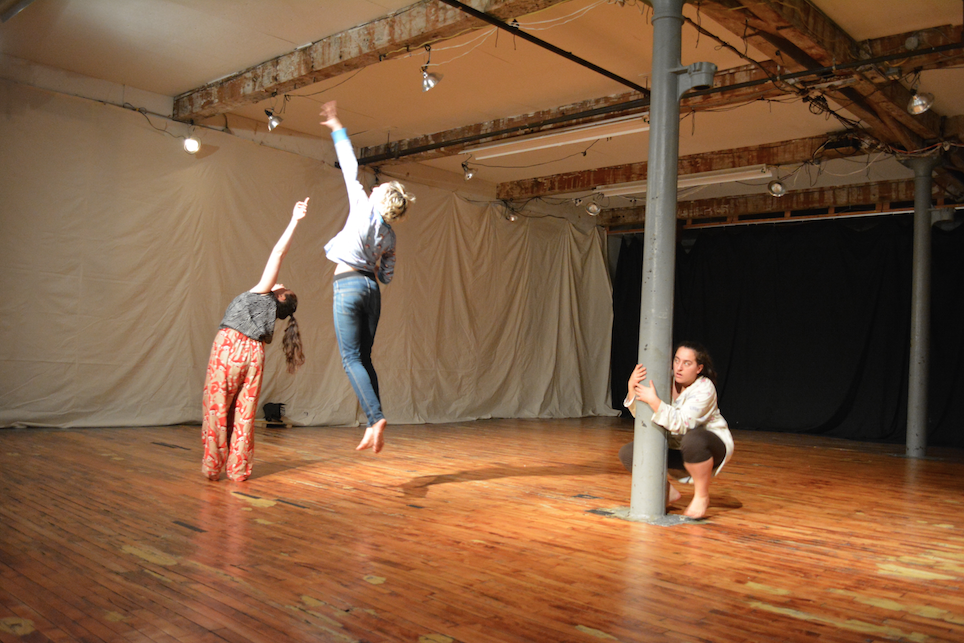
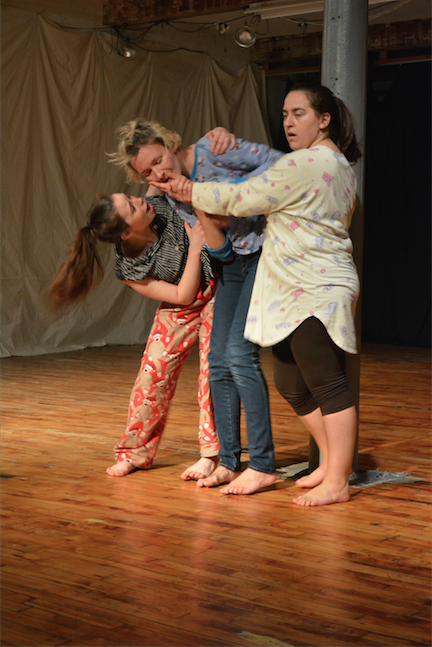
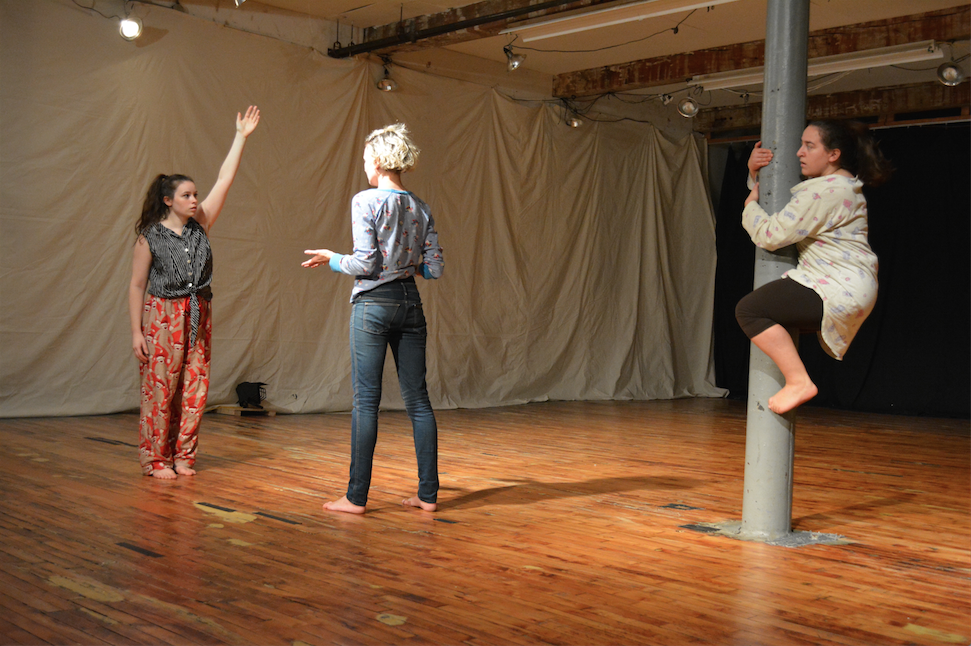
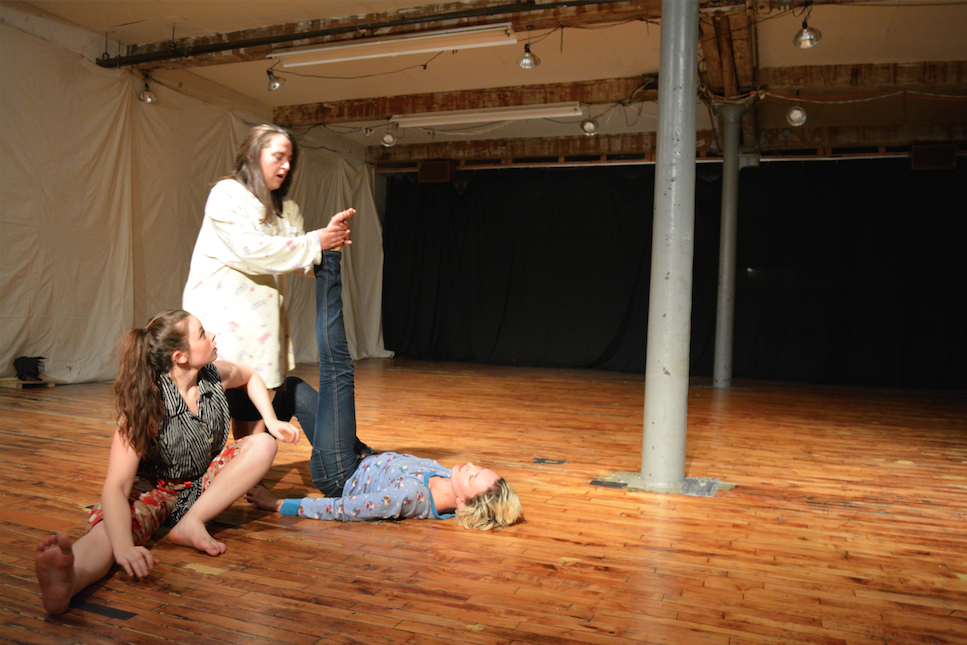
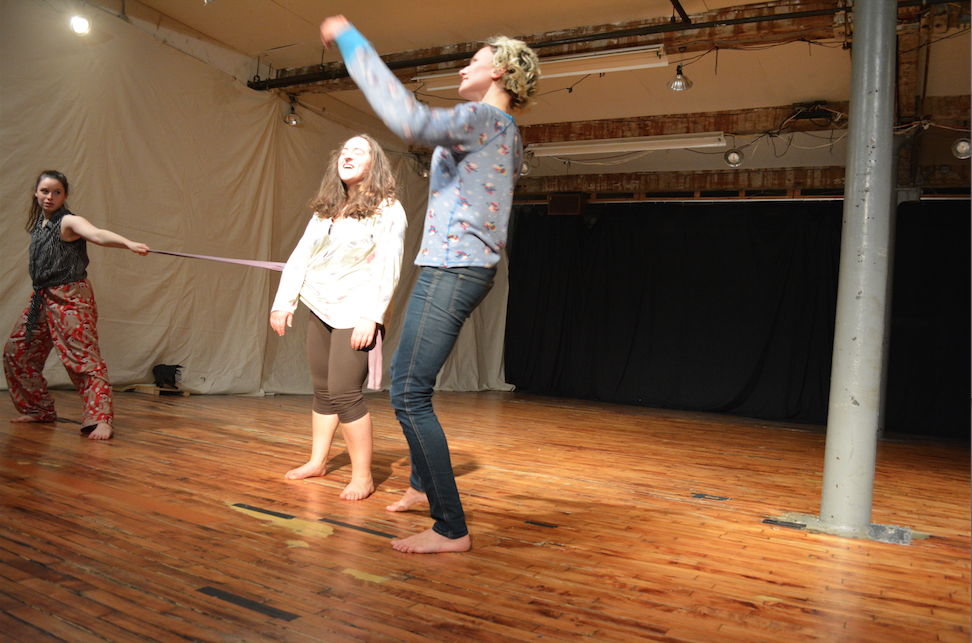
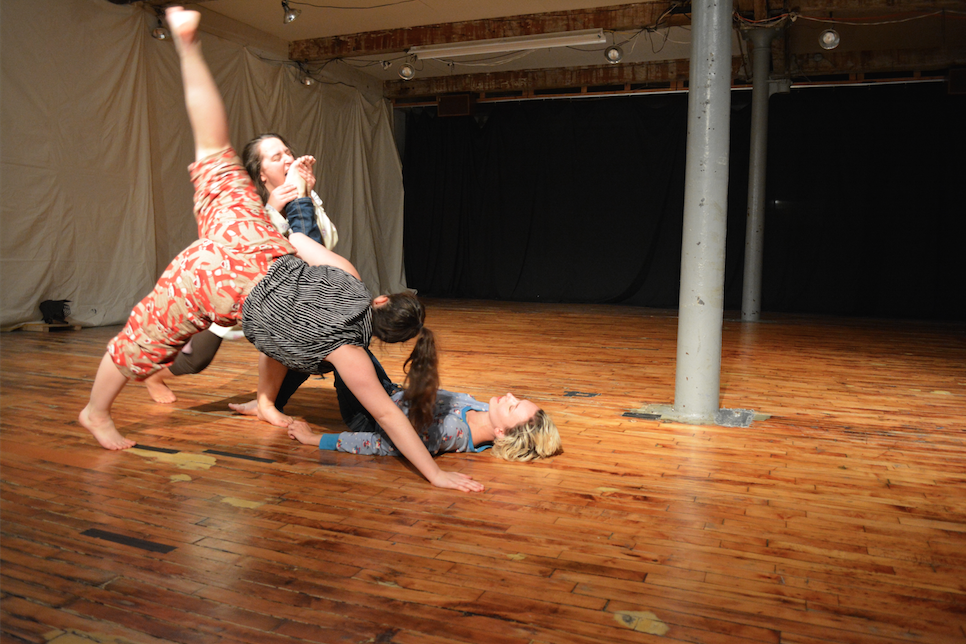
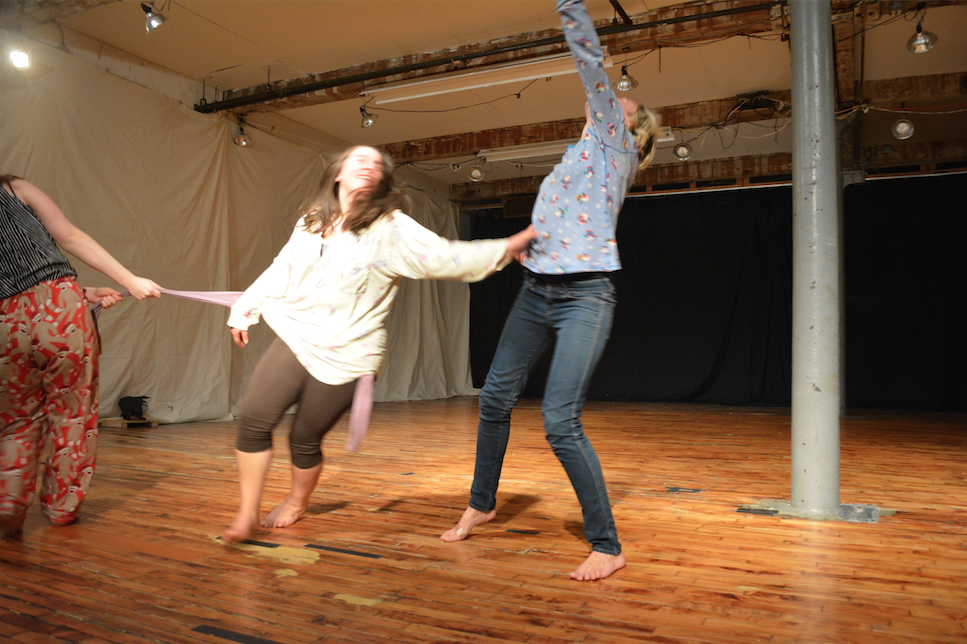
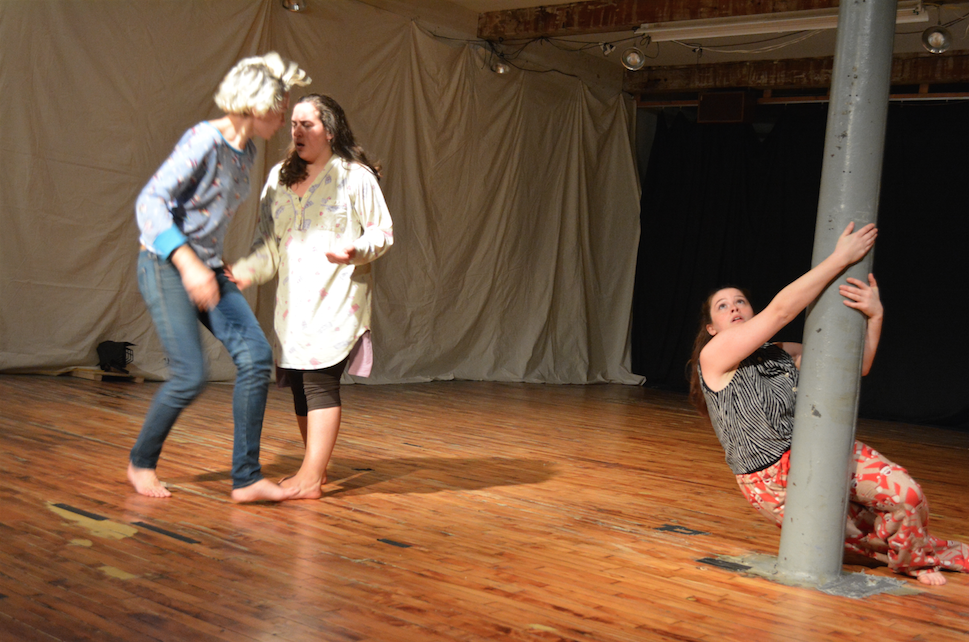
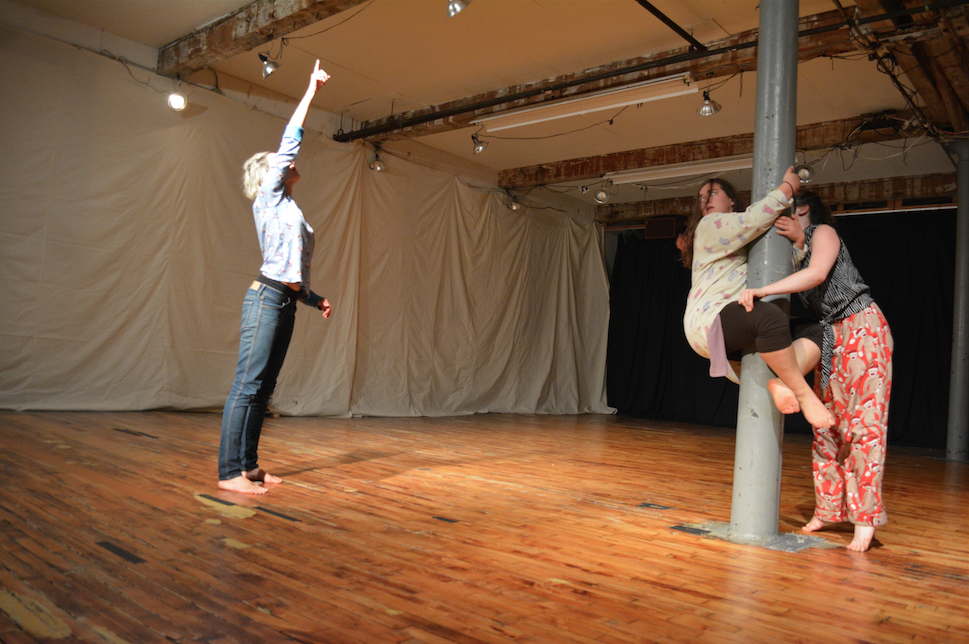
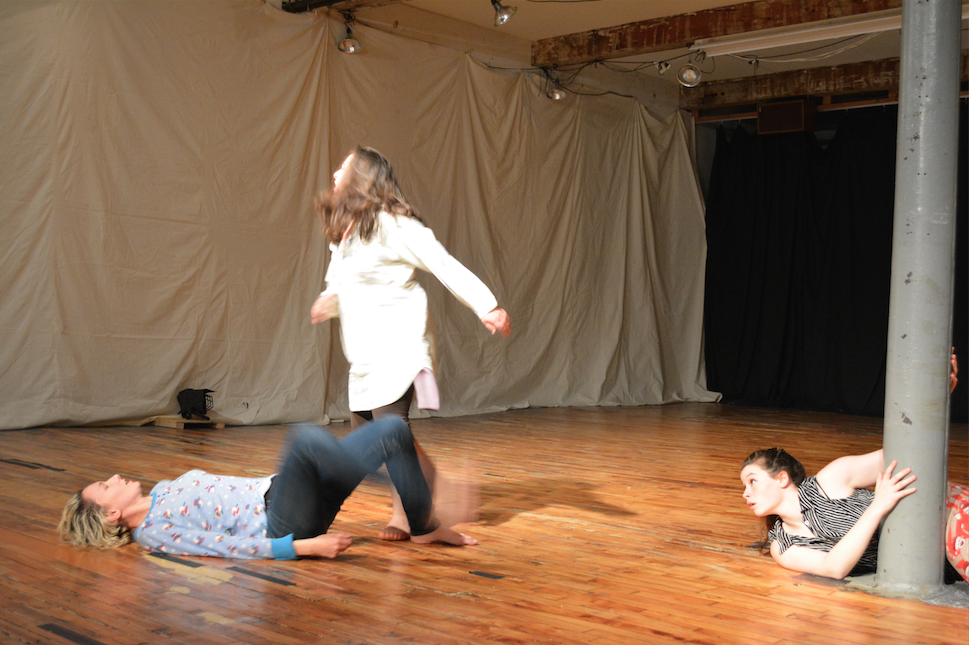
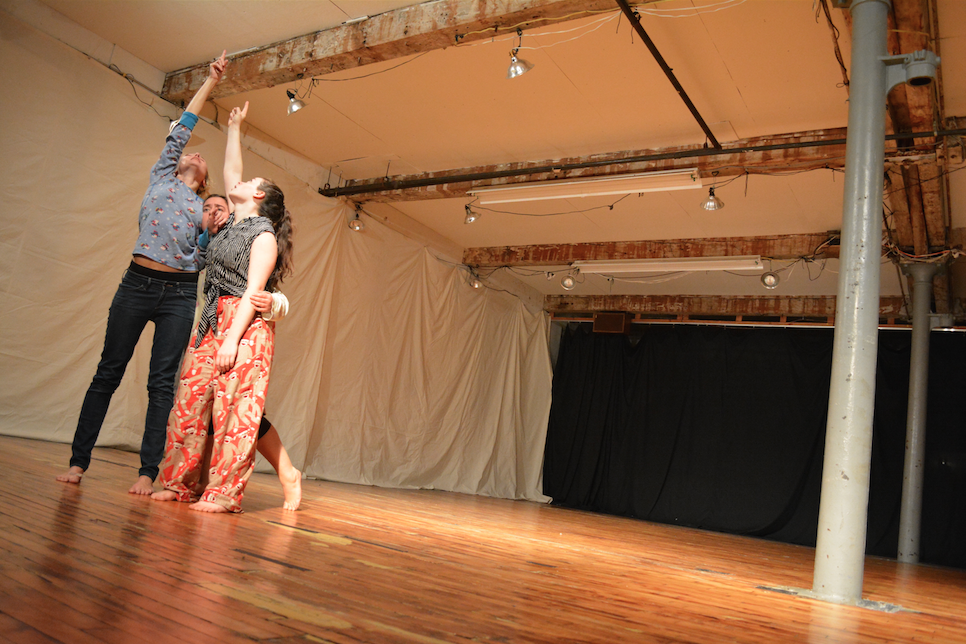
Set/Reset (2015)
Set/Reset was choreographed and performed by Talia Mason and Regan Radulski for the Bates College Short Term Dance Show in the Spring of 2015. Set/Reset is an exploration of Laban Movement Analysis words: punch, slash, flick, glide, float, wring, press, and dab. This duet is equally an exploration of Jazz music and physical and tactical experimentations with painters tape. “Set/Reset” was developed over a five-week period and served as more of a study than a finished choreographic work.
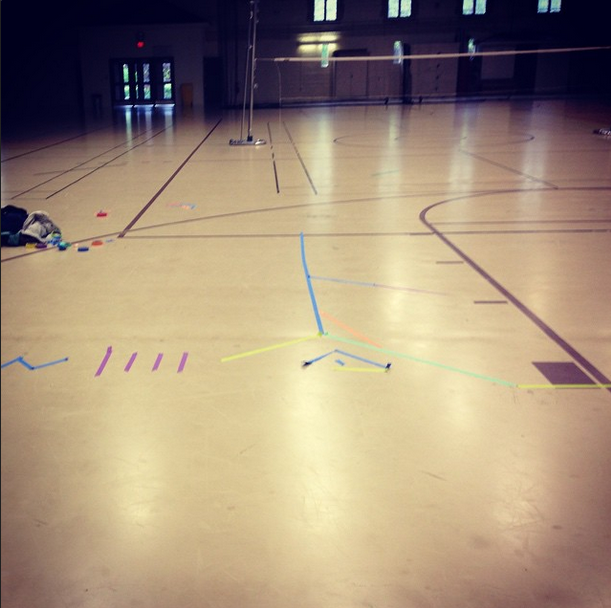
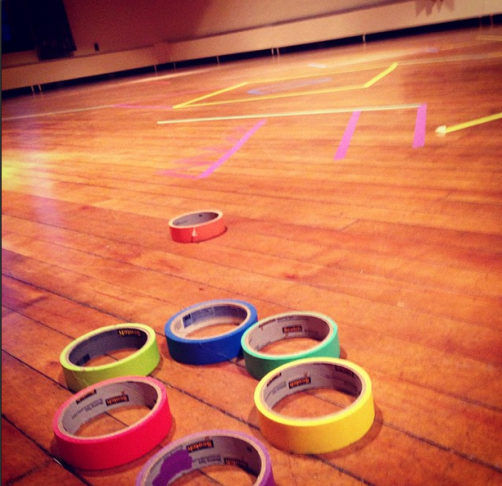
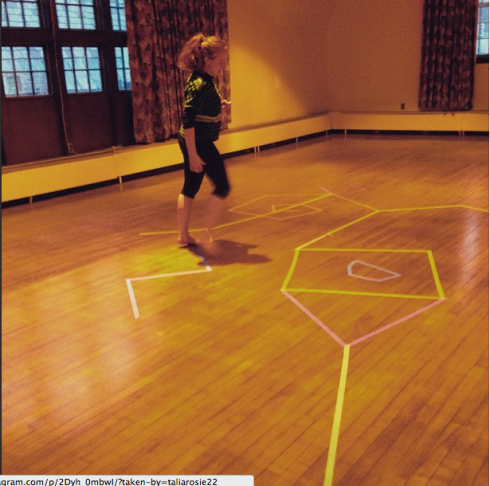
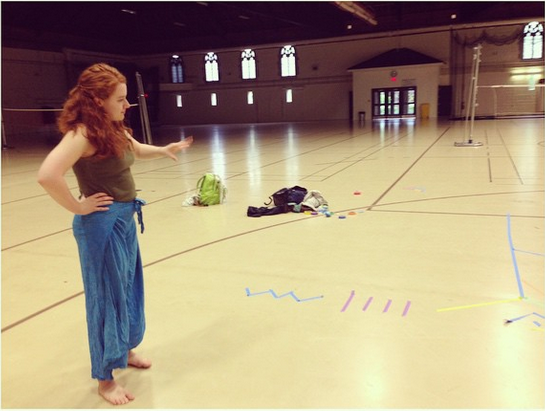
One Inch Tall (2015)
One Inch Tall was choreographed by Talia Mason with the help of Sam Thomas. This duet explores childhood memories, a sense of play, playground games, and the wonderful words of Shel Silverstein. Both Mason and Thomas created this duet in their last semester of college, allowing nostalgia to influence the work. One Inch Tall was created as a proscenium piece for Dante Brown’s Advanced Composition class at Bates College in the Spring of 2015.
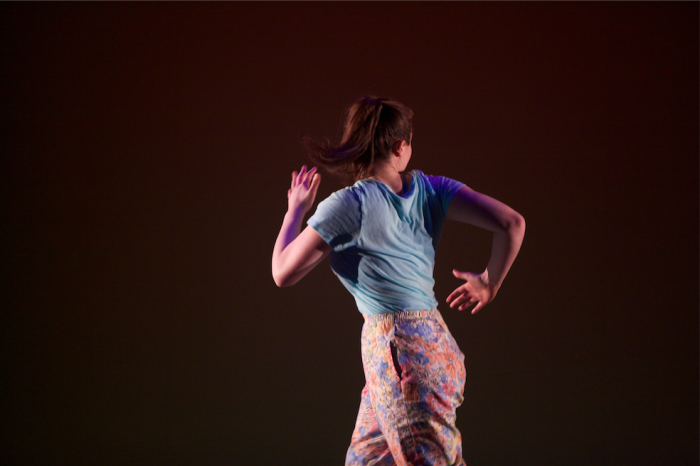
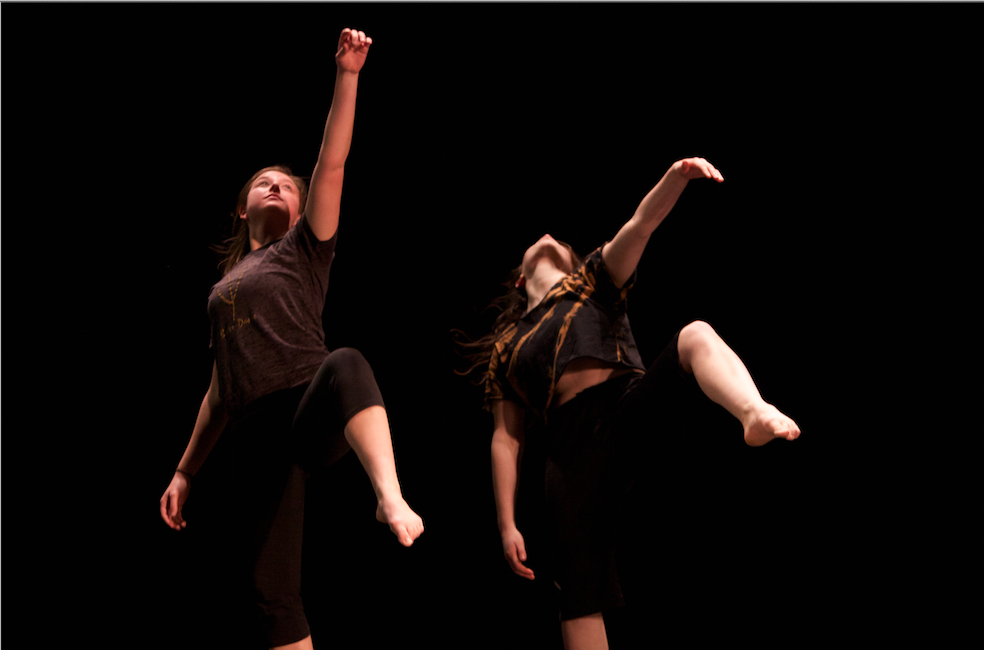
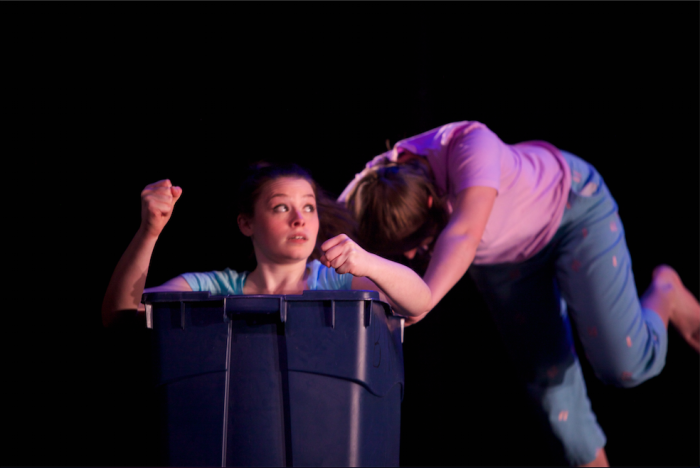
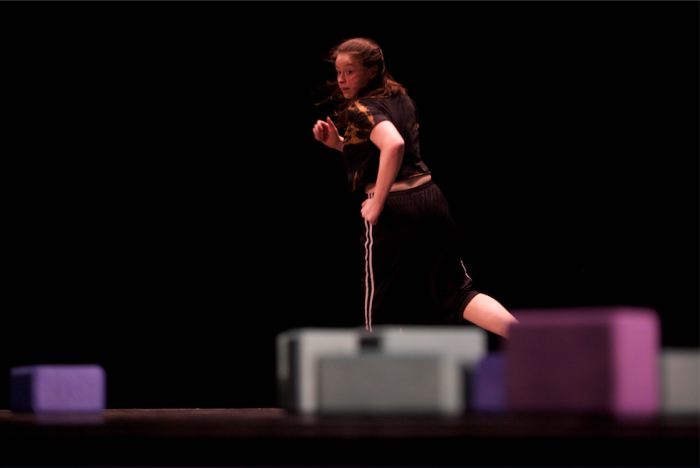
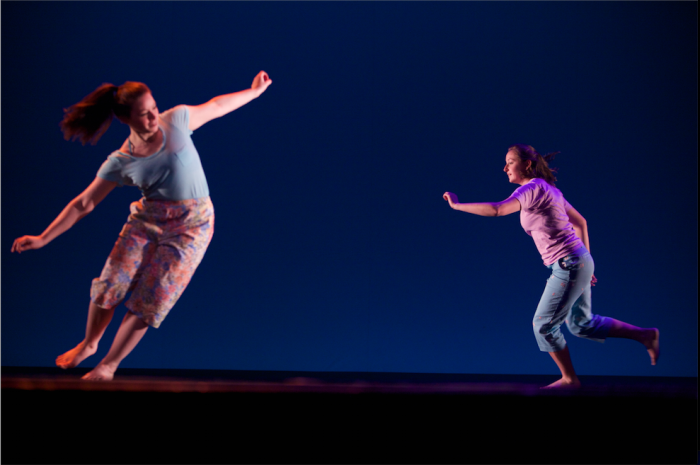
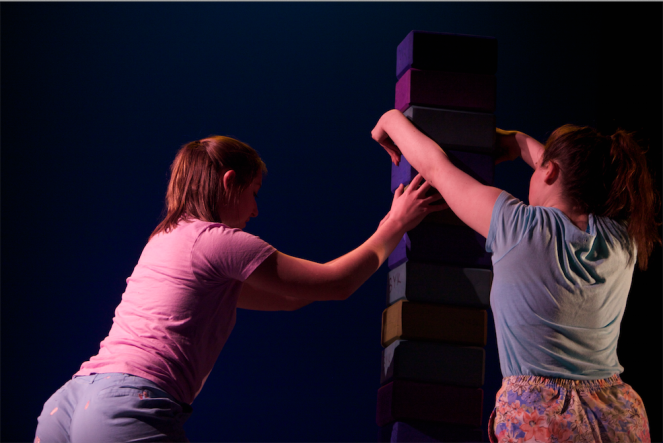
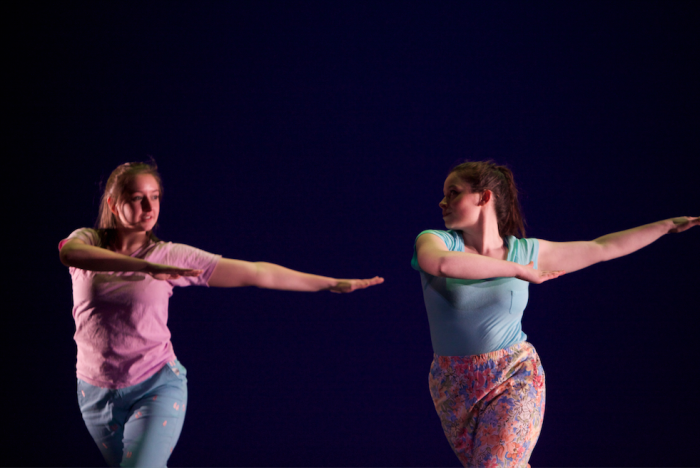
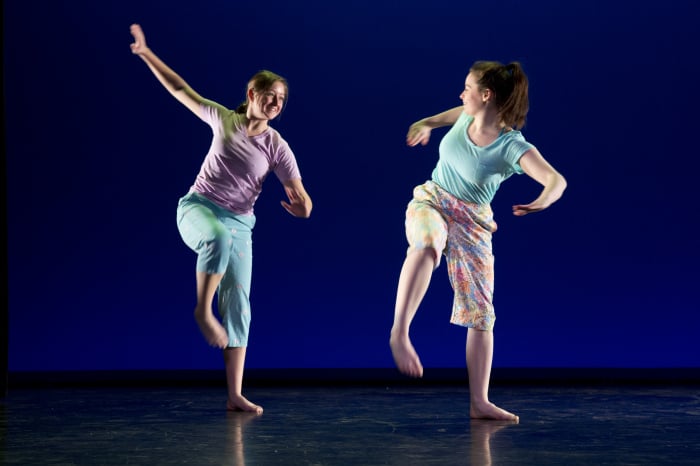
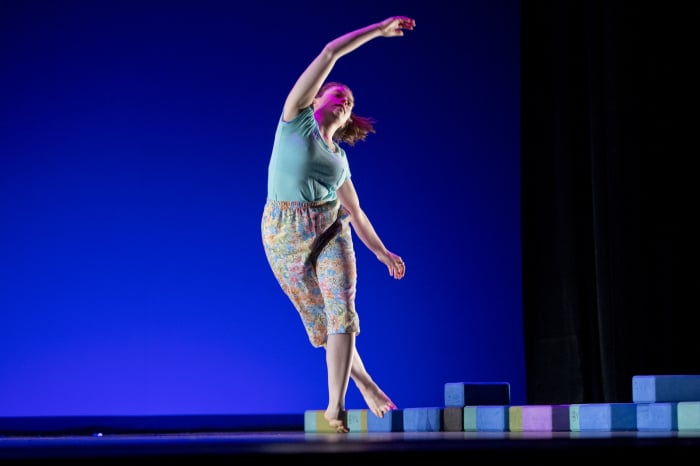
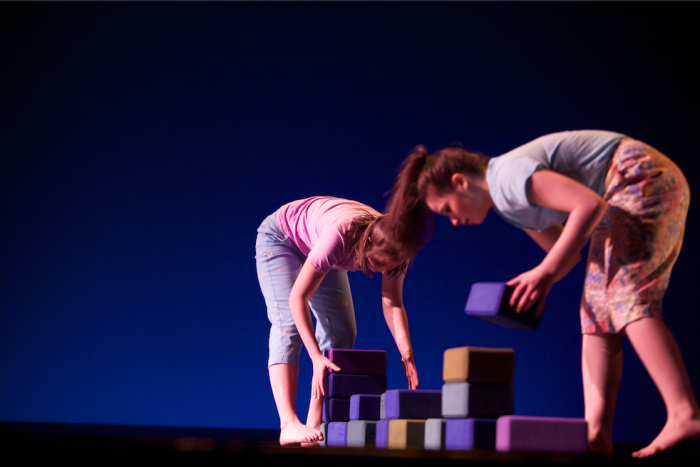
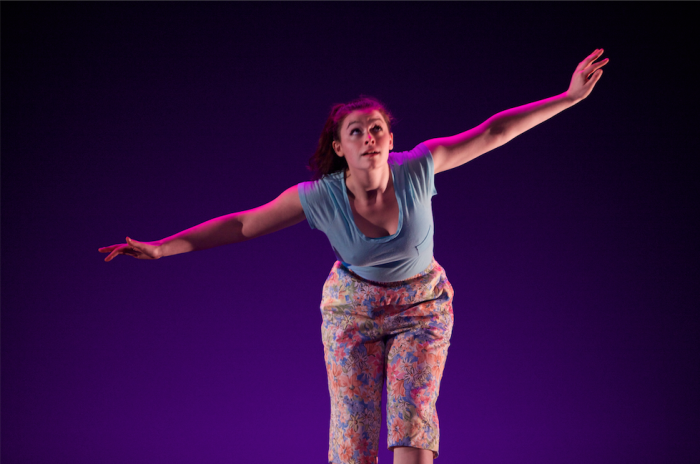
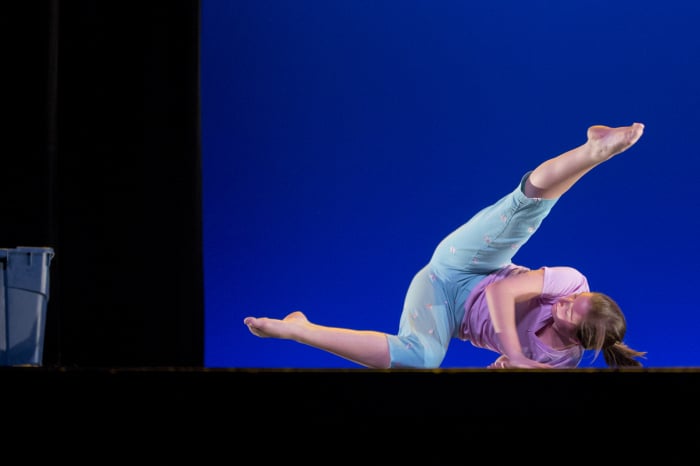
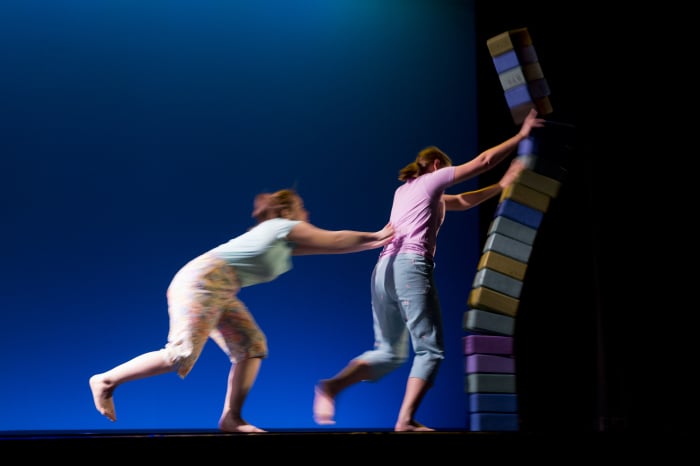
Video courtesy of Bates College. To watch video, email tmasondance@gmail.com for password.
Kwibuka (Remember) (2014)
Kwibuka (Remember) was choreographed and performed at Bates College in 2014. Dancers include: Mary Anne Bodnar, Tara Das, Talia Mason, Laura Pietropaoli, Alison Ricciardi, and Kelsey Schober. Talia Mason extensively studied the Rwandan genocide against the Tutsi with Professor Alexandre Dauge-Roth in a French and Francophone Studies seminar in 2012 before spending a month in Rwanda where she met Elise Musomandera and heard her story firsthand. Elise then published her testimony in 2014. This piece is a physical (re)presentation of Elise’s testimony Le Livre d’Elise. It in no way looks to summarize or reconstruct her experiences, but rather to ask questions and investigate kinesthetic representations of a traumatic life event. The word included on our costumes is “Kwibuka,” which is the Kinyarwandan word for “remember,” and our costumes are purple because it is the Rwandan color of national reconciliation and remembrance.
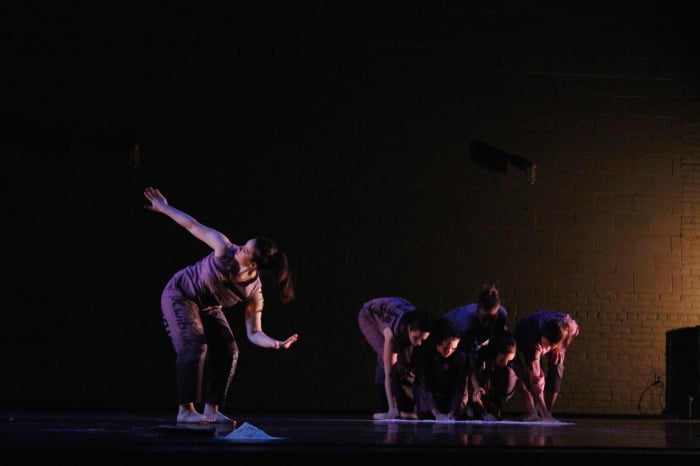
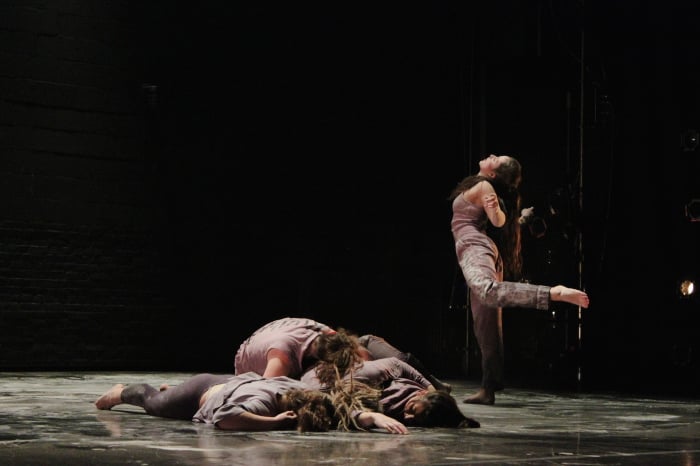
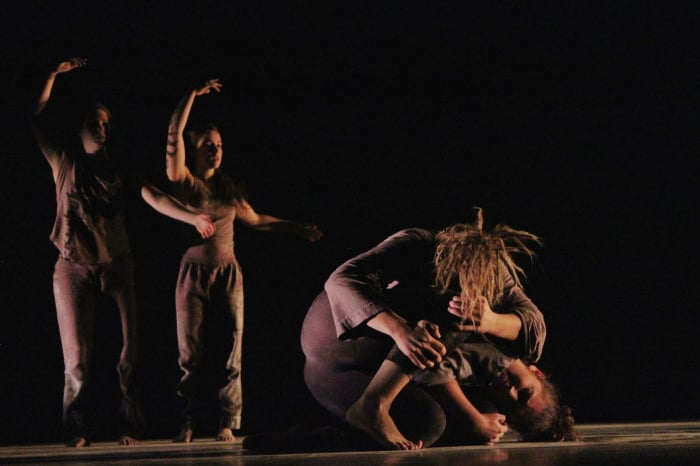
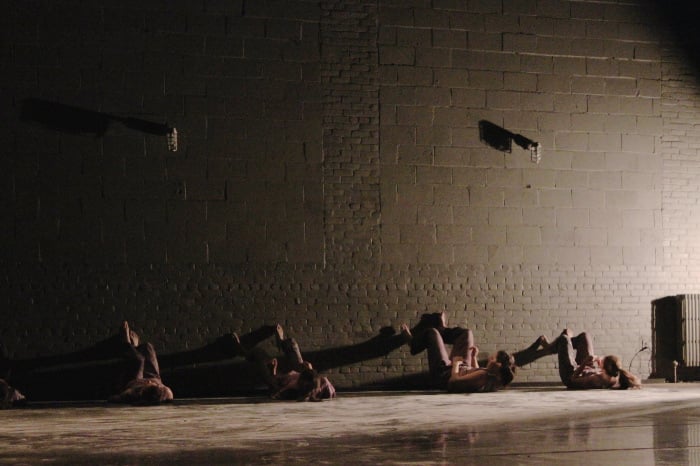
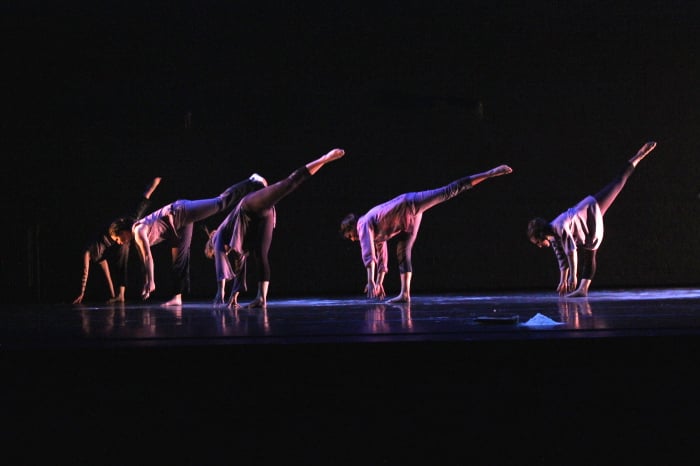
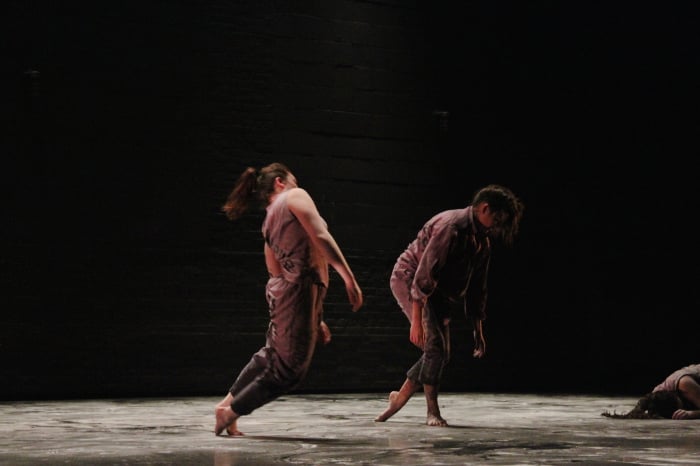
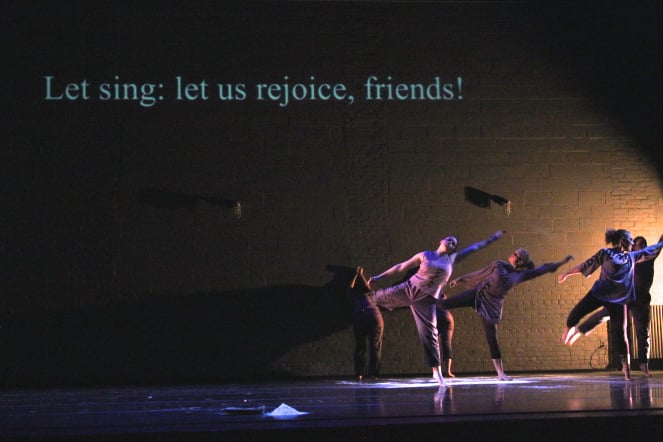
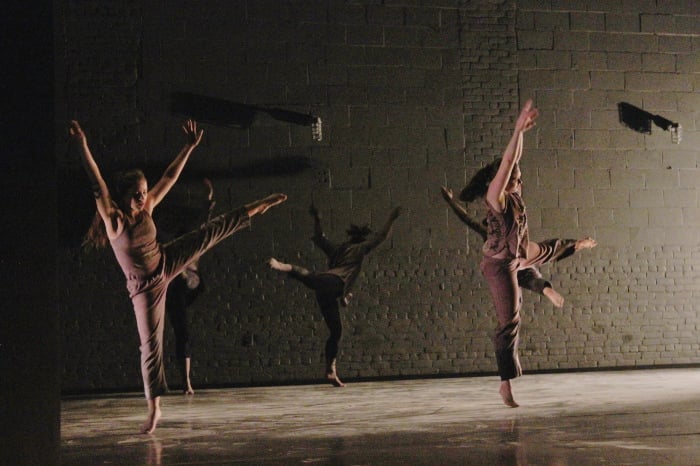
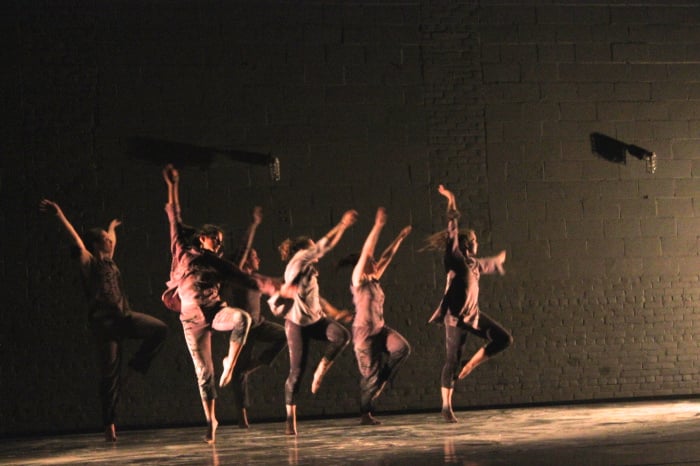
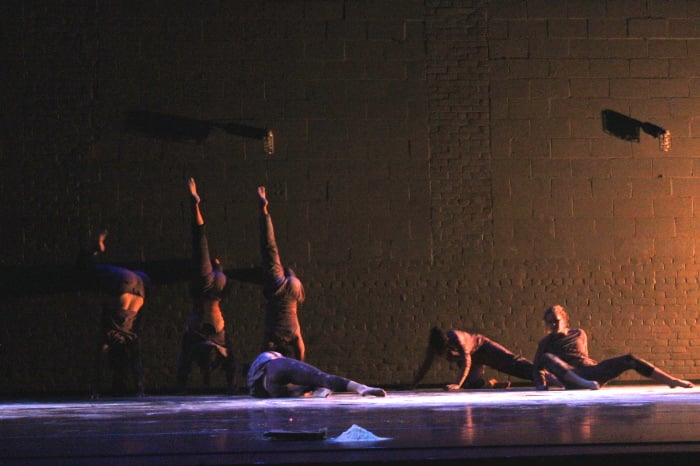
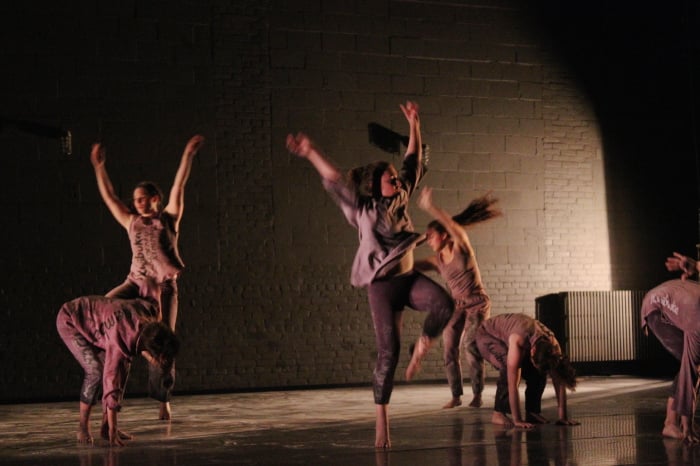
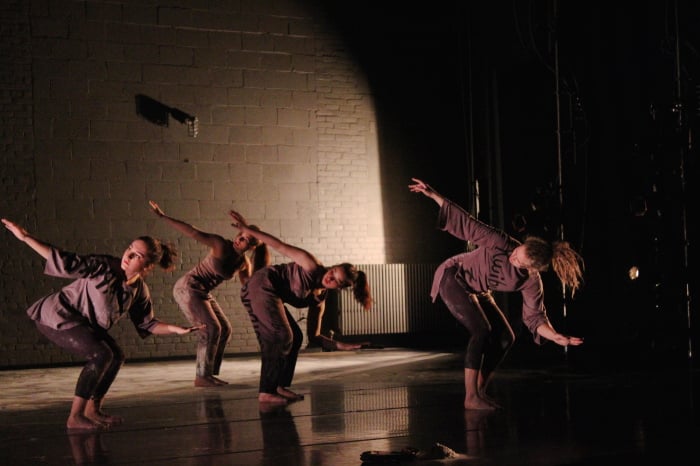
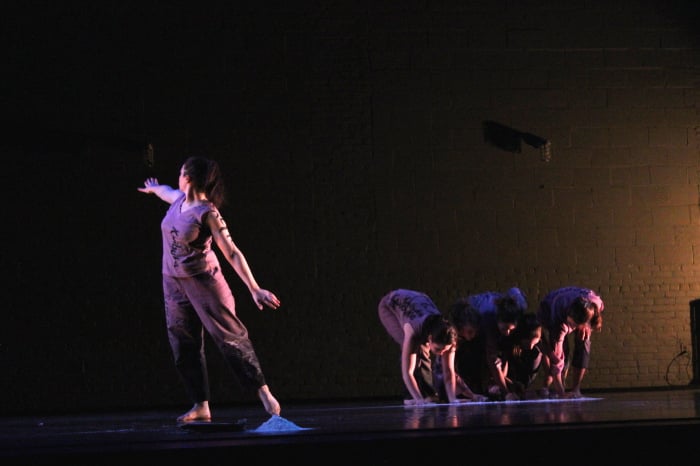
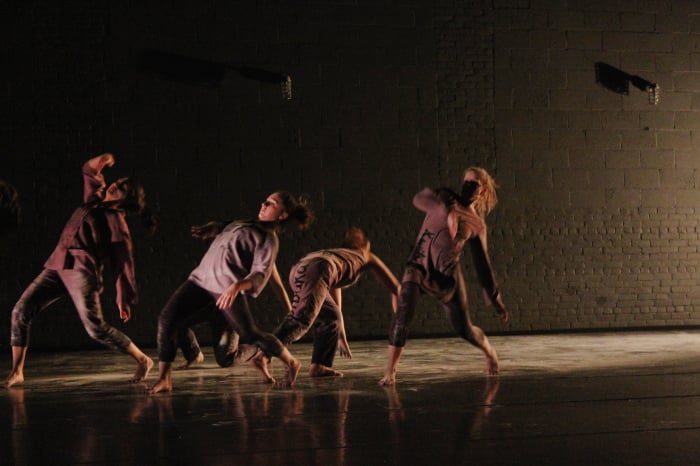
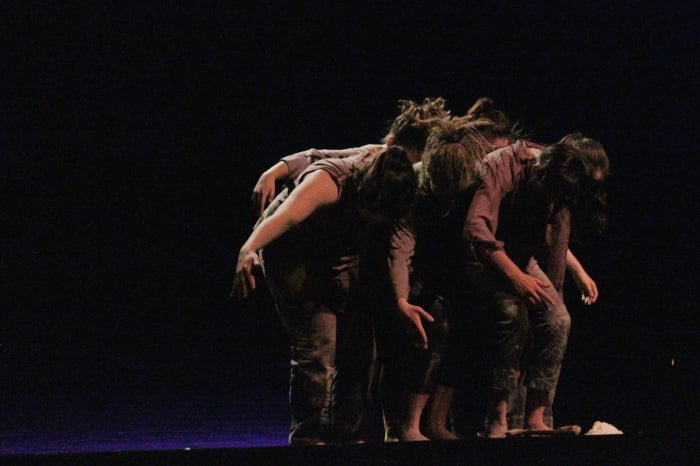
Video courtesy of Bates College. To watch video, email tmasondance@gmail.com for password.
Driving to the Midwest (2014)
Driving to the Midwest was choreographed and performed by Mary Anne Bodnar and Talia Mason in 2014 at Bates College. This piece uses poetry written by Mason’s mother, Elizabeth Rees and was inspired by car trips from Maryland to Minnesota and Wisconsin. The piece looks at the playful aspects of sharing a space for over 20 hours by mixing car games with gestures. Driving to the Midwest also explores the idea of hugs as a universal language for what is being said non-verbally by family.
Driving to the Midwest was choreographed in the spring of 2015 at Bates College. To watch video, email tmasondance@gmail.com for password.
(Écho) ( ) () (2013)
(Écho) ( ) () is a solo work choreographed and performed by Talia Mason at Bates College in 2013. This piece explores the power of repetition. This piece was inspired by Anne Teresa de Keersmaeker’s Phase and Steve Reich’s Come Out sound score. This piece was created in an independent study course entitled Choreographic Methodologies.
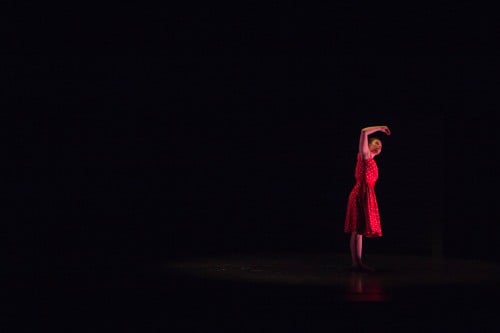
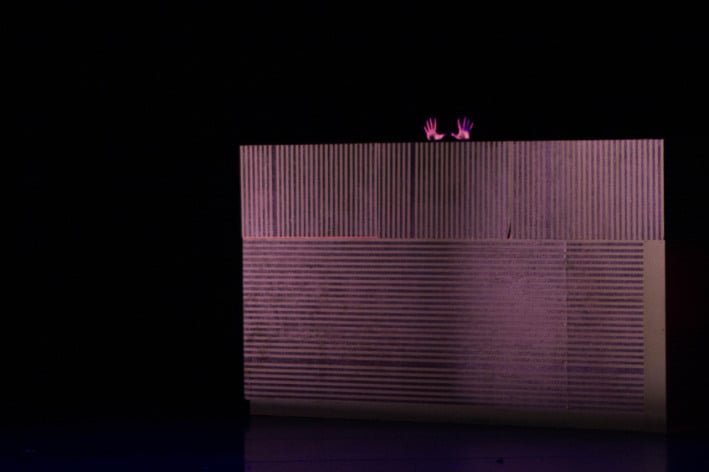
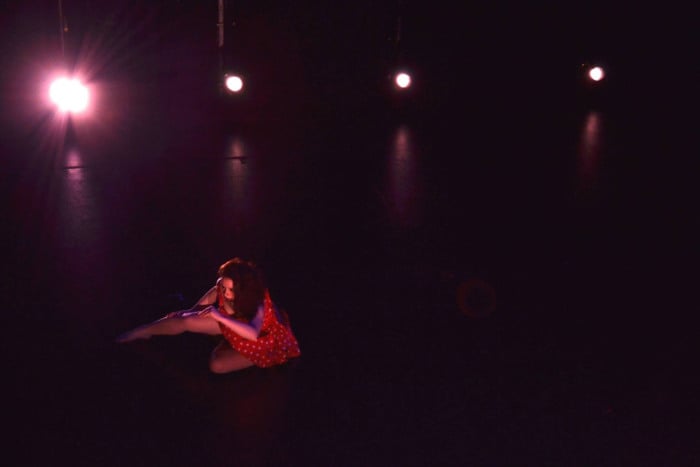
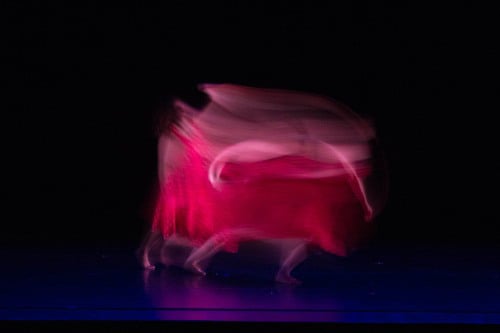
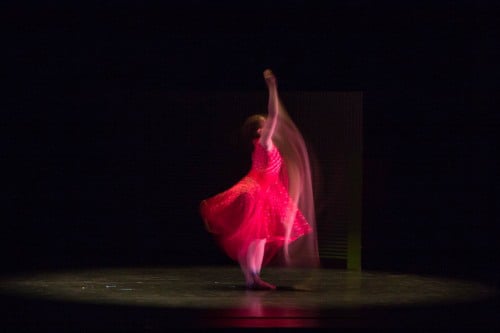
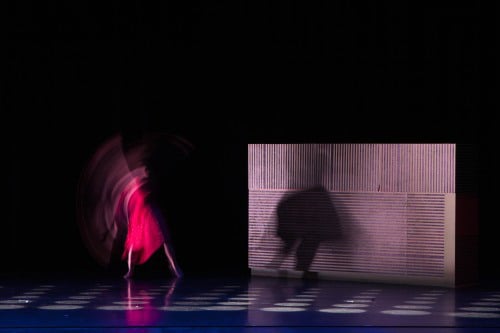
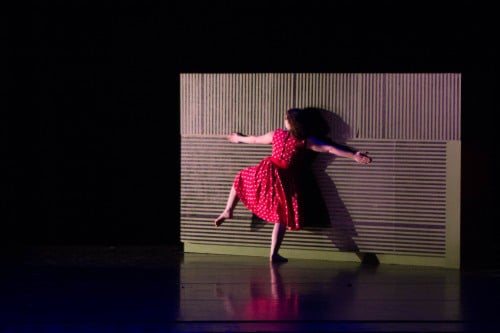
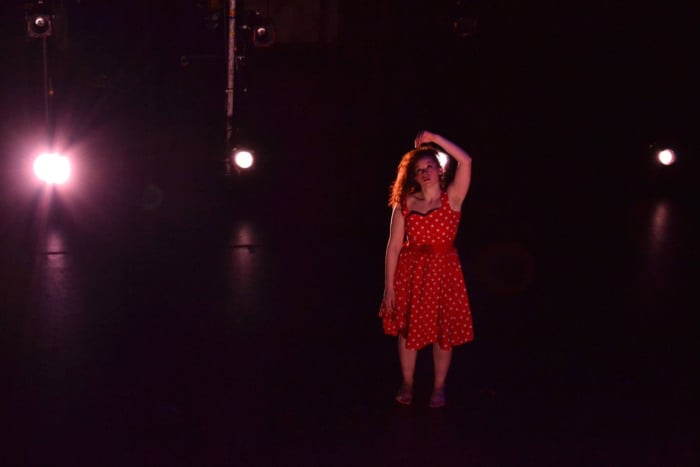
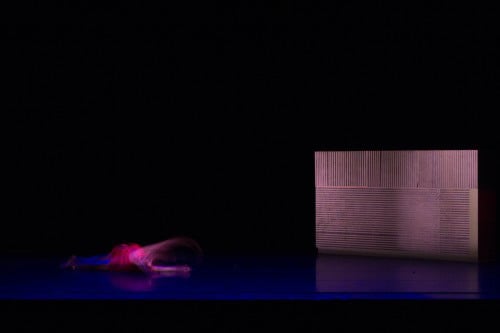
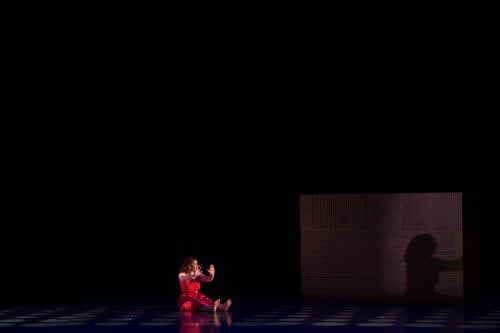
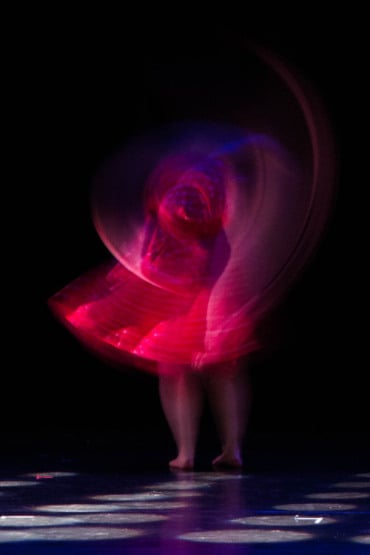
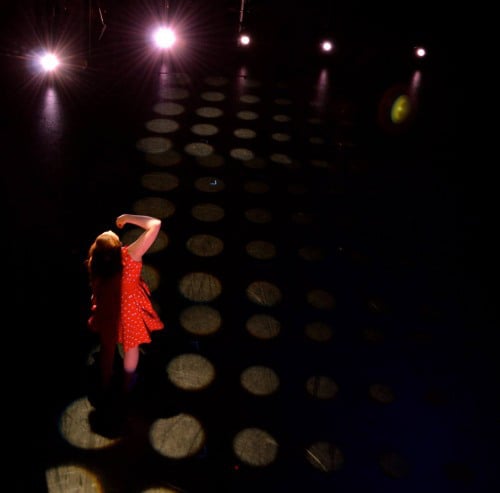
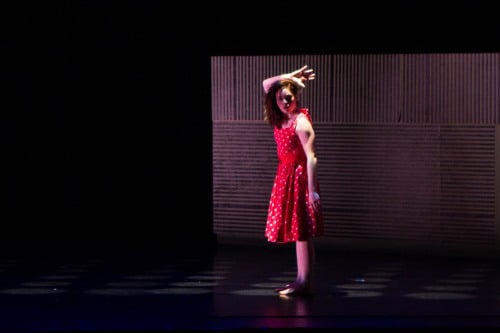
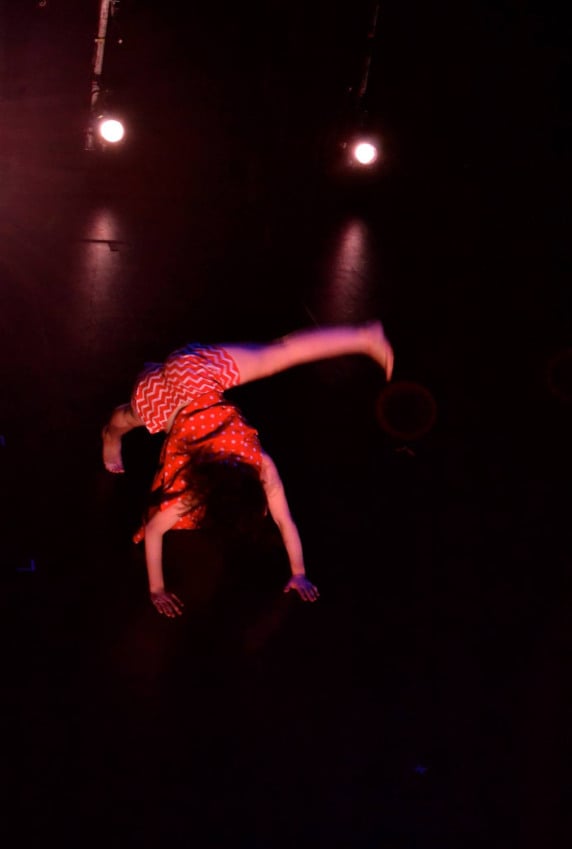
Video courtesy of Bates College. To watch, email tmasondance@gmail.com for password.
Empty House (2013)
Empty House was choreographed and performed at Bates College in 2013. Dancers include: Katie Ailes, Tara Das, and Kelsey Schober. Music in this piece was composed by Conor Smith. Poetry included was written by Talia Mason and James Kimbrell. This piece explores the power and stories that empty houses and empty structures hold over time.
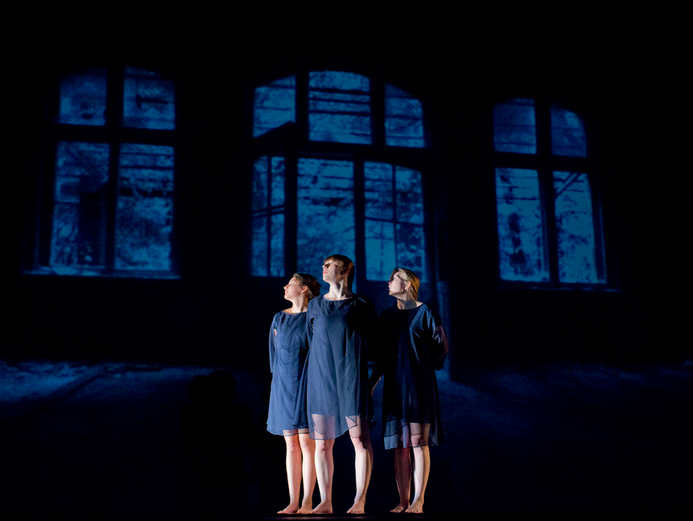
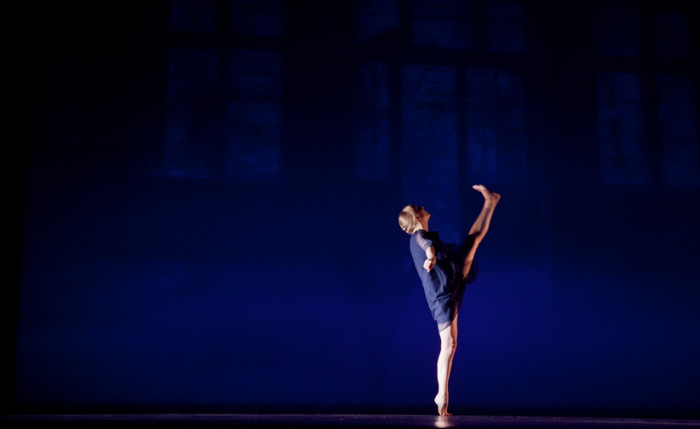
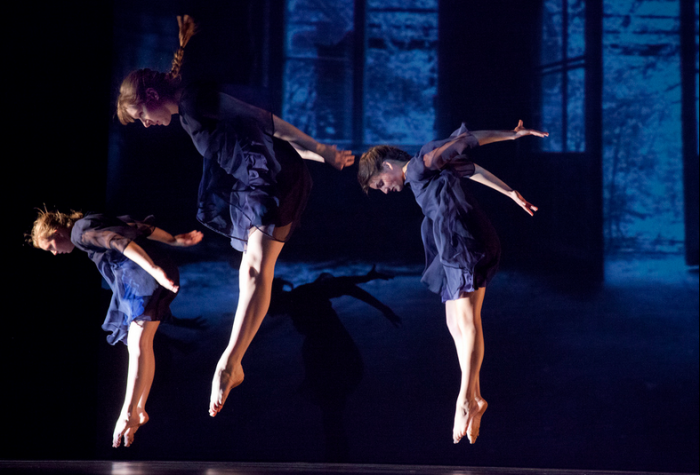
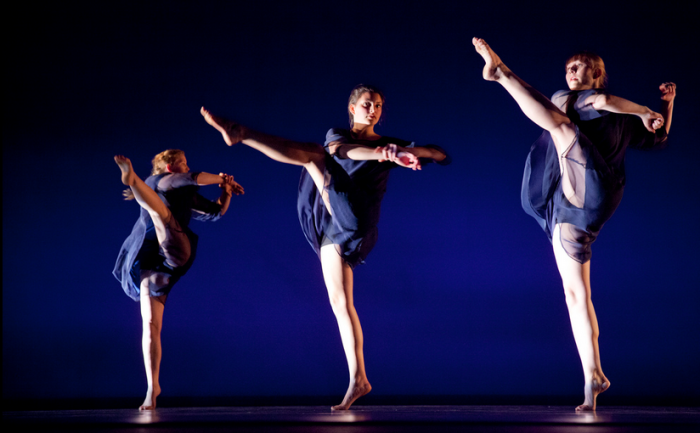
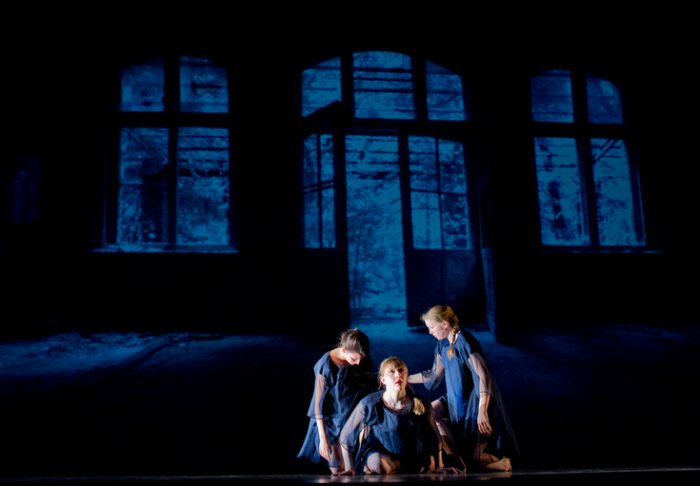
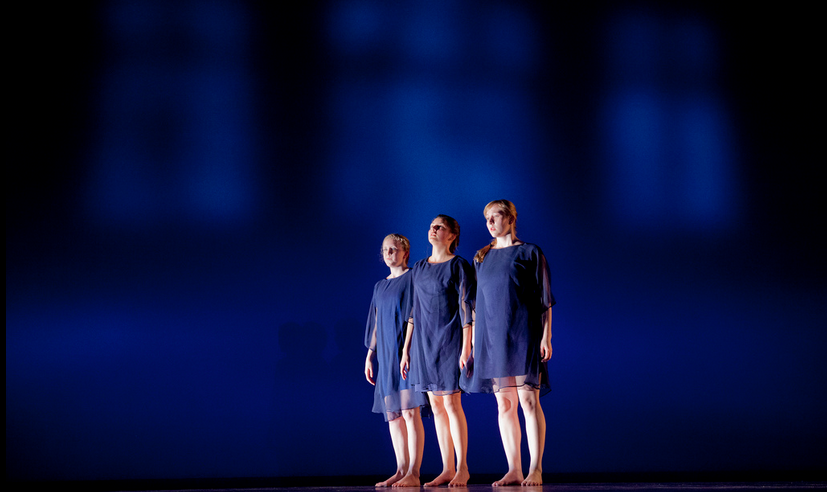
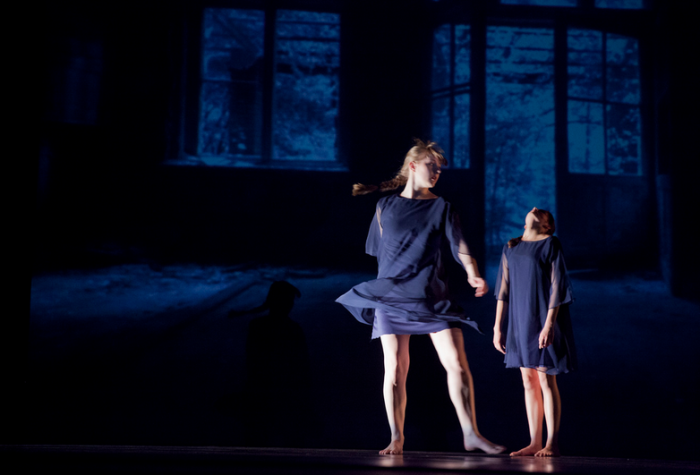
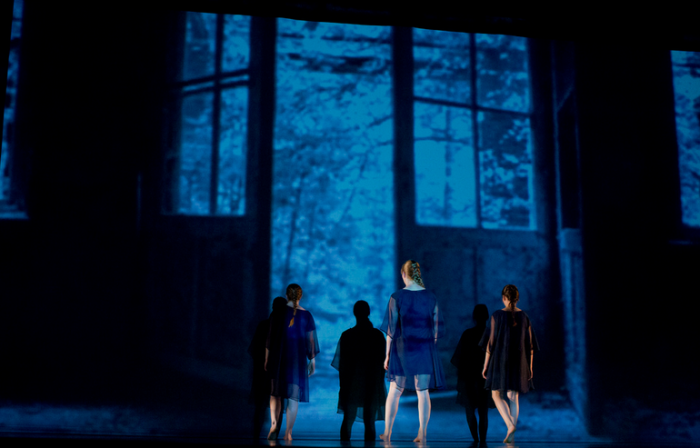
Video courtesy of Bates College. To watch, email tmasondance@gmail.com for password.
